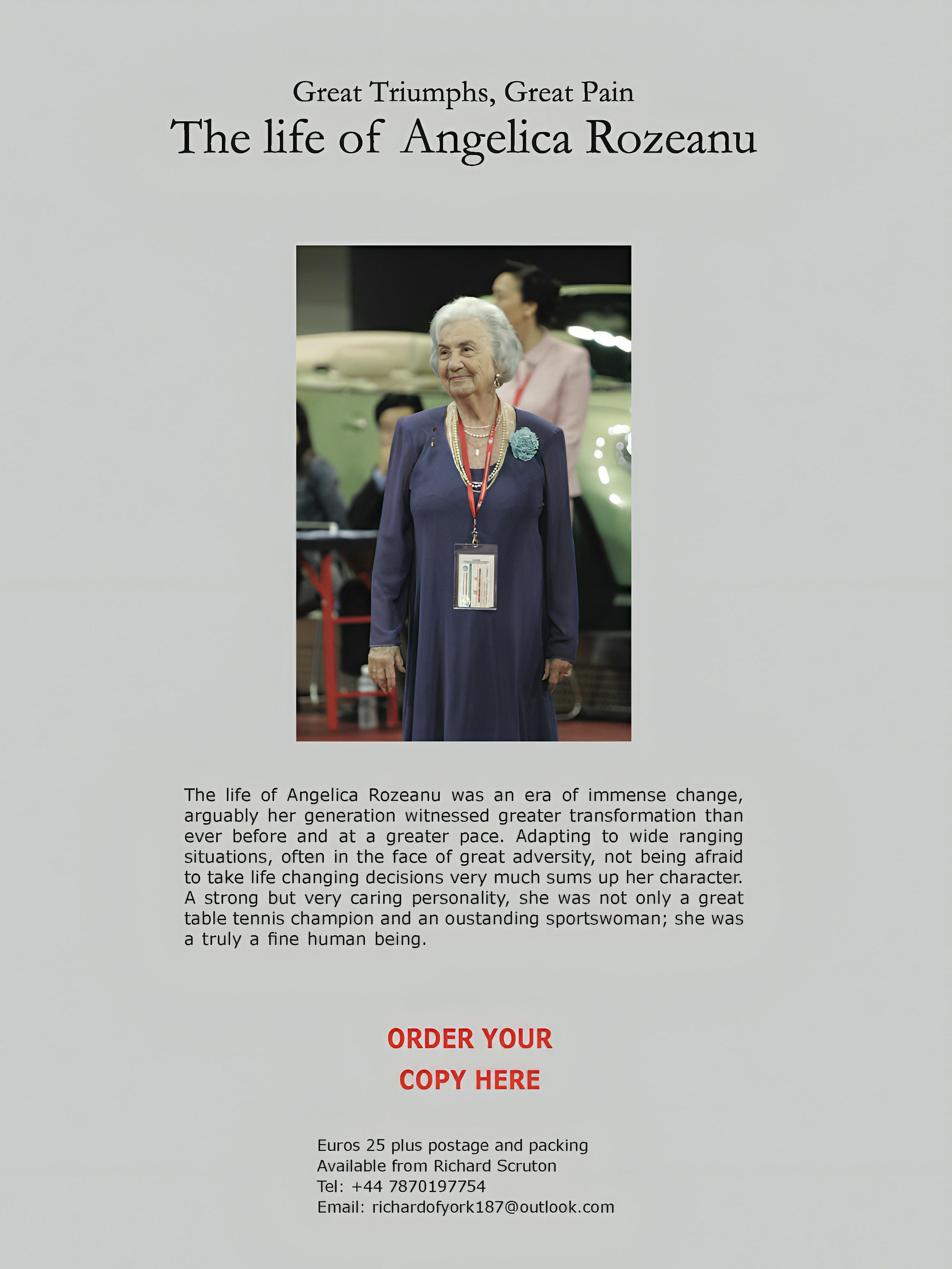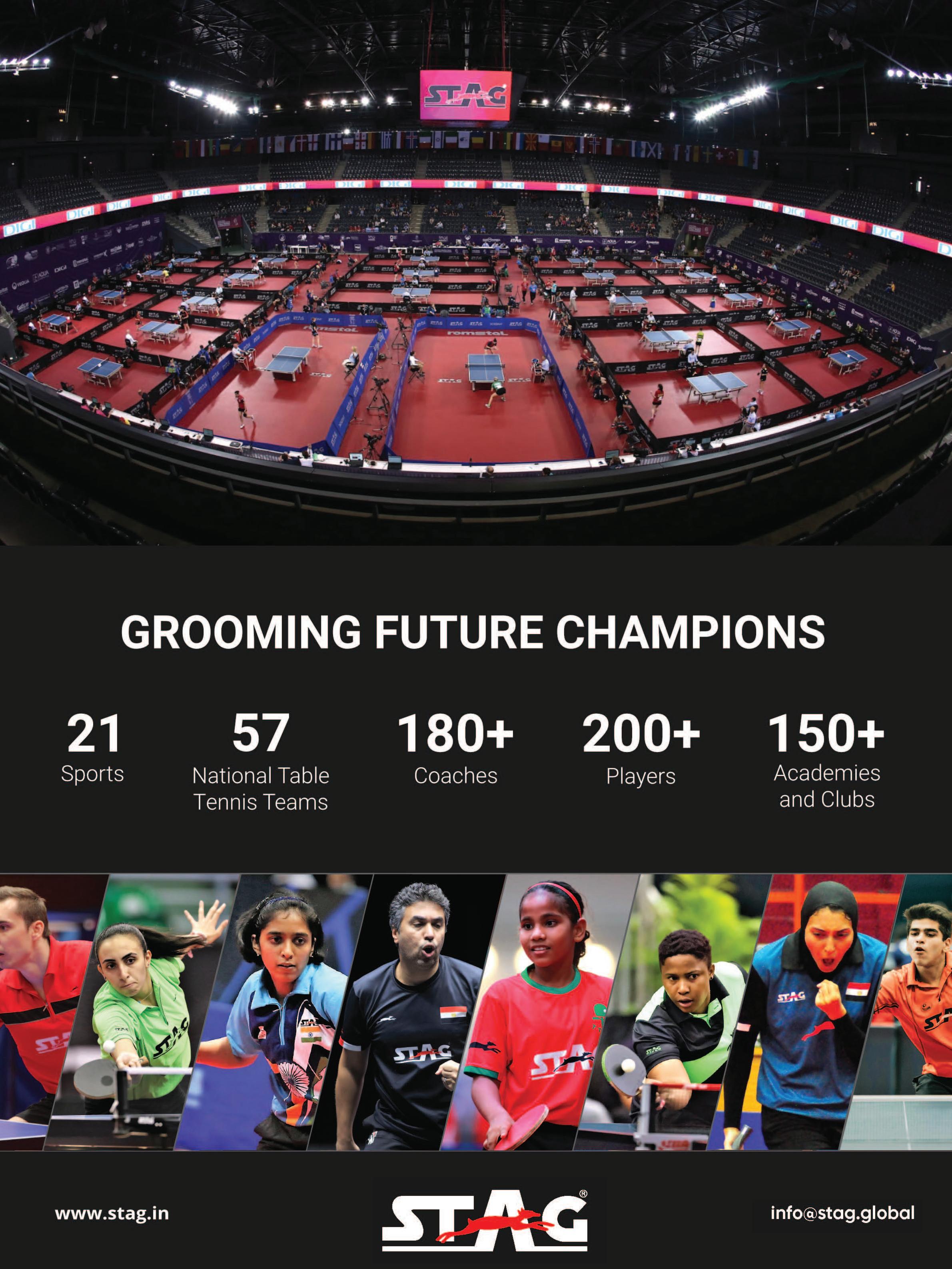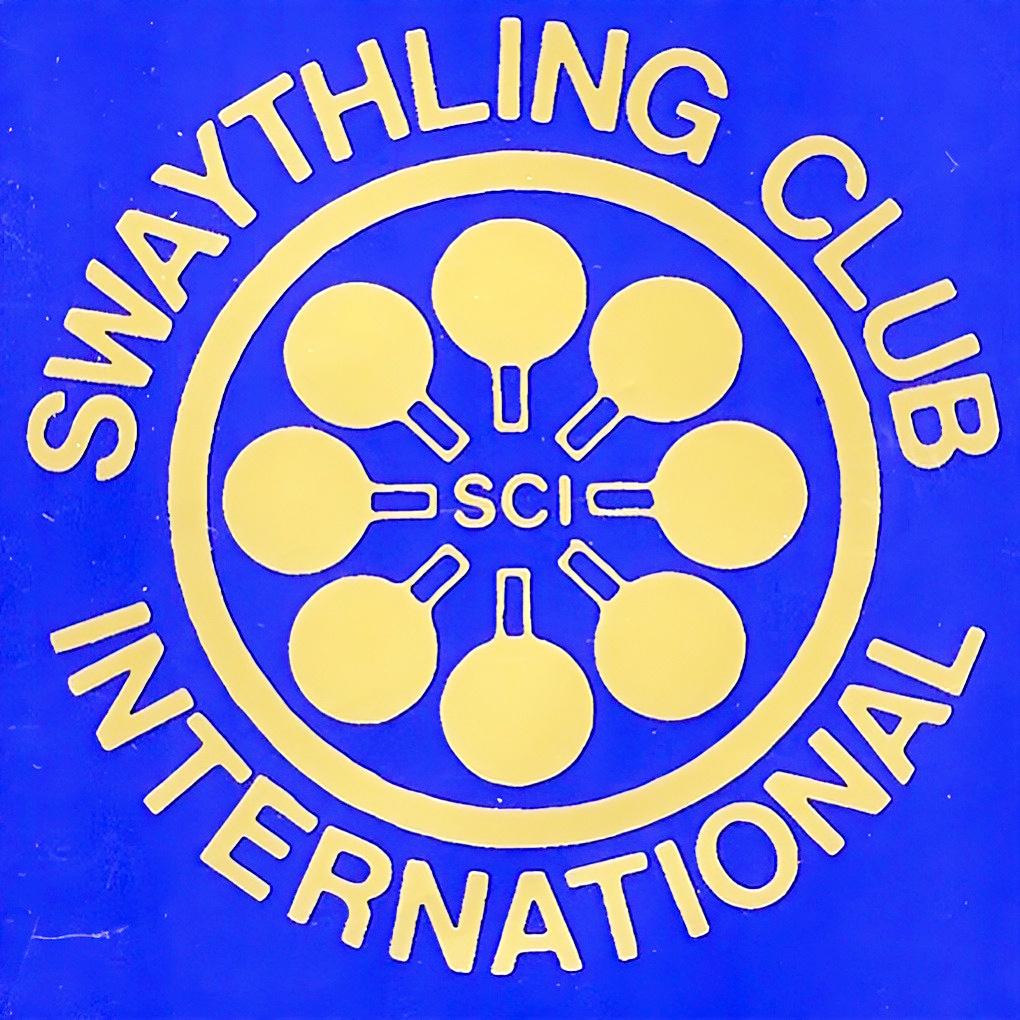

THE GOAT
Ma Long at the World Championships
Second Chance
Nikoleta Stefanova selected on merit
One Great Impact
Ichiro Ogimura announces arrival Unstoppable
Joseph Sebatindira
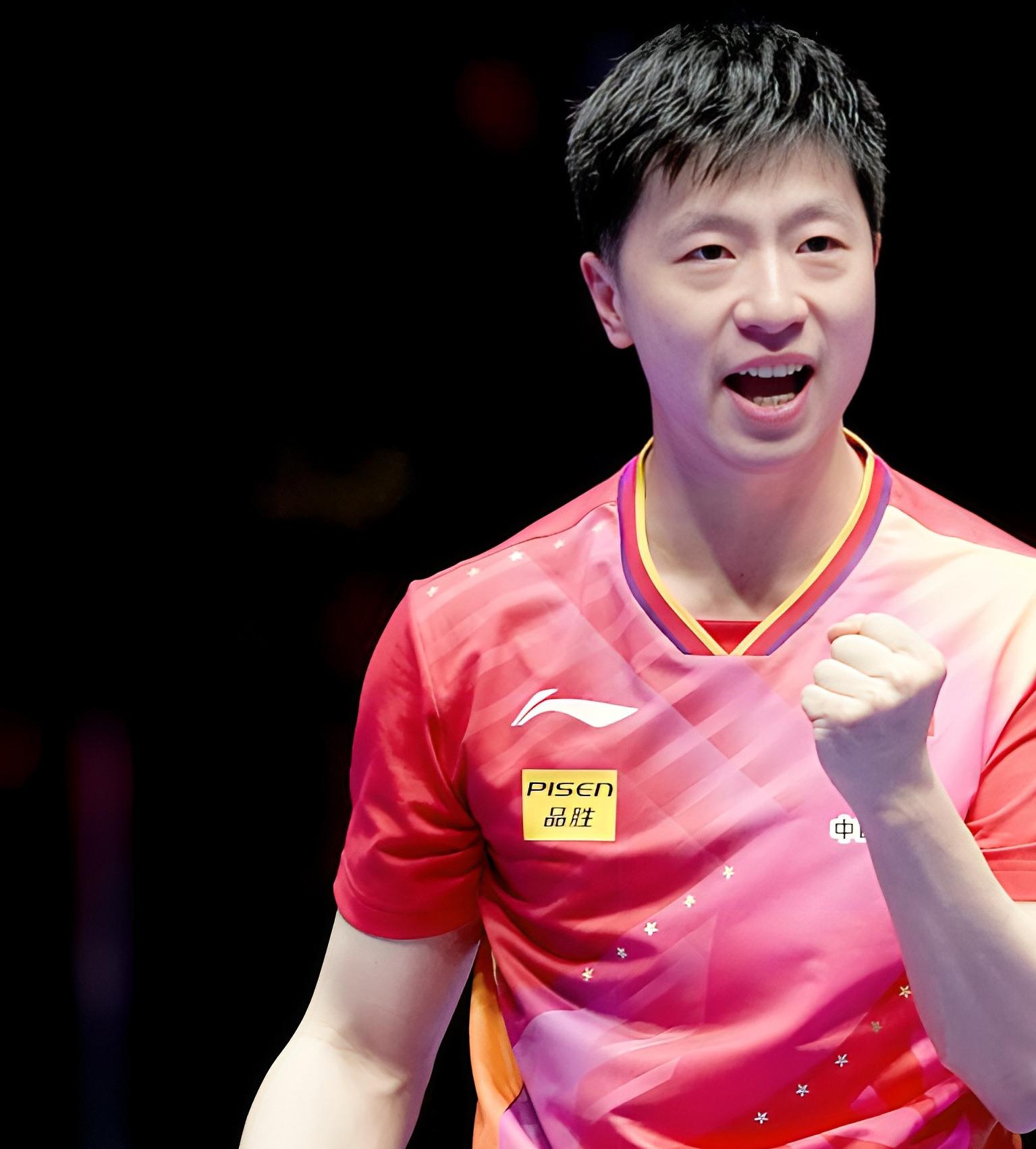
Award for Gorazd Vecko
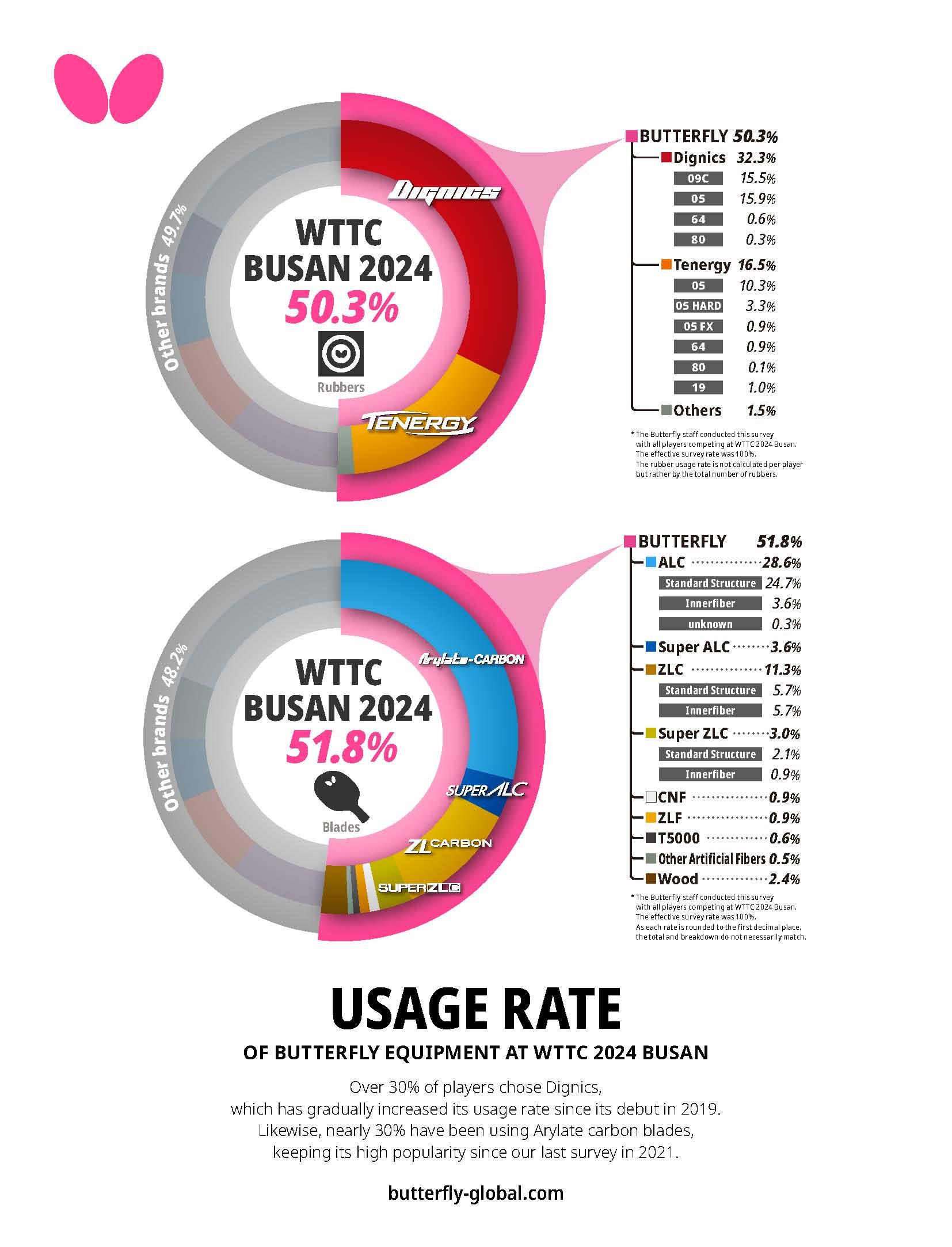

SWAYTHLING
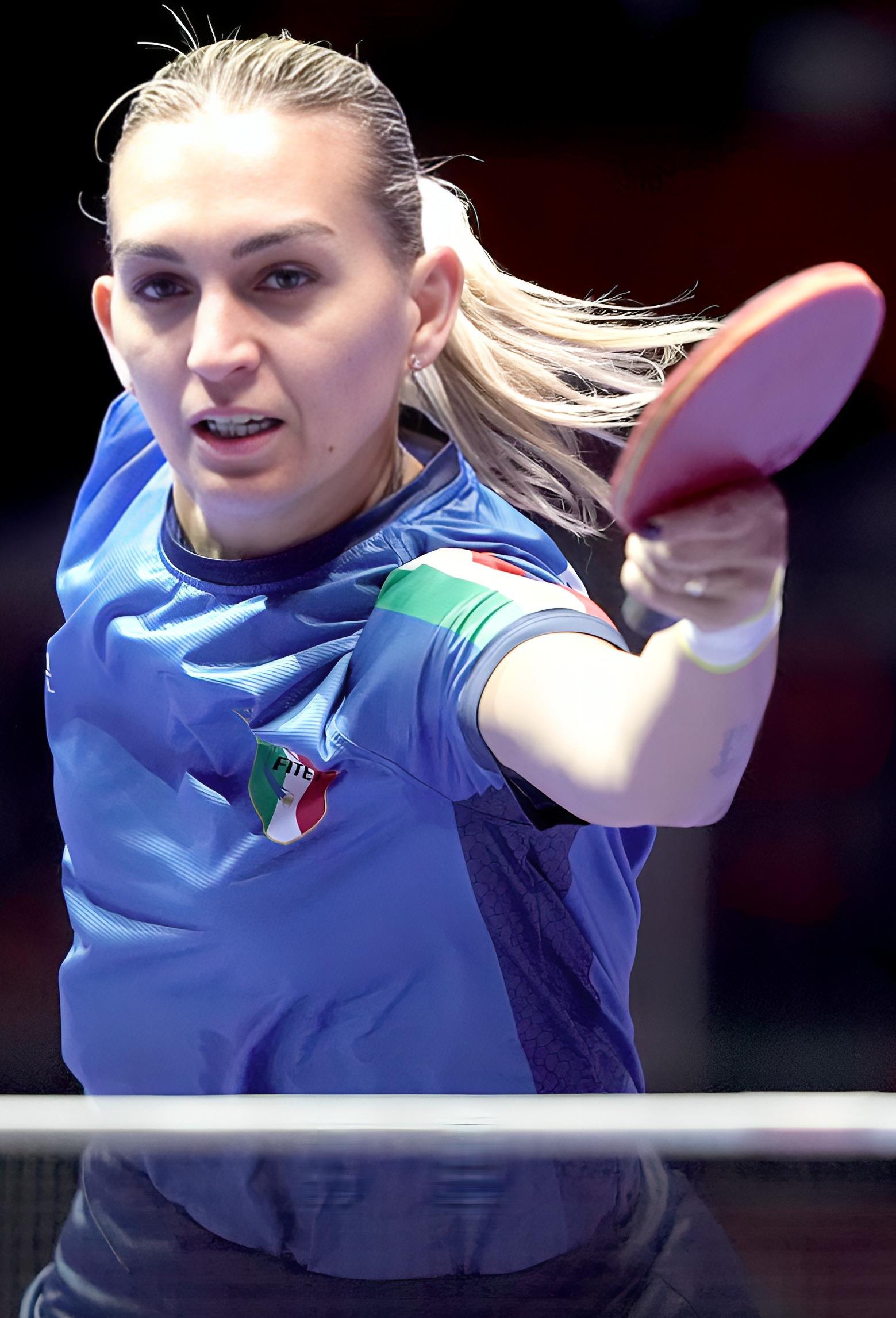
Editor & Design: Ian Marshall
Sub Editor: Richard Scruton
Statistics:
Günther Angenendt, Matt Solt
Contributors:
Sharath Kamal Achanta, Marcelo Aguirre, Sreeja Akula, Günther Angenendt, Will Bayley MBE, Reto Bazzi, Claude Bergeret, Francesca Bullock, Ashley Facey, Yvonne Fogarty, Hans
I definitely think that if someone has enough good results it doesn't matter how old you are and if you are a mother
Nikoleta Stefanova “ “
CONTENTS
FANTASTIC, TOUCHING, INTERESTING, EXCITING
The ITTF World Team Championships Finals.
THE GOAT
Ma Long at the World Championships.
SECOND CHANCE
Nikoleta Stefanova selected on merit.
APPRENTICE TO TEAM CAPTAIN
The rise of Nina Mittelham.
MENTAL RESILIENCE PROVES KEY REQUIREMENT
Outstanding start to year for Sreeja Akula.
EVER PRESENT PRIDE OF PORTUGAL
Joăo Monteiro, team man.
LIVING ABROAD MY ONLY OPTION
Marcelo Aguirre adapted to new lifestyle..
ONE GREAT IMPACT
Ichiro Ogimura wins in London.
STEPPING DOWN
Hans Wilhelm Gäb takes a back seat.
BY ROYAL COMMAND
Prestigious award for James Morris.
MILESTONE MONTH
Career change for Barry Griffiths.
TRUE BRIT
United Kingdom honours Gorazd Vecko.
WELCOME BACK
Ashley Facey returns to table tennis.
UNSTOPPABLE UGANDAN
Wilhelm Gäb, Barry Griffiths, Christian Heyerdahl, Simone Hinz, Dejan Kernc, Lu Kexin, Miran Kondric, Zdenko Kriz, Lina Kühlein, Ma Long, James Morris, Nina Mittelham, João Monteiro, Mary Musoke, Paloma Mutti, Northern Advocate, Leandro Olvech, Khushal Palicha, Pei-Ching Ko, Josef Sebatindira, Nikoleta Stefanova, Karen Tonge OBE, Naoya Tsuruta, Gorazd Vecko, Yao Zhenxhu
Photographs: Günther Angenendt, ATTF, ETTU, ITTF, Yvonne Fogarty, Hans Wilhelm
Gäb, Rémy Gros, Manfred Schillings, Nikoleta Stefanova, World Table Tennis
Published by: Swaythling Club International
Swaythling Club International Executive Committee: Claude Bergeret (President), Reto Bazzi (Deputy President), Harvey Webb (Secretary), Richard Scruton (Treasurer), Zdenko Kriz, Lilamani de Soysa, Gloria Wagener
Joseph Sebatindira just keeps winning.
SCIATICA: ARE TABLE TENNIS PLAYERS MORE EXPOSED
The views of Dejan Kernc.
ITTF FOUNDATION
Newsround.
IN FOCUS
Major tournaments in pictures.
SWAYTHLING CLUB
Recent news.
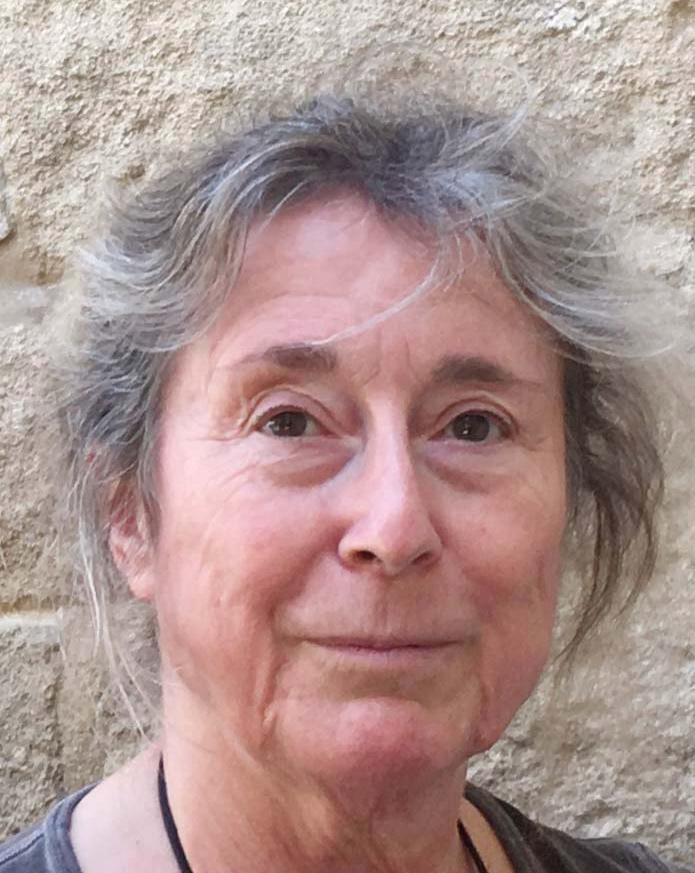
Claude Bergeret , President of the Swaythling Club International, was full of praise for the ITTF World Team Championships Finals 2024, she was pleased to meet old friends and welcome new members.
Fantastic, Touchin
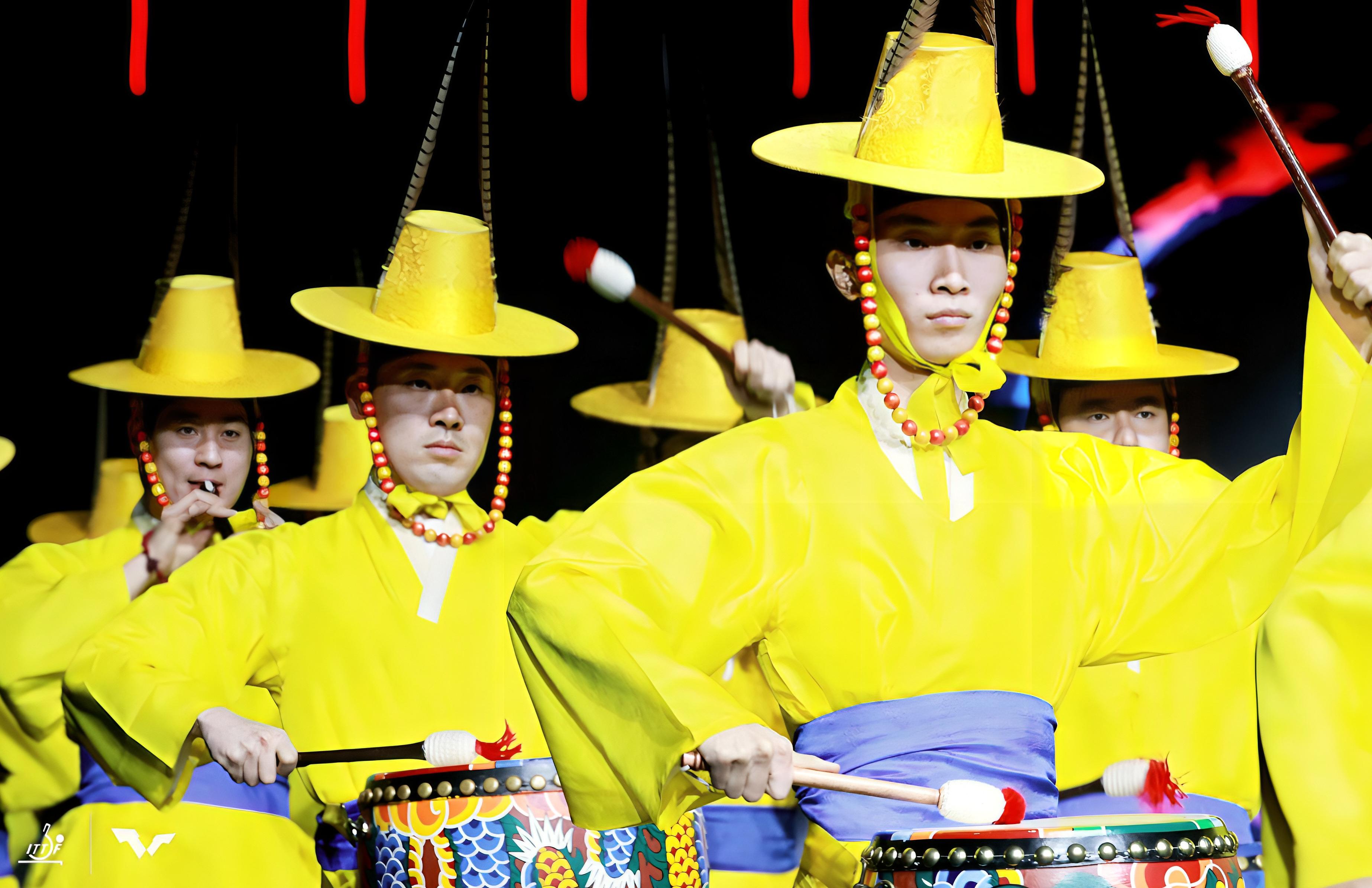

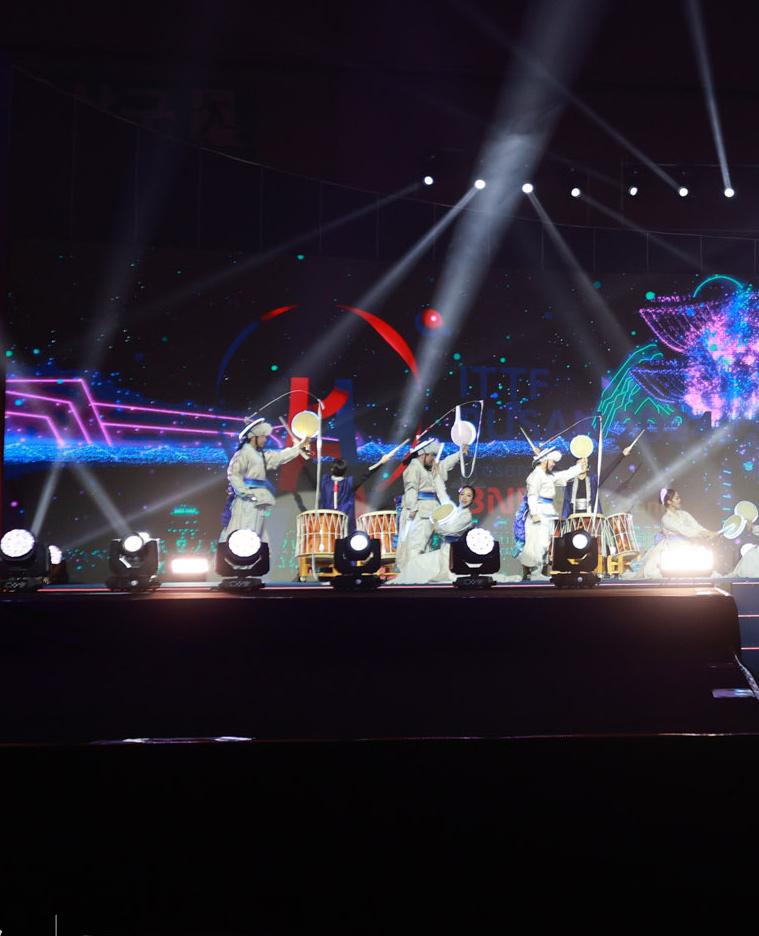
delight to be in Busan, everything was very well organised by the ITTF and the Korean Table Tennis Association, the kindness and help from always smiling volunteers made everyone feel welcome.
The setting for the whole tournament was remarkable, the players all felt at ease, this allowed them to produce their best performances. All were highly motivated, a medal was not the only goal, quarter-finalists secured places at the Paris 2024 Olympic
Games. Quite simply all the ingredients were in place, an intense table tennis spectacular was served.
It was a great pleasure to host the traditional Swaythling Club reception, well organised thanks to staff members from the Korean Table Tennis Association who seemed to be wearing a special perfume for the occasion.
Overall, we had a total of 40 attendees representing 17 member associations; most pleasing was that for the first time in our his-
ng, Interesting, Exciting nis Championships Finals Busan 2024

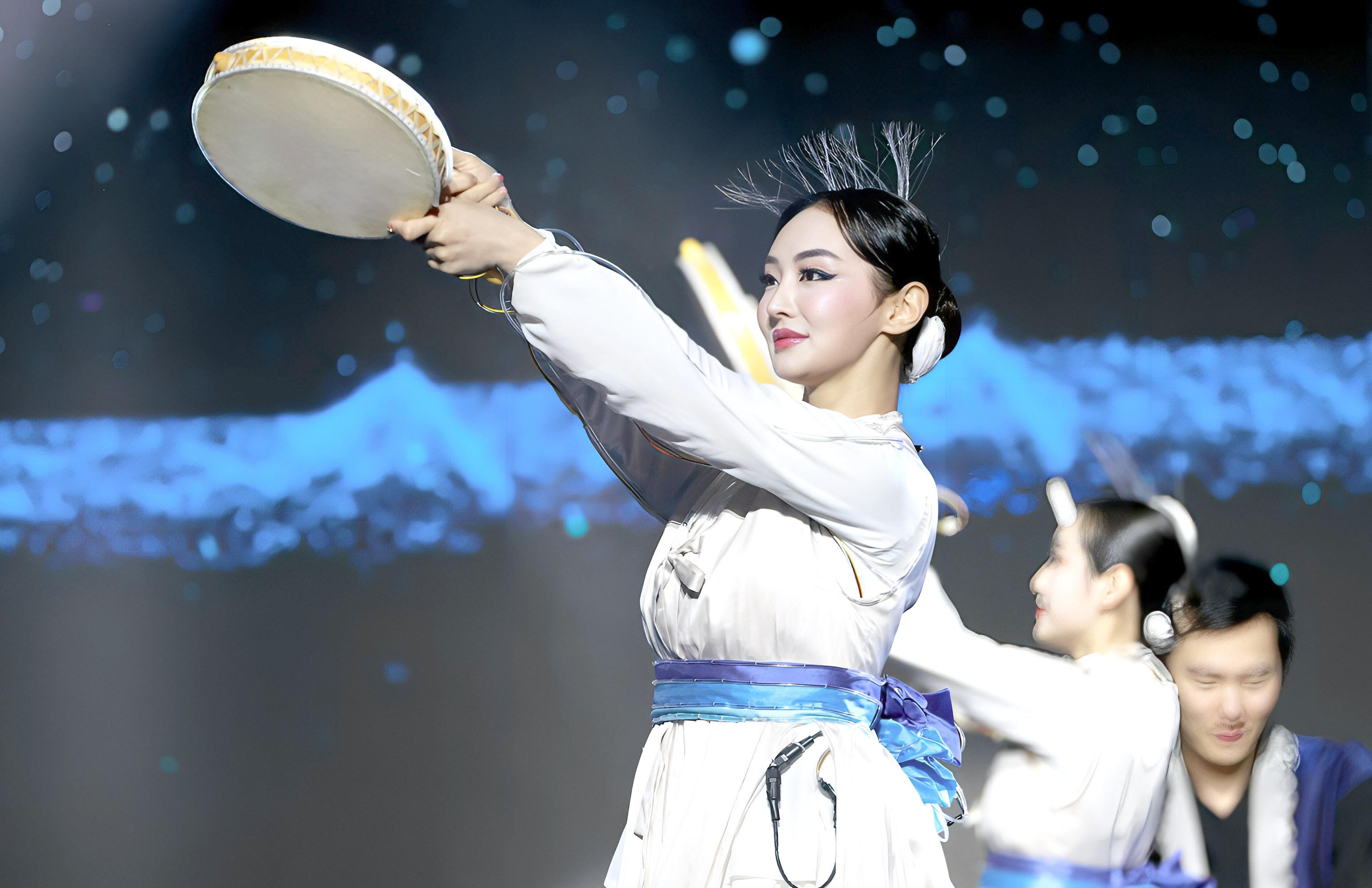
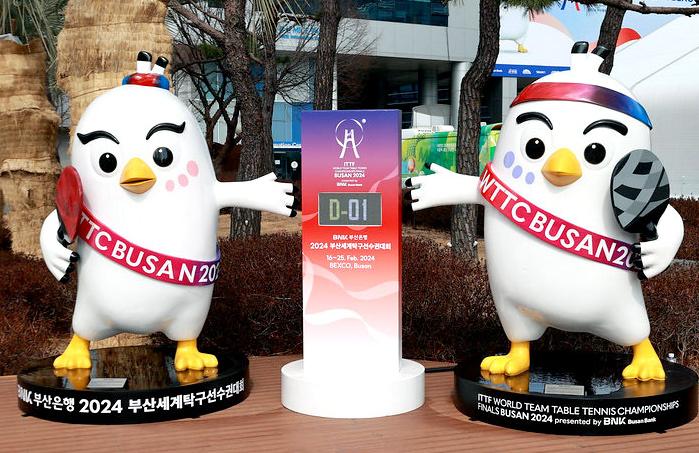
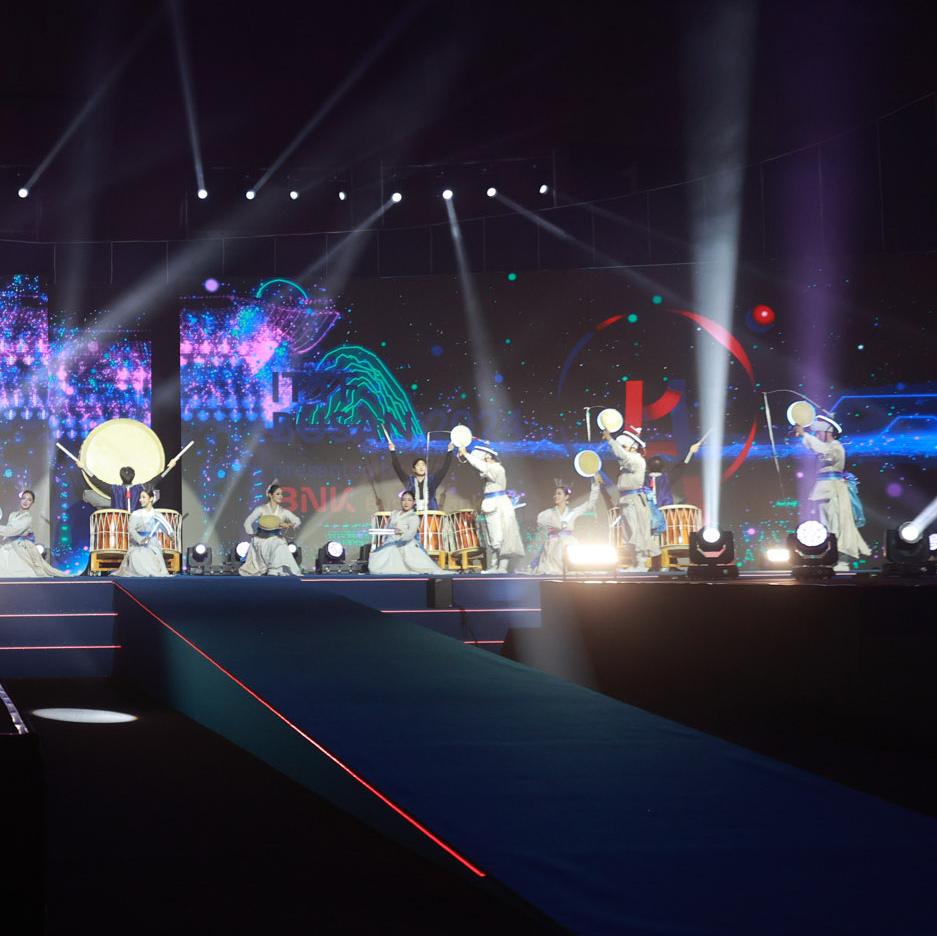
tory no less than 14 former Korean champions are now members. In particular, I was touched and delighted to meet again my former friends: Ryu Seungmin, Yoo Namkyu, Oh Sangeun, Hyun Junghwa and Chun Hyunsook.
Welcome to the Swaythling Club family!
Similarly, the ITTF Summit was extremely well organised, many subjects were presented to the delegates, in particular the topics of development, finance and governance were addressed; it is always good to receive information and to share opinions. I had the feeling that the delegates were pleased the event was held immedi-
ately after the ITTF World Team Championships Finals.
Of course, for me there were the amazing results gained by the French team, at the same tournament, the first time ever medals in both the men’s and women’s team events; most unusually siblings in each team.
Equally, as proceedings closed, I was honoured to present the leading player awards, for men the Victor Barna award went to Fan Zhendong; for the first time ever, for the women, the Diane Schöler award to Sun Yingsha.
Rendez vous á Paris in July.
THE GOAT
Proud moments, flags raised aloft, the national anthem played, the Swaythling Cup held high; at the Busan 2024 World Team Championships Finals, China maintained their incredible unbroken record, the last time they did not win the men’s team event, at the now biennial gathering, was last century when sensationally beaten in the 2000 final by Sweden.
Judging by the current array of talent available, there is every suggestion that the run of success will continue but it will be without the man who has won every major title the sport has to offer; following the close of proceedings in the Korean city, Ma Long indicated it was his last appearance in the prestigious global tournament.
The question posed is he the greatest of all time?
Evidence from the World Championships, in whatever format, suggests strongly he is the most worthy candidate of all. Search through the annals of time, the record is prodigious, nine times a member of the gold medal winning men’s squad, three times in succession the men’s singles winner, twice the men’s doubles champion.
Now over two decades ago, some two months after his 15th birthday, he made his entrance on the global scene. He was on duty at the inaugural World Junior Championships staged in 2003 in the Chilean capital city of Santiago but was he the player on whom China had such great hopes?
Notably, he was not selected for the boys’ team final, a contest in which China recovered from a two-nil deficit to post a full distance five match win against Chinese Taipei; the selection was Li Hu, Zheng Changgong and a young man some eight months the senior of Ma Long, a certain Zhang Jike.
However, in the boys’ singles, Ma Long caught the eye, he reached the quarter-finals, losing by the minimal two point margin in the deciding game to Lim Jaehyun, a player three years his senior and a young man on whom the Korea Republic had high hopes.
FACING PAGE
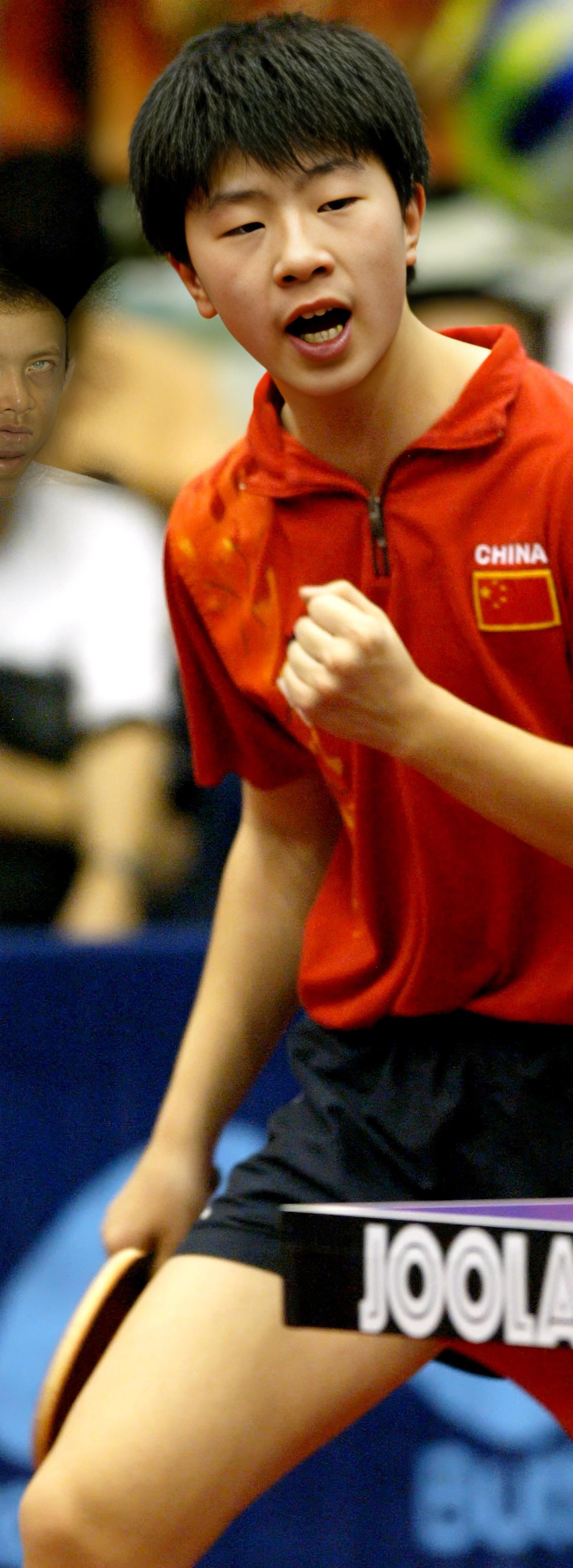

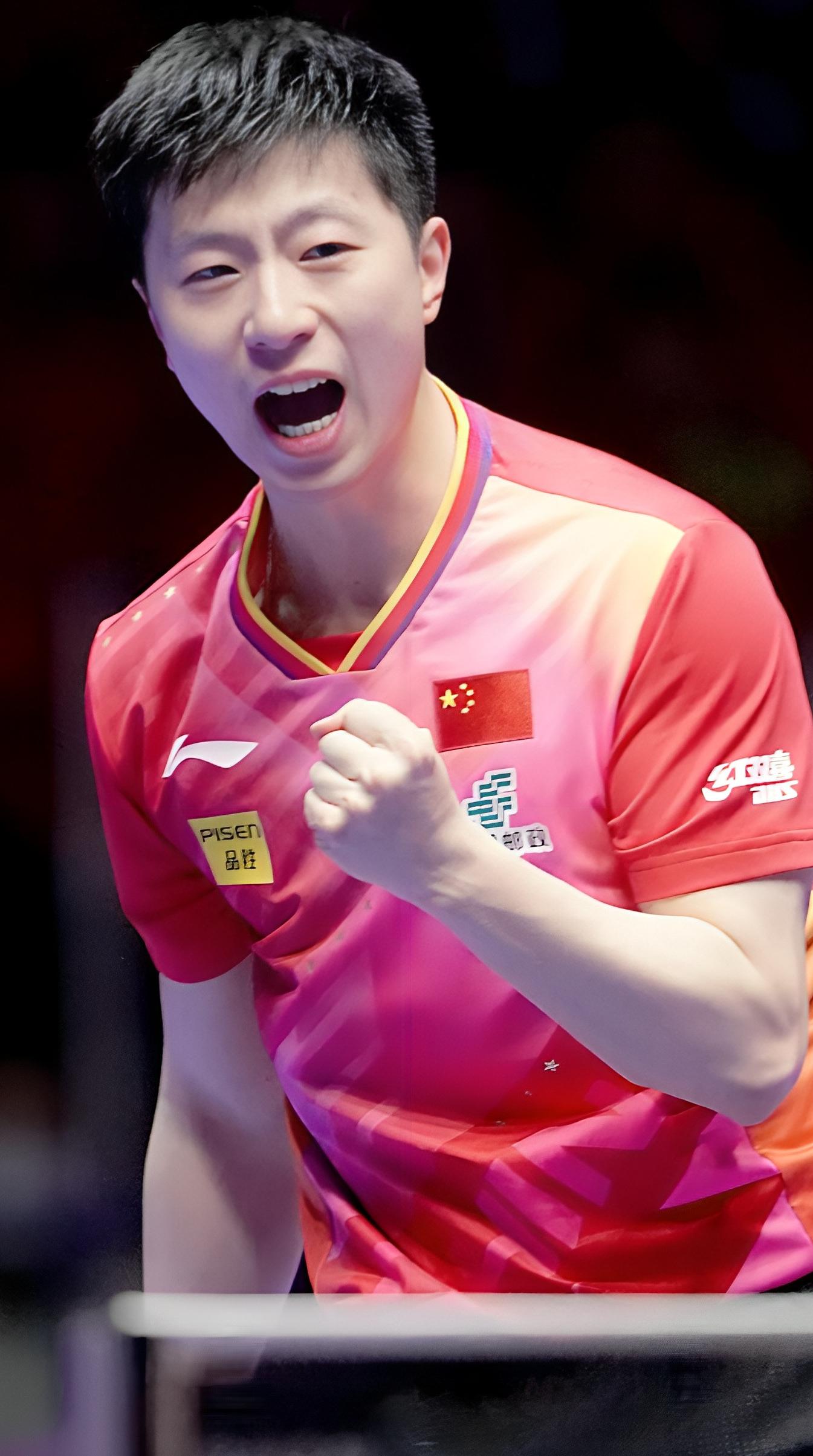
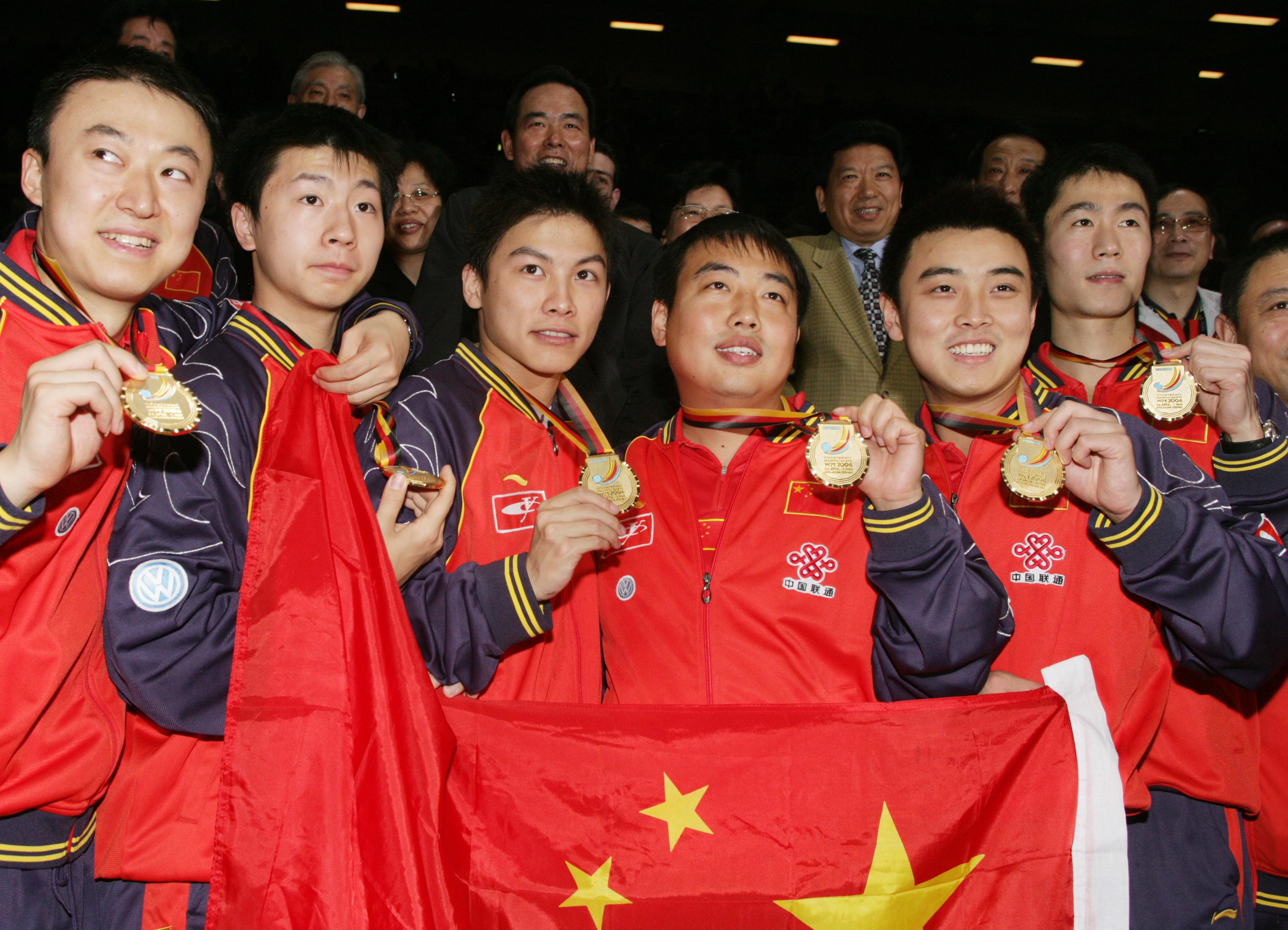
Now I think about it, before that tournament I’d not actually played in a World Championships, everyone was treating me as a kid who was a non-starter; later after I became the team champion, people thought differently about me.
Attracting attention, one year later at the World Junior Championships in the Japanese city of Kobe, he was the centre of attention, imperious. He steered China to the boys’ team title before winning the boys’ singles; he was never in serious danger of defeat.
Clearly, a plan to guide him to the highest level was in place. In 2006 he was included in the men’s squad for the World Team Championships in Bremen; throughout he was resigned to the bench, the selection being Wang Liqin, Ma Lin and Wang Hao with Chen Qi first reserve.
“I was there to experience the atmosphere of a World Championships, gain more experience and be motivated to seize opportunities when they arose”, explained Ma Long.
An opportunity to savour the atmosphere, one year later at the 2007 World Championships in
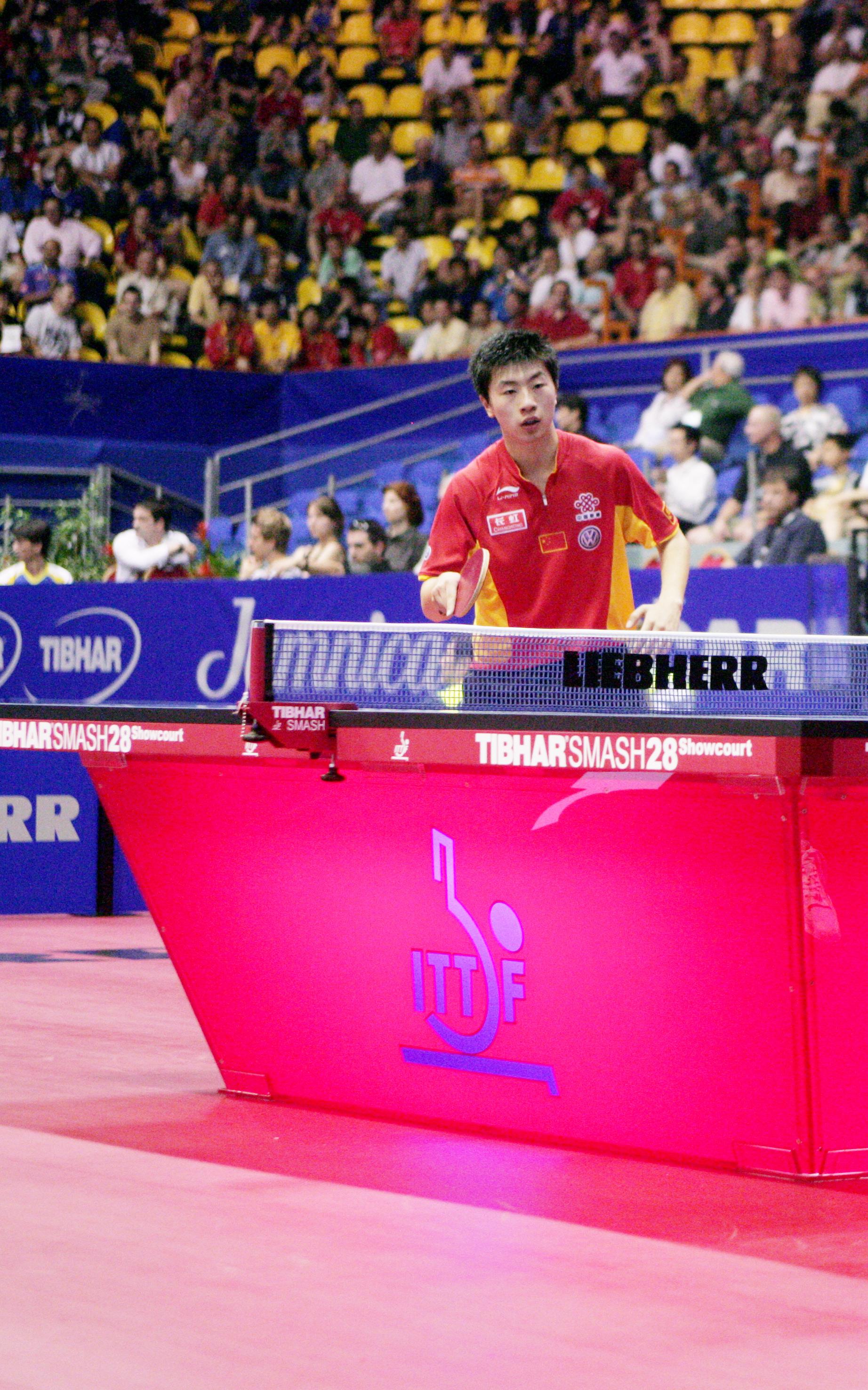
ABOVE LEFT
China’s successful men’s team at the 2006 World Team Championships. left to right Ma Lin, Ma Long, Chen Qi, Liu Guoliang, Wang Hao, Wang Liqin.
ABOVE CENTRE
Ma Long playing Joo Saehyuk at the 2007 World Championships, Ma Long lost in six games.
ABOVE RIGHT
Ma Long opposing Timo Boll at the 2013 World Championships, a player he highly respects. Ma Long won in six games. Later Ma Long and Timo Boll formed a doubles partnership.
RIGHT
At the 2013 World Championships
Wang Hao halted Ma Long’s progress for the third consecutive time.
Zagreb he was in action; however, life did not accrue as hoped, the last 16 twice proved his nemesis. In the men’s singles, he tried to blast Korea Republic’s Joo Saehyuk out of the water, in six games he came unstuck. Partnering Hao Shuai, it was a men’s doubles reverse at the hands of Japan’s Seiya Kishikawa and Jun Mizutani. The defeats hurt; make no mistake.
“I was the only one in the Chinese team who lost to foreign players in both singles and doubles”, recalled Ma Long. “Now I think about it, before that tournament I’d not actually played in a World Championships, everyone was treating me as a kid who was a non-starter; later, after I became the team champion, people thought differently about me.”
Defeat at a World Championships when opposing players from foreign shores, it was never to be repeated; in the World Team Championships it only happened on two occasions, both in five games. In Moscow in 2010 he was beaten in the opening match of the final against Germany by Timo Boll, most recently in Busan, in the third match of the semi-final encounter when facing Korea Republic, he lost to Lee Sangsu.
“From 2003 to 2005, I watched many videos of Boll, at that time he was the number one opponent for the Chinese team; we watched videos in closed training sessions and at team
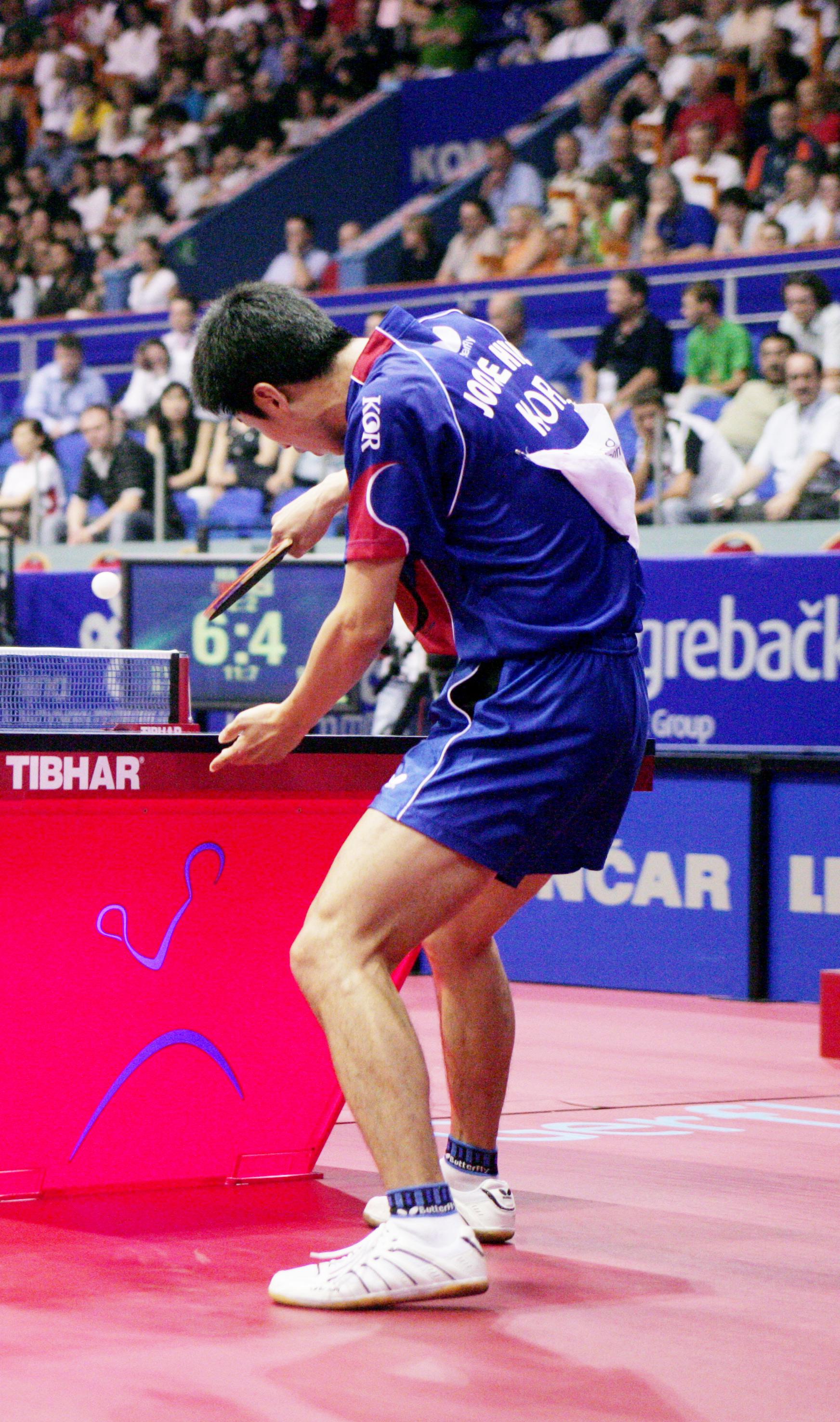
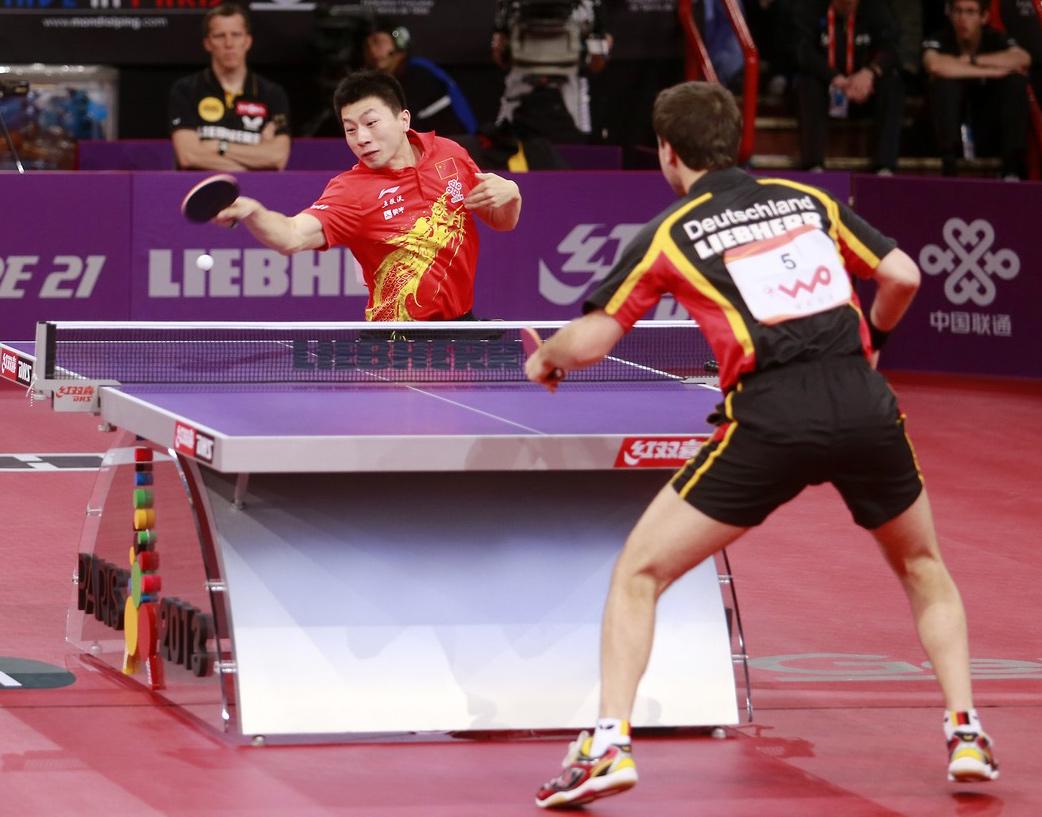
meetings in order to understand his somewhat older style of playing”, said Ma Long. “He is very talented and often plays amazingly well in matches; we played doubles together, we are somewhat similar, we try to be complete in our play, control the ball and counter-top spin.”
Timo Boll and Ma Long joined forces at the 2015 World Championships in Suzhou and two years later in Düssel dorf; on both occasions they drew the short straw, los ing to the champions elect, in Suzhou in round two to Xu Xin and Zhang Jike, in Düsseldorf one round later to Fan Zhendong and Xu Xin.
Defeat against Joo Saehyuk, the only other players against whom Ma Long experi enced a men’s singles reverse at a World Championships were colleagues Wang Chuqin in 2023 and Wang Hao in three consecutive men’s singles semifinals, commencing in 2009.
Great credit must go to Wang Hao but recalling those matches, did we really witness Ma Long in peak form?
He was below par. Quite simply, was he putting himself under too much pressure?
“After my first World Championships in 2006, people had high expec-
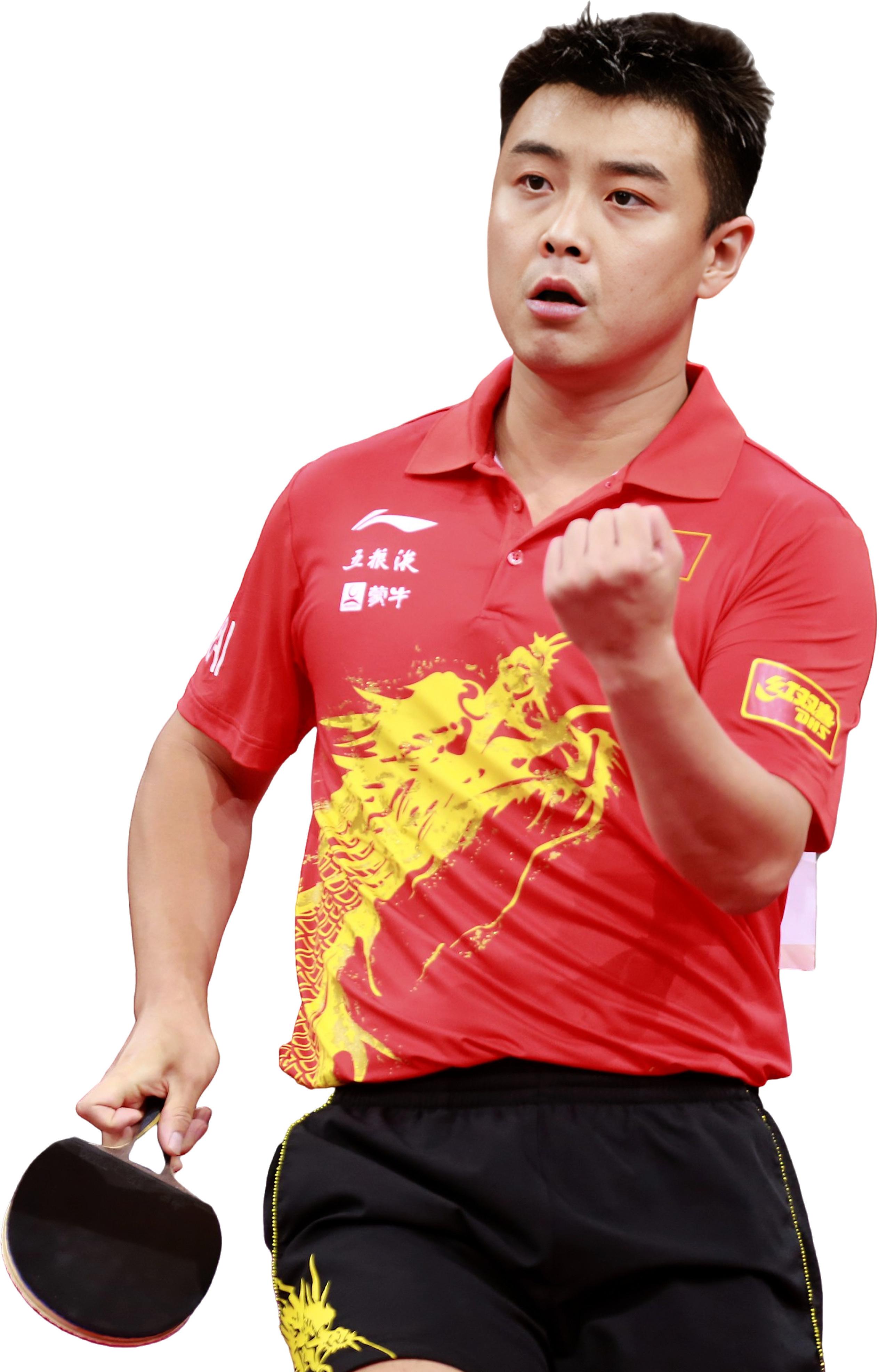
tations of me, the higher the expectation, the more I wanted to do well, but always when you do not do well, you have a feeling of really low self-esteem”, sighed Ma Long. “I feel sorry for a lot of people who at that time had such hopes for me.”
Three times a semi-finalist, the jury was out, deliberating; in Suzhou in 2015 there were questions to be answered; it was the tournament when the verdict would be announced.
“I did a lot of mental preparation, this time my semi-final opponent was Fan Zhendong, that was a lot of pressure for me”, said Ma Long. “I started the match using 120 per cent of my energy, no holding back, I knew I had to be more active than previously to win the match.”
In the opening game Ma Long lost just one point! He was in no mood to take prisoners.
“The best thing I did in this semi-final was that I was able to let go of my burden of confronting pressure”, stressed Ma Long. “Probably because of my determination, I was able to start the match with my heartbeat normal and face everything calmly.”
u
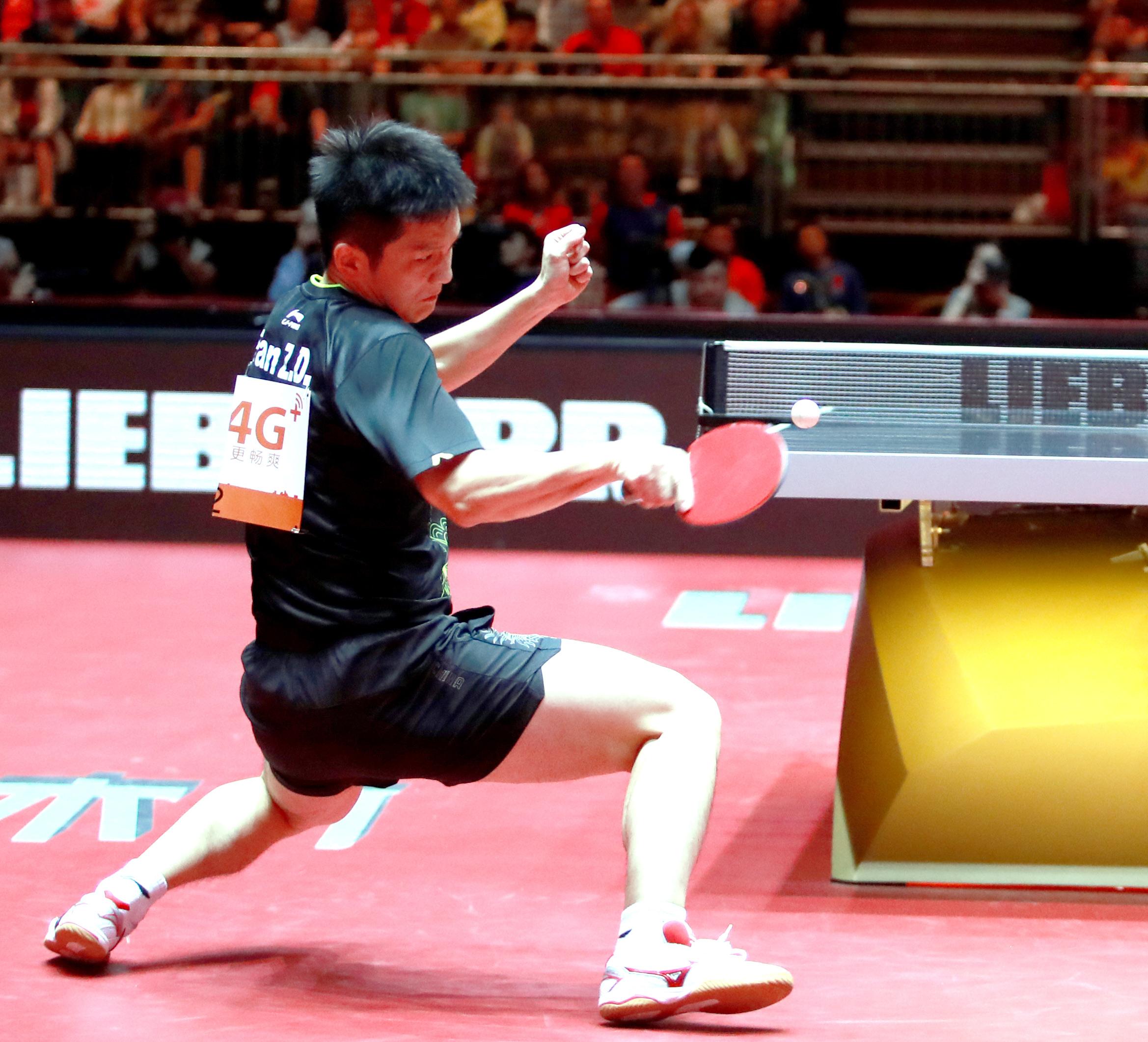
A place in the final reserved, he faced compatriot Fang Bo, a player with a style in the image of Ma Long; in a thoroughly entertaining six games encounter, the young man who had suffered agonies on the previous three occasions prevailed. Triumphant, a moment to savour but one great regret.
“I had finally won the title, I just wanted to express the joy I felt in myself, jumping on the table is what I had thought about over the years, I just wanted to stand there a little bit longer”, reminisced Ma Long. “However, I made a mistake, I wasn’t thinking, I didn't shake hands with Fang Bo at the table; here, I want to apologise to Fang Bo, in retrospect it
ABOVE
The epic men’s singles final between Ma Long and Fan Zhendong at the 2017 World Championships.
ABOVE RIGHT
Ma Long celebrates after securing the winning point; the jet-propelled racket takes off and eventually approaches landing.
was disrespectful for me to do that to him.”
Never is Ma Long disrespectful, he is the very opposite, polite, courteous and humble; the mind goes back to one of the occasions when he beat Zhang Jike, explaining: “everyone knows Zhang Jike has a strong backhand but my forehand is not too bad!” There is no name that comes to mind in the history of sport who clearly had a better forehand than Ma Long!
Success in Suzhou was a watershed.
“The important thing about winning the World Championships in Suzhou was that after the four previous losses, my dreams had come true,
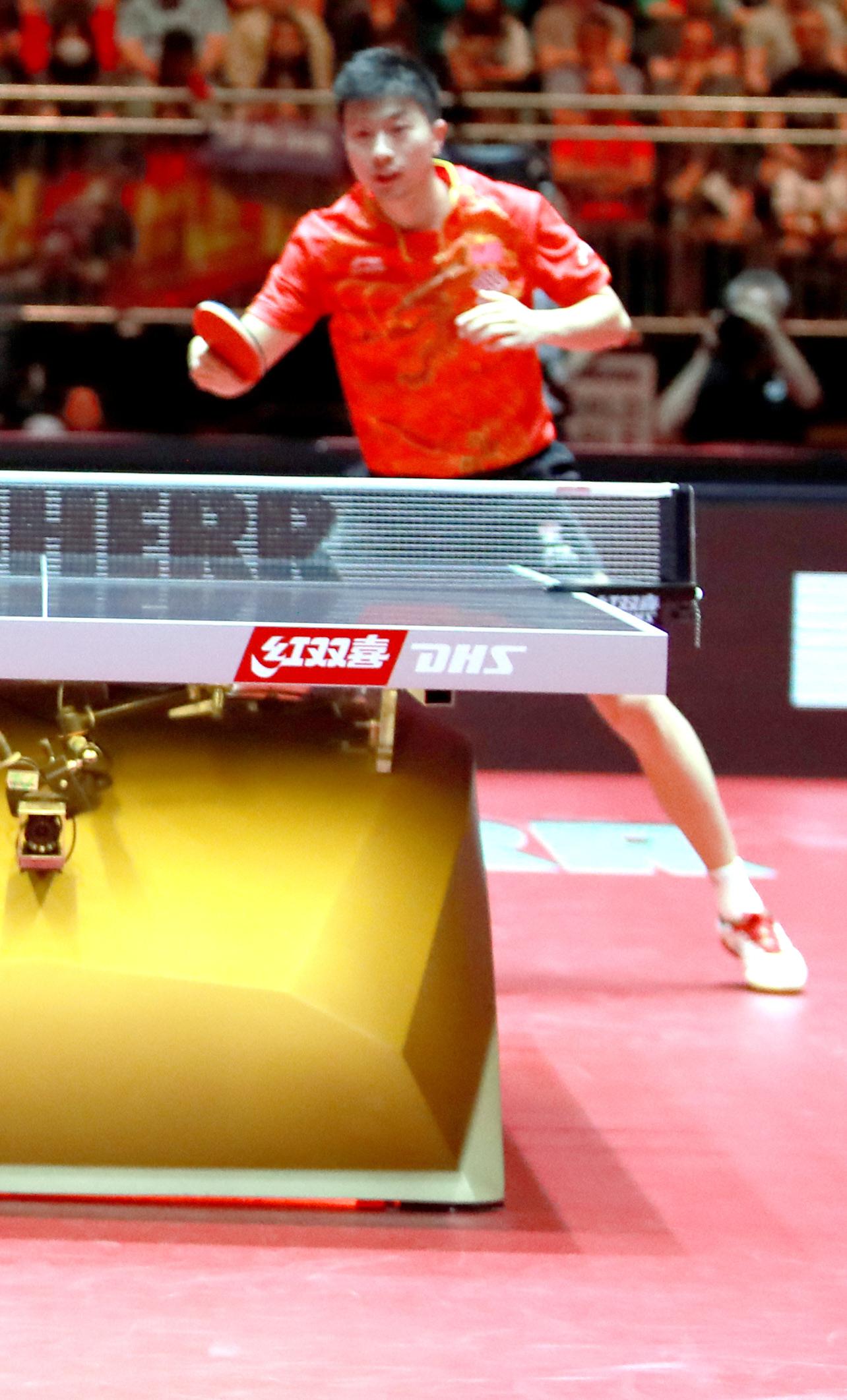
I wanted to win so much”, explained Ma Long. “My character had led me to lose a lot of matches in the past when I was leading by a big margin, in this tournament I was able to realise in myself more clearly that I could do better; these championships helped me forget a lot of bad memories and made me stronger inside.”
Furthermore, Ma Long had to some extent arrested the mantle from Zhang Jike in discussions as to who was the best player of the time; from Suzhou onwards, Zhang Jike never produced the form that had seen him win the men’s singles title at the World Championships in 2011 and 2013, Olympic gold in 2012.
Any gremlins that the World title would always prove elusive for Ma Long, as it had for Ma Lin, were laid to
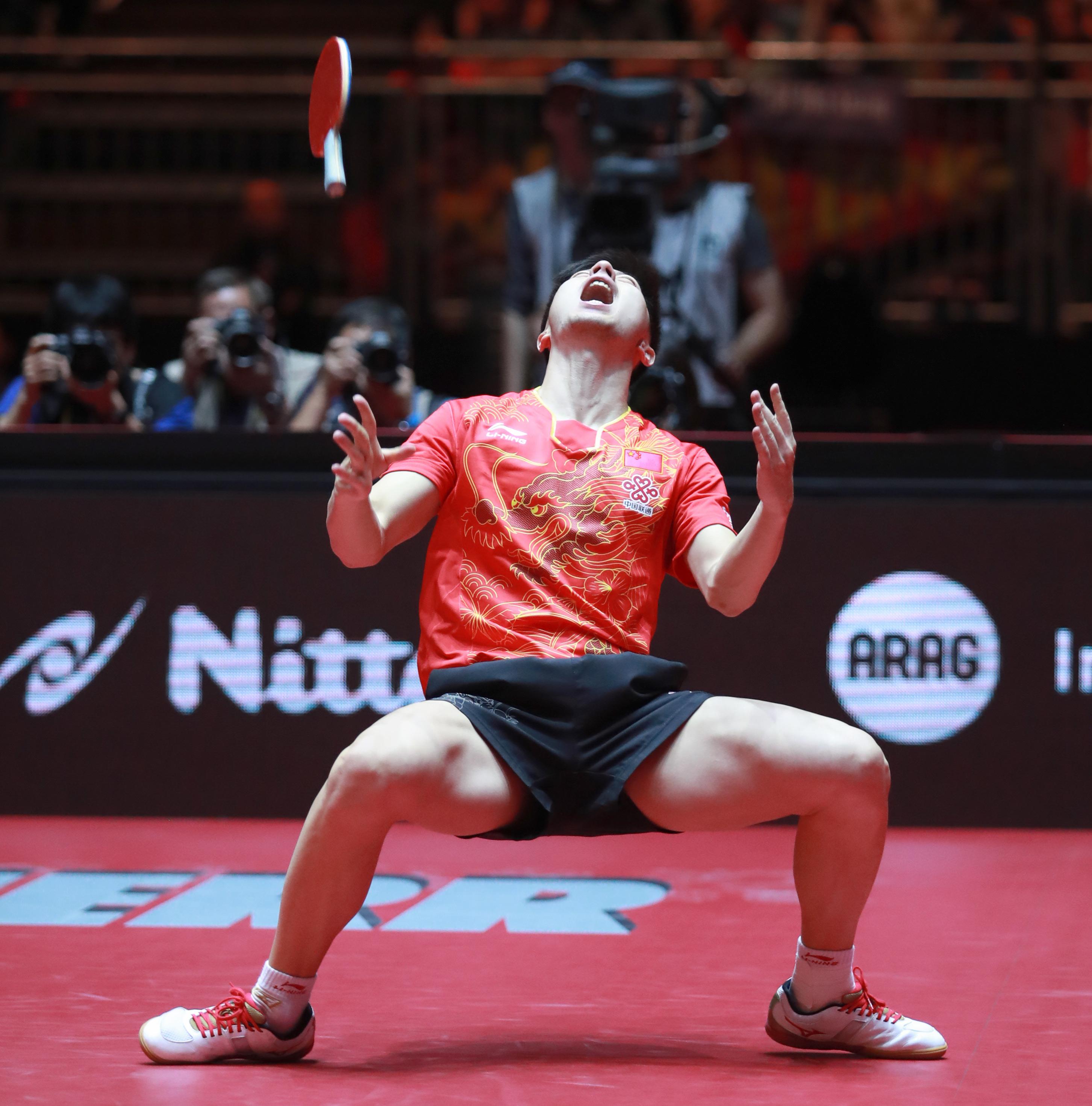
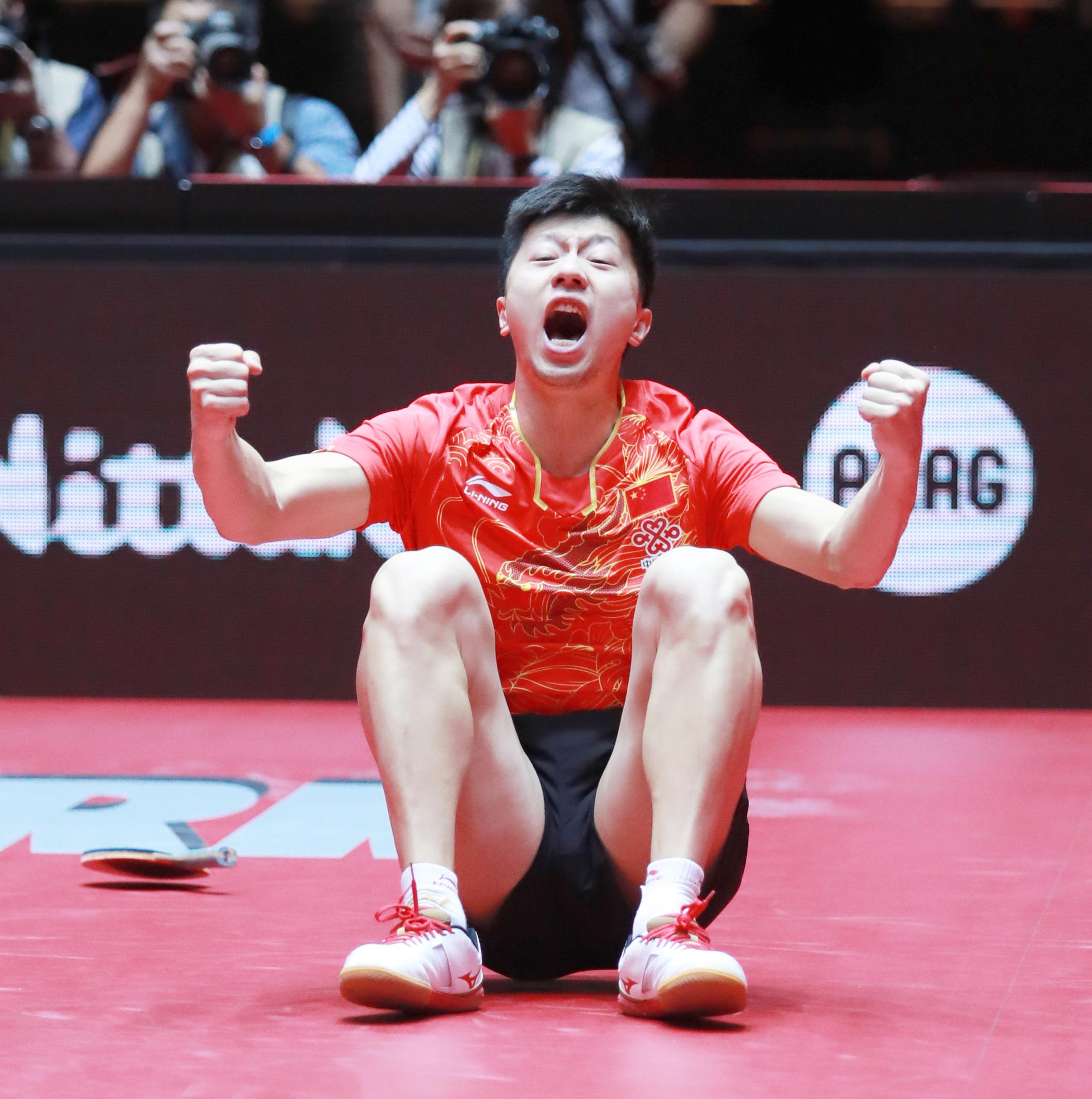
Without doubt this was the craziest match of my life; the only match that could ever come near is that if one day in a final at the Olympic Games, the scores are level in the seventh at 10-all
rest. Mental strength had secured success, it was to be the same again, arguably to an even greater level in 2017 in Düsseldorf. In what many consider to be the greatest World Championships final ever, both in terms of drama and high quality, Ma Long beat Fan Zhendong by the minimal margin in the deciding seventh game.
“Without doubt this was the craziest match of my life;
the only match that could ever come near is that if one day in a final at the Olympic Games, the scores are level in the seventh at 10-all”, smiled Ma Long. “I'd never been involved in such a match before and I cannot think it will ever happen again; I want to say sorry to Fan, whoever loses such a match will not feel good in their heart, also there is an element of luck when you win such a match, I believe the future belongs to him.”
Two years later in Budapest he completed the hat-trick; a controlled performance saw him beat Sweden’s Mattias Falck to win the men’s singles, having earlier guided Wang Chuqin to men’s doubles gold. No moments of drama in the Hungarian city, in fact for Ma Long it was the norm, another vote for being the greatest. The final in Düsseldorf was the exception, the only seven game match at a World Championships in which Ma Long has ever been involved!
On the other side of the coin, the few matches he lost were never in straight games and, of course, when he did lose, the media had a field day; Ma Long experiencing defeat was news! In that atmosphere Ma Long has competed year after year, never a good win because he was always expected to win!
Furthermore, for a Chinese player, his career at World Championships lasted longer than any of his contemporaries; from being a member of the national team in 2006 to the most recent in 2024 in Busan, the time span is 18 years. Add the World Junior Championships and it is over two decades!
MA LONG IN NUMBERS
World Championships
Selected by China on eight occasions: 2007 – 2023
Men’s Singles
Winner: 2015 Suzhou, 2017 Düsseldorf, 2019 Budapest
Semi-Final: 2009 Yokohama, 2011 Rotterdam, 2013 Paris, 2023 Durban
Last 16: 2007 Zagreb
Matches: 49 (Won 44, Lost 5)
Games: 235 (Won 184, Lost 51)
Points: 4174 (Won 2457 Lost 1717)
Note
Only ever lost to one foreign player, Joo Saehyuk (2007).
Bojan Tokic experienced a tough draw time and again, Ma Long ended his progress in 2007, 2011, 2013.
Lost to Wang Hao in three consecutive semi-finals (2009, 2011, 2013).
I want to say sorry to Fan, whoever loses such a match will not feel good in their heart, also there is an element of luck when you win such a match, I believe the future belongs to him
Consider Kong Linghui, Liu Guoliang and Zhang Jike, players who like Ma Long won the men’s singles title at both the Olympic Games and World Championships.
At the World Championships Liu Guoliang competed for an eight year period (1993-2001), Kong Linghui was 10 years (1995-2005) as was Zhang Jike (2007-2017). Meanwhile, Wang Hao was slightly longer, 11 years (20032014), Ma Lin and Wang Liqin both 16 years (1997-2013).
Simply remarkable, not only in the world of table tennis but in the whole gambit of sport, the level of self-discipline required to maintain such a high standard for such a long period is a fact most mortals cannot comprehend.
Over the years because of the way he played he became known as the “Dictator” or because of the zodiac sign of the year in which he was born the “Dragon”; add Olympic and World Cup success plus a host of other titles to his name, the record equates to one undeniable conclusion.
Ma Long is the “Goat”, the greatest of all time.
Number of wins: 4-0 (22), 4-1 (14), 4-2 (7), 4-3 (1)
The only 4-3 win was the 2017 men’s singles final against Fan Zhendong.
Never lost in straight games.
Men’s Doubles
Winner: 2011 Rotterdam (Xu Xin), 2019 Budapest (Wang Chuqin)
Runner Up: 2009 Yokohama (Xu Xin)
Round of 16: 2007 Zagreb (Hao Shuai), 2017 Dusseldorf (Timo Boll)
Round of 32: 2015 Suzhou (Timo Boll)
Matches: 26 (Won 22, Lost 4)
Games: 119 (Won 89, Lost 30)
Points: 2163 (Won 1269, Lost 894)
Note
Number of wins: 4-0 (11), 4-1 (8), 4-2 (3), 4-3 (0)
Never lost in straight games.
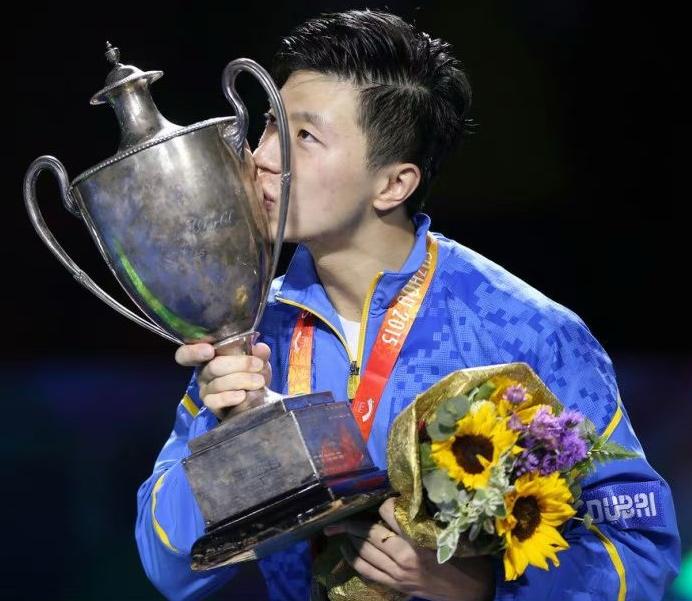
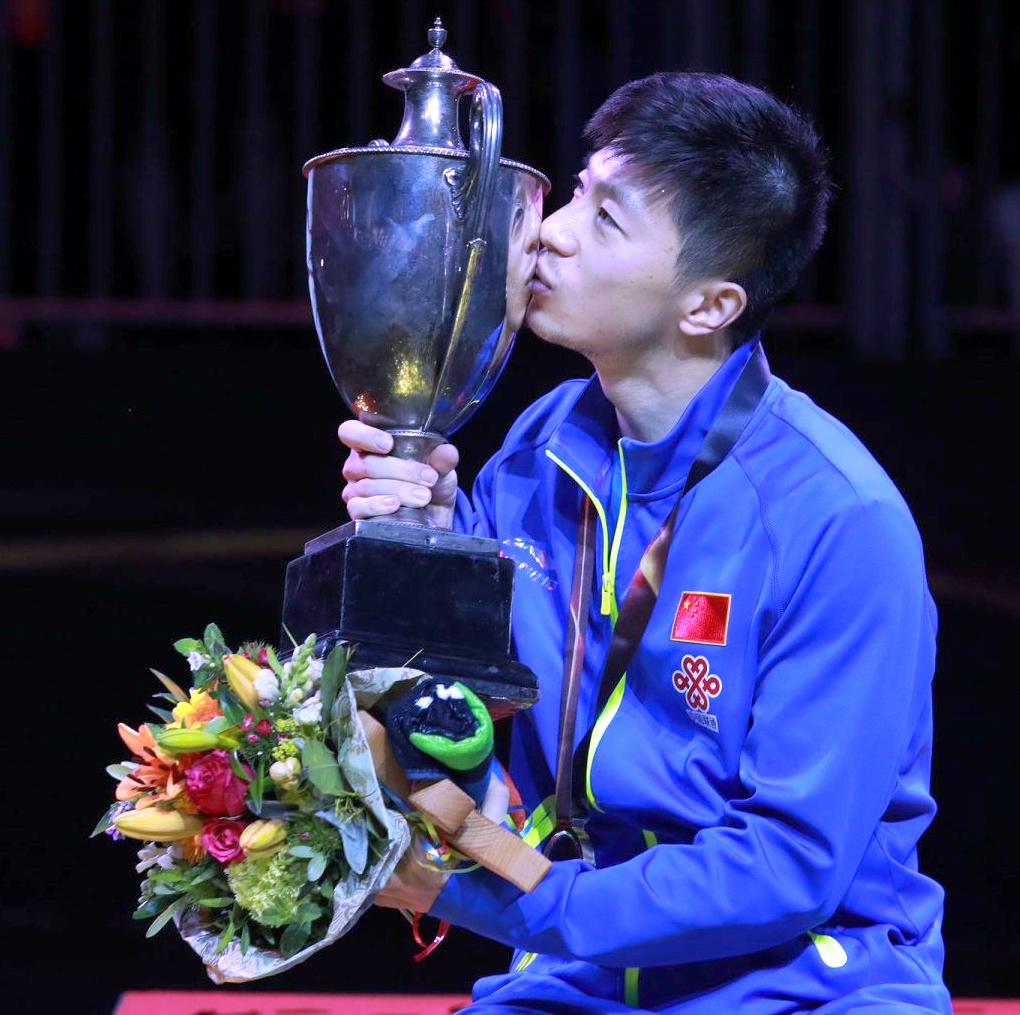
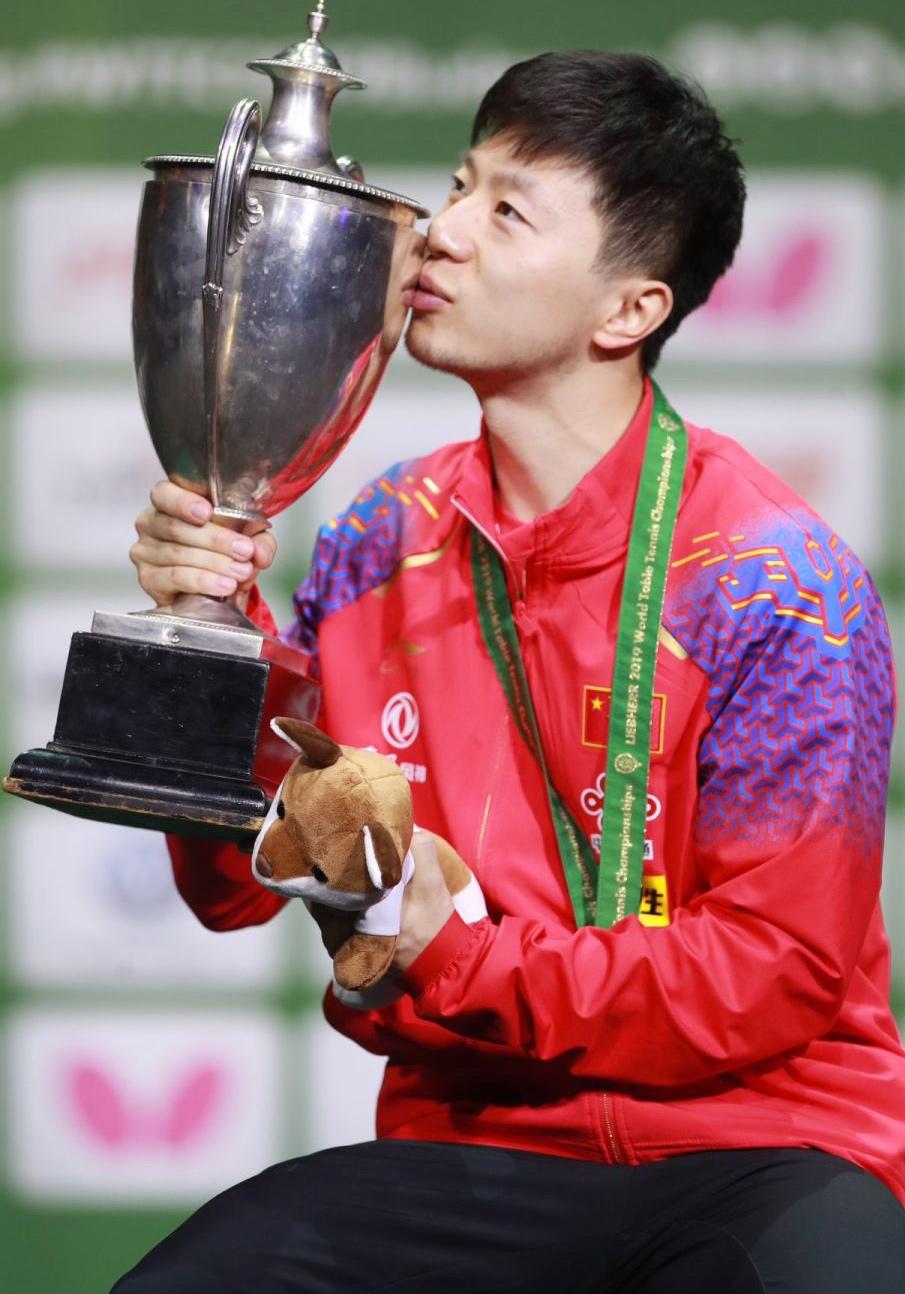
World Team Championships
Selected by China on nine occasions 2006 – 2024 (Team member in 2006 but did not play)
Winner: 2006 Bremen, 2008 Guangzhou, 2010 Mos cow, 2012 Dortmund, 2014 Tokyo, 2016 Kuala Lum pur, 2018 Halmstad, 2022 Chengdu, 2024 Busan
Matches: 48 (Won 46, Lost 2)
Games: 157 (Won 142, Lost 15)
Points: 2775 (Won 1720, Lost 1055)
Number of wins: 3-0 (38), 3-1 (7), 3-2 (1)
The only player to lose to Ma Long in five games is Robert Gardos (2018).
The only players to beat Ma Long are Timo Boll (2010) and Lee Sangsu (2014), both in five games.
From the opening match in 2012 until the quarter-final fixture in 2018 against Austria, when opposing Robert Gardos in his fourth match of the tournament, Ma Long recorded 22 consecutive 3-0 wins.
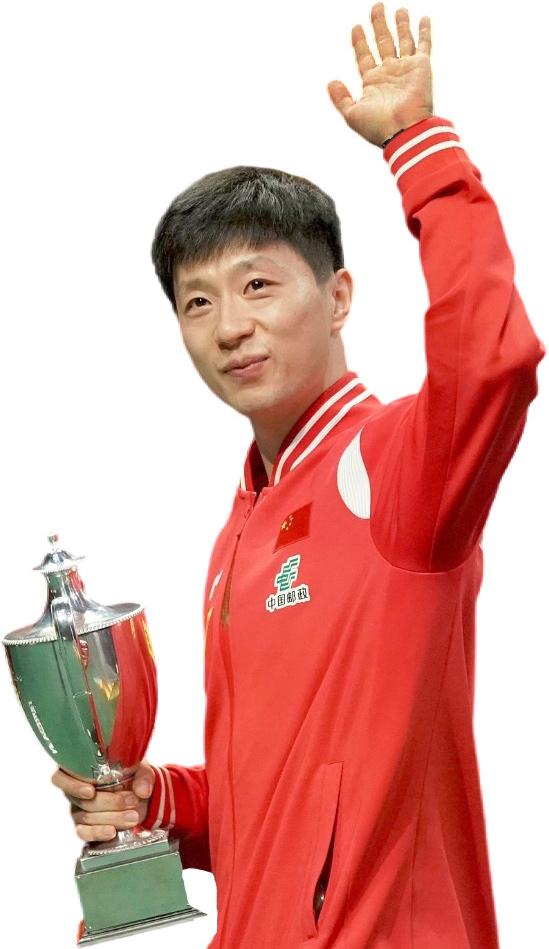
Holding the St Bride Vase, awarded to the men’s singles winner at the World Championships ever since Fred Perry won in 1929 in Budapest.
TOP LEFT Suzhou 2015.
LOWER LEFT Düsseldorf 2017. RIGHT Budapest 2019.
BELOW At the 2023 World Championships in Durban, Ma Long received a replica of the St Bride Vase to mark winning the men’s singles title at the World Championships on three occasions.
World Championships & World Team Championships
Selected by China on 17 occasions from Bremen in 2006 to Busan in 2024.
Matches: 123 (won 112, lost 11)
Games: 511 (won 415, lost 96)
Points: 9112 (won 5446, lost 3666)
Timo Boll and Ma Long met 10 times, five as men’s doubles partners, five as opponents. Both meetings in the men’s singles were at the quarter-final stage, in the men’s team event, the three contests were in finals.
Second Chance
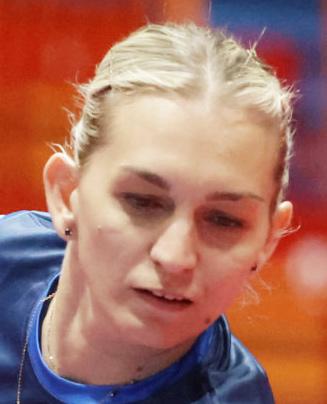
Selected for every match, the mainstay of the Italian women’s team at the ITTF World Team Championships Finals 2024 in Busan; it was a return to the tournament steeped in history for Nikoleta Stefanova, her most recent previous appearance being in 2010 in Moscow.
Married to Fabio Ruffoni, she is now a mother of three children, Filippo was born in 2011, Camilla in 2015, Tommaso in 2017; in Busan she delivered a clear message to any woman who decides to return to top class sport and at the same time raise a family.
She proved a point; if you are good enough, whatever your age or however many years you have been away from the sport, then you deserve selection. A World Championships is at the very pinnacle, it may be argued that in table tennis the Olympic Games is the ultimate, but both events have one factor in common, they are where the elite compete.
Selecting a young player to savour the atmosphere but sit courtside throughout, is
Nicole was very much the reserve player, but she understood my presence; always she supports me when I play, she really helps me
not to be criticised, for Italy in Busan, Nicole Arlia, 18 years old, fulfilled a support role throughout. In two years’ time, when the tournament is staged in London, winner of the under 19 girls’ singles title at the WTT Youth Contender Linz in January 2023, she may well be a key player.
“Nicole was very much the reserve player, but she understood my presence; always she supports me when I play, she really helps me”, explained Stefanova. “We have a very good relationship, we play in the same club in Italy, at the end of March we won the women’s doubles at the Italian Championships.”
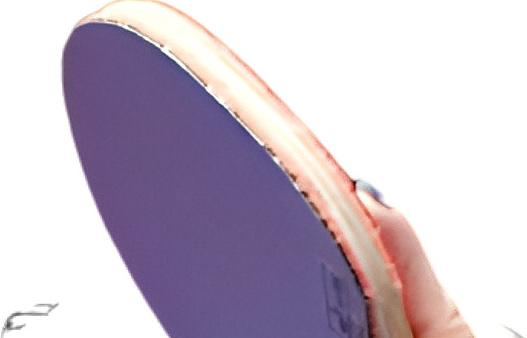
Fielding the best players is the overriding criteria; a fact appreciated by Arlia. In Busan,
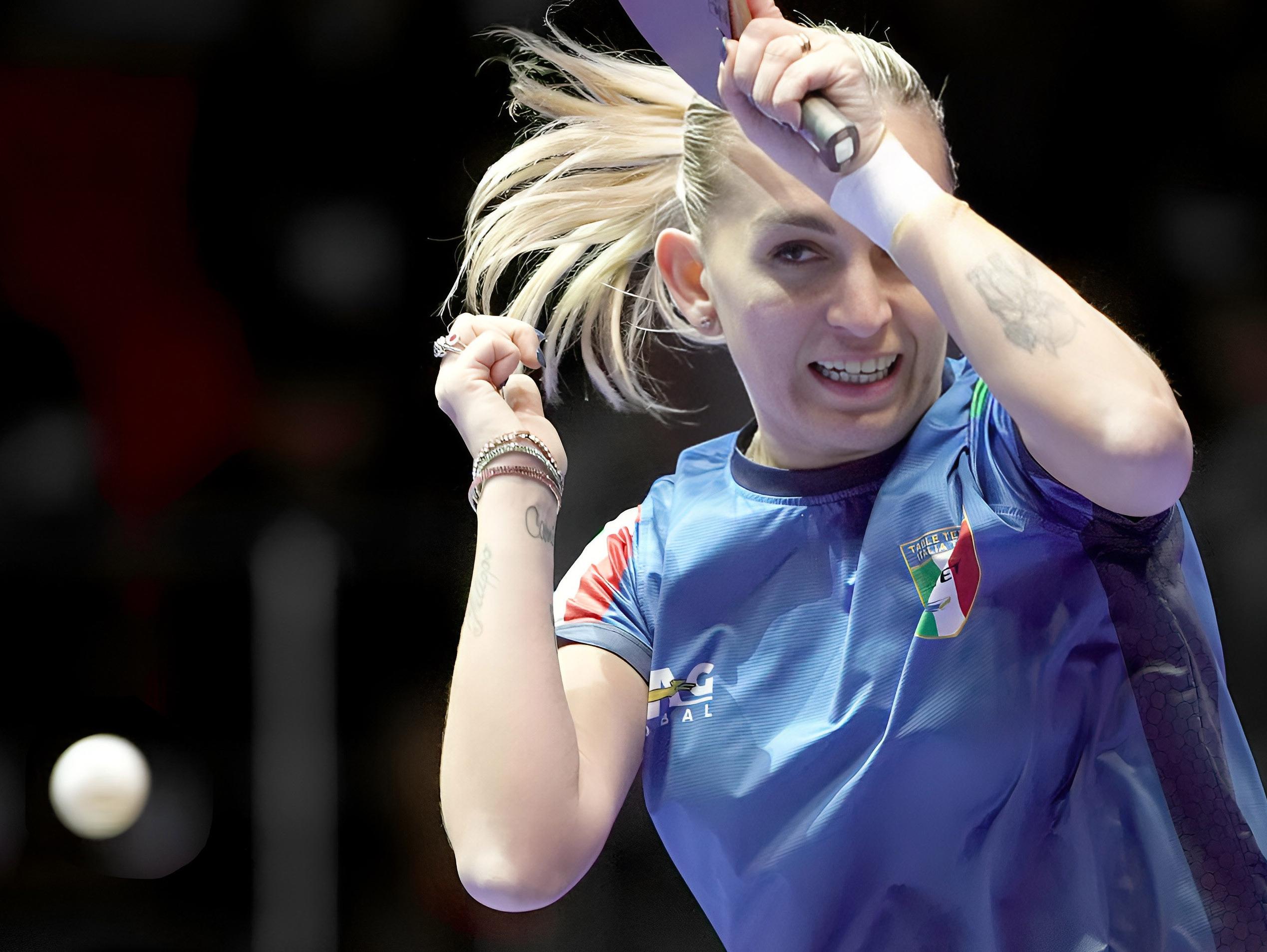
Born: 22nd April 1984 in Teteven, Bulgaria
Residence: Medole, Italy
Club: Tennistavolo Brunetti,Castel Goffredo
Racket Blade: Butterfly SK7 FL
Forehand Rubber: Dignics 05
Backhand Rubber: Tenergy 05
RIGHT In action at the ITTF World Team Championships Finals 2024 in Busan. FACING PAGE Alongside husband Fabio and left to right children Camilla, Tommaso and Filippo.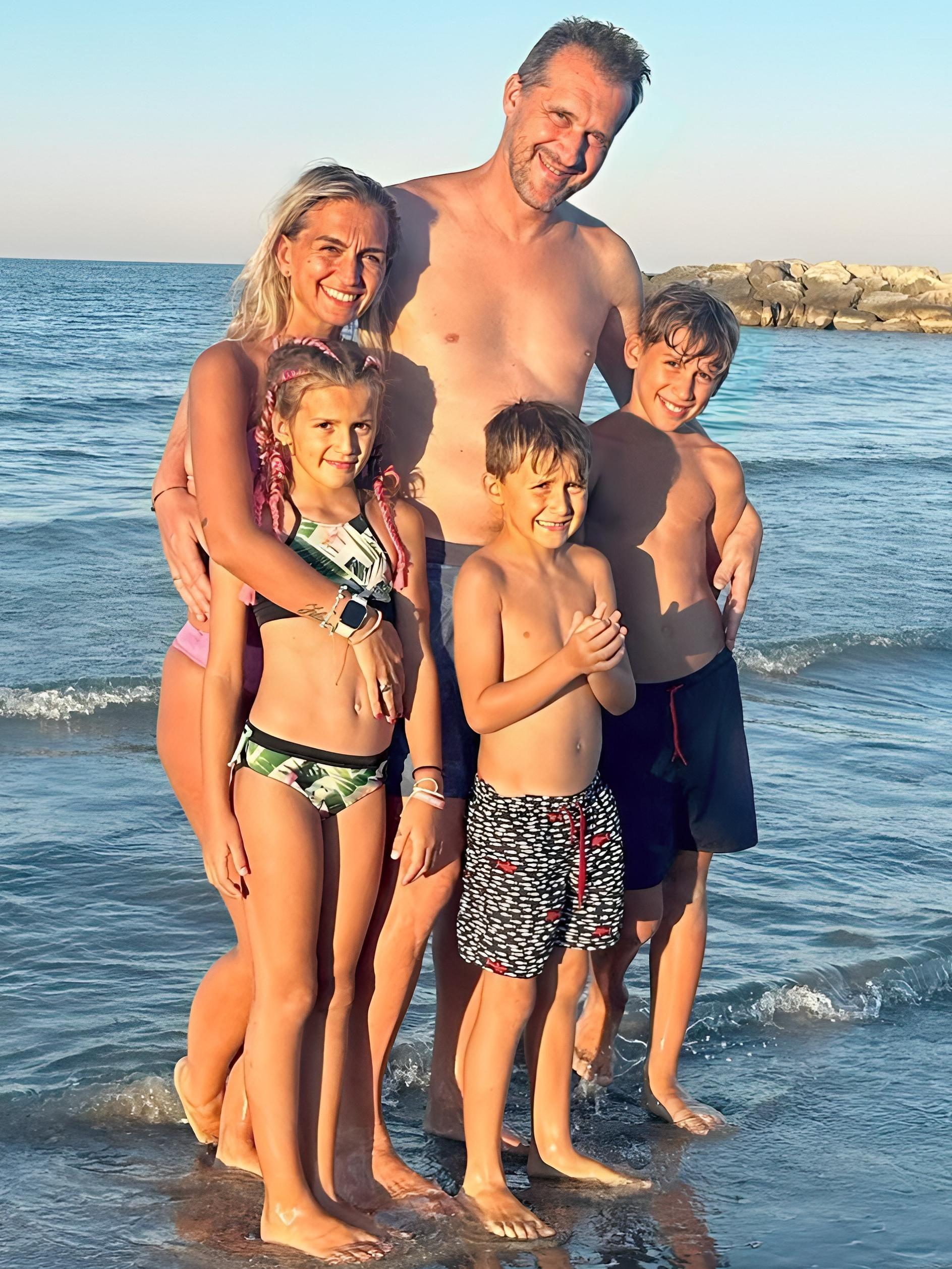
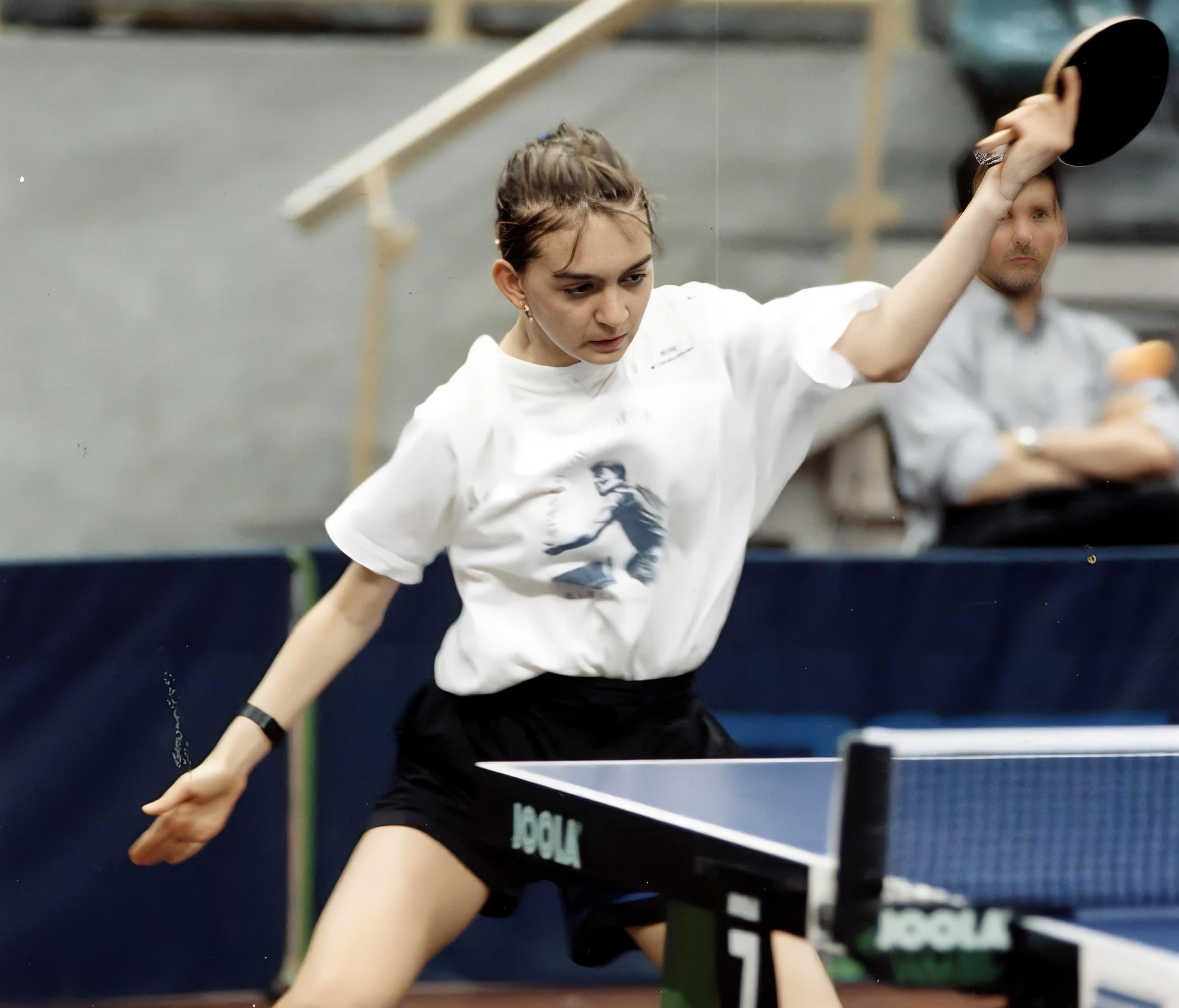
Stefanova was the key player, the only member of the team to play in every fixture; any doubts as to her presence were surely quashed, selection was merited.
“The most difficult thing is for me to handle the relationship with some players in the national team; not everyone can accept that a 39year-old woman, a mum, has the right to be a professional player even if she stopped for a while”, emphasised Stefanova. “Sometimes I feel not really understood.”
Stefanova is big supporter of women who believe in their dreams and is quite clear that there needs to be a change of thinking.
A difference of over a quarter of a century but some things remain the same.
left watched by her father, Stepan in 1998, the year she partnered Cornelia Vaida to cadet girls’ doubles gold at the European Youth Championships.
right team leader at the ITTF 2024 World Team Championships Finals.
“Somehow I have the feeling that the general mentality is like you are not allowed to have a second chance in life, I had my sporting career when I was 20 to 30 years old”, continued Stefanova. “Now I’m almost 40, thanks to our coach, Elena Timina, she trusted in my ability, I was given a second amazing chance in table tennis; I just feel some other Italian players think my time is gone and that if I am in the national team, it is like stealing a place from other younger players. I definitely think that if someone has enough good results it doesn't matter how old you are and if you are a mother.”
Elena Timina has a wealth of knowledge, her
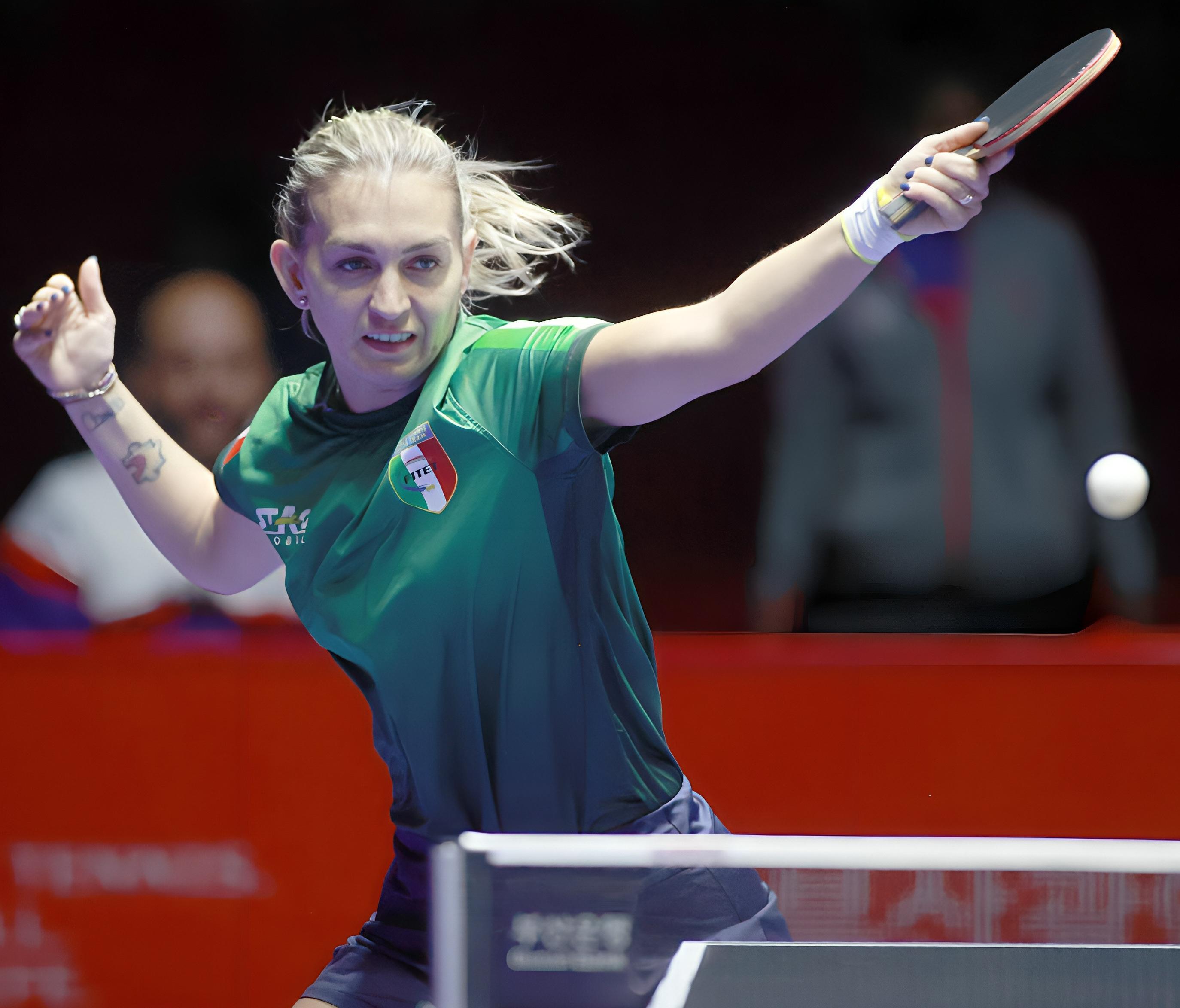
mental strength a hallmark of her play, a trait also evident as a coach; just look at her face when sitting courtside, watch her reactions, she sends one very clear message: “I want you to win”. She will give total support and stand by her decisions; furthermore, she will totally understand any dilemmas facing Stefanova.
Representing Russia in 1994 she was a member of the outfit that won the women’s team events at the World Cup in Nîmes and at the European Championships in Birmingham; also, in that year she married Dutch journalist Robert Misset and moved to live in the Netherlands.
The couple had two children, Andrej and Wera; after eight years away from table tennis she was invited to join the Netherlands’ team. Commencing in 2008, alongside Li
Elena gave me the second chance for one reason, because she really believed in the quality of my play, not just because we are friends; she has a very fair approach, she always tells me that I have to deserve my place in national team by producing high level performances
Jiao and Li Jie, they won the women’s team title at European Championships on four consecutive occasions.
“Elena gave me the second chance for one reason, because she really believed in the quality of my play, not
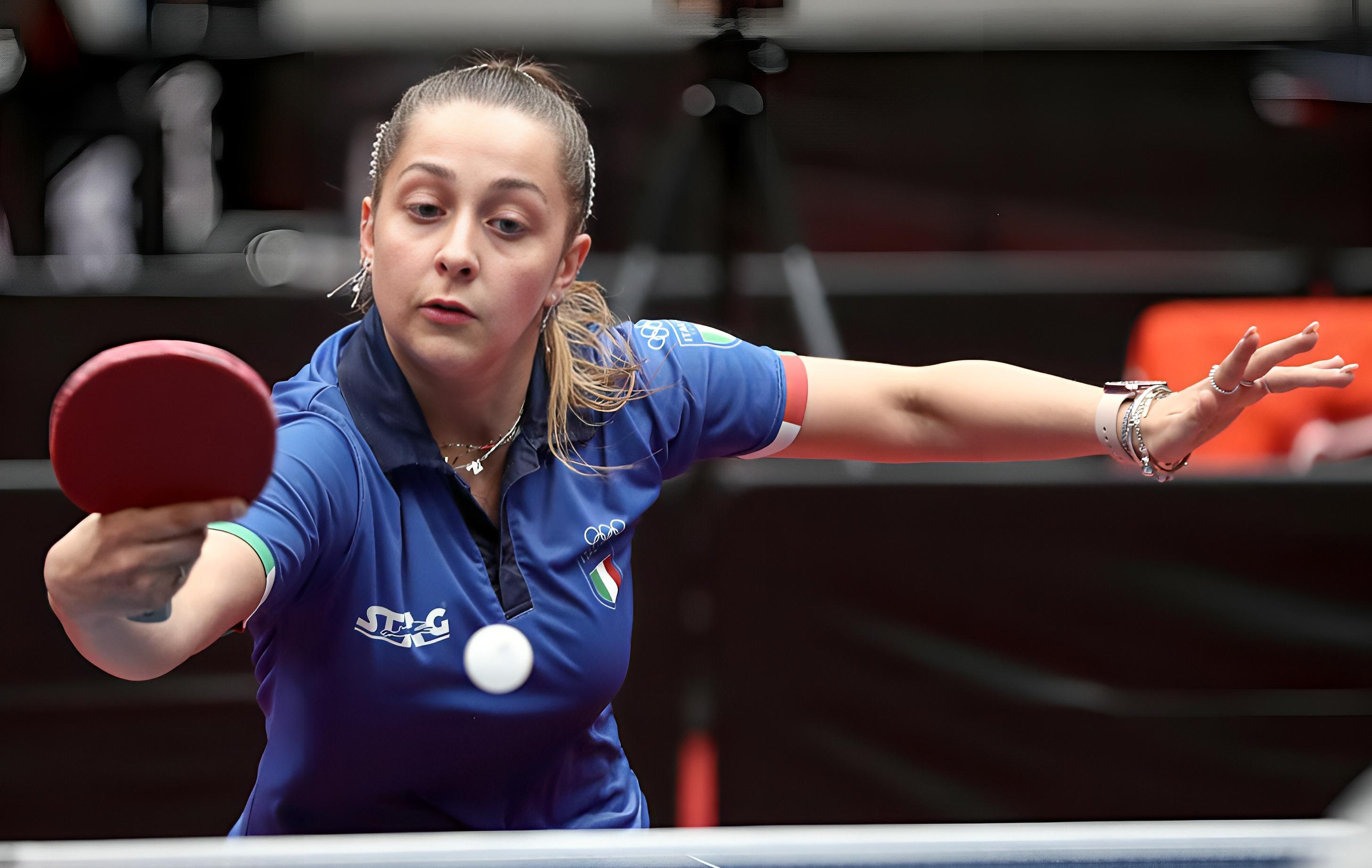
just because we are friends; she has a very fair approach, she always tells me that I have to deserve my place in national team by producing high level performances”, stressed Stefanova. “If sometimes I play badly she has no problem telling me straight, I respect her for this; more and more I believe you can always learn new things at every age, even at my age.”
The decision for a mother to return to elite level play was totally justified, the chance to return to the international scene for Timina being fully supported by her family; it is the same for Stefanova but with a twist, she was prompted by her family.
“My family was the reason for my return, one day by eldest son, Filippo told me he was very proud of my past table tennis achievements but had never seen me play and wanted to see my play”, reminisced Stefanova. “So, I decided to start again, I must admit I did miss playing.”
After an absence of some seven years, in 2022 she returned to action competing for Norbello in the second division of the Italian League, the club being located in Sardinia. Impressive performances, in June of that year she gained selection for the Italian team at the Mediterranean Games in the coastal Algerian city of
ABOVE
Nicole Arlia was resigned to the bench in Busan.
ABOVE RIGHT
Introductions before the first match in Busan. Watched by Nikoleta Stefanova centre, Gaia Monfardini left is introduced, Debora Vivarelli right completes the team.
Oran. Lining up alongside Nicole Arlia and Giorgia Piccolin, she guided Italy to women’s team silver.
One year later in Malmö, Sweden, at the 2023 European Team Championships, Stefanova underlined the fact her selection was more than merited. She lost just one match, that being at the quarter-final stage in a three-nil defeat against Germany, the champions elect. She was beaten by Han Ying.
Notably, one round earlier she had been the backbone of Italian success accounting for Hana Matelova and Zdena Blaskova in a threetwo win when facing the Czech Republic.
Imposing results, even more imposing in the group phase, she beat the highly rated Yuan Jia Nan in a three-one team defeat against France, before overcoming Sibel Altinkaya to lead Italy to a three-nil success in opposition to Turkey.
A return to the fold, selected to play in Busan, her performance in the Korean city was more than respectable, overall including the group stage and the opening round three-nil defeat against India, she won three of her seven matches.
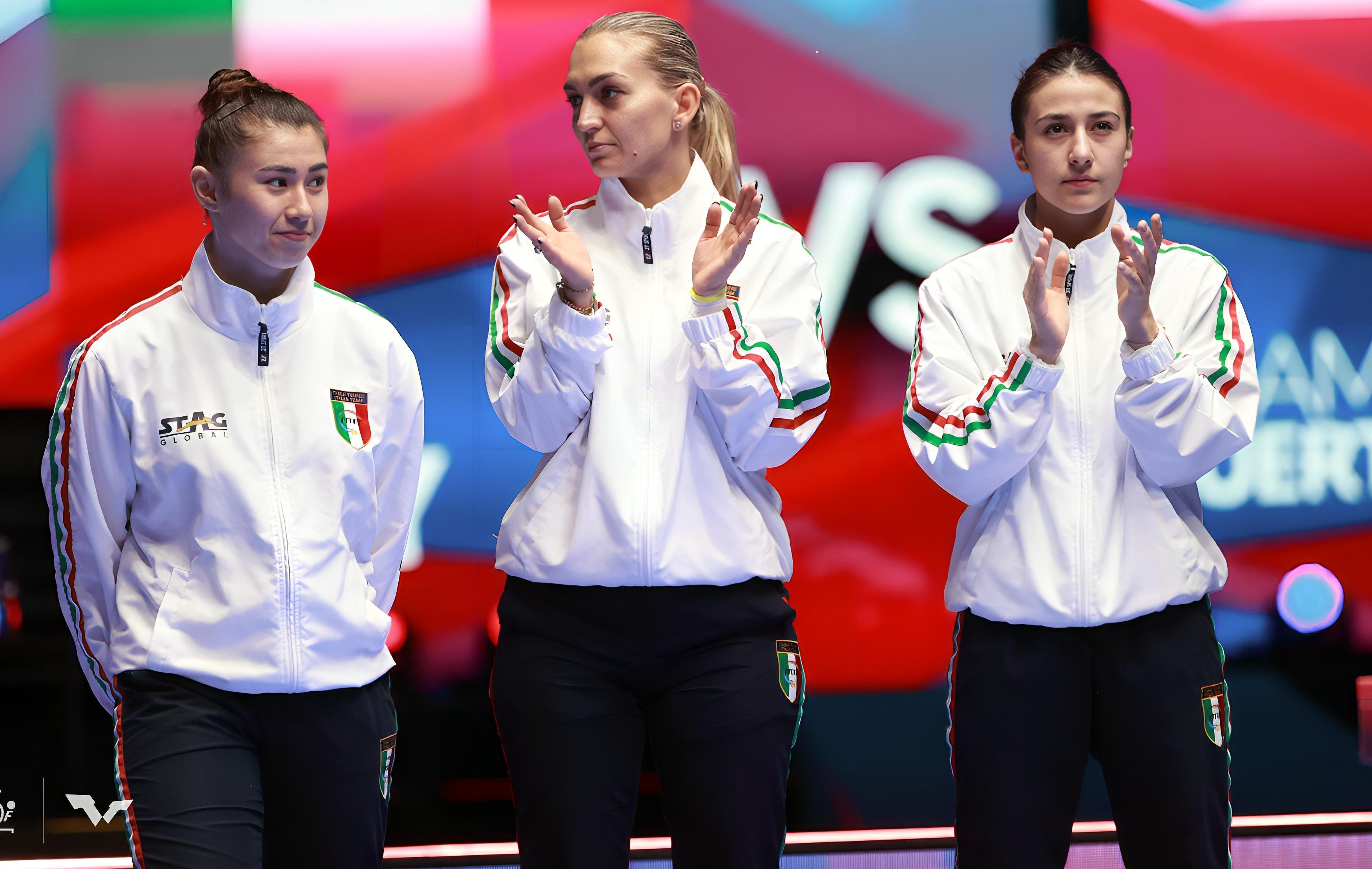
“I think I did my job. I beat lower ranked players but lost to the better ones”, explained Stefanova. “The only regret was the match against the Malaysian defender, Alice Chang; even though she was strong I thought I could have made it 2-2 and not lost 3-1”.
A second career for Stefanova who enjoys sport; experienced, she has a great deal to offer, a situation that might never have happened had it not been for table tennis generations earlier. She was born in Bulgaria, moving to Italy when three years old, originally living in the Sicilian city of Ragusa; the reason for the move was that her parents were invited to play in the Italian Table Tennis League.
“My father encouraged me to play, he was my first coach, I was five years old when I first played, we played on the living room table”, smiled Stefanova. “My first appearance for Italy was in 1994 at a youth tournament in Toscana.”
Progress quickly followed, in 1997 at the European Youth Championships in Toplocany, she was the cadet girls’ singles runner up, the following year in Norcia, the cadet girls’ doubles winner partnering Croatia’s Cornelia Vaida.
Further success ensued, the most memorable being securing the women’s team title at the 2003 European Championships in Courmayeur; Stefanova lined up alongside Laura Negrisoli and Wenling Tan Monfardini.
Notably Monfardini was also present in Moscow seven years later, a 17-year-old Debora Vivarelli, a completing the team; in Busan once again Vivarelli was on duty. In the opening fixture against Korea Republic the same names, the only difference being that the first name of
Nicole was very much the reserve player, but she understood my presence; always she supports me when I play, she really helps me
Monfardini was Gaia, the daughter of Wenling Tan. Joining forces with mother in one World Championships and then with her daughter in another surely gives Stefanova and Vivarelli a special place in the trivia archives of sport.
Now what lies ahead for Stefanova? She enjoys competing and intends to continue playing as long as mind body and soul permit; moreover, she could well be involved in table tennis for many years to come, her daughter Camilla, like mother left-handed had just started playing.
The family tradition is set to continue and one wonders how long before the names of mother and daughter appear in the same team?
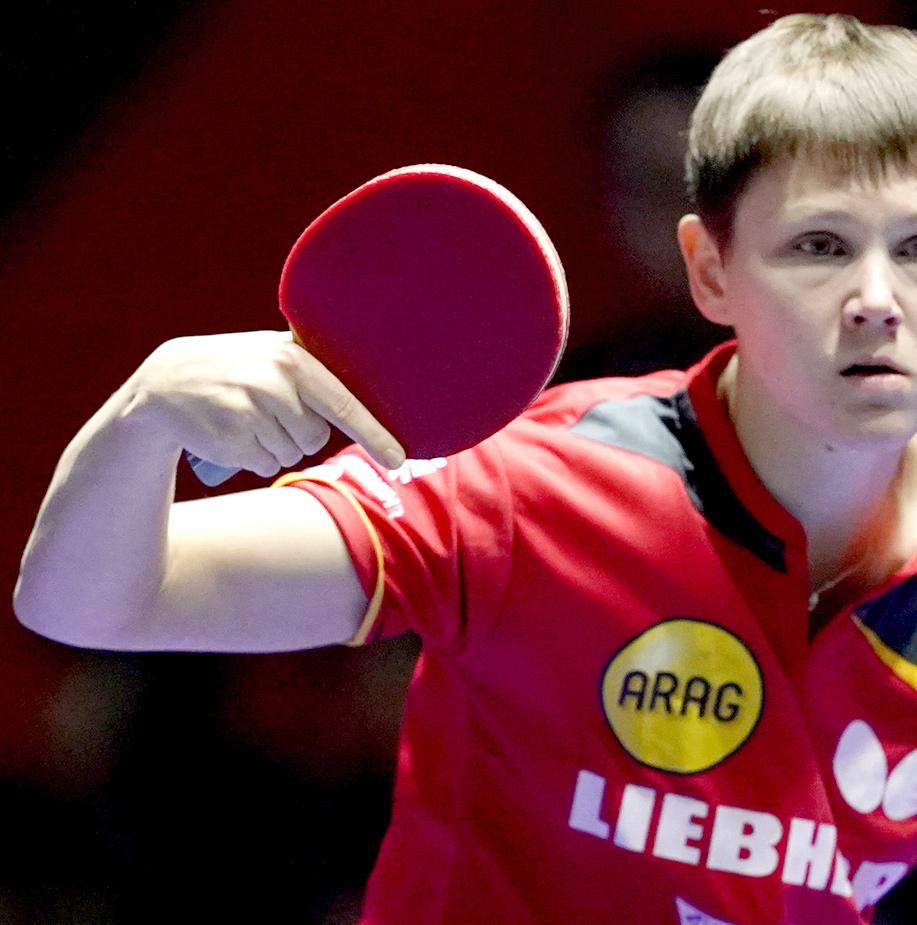
Sport presents hurdles upon hurdles to be overcome to reach a high level, one of the most career threatening is injury; more than one young person’s career has been ended in late teenage years but if there is one player above all others who has overcome such trials and tribulations, it is Germany’s Nina Mittelham.
Such pains as a stiff neck or twisted ankle do not even make the list, from a torn ligament in the right foot in 2011, the year she won the cadet girls’ singles title at the
European Youth Championships in Kazan, to most recently patellar tendionopathy in 2023, the clinical register resembles the pages of an overworked doctor’s itinerary.
Yet despite all the setbacks, Mittelham has shone through, more and more integral to German efforts at World Team Championships. On debut in 2016 in Kuala Lumpur she was very much the last reserve, the player who completed the squad; at the recent ITTF World Team Championships Finals 2024 in Busan she was the team leader.
Apprentice to Team Captain
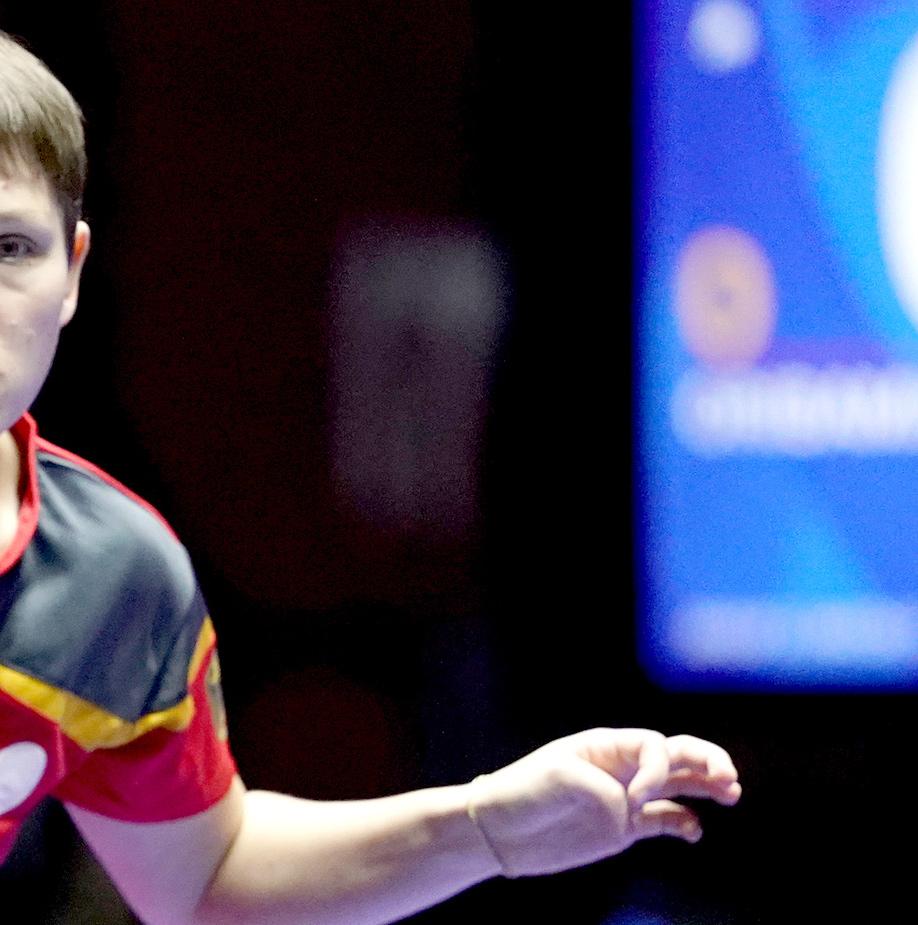
Moreover, in Busan she remained unbeaten, eight matches, eight wins; alas it was not enough to gain a medal, a three-two quarter-final defeat against France the outcome.
“Kuala Lumpur was my very first team competition in seniors and I knew upfront, that I would be number five and probably not get a chance to play”, reflected Mittelham. “Being part of the team meant learning from my teammates as well as experiencing the feeling of the importance of each match, it was really important for my
INJURIES
2008 - 2009 chronic inflammation in right knee
2011 torn ligament in right foot
2013 mononucleosis infectiosa
2013 - 2015 back injury, three lumbar punctures
2017 hip injury
2022 full tendon rupture right shoulder
2023 patellar tendionopathy in both knees
development. The experience of being surrounded by such a strong team was motivating and fuelled my ambition to secure a more active role in future competitions.”
In Kuala Lumpur she played just once, in a three-two win against Brazil, in the third match, she lost to Caroline Kumahara (now Luka Kumahara).
“Halmstad was the next step for me”, explained Mittelham. “After the European Team Championships in 2017, I
I was down two games to nil against Yang Haeun and not playing my best, I was struggling mentally, I managed to focus and play better. Eventually, I won, it was a huge win for me at the time; it reminded me that if I kept believing and trying, I could achieve a great deal.
had become a full-time member of the German senior team; this boosted my confidence.”
Ever more vital to her nation’s international success, in the west coast Swedish town, on each occasion playing the third match, two results in particular stood out; both in contests that eventually witnessed narrow margin three-two German defeats. In the last 16 against Austria she beat Amelie Solja in five games, earlier in the group stage, facing Korea Republic she had recorded a landmark win.
“The overall match score was tied at one-all; it was my turn to play, I was aware of the importance of a win for the team”, recalled Mittelham. “I was down two games to nil against Yang Haeun and not playing my best, I was struggling mentally, I managed to focus and play better. Eventually, I won, it was a huge win for me at the time; it reminded me that if I kept believing and trying, I could achieve a great deal.”
Overall, in Halmstad, Mittelham lost just one match; she was beaten in the initial phase by Doo Hoi Kem when opposing Hong Kong.
Mittelham was becoming ever more established in the team, Han Ying and Shan Xiaona the leading names. In Chengdu two years later, a tournament far different from any other owing to the restrictions imposed by COVID-19, she had most knowledgeable support.
“My teammates were much more experienced than me; however, I had played numerous matches, being part of a team with such great teammates, I never felt pressure”, added Mittelham. “To be honest, it rather relieved the pressure, I knew I could always rely on them, this allowed me to play more freely; also, they shared experiences with me and supported with advice in difficult situations, this helped me a lot.”
Withstanding pressure, that was to be the key factor in Chengdu. She won the vital match that was to realise the target.
“Chengdu was an incredible experience; we went there with one goal: to win a medal, when I started playing, I didn’t feel like I was performing at my best; reflected Mittelham. “This was really disappointing for me; however, my teammates believed in me and supported me in an unbelievable way, that helped me stay mentally strong.”
In the group stage she won three of her four matches; against India she was beaten by Sreeja Akula but then recovered to overcome Manika Batra. Facing Egypt she accounted for Mariam Alhodaby, in opposition to the Czech Republic, she defeated Hana Matelova.
First place in the group, through to the last 16, against Puerto Rico, in a three-one team win she was beaten in the opening contest by Adriana Diaz.
A medal was now at stake; facing Hong Kong, she lost to Zhu Zhengzhu, Han Ying and Shan Xiaona won one each; at two-all, the deciding match, Nina Mittelham faced Minnie Soo Wai Yan, the victor earlier in the fixture when opposing Han Ying.
“In the quarter-final, playing the fifth and final match for my team after losing the first match was tough; I was under a great deal pressure because I had the chance to win a medal for my team and for Germany after more than ten years” recalled Mittelham.”I was quite nervous and a bit stressed, but I focused on the basics and kept collecting points until I won; it might not have been my best win ever, but it was definitely the most important of my career.”
Maybe not the pinnacle, but it gave Germany a precious medal, the semi-final was a three-nil defeat against Japan, Mittelham losing in five games to Hina Hayata in the opening contest.
“It was the first match, I started to play really free, at two games all I was leading 5-1, I became nervous and at the end way too passive” sighed Mittelham. “I think if I would have played till the end, I would have won that match, maybe me and my team needed to believe more in ourselves that we could give Japan a real fight.”
Experience growing, in Busan no Han Ying, recovering from surgery, Mittelham was the player on whom eyes focused. Furthermore, as the year began, she had performed creditably, in January she had reached the Europe Top 16 semi-final stage in Montreux and had been the runner up at the WTT Star Contender Goa. On both occasions she lost to most creditable adversaries, in the former to Austria’s Sofia Polcanova, in the latter to Chinese Taipei’s Cheng I-Ching.
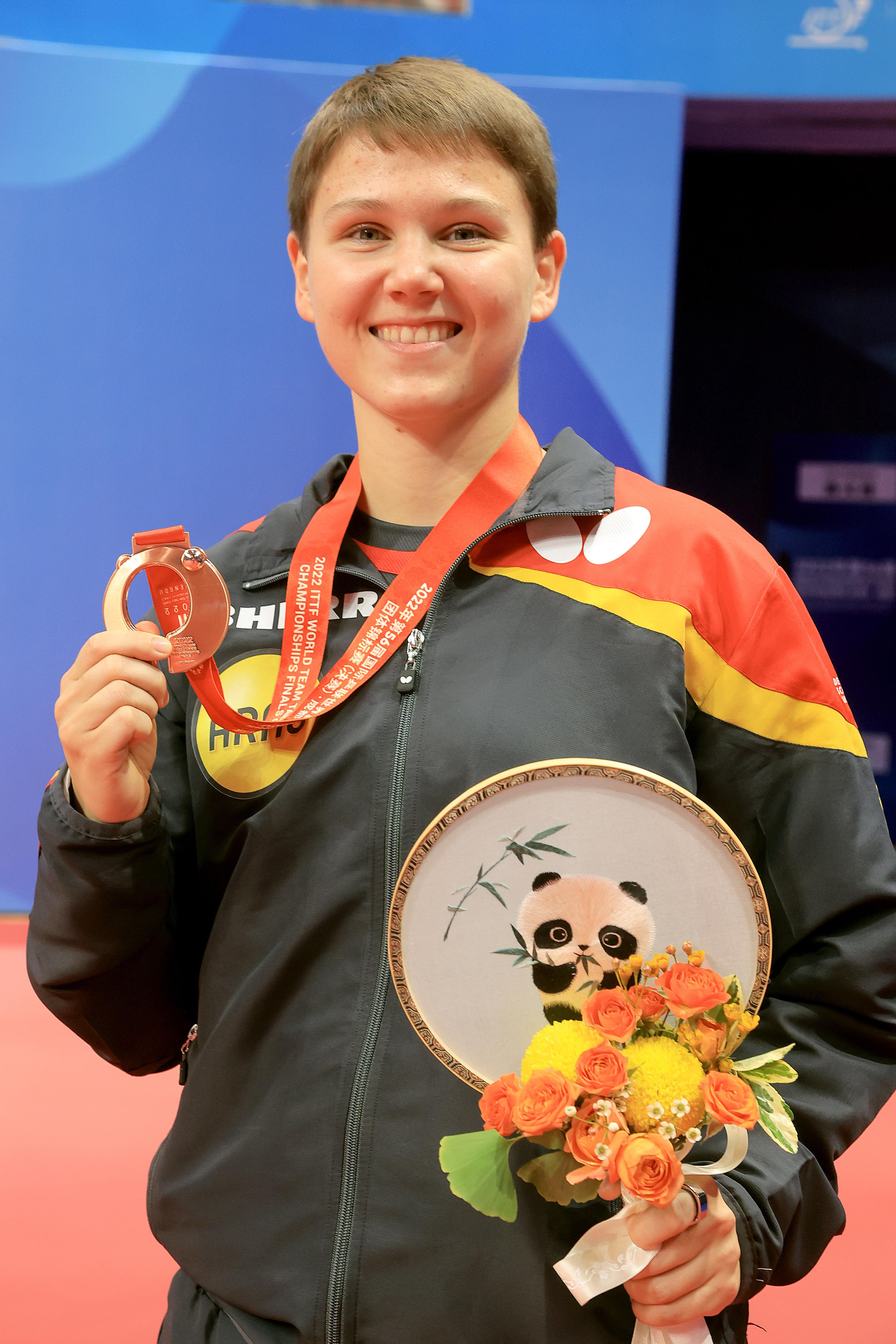
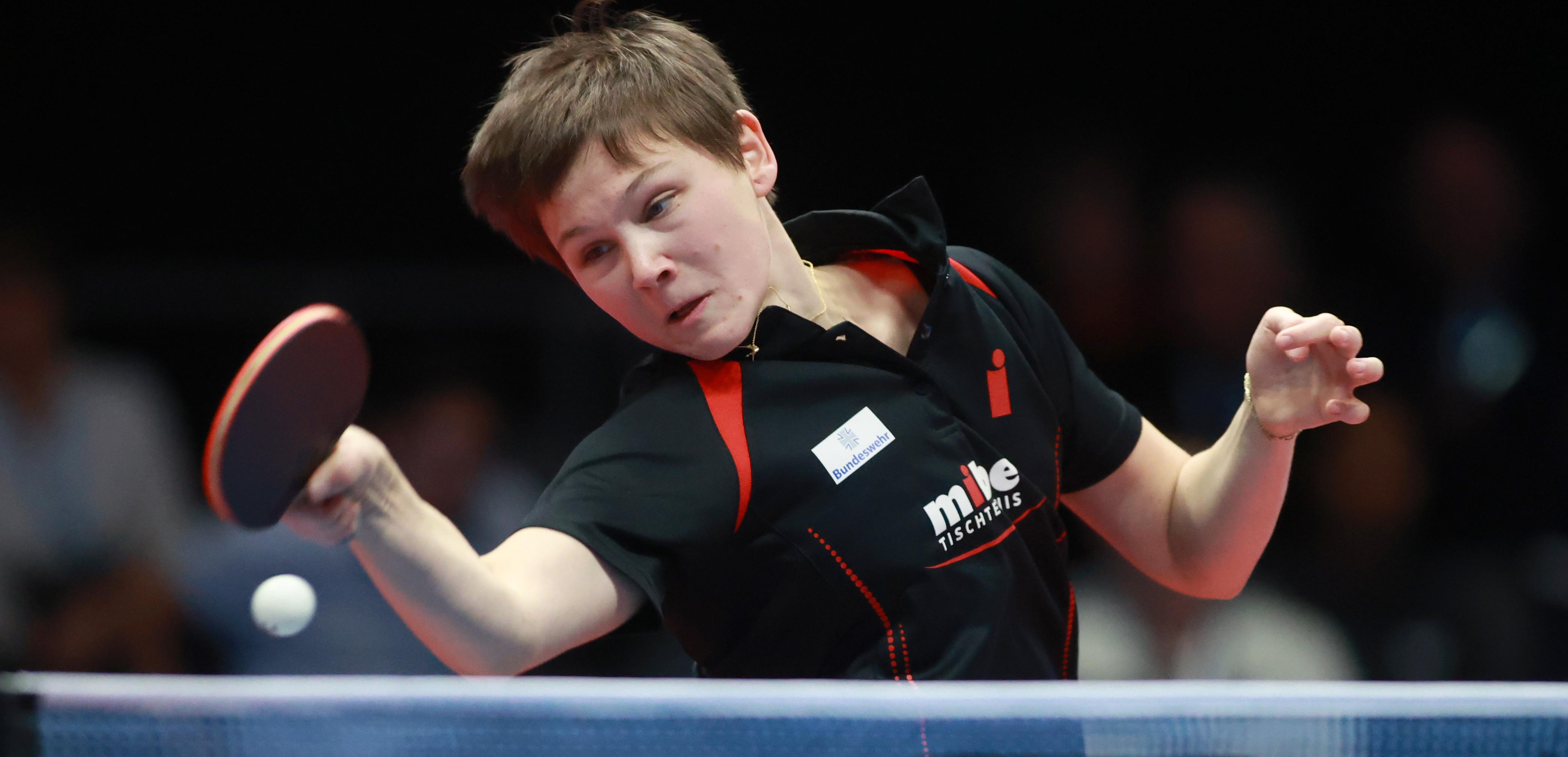
Sure, being named the team leader and number one player for the first time was a big deal for me. I received a lot of attention from the German media, journalists asking how I felt and how I planned to handle the new role
“I believe I had really good preparation for the second half of the season, I made the decision to skip the WTT tournaments in Qatar, giving myself extra weeks to train for the European Top 16 and the Star Contender in Goa”, reflected Mittelham. “Looking back, it's easy to say it was the right decision, at the time, many people doubted this choice, I felt physically strong and sensed improvement in my game; as a result, I'm pleased with my performance and the outcome.”
A brave decision which bore fruit, Mittelham knew her mind and underlined the fact that if you are to succeed in sport you must be mentally strong. Notably in Goa, at the semi-final stage she beat Korea Republic’s Shin Yubin, at the time listed in eighth position on the Women’s Table Tennis World Rankings.
“Winning against a top 10 player for the first time, excluding Han Ying my teammate, was a significant achievement for me”, explained Mittelham. “It boosted my confidence, and it made me a little bit proud, too; overall, I'm happy with my results and the way I played during this period.”
In Busan, Mittelham was the leading name in the German team, it was a very different situation to previous experiences, she was the player required to set the example.
“Sure, being named the team leader and number one
Date of Birth: 23rd November 1996
Residence: Willich
Club: Berlin Eastside
Coach (national team): Tamara Boros
Coach (personal): Jörg Bitzigeio
Racket blade: Mibe special ST
Forehand Rubber: Dignics 05
Backhand Rubber: Dignics 05
Sponsors: Mibe Tischtennis, German army

player for the first time was a big deal for me. I received a lot of attention from the German media, journalists asking how I felt and how I planned to handle the new role”, said Mittelham. “This did create some extra pressure on me, for sure. I also had high expectations for myself in terms of fulfilling my role effectively. Looking back, I think I did a great job.”
An understatement to say the very least, certainly it was a great job; one that following the opening exchanges, was not necessarily to be predicted. In the opening contest against Poland, she needed the full five games to beat both Katarzyna Wegrzyn and Natalia Bajor.
“The first matches at a tournament are always the most difficult ones and playing against Poland was no exception, they delivered a strong performance; personally, I didn't feel at my best at the table, I was moving slowly and struggling to find my rhythm from the start”, recalled Mittelham. “Also, I added pressure on myself as I didn't want to let my team down in my role as team leader, especially in the very first match; my opponents were playing very well building up pressure on me, but I refused to give up and focused on staying calm and giving it my best; after this I was able to play freer and improve my performance.”
Worthy opponents, equally in the round of 16, Sweden’s Christina Källberg extended Mittelham the full distance, again Mittelham prevailed.
“I led two games to one and 10-7, three match points and lost, at that point, I decided to stay calm, focus on my tactics, and play more aggressively. I had lost my last encounter against her, so I knew I had to stay fully focused”, explained Mittelham. “However, my performance was inconsistent, I was playing well one moment and then struggling the next; I knew if the match was to be
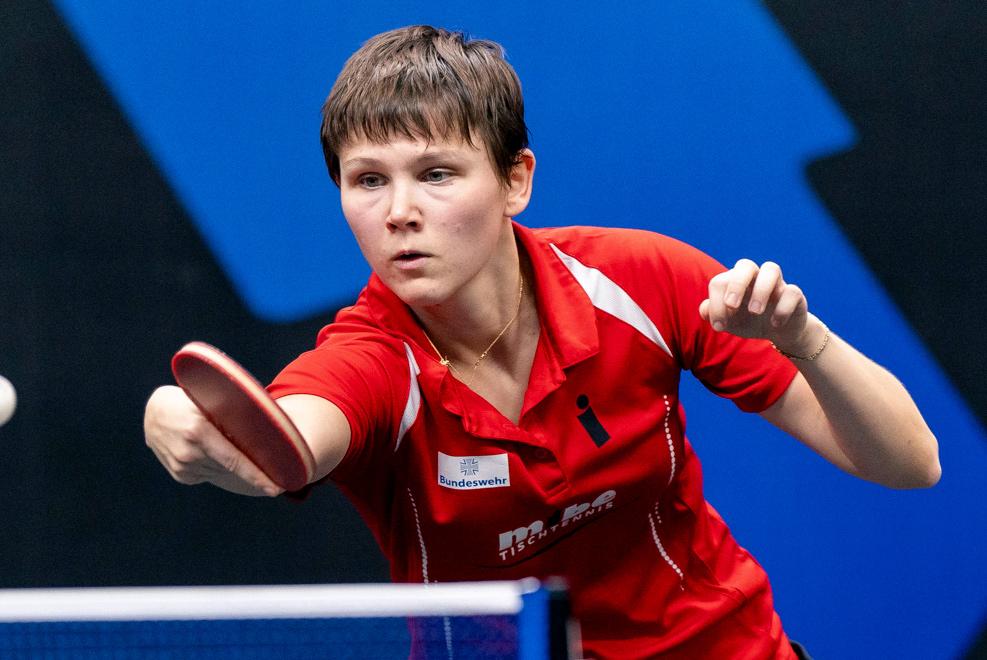
really close I would win. Mentally, I felt very strong throughout the whole tournament in Busan.”
A place in the last eight, a three-two defeat against France, wins for Mittelham in five games against Prithika Pavade, one less when facing Yuan Jia Nan.
“I think what made playing against Pavade difficult was it was our first head-to-head, we only knew each other from some practice sessions, in the opening match Shan Xiaona had lost to Yuan Jia Nan, we were one-nil down”, explained Mittelham. “If I could win, it would give Sabine (Winter) more confidence in the next match.”
Winter was beaten by Charlotte Lutz in four games.
“Against Yuan I was really confident as a result of previous matches; I think we had played four times before and I always won in the deciding game”, smiled Mittelham. “Honest to say they were always really close, I probably stole two of these matches from her; physically and mentally I was on a high, I managed to play my tactics from the first ball and had a really good match plan.”
Without doubt Mittelham, a reserved character, proved a fine team leader.
“Handling all the pressure and responsibilities that came with the role was tough, but I managed to do it. Also, I think, finishing fifth at the Worlds is not bad at all”, concluded Mittelham. “I'm incredibly grateful for the experience, I played at a decent level and improved a lot, especially in difficult situations; of course, leaving with but a medal wasn't what I had hoped for but I gave it my all, we'll aim to do even better next time.”
Injuries overcome, from rookie to team captain, the journey complete.
WORLD TEAM CHAMPIONSHIPS
2016 Kuala Lumpur
Group: 3-2 Brazil
v Caroline (Luka) Kumahara 6,-10,-7
2018 Halmstad
Group: 3-0 Brazil
v Jessica Yamada 9,5,-8,5
Group: 2-3 Korea Republic
v Yang Haeun -4,-7,7,6,5
Group: 1-3 Hong Kong
v Doo Hoi Kem -7,-5,-5
Group: 3-0 Luxembourg
Danielle Konsbruck 6, -9, 5,- 9, 6
Group: 1-3 Thailand
v Tamolwan Khetkhuan 5, 2, 5
Round of 16: 2-3 Austria
v Amelie Solja 9, -8, 8, -7, 6
2022 Chengdu
Group: 3-2 India
v Sreeja Akula -9,-10,-7
TOP LEFT
A semi-final finish at the Europe Top 16 Cup in Montreux.
TOP RIGHT Runner up at the Star Contender Goa.
v Manika Batra -7,6,7,8
Group: 3-0 Egypt
v Mariam Alhodaby 12,11,3
Group: 3-0 Czech Republic
v Hana Matelova -8,7,9,6
Round of 16: 3-1 Puerto Rico
v Adriana Diaz -6,7,-7,8,-4
Quarter-final: 3-2 Hong Kong
v Zhu Zhengzhu -3,-5,13,-5
v Minnie Soo Wai Yam -9,11,5,5
Semi-final: 0-3 Japan
Hina Hayata 9,-3,6,-6,-8
2024 Busan
Group: 3-1 Poland
v Katarzyna Wegrzyn -7,8,-6,5,10
v Natalia Bajor -6,8,9,-5,8
Group: 3-0 Mexico
v Clio Barcenas -5,4,3,2
Group: 3-0 Nigeria
v Esther Oribamise 8,5,2
Group: 3-0 Slovakia v Adriana Illasova 4,3,5
Round of 16: 3-0 Sweden v Christina Källberg -7,9,5,-10,5
Quarter-final: 2-3 France v Prithika Pavade 7,-6,9,-1,7 v Yuan Jia Nan 8,6,-4,7
Mental Resilience Proves Key Requirement
Two titles, a career defining win and a member of a team that secured a place in the Olympic Games, all in a period of less than three months, to say the least, not a bad start to the year!
It is the start made by India’s 25-year-old Sreeja Akula, at WTT Feeder tournaments she won the women’s singles in January in Corpus Christi, repeated the feat in March in Beirut; sandwiched in between in February, she caused a major upset at the ITTF World Team Championships Finals by beating China’s Wang Yidi. One week after the curtain closed in Busan, the good news continued, as a result of World ranking, a place for India was confirmed in the women’s team event at the Paris 2024 Olympic Games.
Throughout one factor shone above all others, a strong mind.
“In Corpus Christi I believe my mental resilience and ability to perform under pressure were particularly strong”, explained Akula. “I was able to stay focused and execute my game plan effectively, this contributed to my overall performance in the tournament.”
Furthermore, she had good support both present and distant.
“My coach Mr. Somnath Ghosh guided me day and night over video calls, he helped me to plan strategies to face my opponents”, explained Akula. “Also, my sister and my brother-in-law were actually present, they supported me throughout the tournament, this boosted my morale. I was mentally in a very good space during the tournament, I think this was the key factor.”
Also, my sister and my brother-in-law were actually present, they supported me throughout the tournament, this boosted my morale u
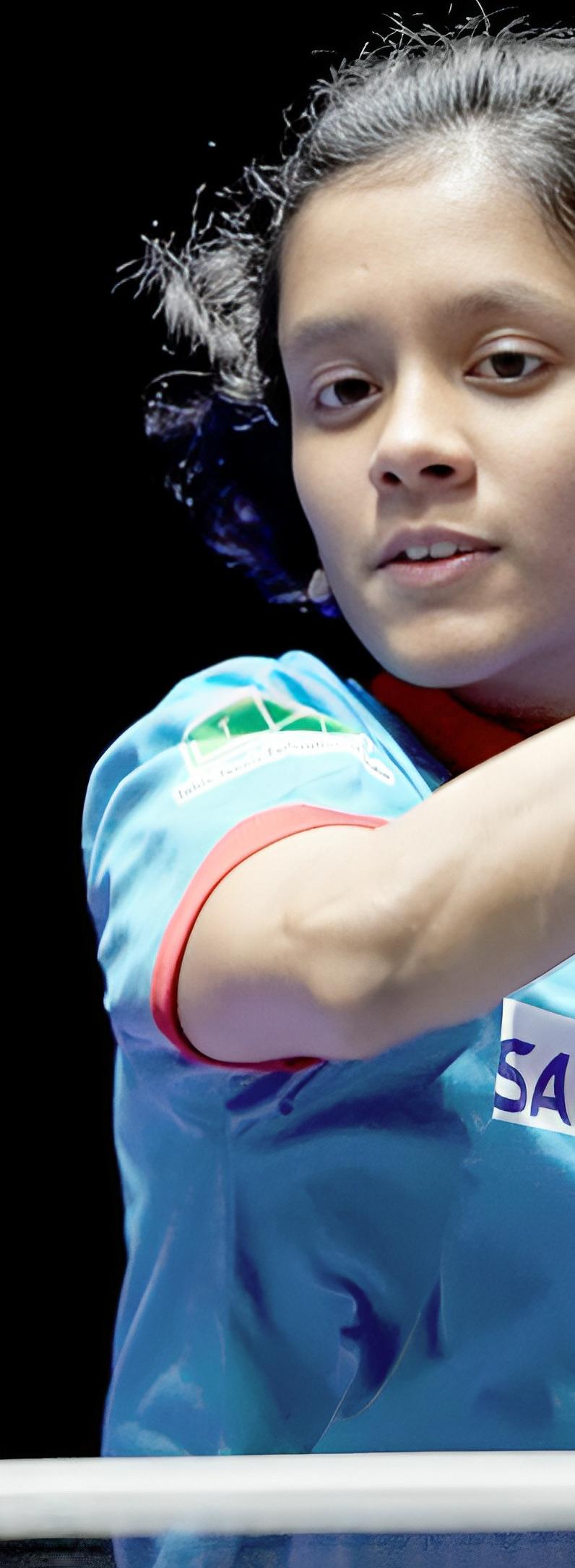
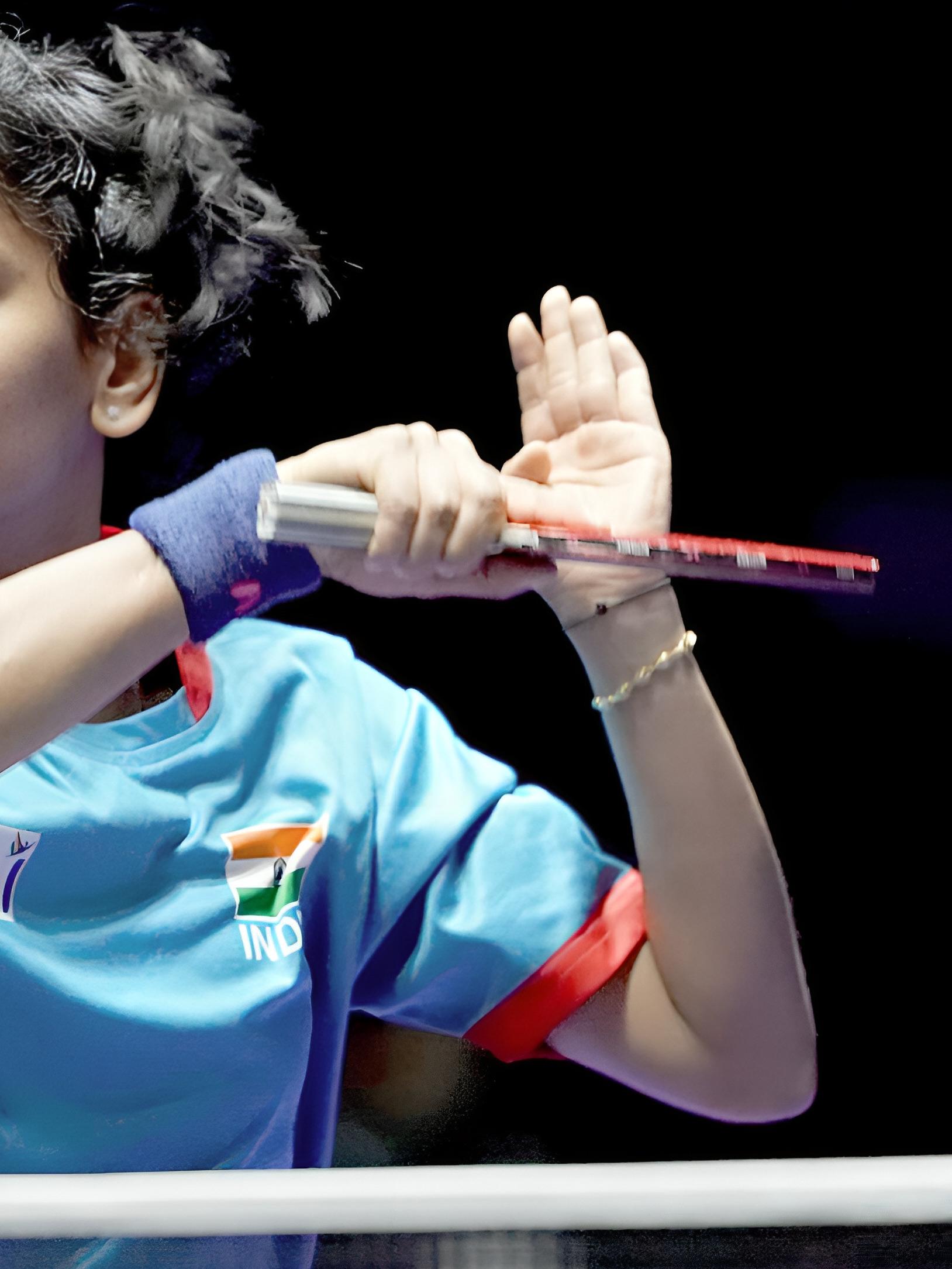
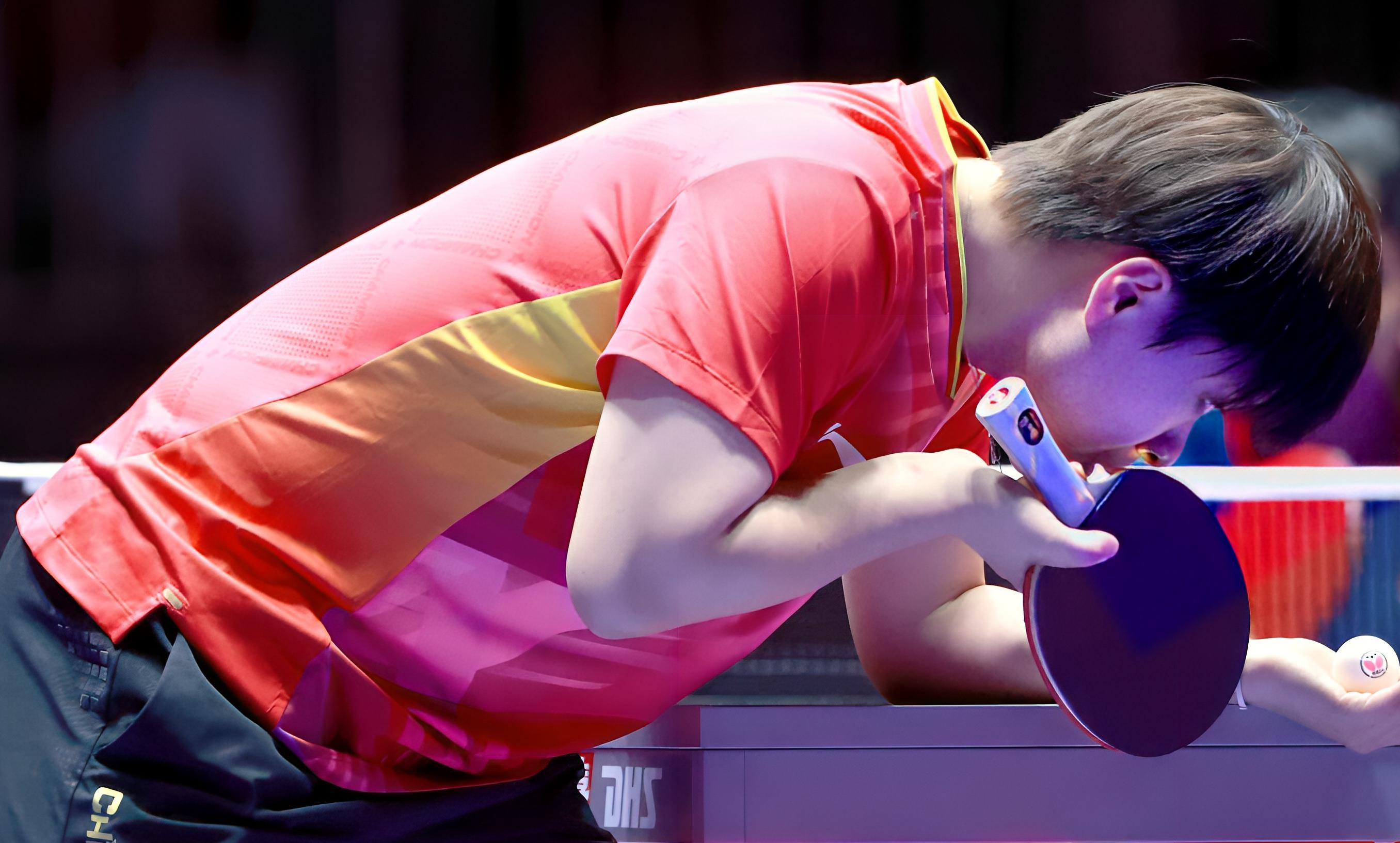
Certainly, mental stability was essential in Corpus Christi; at the quarter and semi-final stages respectively, the host nation’s Amy Wang and Jiangshan Guo extended Akula the full five games distance, the verdicts being decided by the minimal two-point margin on each occasion.
Undoubtedly, those close wins gave Akula a major boost; in the final she dominated from the very start, she accounted for a third Ameri can in succession, she beat Lily Zhang in straight games.
“The matches against Jiangshan Guo and Amy Wang were challenging due to their strong playing styles and tactics”, reflected Akula. “They forced me to adapt quickly and make strate gic decisions under pressure, those matches were particularly tough.”
Most importantly, the win in Corpus Christi added to the confidence bank, as did her performance two weeks later at the WTT Star Contender Goa; she beat both Egypt’s Hana Goda and Hong Kong’s Doo Hoi Kem, before experiencing a penultimate round defeat when facing Cheng I-Ching, the champion elect.
“I was able to maintain the momen tum in the match against China at the
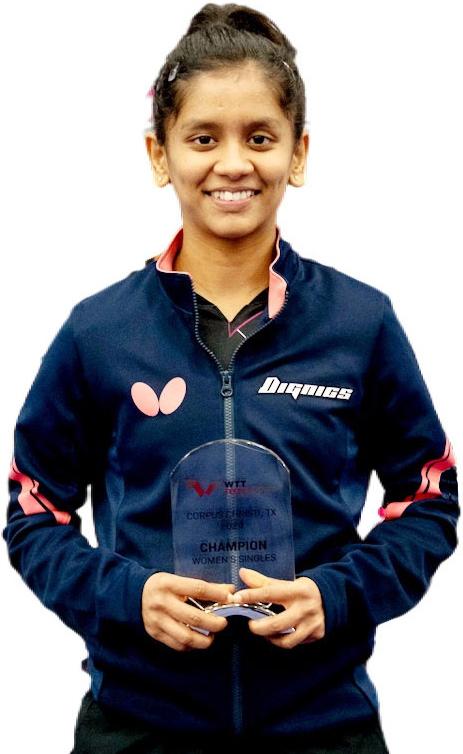
World Team Championships”, continued Akula. “Wang Yidi is a highly talented player, as a lower ranked player, I did not have any high expectations playing against her, I made up my mind to give my best, utilise the opportunity without expecting any outcome from the match; also, Mr. Somnath Ghosh’s guidance greatly helped me.”
Again, mental attributes played a part, on the verge of a career best win, seeing the finishing line, more than one player has panicked, wilted; Akula remained focused.
“I didn’t feel nervous, I had won the first two games”, said Akula. “I wanted to finish off the game desperately so that Wang Yidi did not get a chance to bounce back.”
The finishing touches were applied as they were in the contest that brought the initial phase to a conclusion.
Matters level against Spain, in the fifth and deciding match, Akula faced Sofia Xuan Zhang, she won in four games, thus securing second position in the group. Had she not won the match, India, Hungary and Spain would have been level on six points; the agony of counting the results between the three teams, to decide the two names to join China in the main draw, would have been needed.
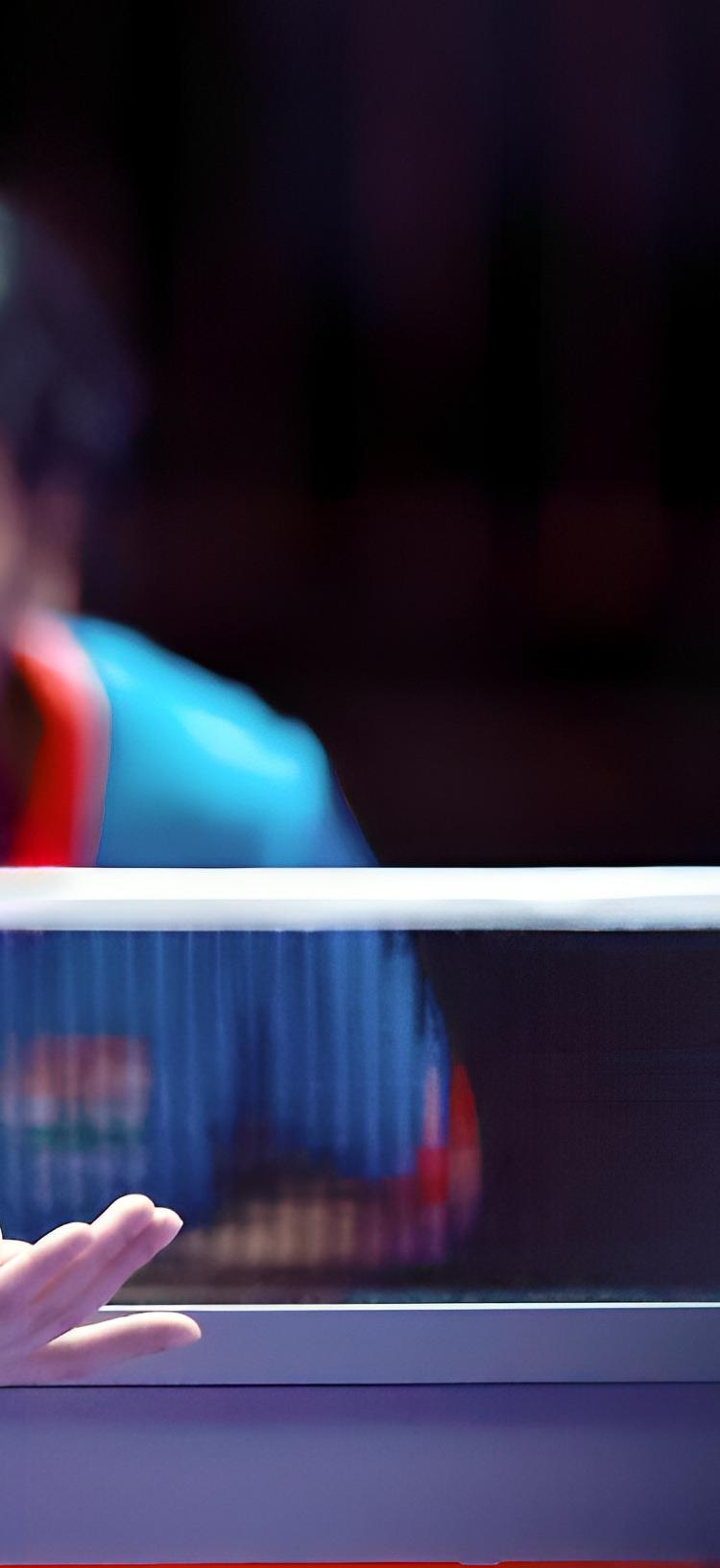
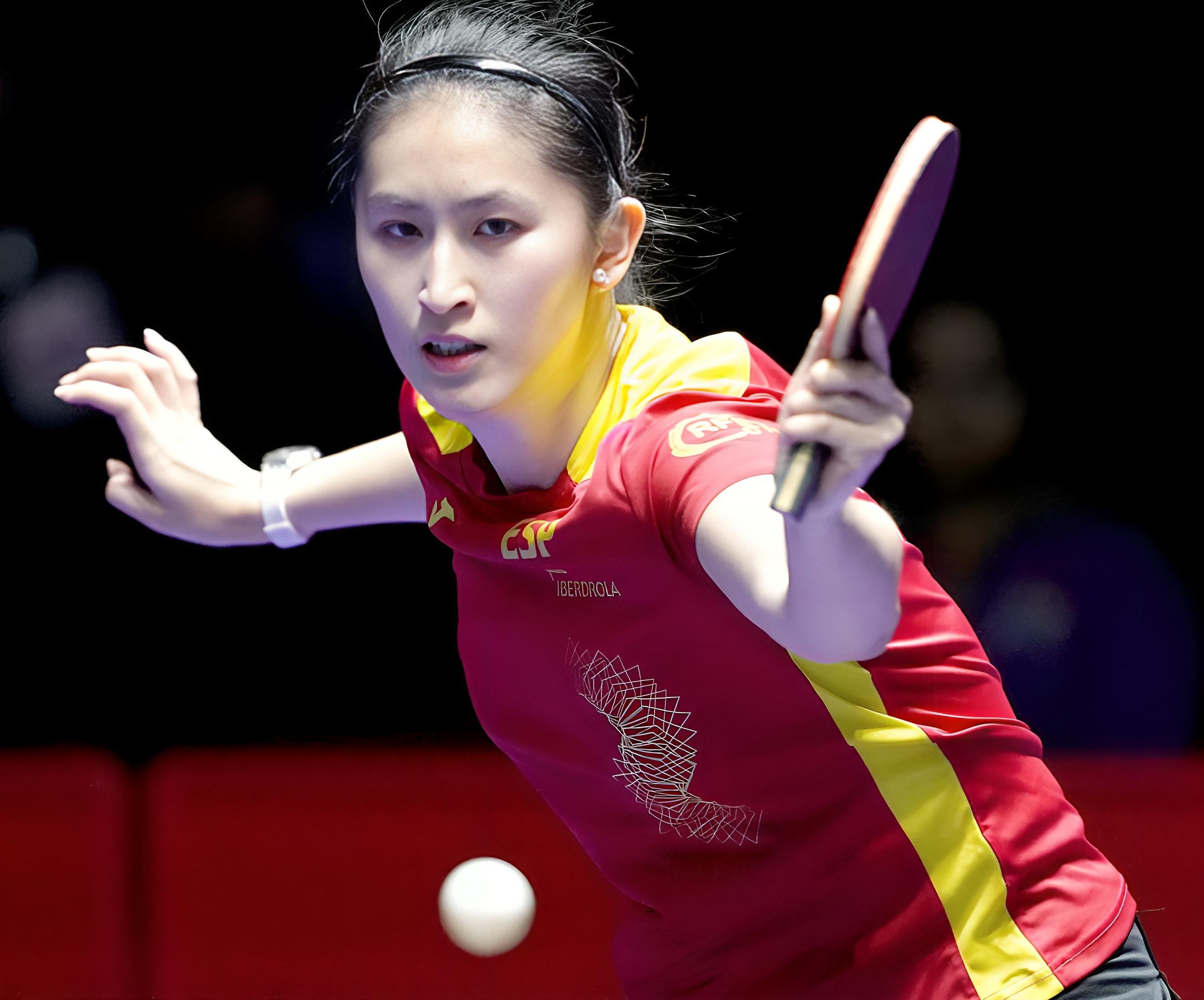
“There was indeed some pressure, in the previous match Sofia-Xuan Zhang had beaten Manika Batra, winning the match was crucial for getting India to the main draw, after I won the first game, I felt confident”, explained Akula. “I play my best under pressure and when times are tough, I closely watched the match between Sofia-Xuan Zhang and Manika Batra, took some inputs from that match and applied in my match; this made me confident and comfortable in tackling her and eventually winning.”
Yet another fine performance, a consistently high level being achieved; a fact she displayed soon after at the Singapore Smash; in the opening round she extended China’s Wang Manyu the full five games distance.
“My confidence level, focus and determination made it possible to achieve upsets”, stressed Akula. “My coach Mr. Somnath Ghosh was also present for this match; his guidance has helped me a lot. I played aggressively and fought for every point which kept Wang Manyu under pressure.”
Week after week responding, after such a series of outstanding efforts, more coaches scrutinising her play, surely a dip in form could have been anticipated.
Not at all, it was quite the opposite, in late
TOP LEFT
Facing Wang Yidi at the ITTF World Team Championships Finals, Sreeja Akula won in straight games.
TOP RIGHT
The win against Sofia-Xuan Zhang in Busan was crucial; a main draw place secured.
LEFT
The award ceremony in Corpus Christi, the women’s singles winner.
RIGHT
En route to the women’s singles title in Beirut.
March she triumphed in Beirut, Chinese Taipei’s Liu Hsing-Yin the only player to extend Akula the full distance.
“My quarter-final match with Liu Hsing-Yin was tough; I won the first game but then lost the second and third; thankfully, I bounced back and won both the fourth and fifth”, recalled Akula. “My recent performances and good results in Corpus Christi, Goa and the World Team Championship had largely boosted my confidence levels; also, guidance from my coach Mr. Somnath Ghosh helped me in the implementation of my game plans from the very first match to the very last.”
After accounting for Liu Hsing-Yin, Akula beat Korea Republic’s stylish defender, Suh Hyowon before sealing the title at the expense of Lux embourg’s Sarah de Nutte, each victory secured in four games.
Major successes, a period in time which when she
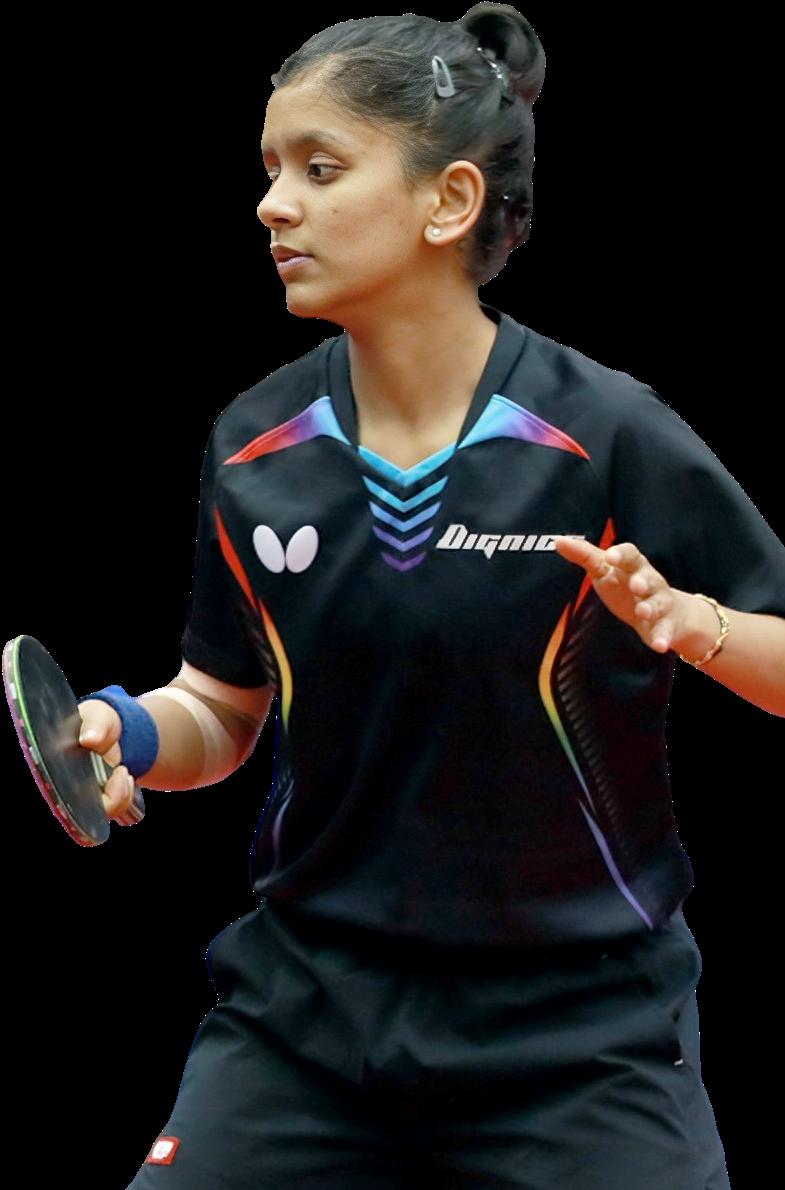
looks back in years to come will be strong in her memory, as will be the Birmingham 2022 Commonwealth Games, a tournament in which she faced the two great imposters, triumph and disaster.
She was beaten in the women’s singles bronze medal match by Australia’s Yangzi Liu.
“Reaching fourth place in the women singles taught me the importance of resilience, strategic planning and mental toughness”, said Akula. “It highlighted areas of improvement and motivated me to train harder to complete at the highest level and also gave me the belief that I can beat anyone if I keep on improving.”
A harsh lesson, one step short of a medal, but there was no room for self-pity; it was vital to recover and recover quickly, alongside Sharath Kamal Achanta, she was on duty in the mixed doubles final. They faced Malaysia’s Javen Choong and Karen Lyne, four games win the verdict.
“Mr. Sharath Kamal Achanta pacified and motivated me, he helped me in recovering my fighting spirit which contributed to the success in winning the gold medal; his experience, invaluable guidance and mentorship were instrumental in bringing out my best”, reminisced Akula. “Winning a gold medal in the mixed doubles event, standing on the podium along with the legend, Mr. Sharath Kamal Achanta, and watching our national flag rise high was a most memorable moment.”
An occasion to savour, the result of an inspired move by Somnath Ghosh, a player from the same generation as Achanta, the pair had competed as a men’s doubles combination, to pair Achanta and Akula was his brainchild.
“We decided to be mixed doubles partners in May 2022 about two and a half months before the Games; in the beginning Sreeja was very shy and timid which made it a bit difficult for me to break the ice”, reminisced Achanta. “Thanks to the help of her coach and Ms. Gayatri Varthak, our mental coach, we slowly started to understand and construct our game accordingly.”
Good players adapt, Akula adapted.
“She grew from strength the strength, in the final, I didn’t really have to do much as she was dictating terms”, continued Achanta. “I had never seen Sreeja play at the level she did in both singles and doubles, for sure I’m really glad to have been her partner.”
Success, a reward for dedication, commitment and self discipline.
“My routine starts at 6.00 am daily, morning from 7.00 am to 8.30 am, I do my fitness, followed by practice on the table for three hours from 9.00 am to 12.00 noon”, explained Akula. “My second session is from 4.00 pm to 8.00 pm; this consists of skill practice followed by ontable training.”
The focus is total, support from the family enabling her
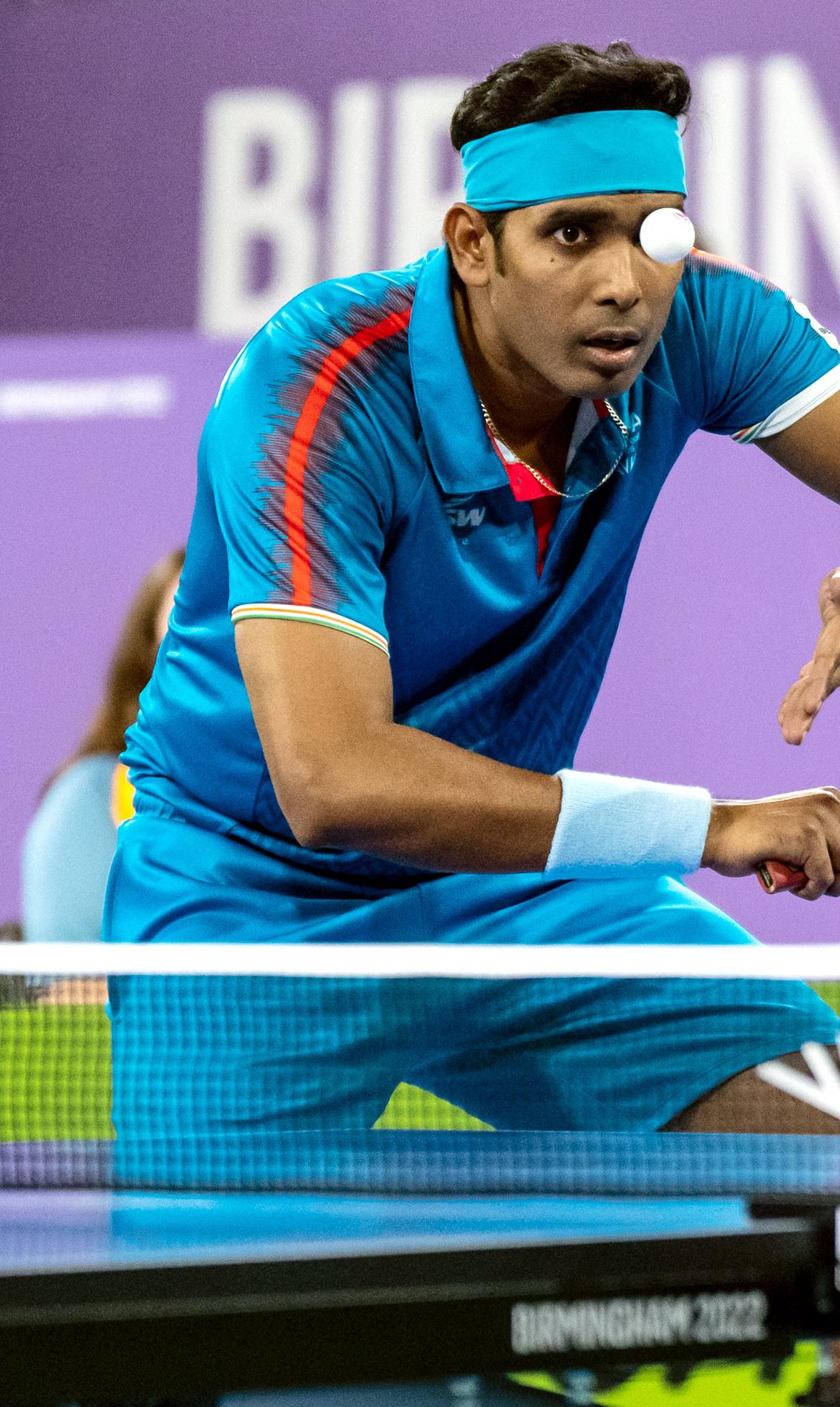
Winning a gold medal in the mixed doubles event, standing on the podium along with the legend, Mr. Sharath Kamal Achanta, and watching our national flag rise high was a most memorable moment
to negotiate the years when high level play had to be balanced with education, always mother accompanied daughter, helping with academic work after matches.
“I also had good support from my teachers, from childhood in all my exams I used to secure more than 95 per cent”, explained Akula. “Hence, with the support of my parents and coach Somnath Ghosh, I could excel in both.”
Family support has been paramount from the time she first picked up a racket when nine years old at the local St Paul’s Academy; her father the source of inspiration.
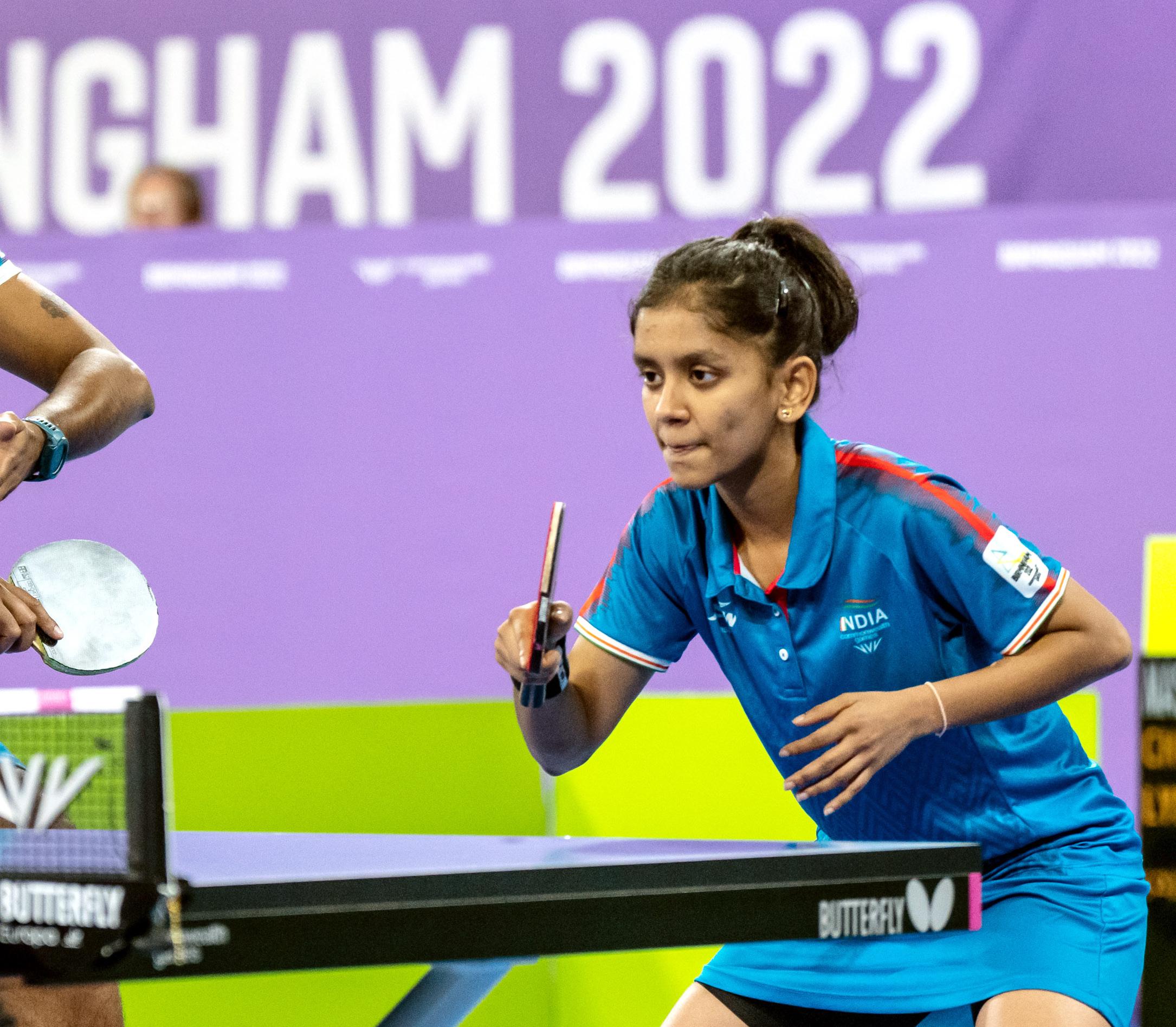
“He had a dream of making both my elder sister and myself professional table tennis players”, explained Akula. “In the first instance my sister, Ravali, played, from her I drew inspiration and eventually started to play; my parents always stood by me and motivated me to pursue excellence in table tennis. Over a period of time when I started winning medals it naturally became my passion.”
At the 2010 Cadet National Championships, her first venture at such a level, she emerged a bronze medallist; later, when 14 years old she enjoyed success at ITTF World Junior Circuit tournaments in Central America; additionally in 2013 she won the Fajr Cup in Tehran.
Nowadays, a decade later, the tournaments in
which she competes are very different from her formative years.
They attract world renowned names, the very best in the sport, for many a daunting experience, not for Akula, it is where she is at home, where she belongs. Always ready for a challenge, results endorse her quality, consistently of a very high level.
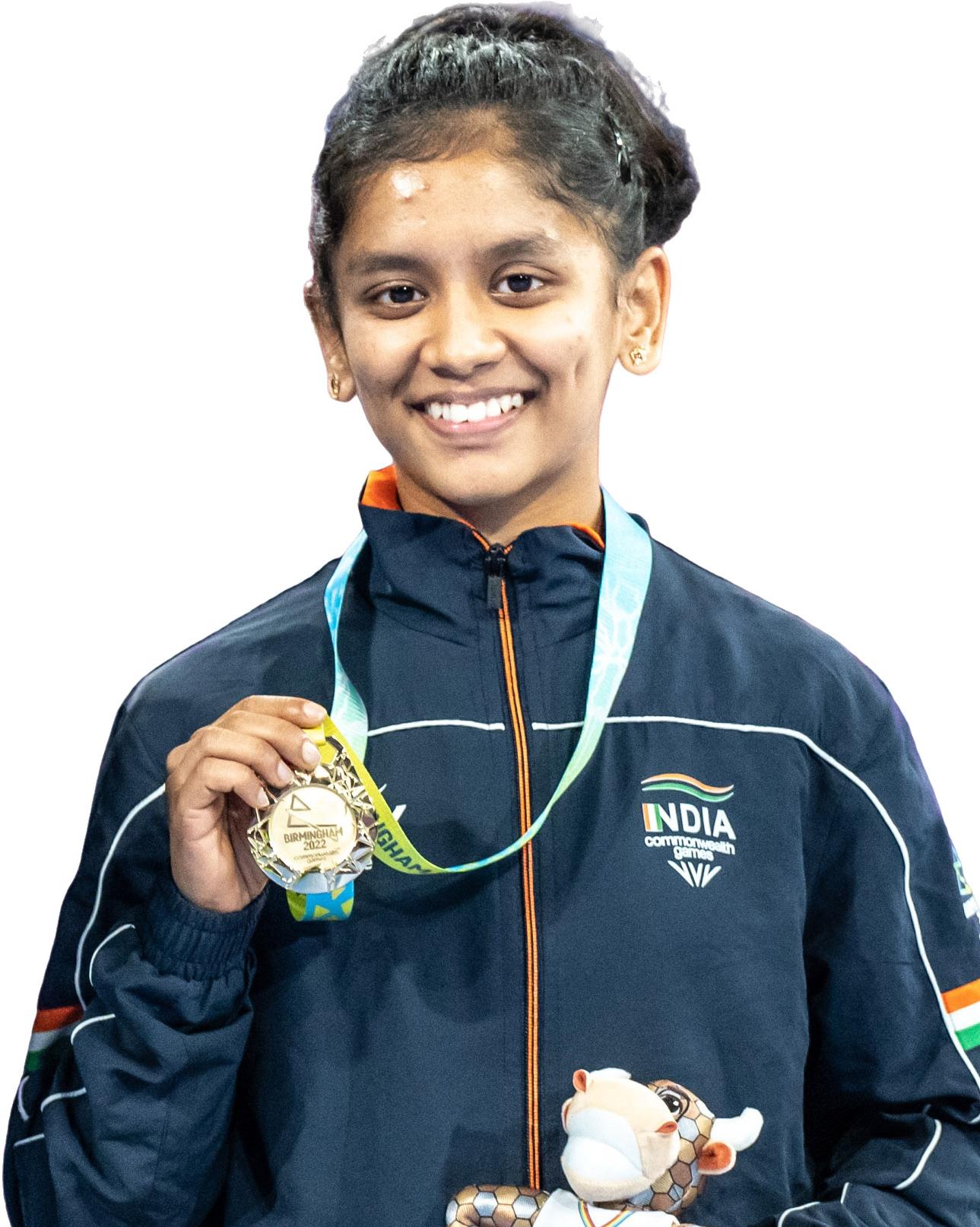
Ever Present Pride of Portugal
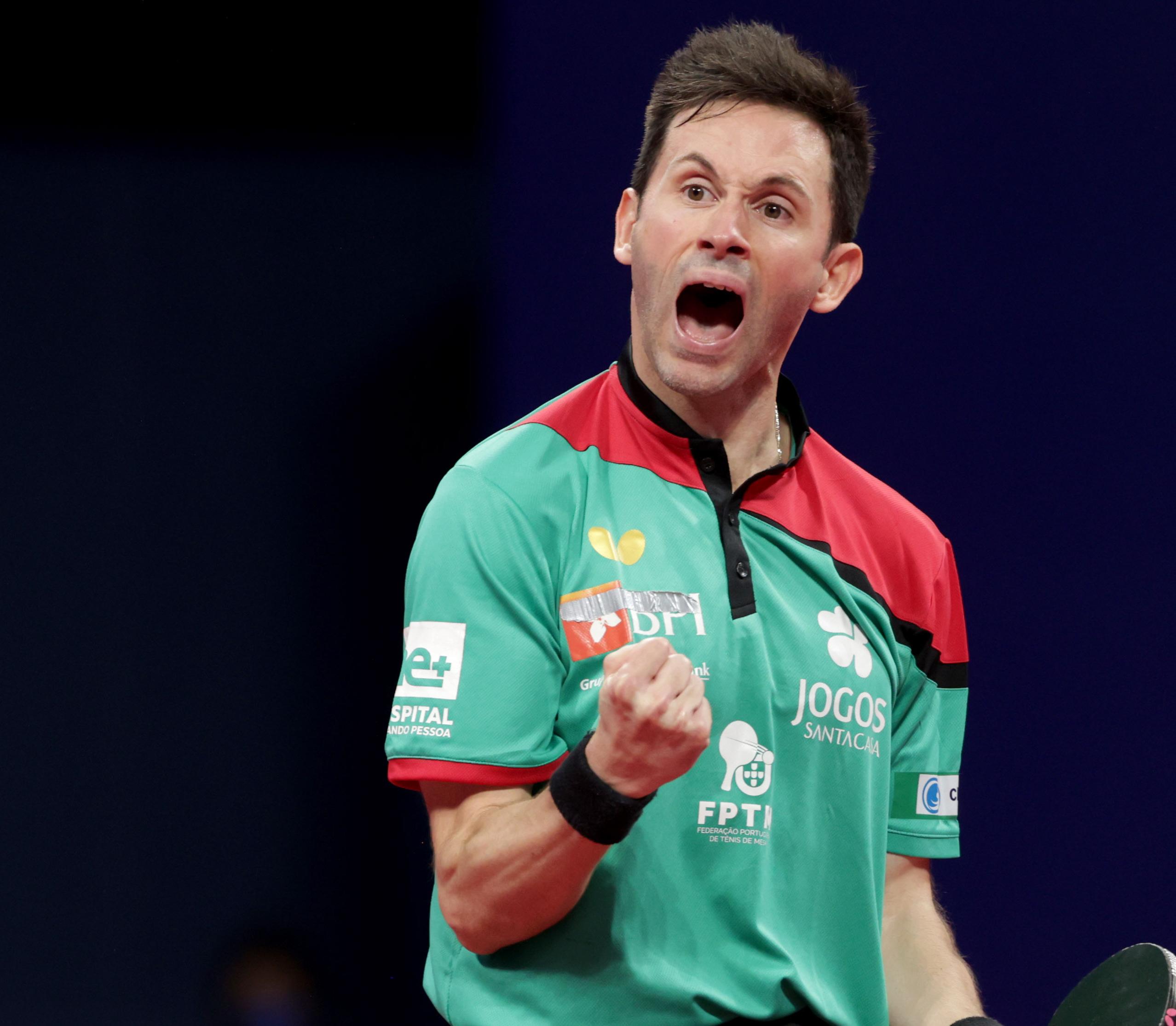
A quarter-final place for Portugal in the men’s event at the ITTF World Team Championships Finals in Busan, thus a place reserved in the Paris 2024 Olympic Games but when looking at the result sheets there was one notable omission.
Ever present throughout the current century, a member of the five-man Portuguese men’s team squad that arrived in Busan, the name of Joăo Monteiro never appeared on the team sheet issued to match officials prior to a contest.
Owing to illness he was forced to return home before ever entering centre stage; Joăo Geraldo filled the vacancy, for most of the fixtures lining up alongside the tried and trusted duo of Tiago Apolonia and Marcos Freitas.
Over the years, Monteiro has given yeoman service, a fact
illustrated that even if you discard this year, he is the only player, male of female, to have played in every World Championships and World Team Championships since the Millennium, the year 2000.
Others are close, for example Lubomir Pistej, Robert Gardos and Chuang Chih-Yuan have only missed once; consequently, the unbroken run puts Monteiro in illustrious company.
If Busan is included, his record reads a total of 23 unbroken appearances. It matches that of Vladimir Samsonov from 1993 in Gothenburg to 2019 in Budapest; also,
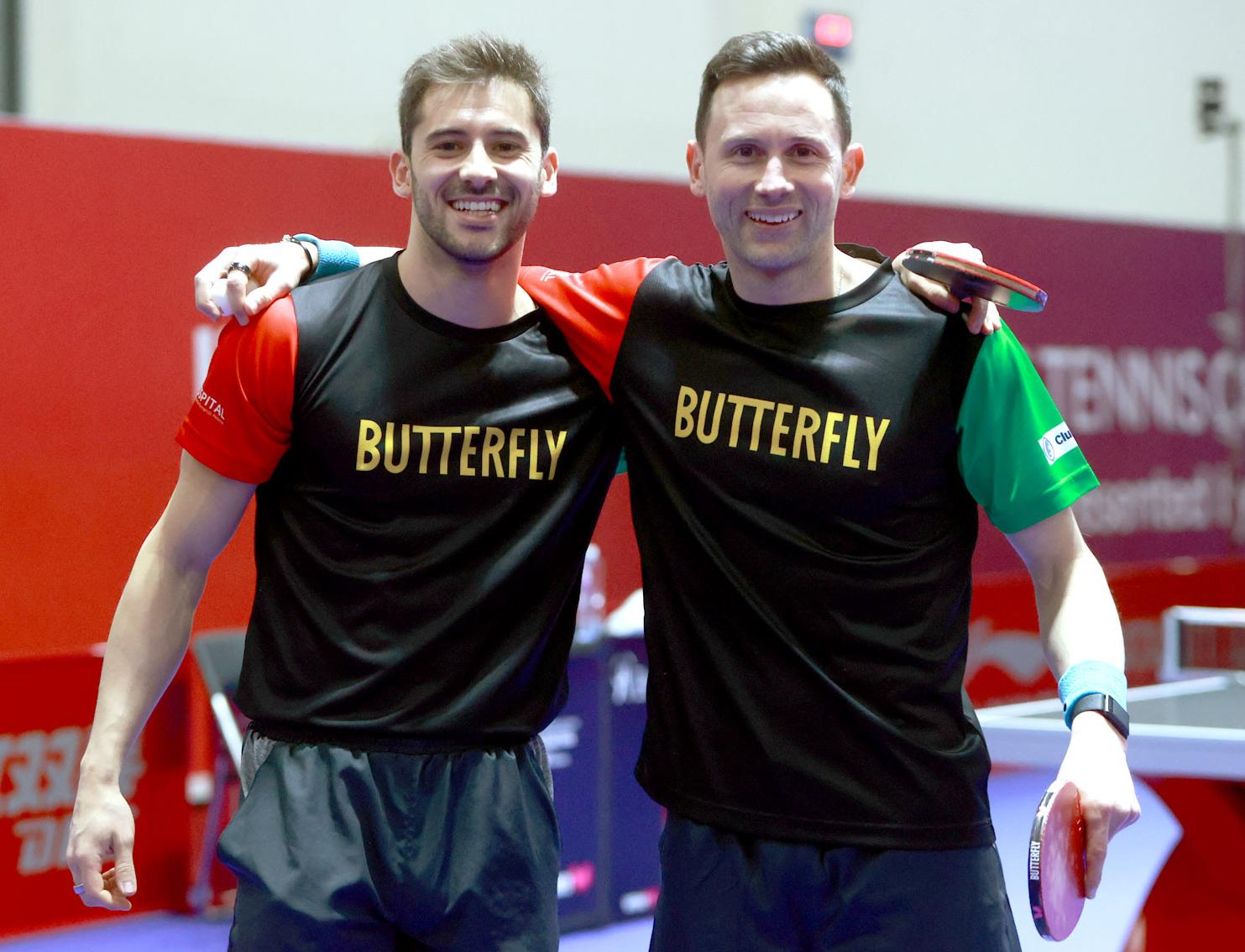
I LOVE THE ATMOSPHERE AROUND TEAM MATCHES, THE FIGHTING SPIRIT BETWEEN PLAYERS, THE DESIRE TO PLAY WELL AND ACHIEVE A GREAT RESULT AS A GROUP
he is closing in on Jean-Michel Saive, from 1983 in Tokyo to 2015 in Suzhou, he played on 24 occasions; technically 2018 in Halmstad can be added, when he was nominated as a reserve.
Furthermore, the career of Joăo Monteiro very much reflects the progress that Portugal has made; in 2000 in Kuala Lumpur, he lined up alongside Rogerio Alfar, Artur Jorge da Silva and Ricardo Oliveira. The outcome was 59th place in the men’s team event, one later in Osaka it was 49th position, winners of the third division.
“Of course, I was nervous in Kuala Lumpur, but I was thrilled to have had the opportunity to represent my country”, reflected Monteiro. “Also, it was a great opportunity to actually see the best players live as opposed to on tele vision.”
Year by year Portugal has climbed the ladder, now with the Busan result added, starting with Tokyo in 2014 it is four quarter-final appearances in five editions; the one missing is Halmstad in 2018 when the last 16 was the outcome. In the Monteiro era, Portugal has progressed from a team outside the top 50 to being the eighth seeds in Busan.
One step short of a podium place but Monteiro does have a World Champion
ships medal to his name, the only ever medal at the global tournament for Portugal. At the 2019 World Championships he won men’s doubles bronze partnering Tiago Apolonia, add his last 32 men’s singles finish in Suzhou and the quarter-final men’s team appearances, those are the high points of his career.
Major successes, a tribute to Monteiro’s character; always there is total commitment whenever and wherever he has played in a career that now spans 25 years.
“You have to be dedicated, work hard, have a good work ethic; know when to rest”, said Monteiro. “You must have a passion for the sport and also good family support is vital.”
A splendid attitude and one that is reflected when Portuguese pride as opposed to individual glory is at stake.
“Personally, I prefer team events rather than individual events”, he stressed. “I love the atmosphere around team matches, the fighting spirit between players, the desire to play well and achieve a great result as a group.”
ABOVE Joăo Geraldo left and right Joăo Monteiro practised together in Busan on the eve of the ITTF World Championships Finals.
BELOW
Tiago Abiodun a bright young prospect.
Relishing the atmosphere, since his debut on the global scene, times have changed. The World Team Championships order of play has maintained the same since 1993 in Gothenburg, five singles matches; however, in 2000 in Kuala Lumpur and 2001 in Osaka games were to 21 points, it was not until 2003 in Paris that 11 points became the norm.
Equally, schedules have been wide and varied, but these facts give Monteiro little concern.
“The most important thing for me is not about the matches or schedule”, stressed Monteiro. “For me the most important thing is to find a way to bring spectators to the halls and witness high quality table tennis; our sport is so beautiful but has a lack of spectators, almost always the halls are empty.”
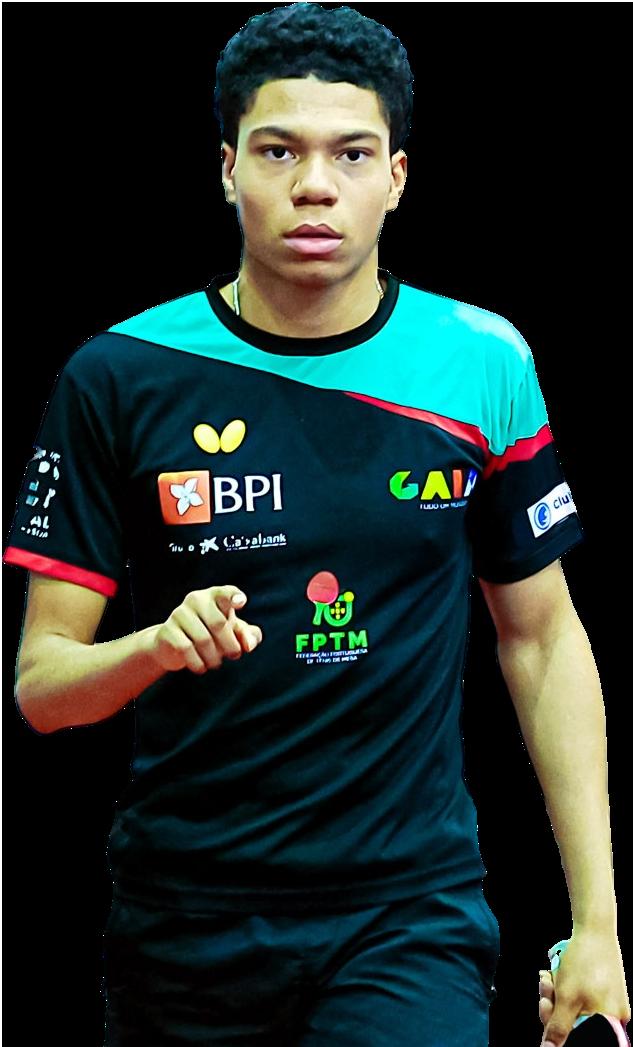
Create the atmosphere and the players respond, time and again Monteiro has responded as have his colleagues Apolonia and Freitas, but the years are passing, who will step into illustrious shoes?
Geraldo is the name that springs immediately to mind but note Tiago Abiodun, an under 17 boys’ singles semi-finalist earlier this year in January at the WTT Youth Contender Linz, he has a similarity with Monteiro.
He is 16 years old; the same age as when Monteiro made his World Team Championships debut in 2000 in Kuala Lumpur.
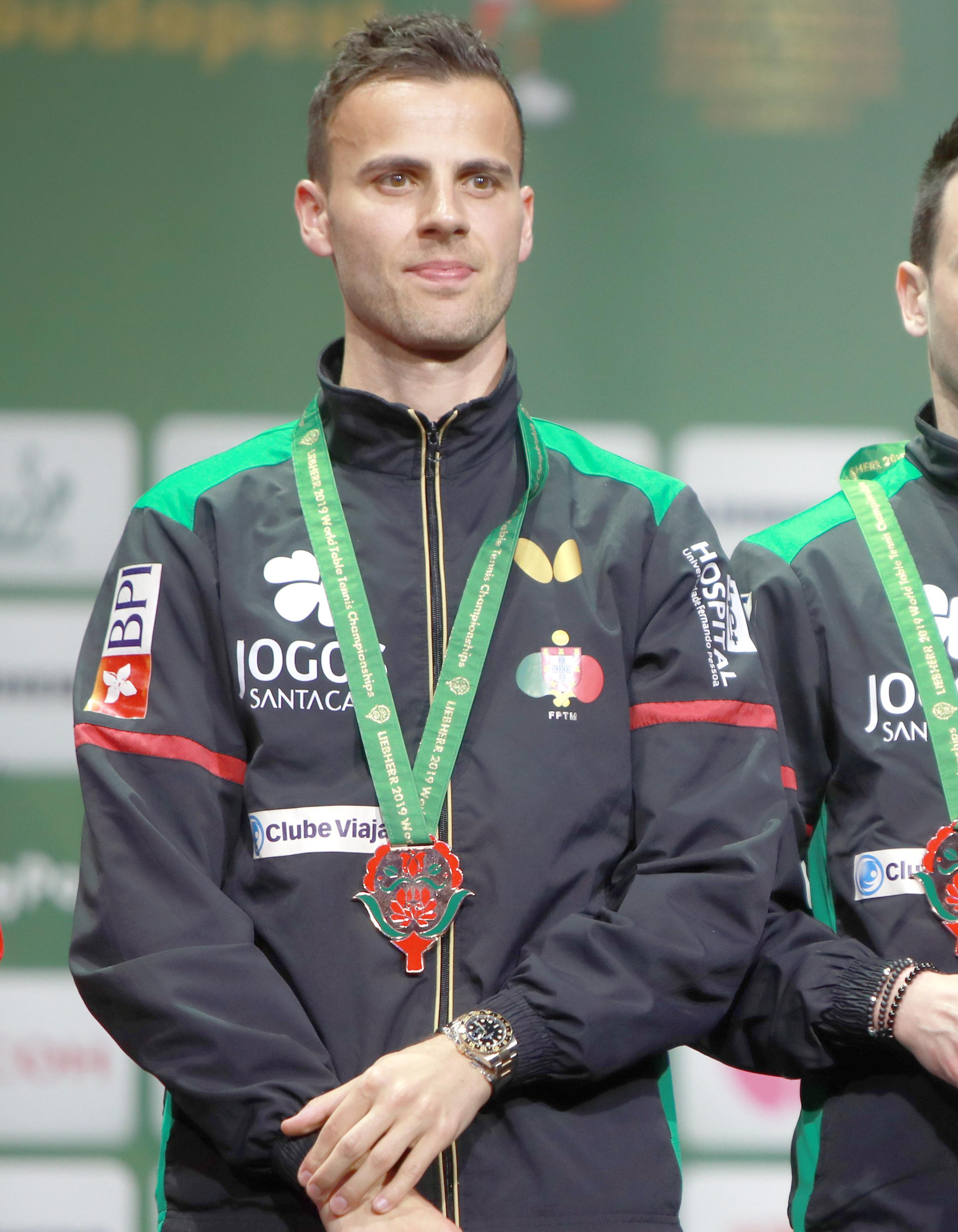
Tiago Apolonia left and right Joăo Monteiro, bronze medallists at the 2019 World Championships in Budapest
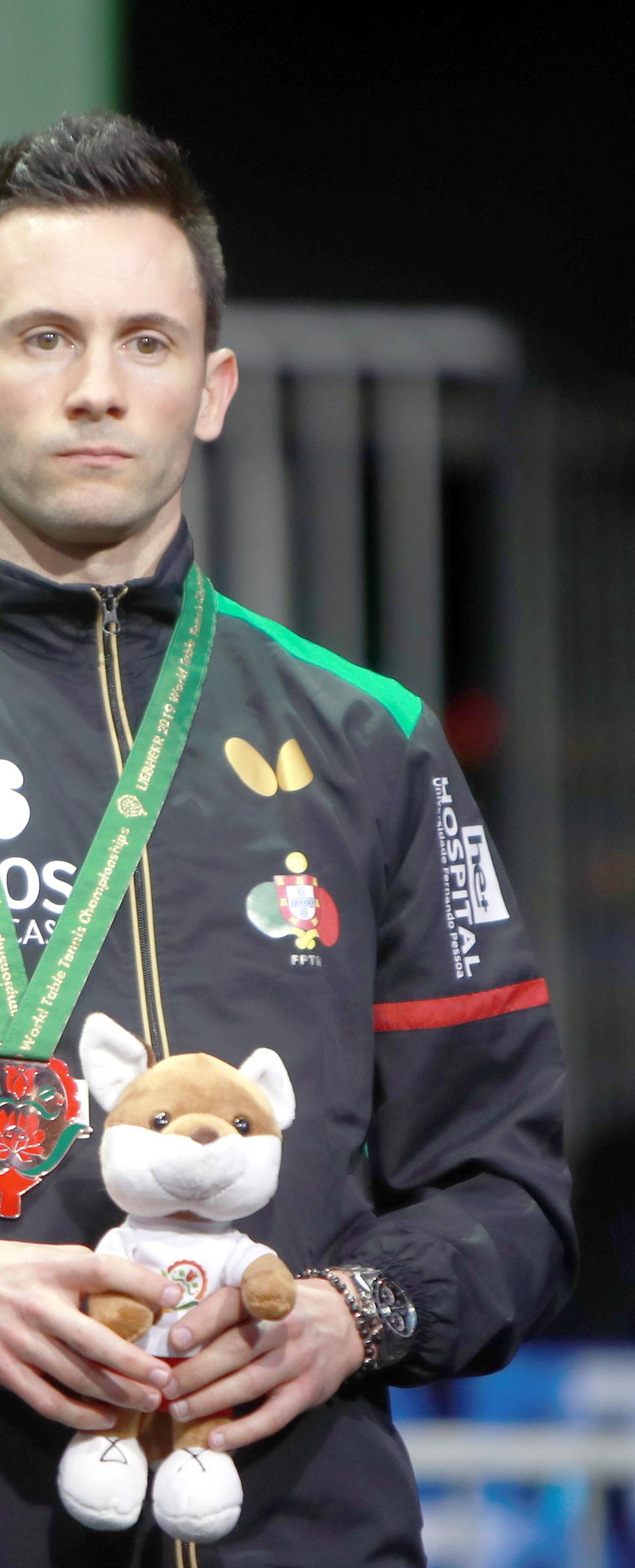
WORLD CHAMPIONSHIPS CAREER IN NUMBERS
WORLD TEAM CHAMPIONSHIPS 2001-2024
Matches: played 86 won 52 lost 34
Games: played 318 won 180 lost 138
Points: played 6568 won 3451 lost 3117
Note:
Playing Ireland in the Division Three semi-final in 2001, Monteiro beat Jonathan Cowan in three games (21-19, 17-21, 21-19) each player scored 59 points.
Similarly, in 2014 in the group stage against Japan, he beat Kenta Matsudaira in five games (11-9, 12-14, 7-11, 11-9, 11-9), each recorded 52 points.
In 2010, he won when scoring the fewer points, in the group stage against Singapore, he beat Cai Xiaoli (11-7, 2-11, 7-11, 117, 12-10); he won 43 points, lost 46 points.
Similarly, in 2016 in a group stage match in opposition to Japan, he beat Jun Mizutani (3-11, 7-11, 11-9, 11-9, 11-8), Monteiro won 43 points, Mizutani 48.
WORLD CHAMPIONSHIPS 2001-2023
Men’s Singles
Matches: played 24 won 12 lost 12
Games: played 122 won 61 lost 61
Points: played 2450 won 1223 lost 1227
Note:
Monteiro won and lost the same number of matches and games. Playing Timo Boll in the last 32 in 2015 he lost in seven games (511, 11-7, 12-10, 12-14, 7-11, 11-3, 10-12); each player scored a total of 68 points.
Men’s Doubles
Partner: Tiago Apolonia (Portugal)
Matches: 19 plus two walk-overs won 13 plus one walk over lost 6 plus one walk over
Games: played 94 won 56 lost 38
Points: played 1695 won 905 lost
Partner: Robert Ricardo (Portugal)
Partner: Nuńo Henriques (Portugal)
Matches: played 3 won 2
played 10 won 6
played 182 won 97
Partner: Ricardo Oliveira (Portugal)
Matches: played 1 won 1
played 10 won 5
played 198 won 95
Partner: Stefan Fegerl (Austria)
Matches: played 1
Mixed Doubles
Partner: Paula Goncalves (Portugal)
Matches: played 2 won 0
played 8 won 1
Partner: Ana Silva (Portugal)
1
4
1
Matches: played 1 won 0 lost 1 Games: played 4 won 0 lost 4
played 66 won 22
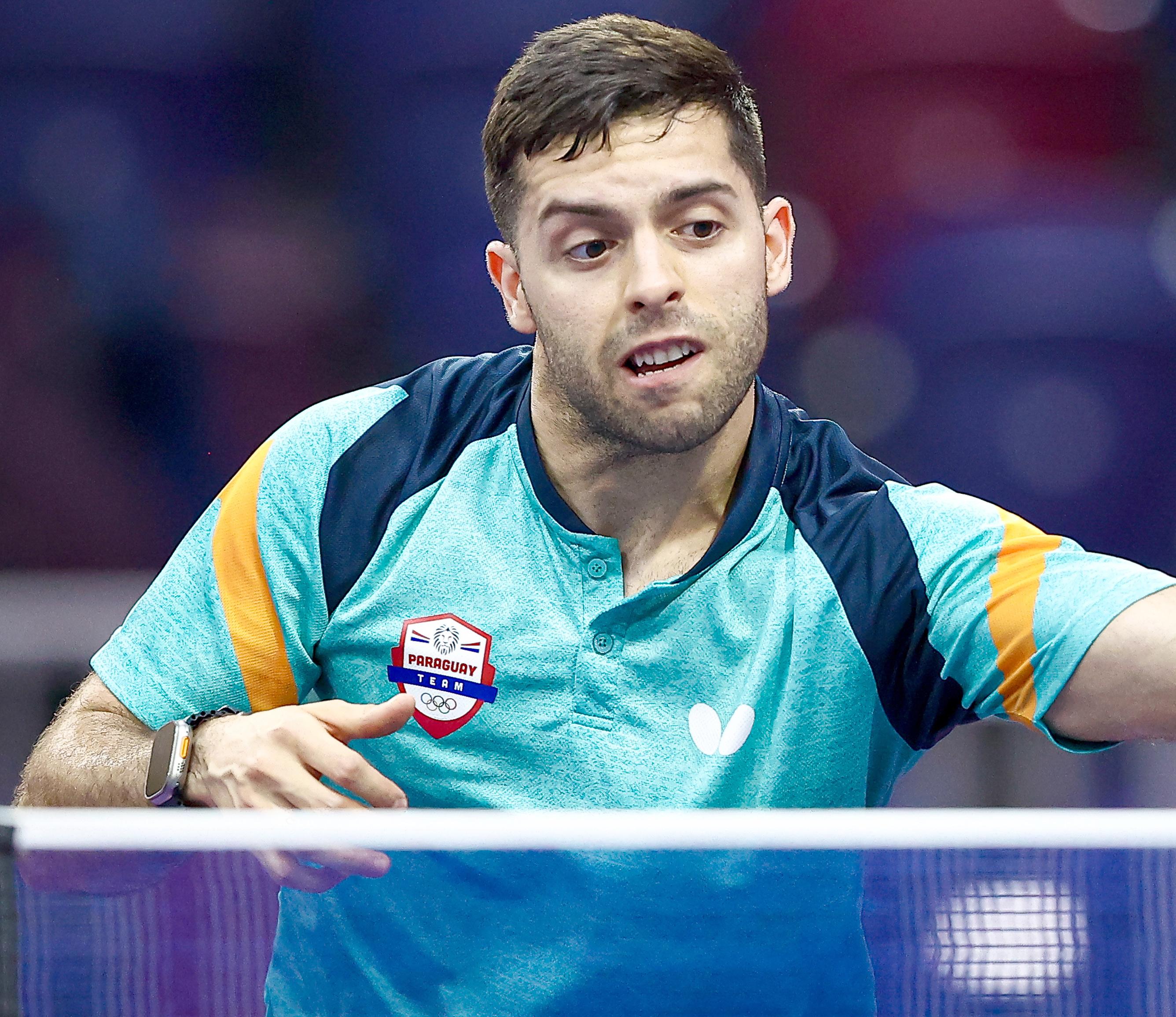
LIVING ABROAD MY ONLY OPTION
ABOVE Positive at the 2023 South American Championships.
FACING PAGE
Focused at the WTT Grand Smash Singapore 2022.
raduating from being a very young talent to a player who earns a living as a fully-fledged professional is a long and winding road, one filled with potholes; many stumble and sink into oblivion.
Arguably, it is an even more hazardous journey when the country from which you hail does
not have an illustrious history of securing international titles or the resources for developing players who can compete on the world stage.
Such is the situation for Marcelo Aguirre, born in Paraguay, a country rich in agriculture but not a leading nation in the sporting sphere. Always proud to represent his homeland but
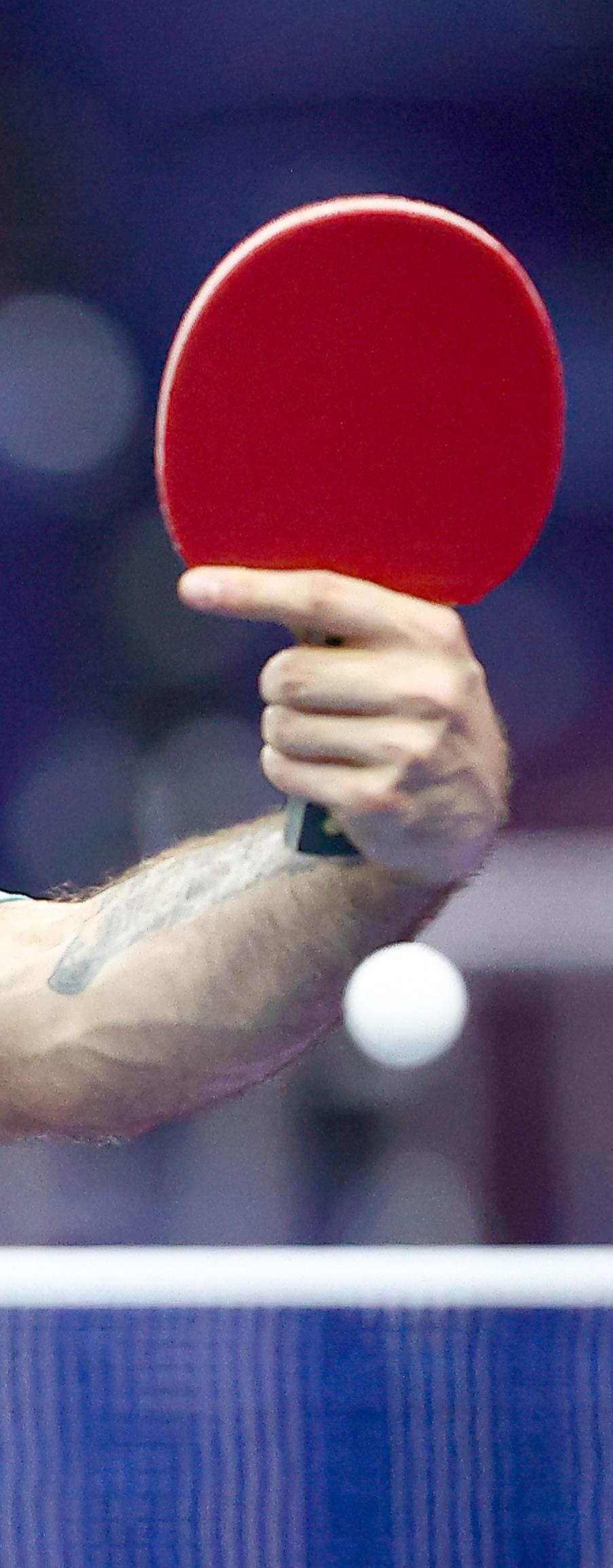
jÉãÄÉê=~ëëçÅá~íáçåW=m~ê~Öì~ó a~íÉ=çÑ=ÄáêíÜW=ONëí=g~åì~êó=NVVP eçãÉíçïåW=^ëìåÅáçå== c~ãáäóW=Ñ~íÜÉê=sáÅíçê=^ÖìáêêÉI=ãçíÜÉê `ä~ìÇá~=_Éå∞íÉòI=ÄêçíÜÉêë=pÉÄ~ëíá~å=~åÇ fî~å=^ÖìáêêÉ pí~íìëW=ã~êêáÉÇ=íç=eáäÇ~=oÉóÉëI=ëçå= dáìäá~åç=j~êÅÉäç
`ìêêÉåí=`äìÄW=tÉêÇÉê=_êÉãÉå=EdÉêã~åóF mêÉîáçìë=`äìÄëW=ÄåÖÄó=EpïÉÇÉåFI= qÉÖÉêÜÉáã=EdÉêã~åóFI=c~äâÉåÄÉêÖ EpïÉÇÉåFI=jáê~ã~ë=Ecê~åÅÉFI=`qj=eáëé~ äáë=Epé~áåFI=dïá~òÇ~=_óÇÖçëòÅò=Emçä~åÇFI qq`=wìÖÄêΩÅâÉ=dêÉåò~ì=EdÉêã~åóF
o~ÅâÉí=Ää~ÇÉW=_ìííÉêÑäó=sáëÅ~êá~=pìéÉê ^i`=EciF
cçêÉÜ~åÇ=êìÄÄÉêW=_ìííÉêÑäó=aáÖåáÅë=MR _~ÅâÜ~åÇ=êìÄÄÉêW=_ìííÉêÑäó=aáÖåáÅë=MR= bèìáéãÉåí=péçåëçêW=_ìííÉêÑäó
nowadays it is the country he visits rather than in which he resides; a situation necessary to achieve sporting excellence.
Lining up alongside Mattias Falck, Kirill Gerassimenko and Cristian Pletea, he represents Werder Bremen in the German Bundesliga. He lives full time in Germany, returning home for no more than one month each year to visit family and friends.
Life is a far cry from when first introduced to the sport.
“I started playing table tennis when I was eight years old, it was thanks to my dad who was also a player for the Paraguayan table tennis national team”, explained Aguirre. “First of all, I played at “Club Sajonia” it was a club that had many sports, it was where my dad practised.”
At the time, like any boy keen on sport, Aguirre played football and tennis as well as enjoying swimming.
“My dad was the one who inspired me to play table tennis”, continued Aguirre. “I liked other sports but from the moment I started playing table tennis it was like love at first sight, I loved it from the first time I picked up a racket.”
The decision was made; well before teenage years, Aguirre had chosen the sport to which he was best suited.
“I can’t really define anything in particular that I like about table tennis”, he smiled. “From the very first moment I just enjoyed playing; I was happy to play all day.”
Only nine years old he made his debut in the colours of Paraguay, competing in a tournament or ganised in the Brazilian city of Campo Grande; two years later in 2004 he was on duty at the Latin American Under 15 and Under 13 Champion-
I liked other sports but from the moment I started playing table tennis it was like love at first sight, I loved it from the first time I picked up a racket. ships; the international career had begun.
Eye catching performances but it was at the 2006 El Salvador Junior and Cadet Open when he came to international notice. Alongside Sandy Gavilan, the duo travelled from Asuncion to San Salvador; moreover, they travelled alone, no coach to impart words of wisdom or encourage their efforts.
Respectively, in the cadet boys’ singles and cadet girls’ singles events, they finished runners up, beaten by adversaries from Chinese Taipei who progressed to enjoy success at the very highest level. Aguirre lost to Chen Chien-An, the men’s doubles winner alongside Chuang Chih-Yuan at the Paris 2013 World Championships. Gavilan was beaten by Cheng I-Ching; she partnered Chen ChienAn to mixed doubles silver at the 2017 World Championships in Düsseldorf; later, Lin Yun-Ju to bronze at the Tokyo 2020 Olympic Games.
Runners up but one fact registered above all, two young players from Paraguay could compete against the might of Asia, a region of the world known for having a production line of immensely able young talents.
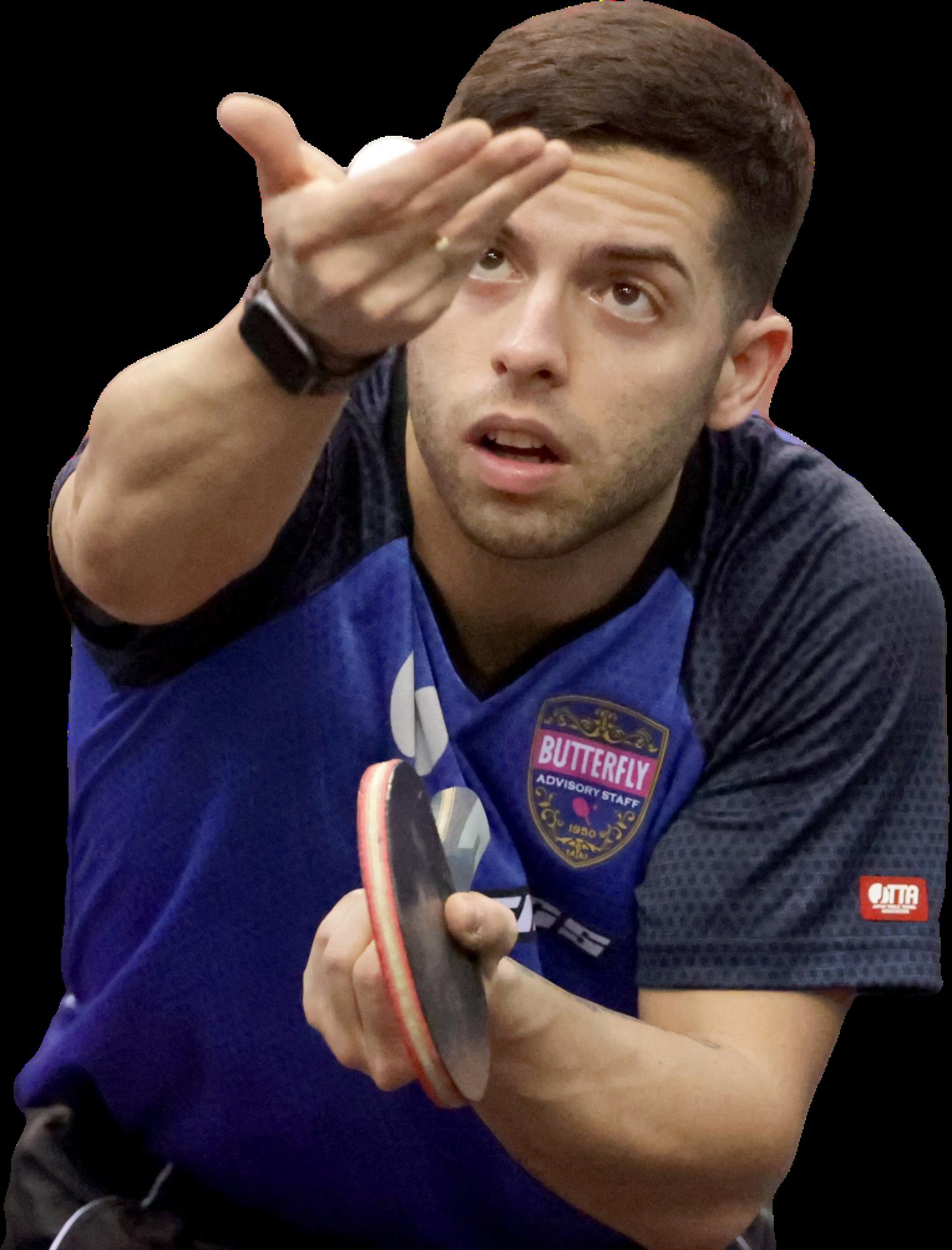
Gavilan stood out, no frills, a sportswoman, a most worthy competitor but it was Aguirre that shone above all; quite simply he oozed talent, as they say in the trade he had “good hands” an exquisite feeling for the table tennis ball. However, there was a question mark, there was no doubting his skills, but he did not emanate from a nation that had a tried and trusted formula in place for guiding u
players from adolescence to senior status. Aguirre had to find a way.
“There were many challenges that I had to overcome in order to stand out as a sportsman in my country”, sighed Aguirre. “One of the biggest problems was the support to achieve great goals was not enough, table tennis was not well known.”
Aguirre had to prove himself, prove that he merited support.
“Personally, I always had the support of the sports authorities and the Olympic committee of my country, but I had to show that I could make a living from this sport and achieve great things at continental and global level”, added Aguirre. “The only way to do this was by living outside the country since we do not have the infrastructure or sufficient technical personnel in Paraguay.”
Only 13 years old, he travelled to Sweden, a move that proved an education in more ways than one.
“It was my first experience in Europe; once I arrived at the airport, I’d forgotten some personal things and my passport, I nearly missed my flight; that’s what happens when you are young and travel alone”, reflected Aguirre. “However, it was in Sweden I learnt English by listening; most importantly I met great players like JanOve Waldner, Jörgen Persson and Peter Karlsson.”
Eager to learn, Aguirre now looks back at that era being vital in his career; most significantly he had the trust of father and mother. How many parents would have given their blessing for a child so young, to cross the Atlantic Ocean and reside in a country with a totally different culture?
“Throughout, my family has been there for me; always they have given unconditional support”, stressed Aguirre. “I feel blessed to have met great coaches who were legends in the sport, they inspired me, they guided me to a higher-level step by step and helped me achieve great personal goals.”
Climbing the ladder, in 2008 he competed in the tournament that holds
the reputation of being the most celebrated of all, the Olympic Games.
Only 15 years old, he was beaten in the preliminary round of the men’s singles by DPR Korea’s Jang Song Man, a defender in the modern style with a lethal forehand top spin.
The style was alien to Aguirre, was it too soon to be competing in the most famous multi-sport gathering of all? Was he thrown into the lion’s den?
“No, I think it was a great experience for me, I learnt a lot from that match and those Olympic Games”, emphasised Aguirre. “It gave me a lot of motivation to continue in the sport and fulfill my dreams, it inspired me to work harder.”
An initiation in Beijing, later he competed at both the London 2012 and Rio 2016 Olympic Games.
“I have great memories sharing with the best athletes of all Olympic sports, meeting my personal idols and learning from each of them by watching each competition”, said Aguirre.
Memories that will live with him for life, the added value being that he was representing Paraguay, a country with relatively few Olympic athletes; the heart beat with national pride, the same sense of loyalty prevailing at World Championships.
“Most definitely, the World Team Championships stand out when we managed to win the fourth division in 2010 in Moscow and then the third in 2012 in Dortmund”, reminisced Aguirre. “They are beautiful memories because they were tournaments where we played many matches and where there were all kinds of players, you could also learn from the best in the world in those events.”
Experienced, no longer the aspiring talent, he is the seasoned professional, his efforts have raised the profile of table tennis in Paraguay, he has motivated others through his achievements. Once an aspiring talent, now Marcelo Aguirre is the nation’s role model.

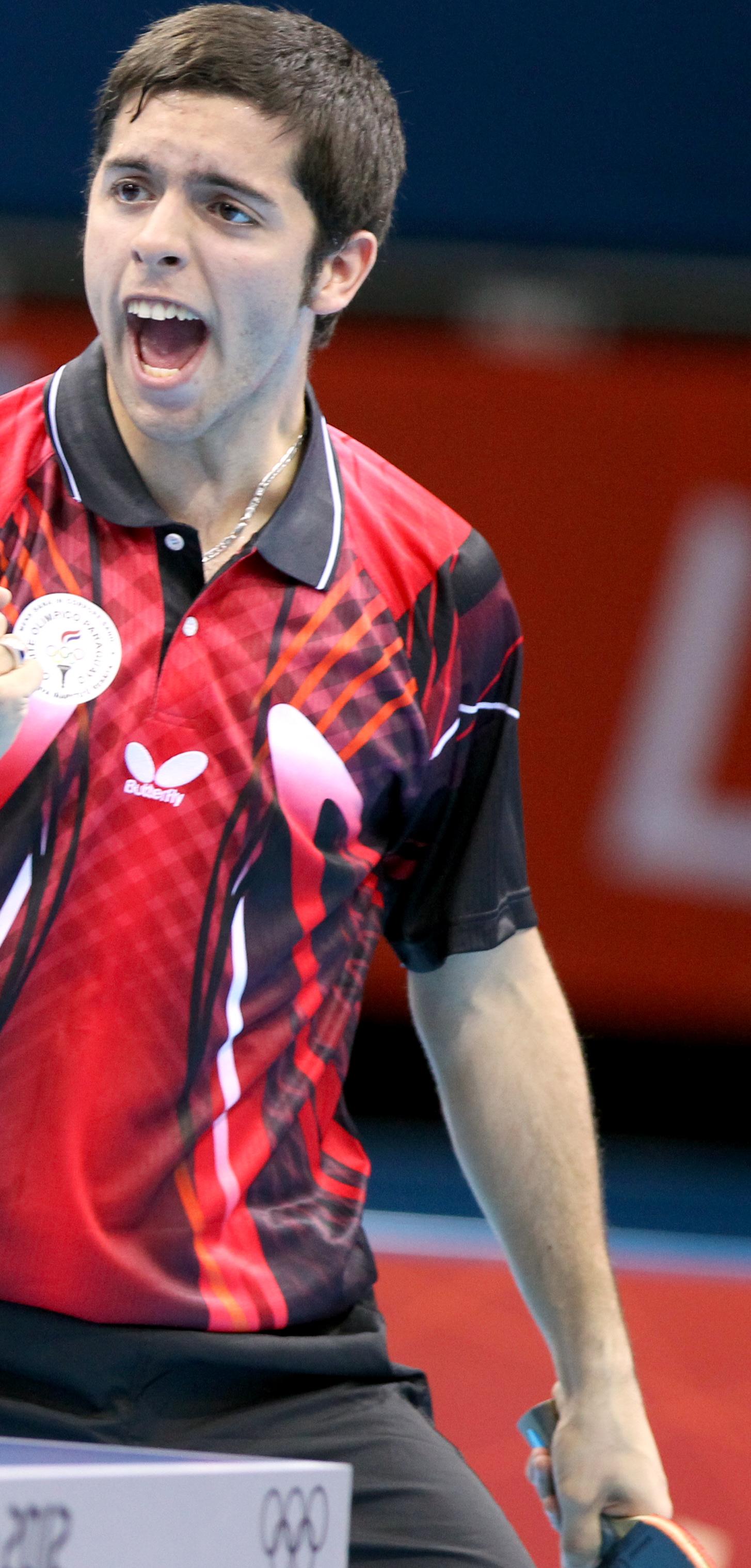
Highlights
Pan American Games 2015
Toronto, Canada
Men’s Team: silver (Axel Gavilan, Alejandro Toranzos)
Pan American Championships 2017
Cartagena de Indias, Colombia
Men’s Team: bronze (Axel Gavilan, Benicio Moreno, Alejandro Toranzos)
Men’s Singles: bronze
Pan American Championships 2021
Lima, Peru
Men’s Singles: bronze
Latin American Championships 2013
San Salvador, El Salvador
Men’s Singles: gold
Latin American Cup 2011
Rio de Janeiro, Brazil
Men’s Singles: silver
Bolvarianos Games 2011
Caracas, Venezuela
Men’s singles: gold
Bolvarianos Games 2014
Trujillo, Peru
Men’s singles: gold
Olympic Games
Competed in Beijing (2008), London (2012), Rio de Janeiro (2016)
LEFT
In determined mood at the London 2012 Olympic Games
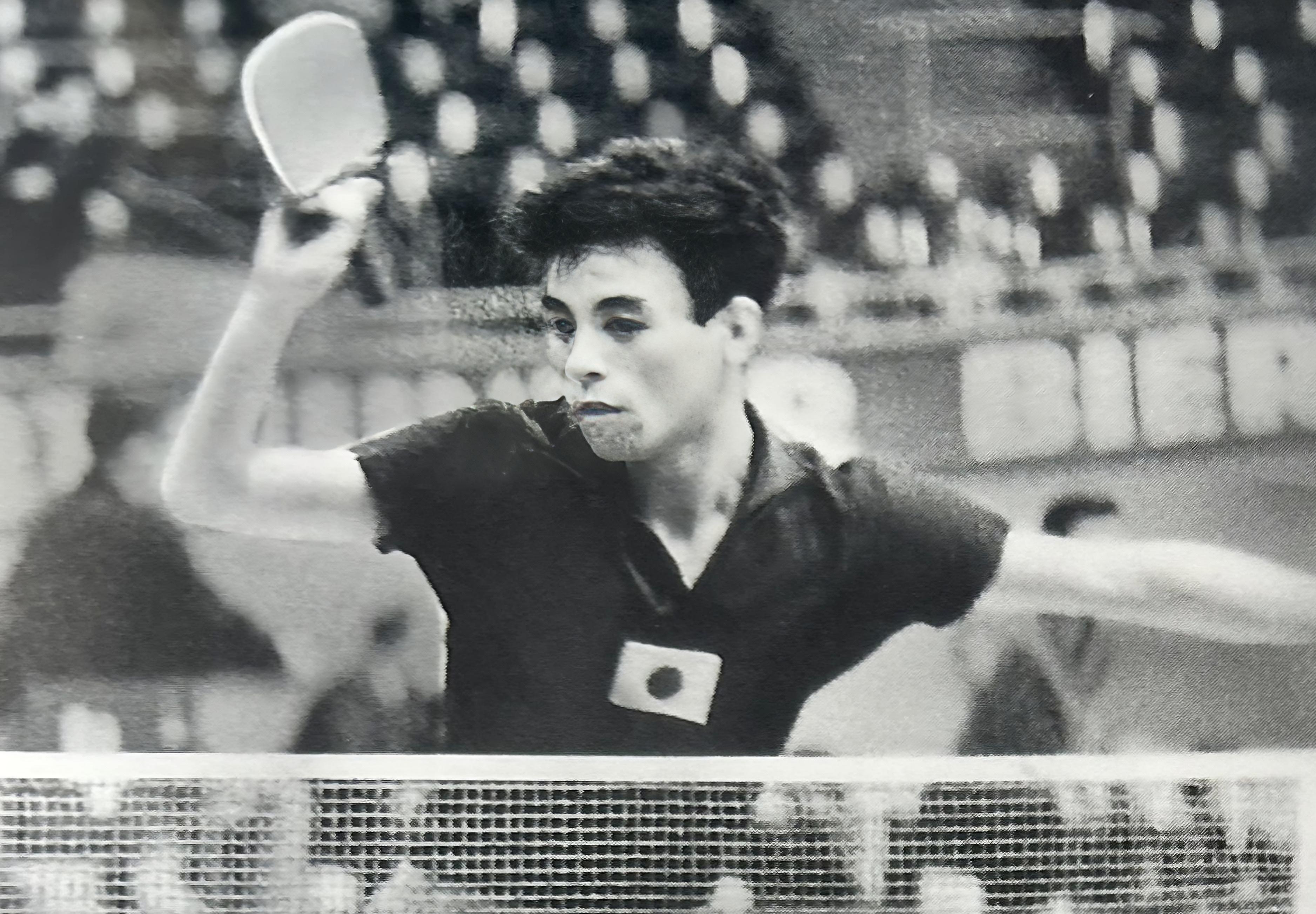
One Great Impact
Now 70 years ago, he announced his arrival on the international stage, sadly 30 years ago we mourned his passing, in those intervening 40 years the influence he imparted on the sport of table tennis was immeasurable.
At the Empire Pool, nowadays known as the OVO Arena Wembley in north London, at the 1954 World Championships, staged from Monday 5th to Wednesday 14th April, Ichiro Ogimura won the first of his 12 world titles.
Following retirement, in 1973 “Ogi” became a member of the International Table Tennis Federation’s Executive Committee, in 1987 the President, it was a position he held for seven years. During his tenure of office, he was responsible for the appearance of the joint Korean team at the 1991 World Championships, one year later, after years of sporting isolation, he welcomed South Africa back to the international stage at the Barcelona 1992 Olympic Games.
Throughout his career, in whatever role, whether player,
coach or administrator, he followed an unrelenting schedule. He ate, slept, breathed table tennis.
In late 1993 there were concerns regarding his health, on Friday 7th January 1994, he was diagnosed with terminal lung cancer. Defiant but to nobody’s surprise, he continued to work from his hospital bed; at 3.45 pm on Sunday 4th December 1994, only 62 years of age, he passed away. Sadly his dream of becoming a member of the International Olympic Committee was never to be fulfilled.
Cataloging his contributions to table tennis would necessitate an encyclopedia but did he ever make a greater impact than on his World Championships debut in Wembley?
Using a sponge covered racket, a surface in its embryonic stage, his athletic pen-hold grip style of play and that of his colleagues heralded a totally new era, an era that might well have been necessary to put on hold.
The Japanese Table Tennis Association made early prepa-
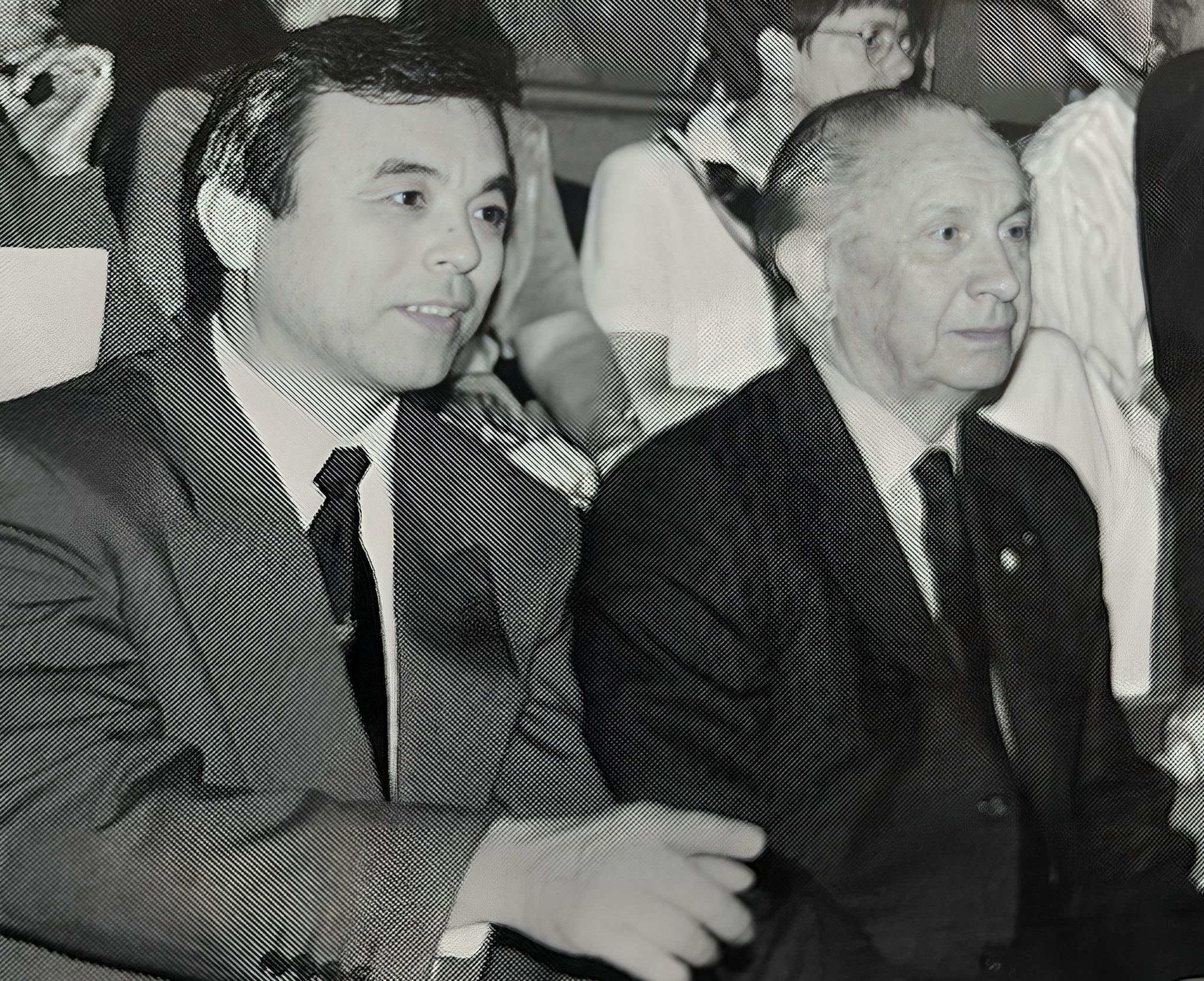
rations for the visit to London. In 1952 they had competed in Bombay, now known as Mumbai, but one year later had been prevented by their government from playing in Bucharest, politics being the reason as Romania was an Eastern Bloc country.
Finance was an issue, the Japanese Table Tennis Association had limited funds; they decided that each player must contribute 800,000 yen to cover the costs their own flights, accommodation, incidental expenses and those of officials and coaches. At the time an annual salary of 100,000 yen was a very good wage; the request was a prodigious sum.
Ogimura was high on the list for selection, in 1953 he had become Japanese national champion; Michie, his mother believed she could find 8,000 yen but anything above that figure was out of the question for a 21-year-old from a single parent family.
Michie, who had chosen the name Ichiro, popular at time for the eldest son (in Japanese “ich” means “one” and “rou” in such instances means “boy”), went to see Hiroshi Yaoita, the coach at Nihon University, the table tennis club Ogimura had joined in early 1953. She advised that her son would not be playing in London. Yaoita persuaded Michie to keep the faith.
Hearing the news of Ogimura’s plight, Hisae Uehara started a fund-raising campaign. Lo cated in Kishijooji, a western suburb of Tokyo she was the owner of the Musashino Table Tennis Hall and until 80 years of age, the President of the adjoining Seitakukai Club, the premises where Ogimura’s career started. Later, when Ogimura was at-
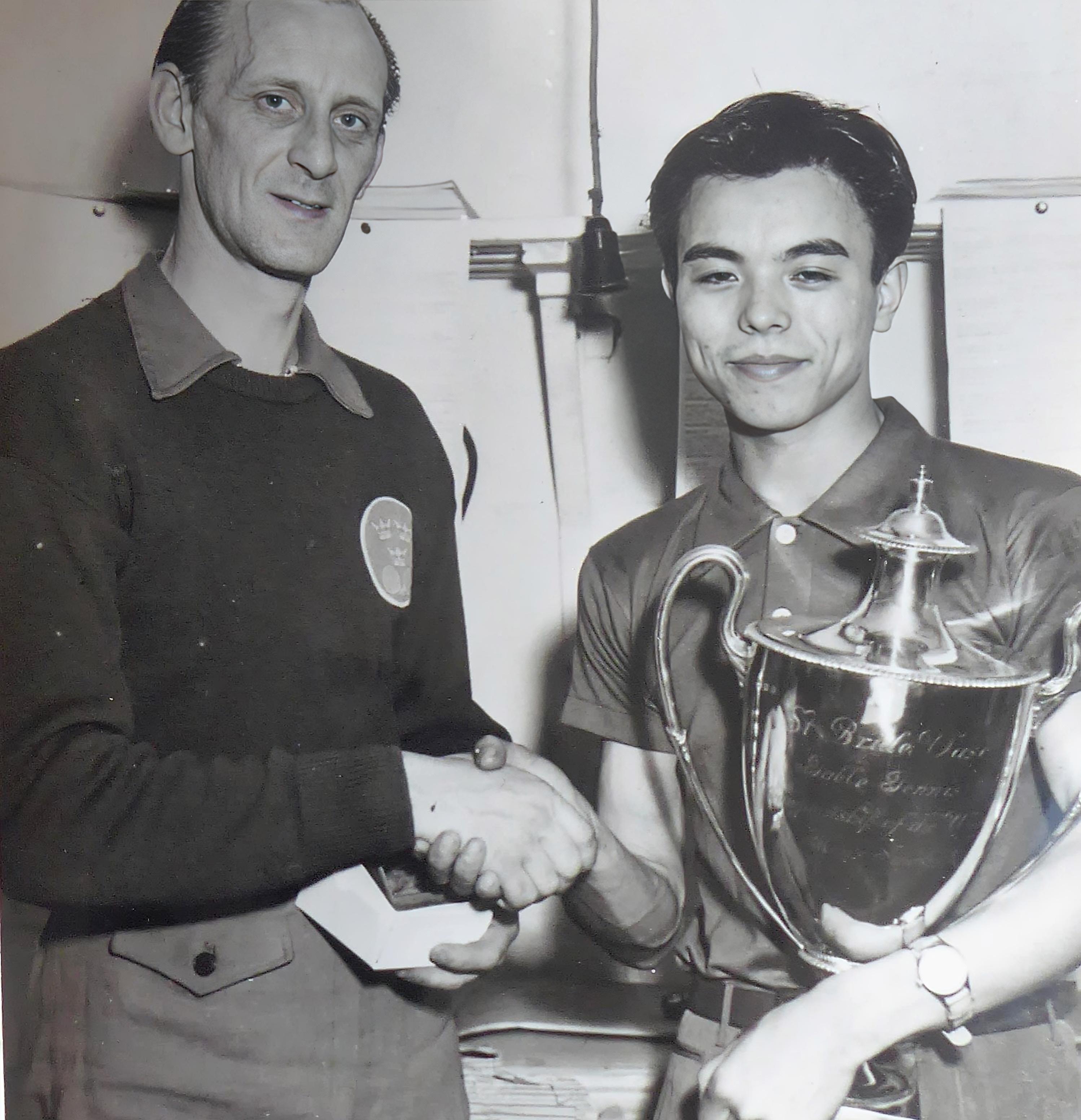
LEFT
En route to gold at the 1954 World Championships.
ABOVE LEFT
Alongside Juan Antoni Samaranch at the 1993 World Championships in Gothenburg.
ABOVE RIGHT
Shaking hands with Tage Flisberg after the 1954 men’s singles final.
BELOW
The racket used at the 1954 World Championships by Ogimura.
tending the Tokyo Metropolitan University, she formed the Kissho Club.
Hisae explained the problem to the Kissho Club members, some did not like Ogimura believing him to be overconfident, somewhat arrogant but they had the greatest respect for what he had achieved. They stood in the cold December streets outside railway stations asking for donations to “help Ichiro Ogimura go to London”.
Appreciating the support, Ogimura joined the street collectors; eventually, local mayors, businessmen, staff and students at Nihon University plus colleagues at the College of Art joined the cause. Additionally, a challenge event against the newly crowned national champion was organised; admission fee 50 yen.
Eventually, funds were raised, Ogimura paid his 800,000 yen, kept 720 yen for pocket money (about US$ 2.00 in 1954); alongside Yoshio Tomita, Kazuo Kawai, Kichiji Tamasu and coach Kiyotaro Hasegawa, he was London bound.
Notably, Ogimura was selected as team captain, Koji Goto, the Chairman of the Aichi Prefecture Table Tennis Association, was appointed head of the delegation, a man who was not too enamoured by Ogimura’s attitude.
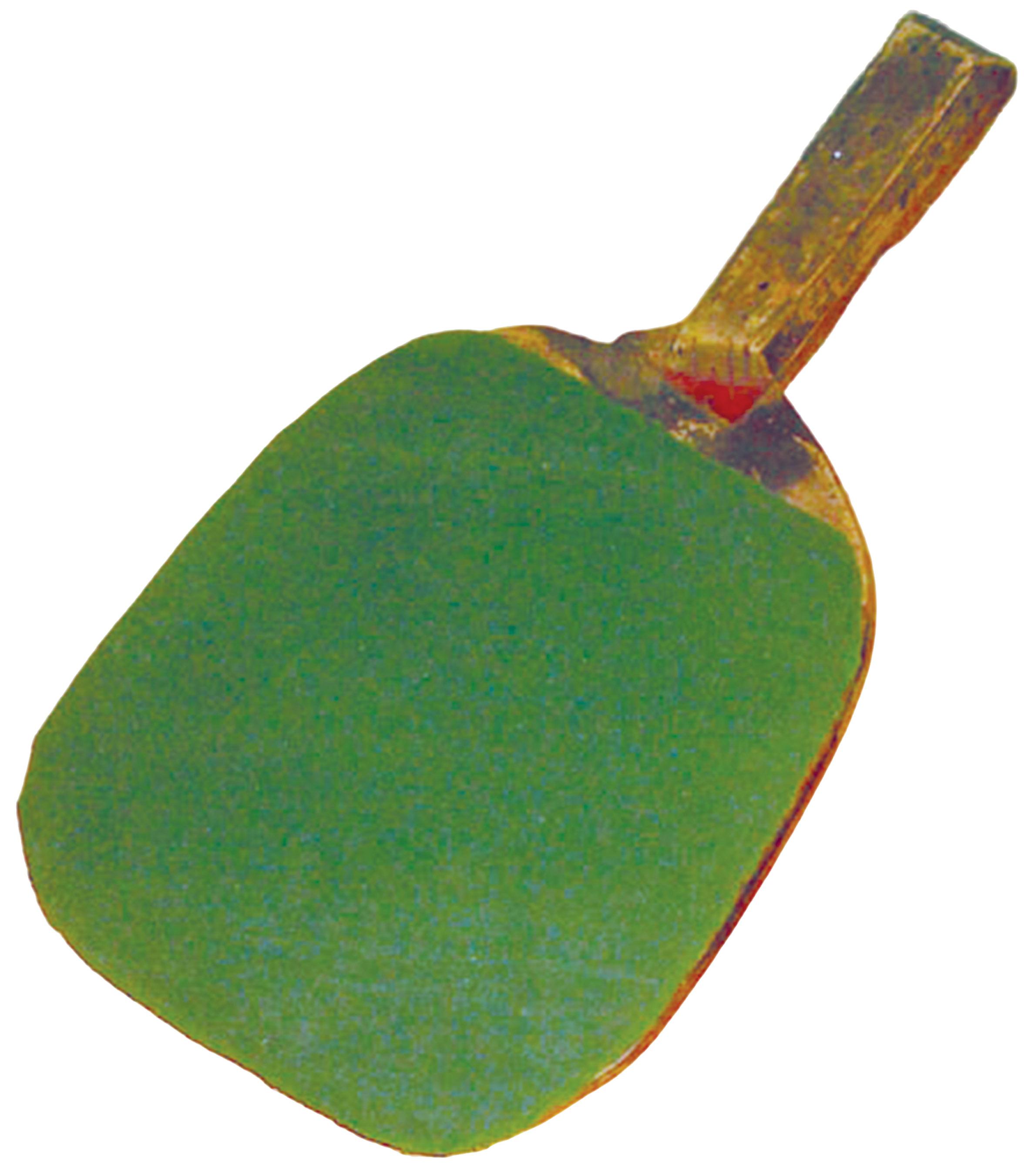
He gave the newly crowned All-Japan champion a severe reprimand for not smiling when he received the trophy. Ogimura responded, he practised smiling!
Arriving at a bitterly cold London Heathrow after a 55-hour flight from Tokyo’s Haneda airport on an Air France propeller airplane, table
tennis officials and reporters were waiting to greet their guests, amongst the group, Richard Bergmann. Practice facilities were organised, the players being afforded a guided tour of London landmarks by Shuichi Fujikura, a Japanese broadcaster who was perfecting her skills by gaining advice from the BBC.
Polite greetings but memories of the Second World War were strong; the official Japanese surrender being in September 1945. Entering a restaurant wearing suits with the Japanese flag embroidered in their jackets, everyone left; barbers refused hair cuts and when entering the playing hall, the Japanese were greeted with booing from the 8,000 strong crowd.
In any match involving a Japanese player, a point won by their opponents was greeted by cheering and foot stamping on the boards that covered what was essentially a venue for ice hockey. Conversely, Japanese success was met by utter silence.
Even the printed media suggested the Japanese were taking drugs, equally there were instances of biased umpiring. Tamasu, the youngest member of the Japanese team was penalised for exclaiming “yoshi”, meaning “good”, when winning a point. Furthermore, when he returned the ball to his opponent by using the racket, the umpire called service fault!
Anti-Japanese feelings running high, Ogimura had a further major difficulty to overcome; that of the tactics against European players who were renowned for their stalwart defensive capabilities. The traditional method, supported by Hasegawa, was to be patient and wait for the opportunity; Ogimura believed that the strongest possible attacking play from the very start was the better tactic. He promoted the 51 per cent theory; if you believed you could hit an outright winner 51 times out of 100, then at the very least in the deciding game you would be level at 20-20.
Three groups in the initial stage of the men’s team event, each group comprising nine teams, nine singles should a fixture be extended the full distance, each individual match best of three games. Moreover, there was minimal room for error, only first place gained a position in the three-way title play-off, competing in group ‘B’ the crunch match was against Hungary, both teams hitherto unbeaten.
The opening match witnessed Tamasu, nursing a shoulder injury, lose to Laszlo Földy in three games; next Tomita confronted Ferenc Sidó, the reigning World champion, a player who used the traditional racket covered with just thin pimple rubber, no sponge.
Seconds before the match started, without any other members of the team knowing, Ogimura had advised Tomita that the only way to beat the Hungarian was to adopt the 51 per cent theory. Tomita lost the opening game 15-21, despite the reverse Ogimura believed the tactic was correct. Hasegawa remained quiet, seemingly converted, continuing the policy, Tomita won the next two games 21-15, 21-16.
Eventually Japan secured a 5-2 victory, a major upset, the match concluding with Ogimura beating Sidó in straight games, a contest in which Ogimura recorded 12 straight winners.
Through to the title play-off, England alongside Czechoslovakia awaited; the first adversary was England, the defending champions.
Tamasu had not recovered from his shoulder injury, he believed his task was to tire out his opponents, so they would be fatigued when opposing Ogimura and Tomita. He lost to Bergmann but won the second game 23-22 on the “Time Limit” rule, the rule stated that there was a limit of 20 minutes for each game, the player or pair leading at that stage was declared the winner.
Later, Tamasu was beaten in three games by Johnny Leach, defeats but he had fulfilled his self-designated task, to weaken the physical strength of the English!
Wins for Richard Bergmann and Johnny Leach but that was the total of English success. Tomita accounted for both Aubrey Simons and Bergmann, leaving Ogimura, after overcoming Simons, the task of beating Bergmann to seal the victory.
Tamasu’s fatigue theory worked, the 34-year-old English player, renowned for his defensive skills, was visibly tired as Ogimura moved the ball to all parts of the table.
The contest went the full distance, in the vital third game Ogimura led 18-12, the ball rolled under the umpire’s chair, the umpire trod on the ball, the Japanese believing this to be a deliberate act. The new ball was much harder, it affected Ogimura’s timing, Bergmann won the next five points, Ogimura changed tactics, played short and waited for the opportunity, he won the game 21-19, Japan had caused a sensation.
England, fielding the same trio, experienced a 5-3 defeat against Czechoslovakia’s Ivan Andreadis, Ladislav Stipek and Vaclav Tereba; the title decider beckoned, a full distance contest ensued.
Tamasu gave Japan the perfect start, he beat Tereba. Ogimura overcame Stipek to double the advantage before Andreadis defeated Tomita to reduce the deficit. Next Ogimura accounted for Tereba to give Japan a 3-1 lead. At that stage, the tide turned, Andreadis defeated Tamasu, Stipek proved too clever for Tomita; next, what appeared to be a title winning success, Andreadis returned to the table to inflict the one and only defeat on Ogimura in the whole tournament.
Proceedings in favour of Czechoslovakia, ahead 4-3, Tomita proved too strong for an out of form Tereba, leaving Tamasu the task of becoming a national hero; despite his shoulder injury, he prevailed in straight games when facing Stipek. Japan owned the Swaythling Cup.
Impressively, Ogimura concluded the men’s team event with a record that read 19 wins, one defeat; the fact he used a sponge covered racket was a talking point, but u
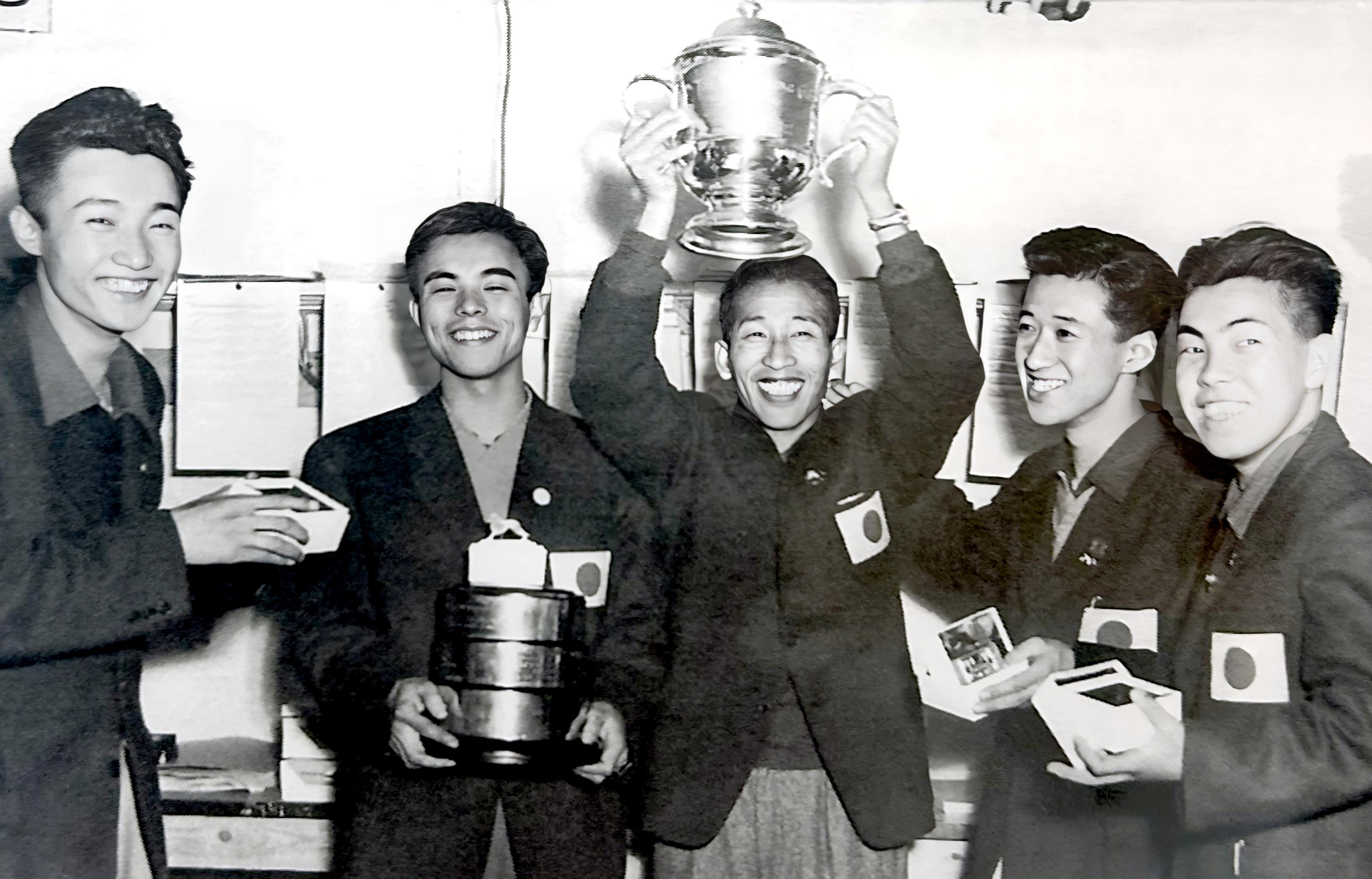
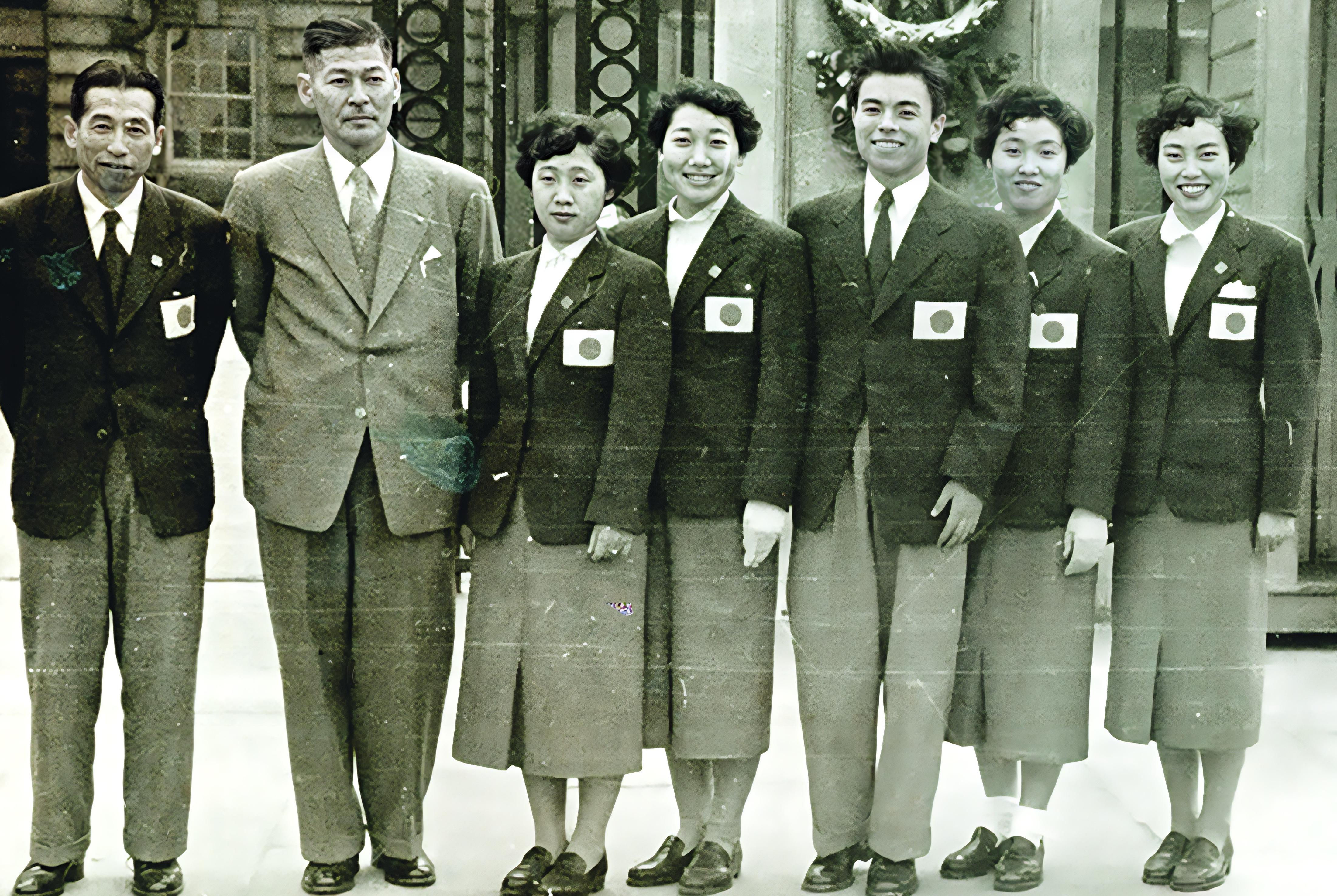 The successful Japanese men’s left to right Kazuo Kawai, Ichiro Ogimura, Kayatoro Hasegawa (coach), Kichiji Tamasu, Yoshio Tomita)
The successful Japanese men’s left to right Kazuo Kawai, Ichiro Ogimura, Kayatoro Hasegawa (coach), Kichiji Tamasu, Yoshio Tomita)
HE TOOK JUST 29 MINUTES TO OVERCOME HIS SWEDISH ADVERSARY, HIS ATTACKING PLAY RESULTING IN FEW RALLIES AS HE DOMINATED MATTERS FROM START TO FINISH. INCREDIBLY, NOT SEEDED, HE HAD WON THE TITLE WITHOUT EVER BEING EXTENDED THE FULL FIVE GAMES DISTANCE.
the overriding reason afforded by the media for Japanese success was athleticism. In fact, Ogimura was the only member of the team who used a sponge covered racket; significantly, the covering on Tomita’s racket was five-millimetre-thick rubber.
Immediately following the win, the players hugged each other but there was little time for celebration, the next day, the individual events commenced.
Ogimura’s quest started from the very beginning, he was one of the few who started in the round of 256, a fact that paid great tribute to his fitness and character. Safely through to round five, he beat Ferenc Sidó, before accounting for Bernard Bukiet of the United States and then avenging his men’s team reverse against Andreadis to book a place in a ground-breaking final.
He faced, Sweden’s Tage Flisberg, at 38 years of age, the oldest player ever to reach a World Championships men’s singles final and 17 years the senior of Ogimura. Furthermore, it was the first ever men’s singles final at a World Championships when both players used sponge covered rackets.
Just as in the previous two rounds, in what became known as the “silent final” because of the racket surfaces, Ogimura won in four games, a contest which the media reported as one of the most boring ever. He took just 29 minutes to overcome his Swedish adversary, his attacking play resulting in few rallies as he dominated matters from start to finish. Incredibly, not seeded, he had won the title without ever being extended the full five games distance.
One day later, Thursday 15th April, the news was broadcast in Japan on NHK radio; Hisae raced outside to tell everyone, but it was so early in the morning the streets were deserted. Instead, she visited the Musashino shrine and prayed. Later in the day, the evening newspaper published a front-page photo of Ogimura standing next to Flisberg and holding the St Bride Vase. Most apt, also there was a photo of a tearful Michie alongside work colleagues.
All the effort had been worthwhile, the slightly built boy who had practised for hour upon hour in Kishijooji was now the World champion. Pertinently, he had changed the face of table tennis for evermore, a game which had experienced problems with “pushing” play, negativity, long drawn-out matches, was now what is today, an exhilarating, athletic and dynamic sport.
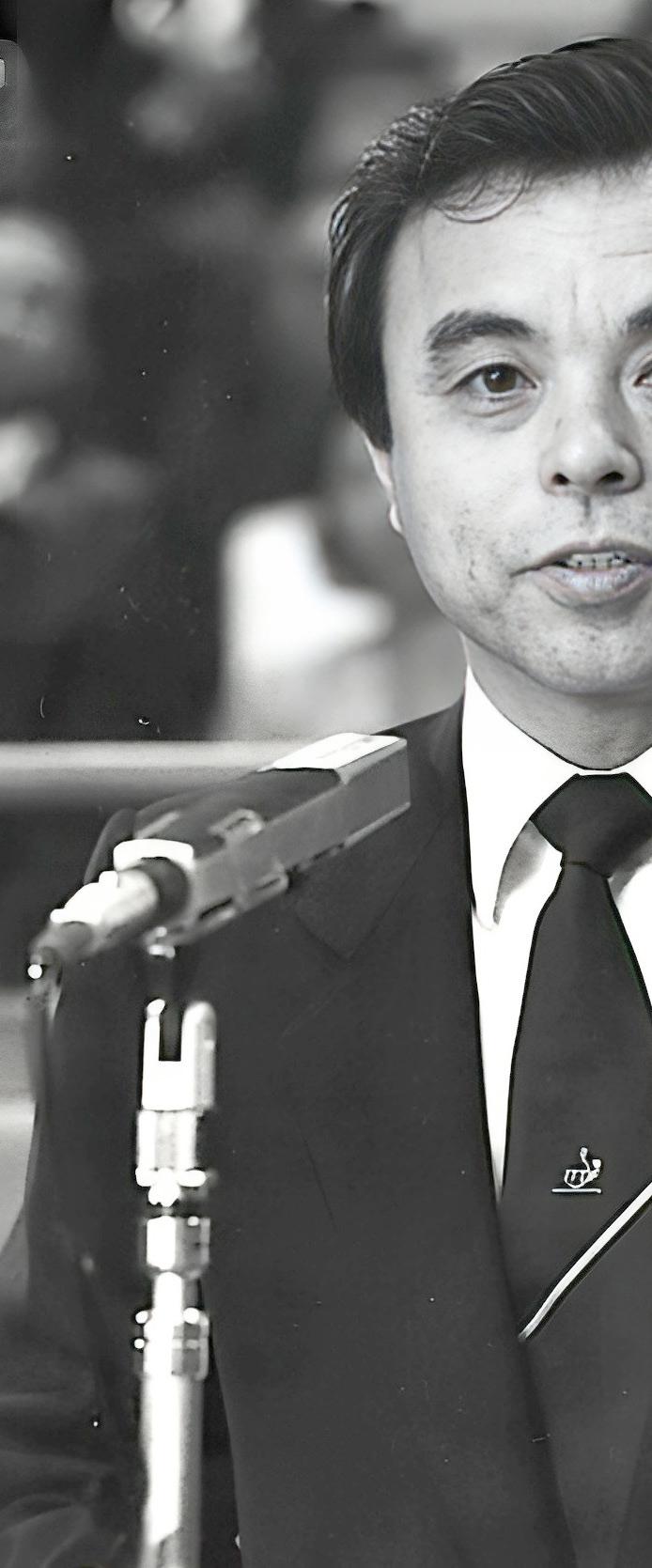

ICHIRO OGIMURA AT THE 1954 WORLD
MEN’S TEAM
Title Play-Off
JAPAN 5-2 ENGLAND
Yoshio Tomita v Aubrey Simons 14, 17
Kichiji Tamasu v Richard Bergmann -10, 23-22 (Time Limit), -7
Ichiro Ogimura v Johnny Leach 10, -18, 8
Yoshio Tomita v Richard Bergmann -21, 13, 17
Ichiro Ogimura v Aubrey Simons 15, -17, 11
Kichiji Tamasu v Johnny Leach 15, -16, -19
Ichiro Ogimura v Richard Bergmann -10, 11, 19
CZECHOSLOVAKIA 5-3 ENGLAND
Ladislav Stipek v Johnny Leach 17, -10, -10
Ivan Andreadis v Aubrey Simons 19,19
Vaclav Tereba v Richard Bergmann -13,16,-17
Ivan Andreadis v Johnny Leach 10, -17, 18
Ladislav Stipek v Richard Bergmann -18, -19
Vaclav Tereba v Aubrey Simons 14, -14, 13
Ivan Andreadis v Richard Bergmann 14, 16
Vaclav Tereba v Johnny Leach 19, 18
JAPAN 5-4 CZECHOSLOVAKIA
Kichii Tamasu v Vaclav Tereba 11, 12
Ichiro Ogimura v Ladislav Stipek 18, -17, 14
Yoshio Tomita v Ivan Andreadis -12, -14
Ichiro Ogimura v Vaclav Tereba 14, 15
Kichii Tamasu v Ivan Andreadis 18, -20, -13
Yoshio Tomita v Ladislav Stipek -15, 20, -21
Ichiro Ogimura v Ivan Andreadis -13, -19
Yoshio Tomita v Vaclav Tereba 15, 10
Kichii Tamasu v Ladislav Stipek 17, 12
Group Stage (Ogimura’s results)
JAPAN 5-2 HUNGARY
v Laszlo Foldy 18, 13
v Elemer Gyetvai -16, 11, 11
v Ferenc Sidó 10, 16
JAPAN 5-0 ROMANIA
v Matei Gantner 19, 20
v Tiberiu Harasztozi 15, 16
JAPAN 5-0 INDIA
v I. Vyas 11, 6
JAPAN 5-0 EGYPT
v El-Ashmawy 14, 13
JAPAN 5-0 NETHERLANDS
v Scheffer 7, 12
JAPAN 5-0 SPAIN
v José Maria Pales 13, 15
JAPAN 5-0 PORTUGAL
v Figueiredo 11, 8
JAPAN 5-0 SCOTLAND
v E. Still 15, 14
Ogimura led by example, in the men’s team event he played 20 matches, losing just one; that being to Ivan Andreadis, the player he was later to beat at the semi-final stage of the men’s singles. Overall, the reward for his efforts was two gold and one bronze.
MEN’S SINGLES
Round One
Derek Burridge (ENG) 12, 13, 16
Round Two
Ray Hinchliff (ENG) 13. -19, 14, 13
Round Three
Murray Dunn (NZL) 10, 11, 13
Round Four
Bernard Crouch (ENG) 11,15,13
Round Five
Ferenc Sidó (HUN) 18, 11, 13
Quarter-Final
Bernard Bukiet (USA) 11,-16,12,12
Semi-Final
Ivan Andreadis (TCH) 19,12,-18, 22
Final
Tage Flisberg (SWE) 7,12,-18,10
MEN’S DOUBLES
Partner: Yoshio Tomita (JPN)
Round One v bye
Round Two v Jones / Sherwood (ENG) 16, 14, 8
Round Three
v John Davies / Walter Sweetland (WAL) 14, 16, 13
Round Four
v Michel Lanskoy / René Roothooft (FRA) 7, 16, 18
Quarter-Final
v Ken Craigie / Alan Rhodes (ENG) 8, 4, 12
Semi-Final
Žarko Dolinar / Vilim Harangozo (YUG) -17, -16, -15
MIXED DOUBLES
Partner: Kiiko Watanabe (JPN)
Round One
v Mike Thornhill / Yvonne Baker (ENG) 11, 13, 9
Round Two
v John Davies / Vera Rowe (WAL) 14, 8, 18
Round Three
v Adolf Slar / Agnes Simon (TCH/HUN) 14, -20, 14, 19
Round Four
v Ladislav Stipek / Eliska Krejcova (TCH) -13, -8, 19, -15, -13
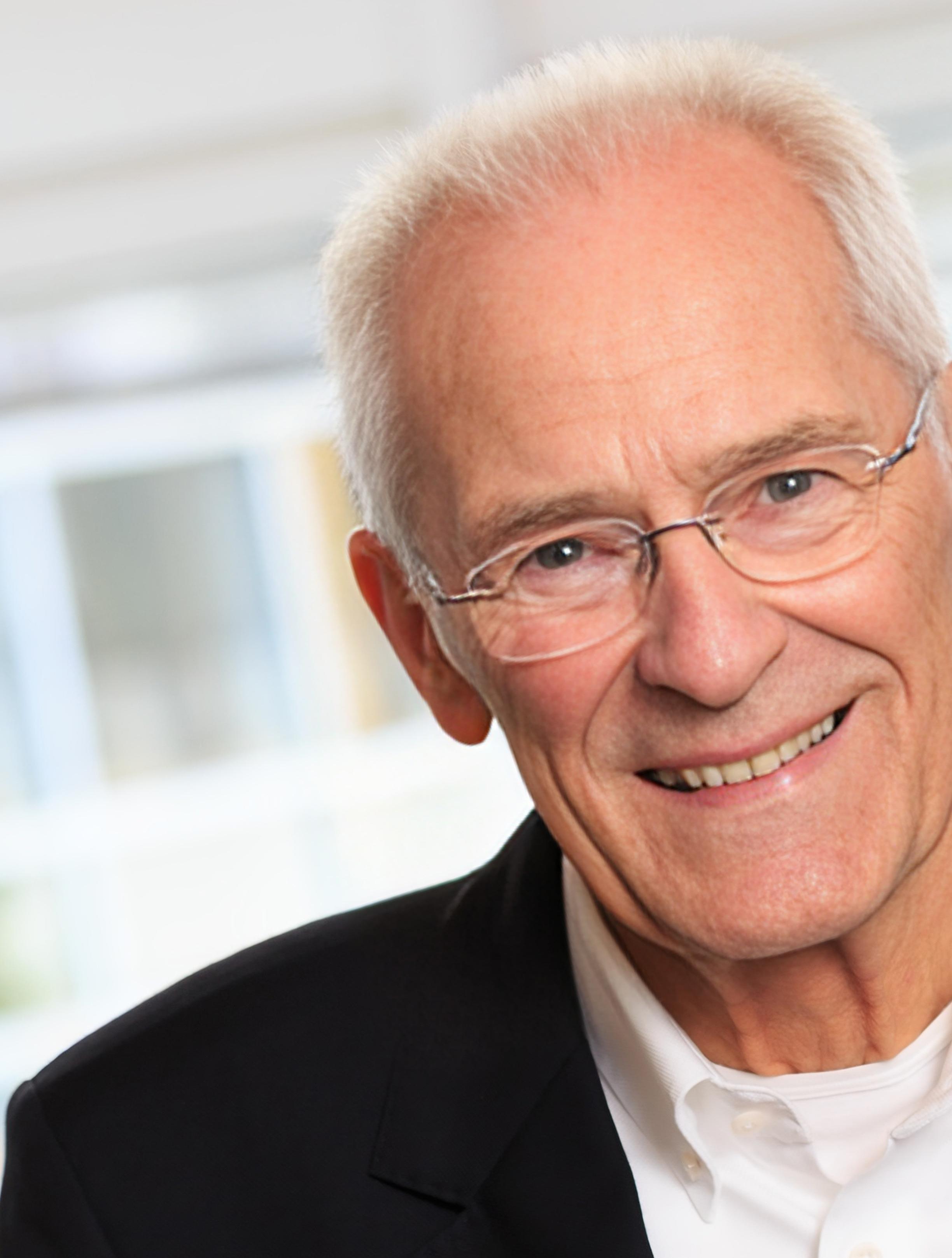
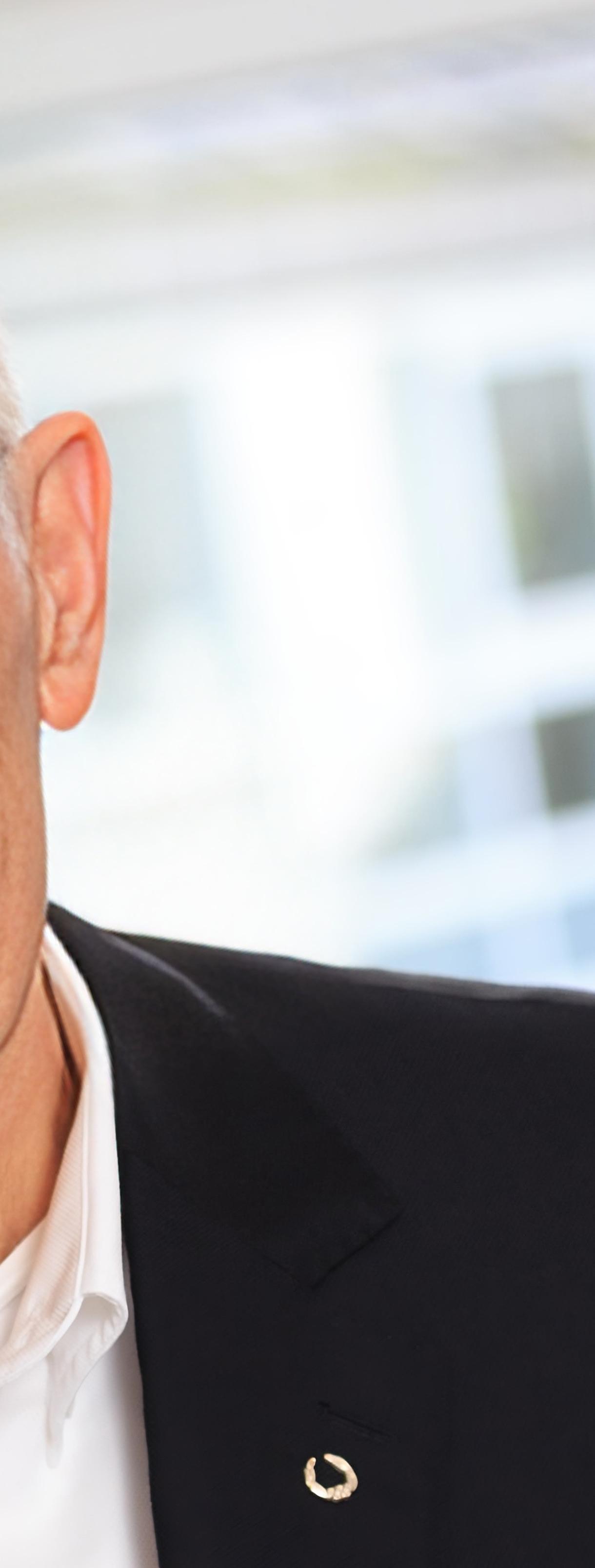
Stepping Down
Astalwart of the German Table Tennis Association (DTTB), in late February, after 45 years as a member of the Executive Committee, Hans Wilhelm Gäb announced that he wished to step down from his current position.
The decision does not mean total retirement, his involvement remains, but in the background, he will continue to support what he believes is the best sport in the world.
In his letter announcing his decision, he wrote:
"I started playing in 1949, became a member of Borussia Düsseldorf in 1951, began my work on the DTTB Executive Committee in 1979, in 2024 that will have been 45 long years. Is there a better time to draw a line? I don't think so and have therefore decided to end my active work on the DTTB Executive Committee as of today. Apart from the time factor, there are no reasons for this step."
True to his modest character he added a request that was reminiscent when marking his 70th birthday; no lavish
Please spare me and yourself any kind of formal thanks on my farewell. Nobody owes me any thanks because the sport of table tennis itself has thanked me in many different ways throughout my life.
party, his preference donations for the charitable causes "Stiftung Deutsche Sporthilfe" and the organisation he founded "Kinderhilfe Organtransplantation"; per year children from more than 100 families have undergone transplants.
“Please spare me and yourself any kind of formal thanks on my farewell. Nobody owes me any thanks because the sport of table tennis itself has thanked me in many different ways throughout my life."
Undoubtedly, Gäb, a member of the Swaythling Club International, who celebrated his 88th birthday on Sunday u
31st March is best known as one of the most highly respected officials the sport has ever known but make no mistake, before administrative positions assumed priority, he was no mean player.
Overall, he made 13 appearances for the West German team. Lining up alongside Erich Arndt, Conny Freundorfer, Ernst Gomolla and Dieter Köhler, he played in the Dortmund 1959 World Championships, ninth place in the men’s team event a most creditable finish. Also, on the international scene, he was on duty at the 1960 and 1962 European Championships.
Meanwhile, domestically, partnering Horst Langer he won the men’s doubles title at the national championships in 1958 and 1960, the mixed doubles alongside Jutta Kruse in 1961 and 1962. Furthermore, in 1961 and 1969 he was a member the PSV Borussia Düsseldorf men’s team that won the German Bundesliga, the club where he established a lifelong friendship with Ebby Schöler.
Honorary President of the DTTB, for many years Gäb occupied the highest positions in the Opel Automotive Company and General Motors Europe, in addition he was President of Deutsche Sporthilfe from 2005 to 2007, a
learn to lose decently and win with humility
non-profit foundation to support athletes in order to compete at international level.
The heart and mind behind the development of table tennis in Germany, he became the spokesperson for players who were relatively unknown, first as Sports Director in the regional association, Table Tennis North Rhine-Westphalia, and from 1979 as a member of the DTTB presidium. He worked side by side with Schöler to create good conditions for professional players. Jörg Rosskopf and Timo Boll are beneficiaries, both following the Gäb principle: "learn to lose decently and win with humility”.
Creating a professional approach, adopting far seeing policies, under his tutelage the 1989 World Championships in Dortmund set new standards introducing among other initiatives the red flooring. Significantly, Steffen Fetzner and Jörg Rosskopf won the men’s doubles, a new era in the public perception of table tennis dawned.
Improving the image of sport was just one of his many talents, he became a notable journalist. He possessed a feeling for language; he was creative, always working diligently and demonstrating great willpower. He took his first important steps in journalism in the local Düsseldorf daily newspaper "Mittag". In 1968, having a great interest in cars and motorsport, he founded "Auto Zeitung", fulfilling the role of editor-in-chief.
Soon after, he moved to public relations, assuming the role of head of the press department at Ford-Werke in Cologne; he progressed to being a member of the Board u
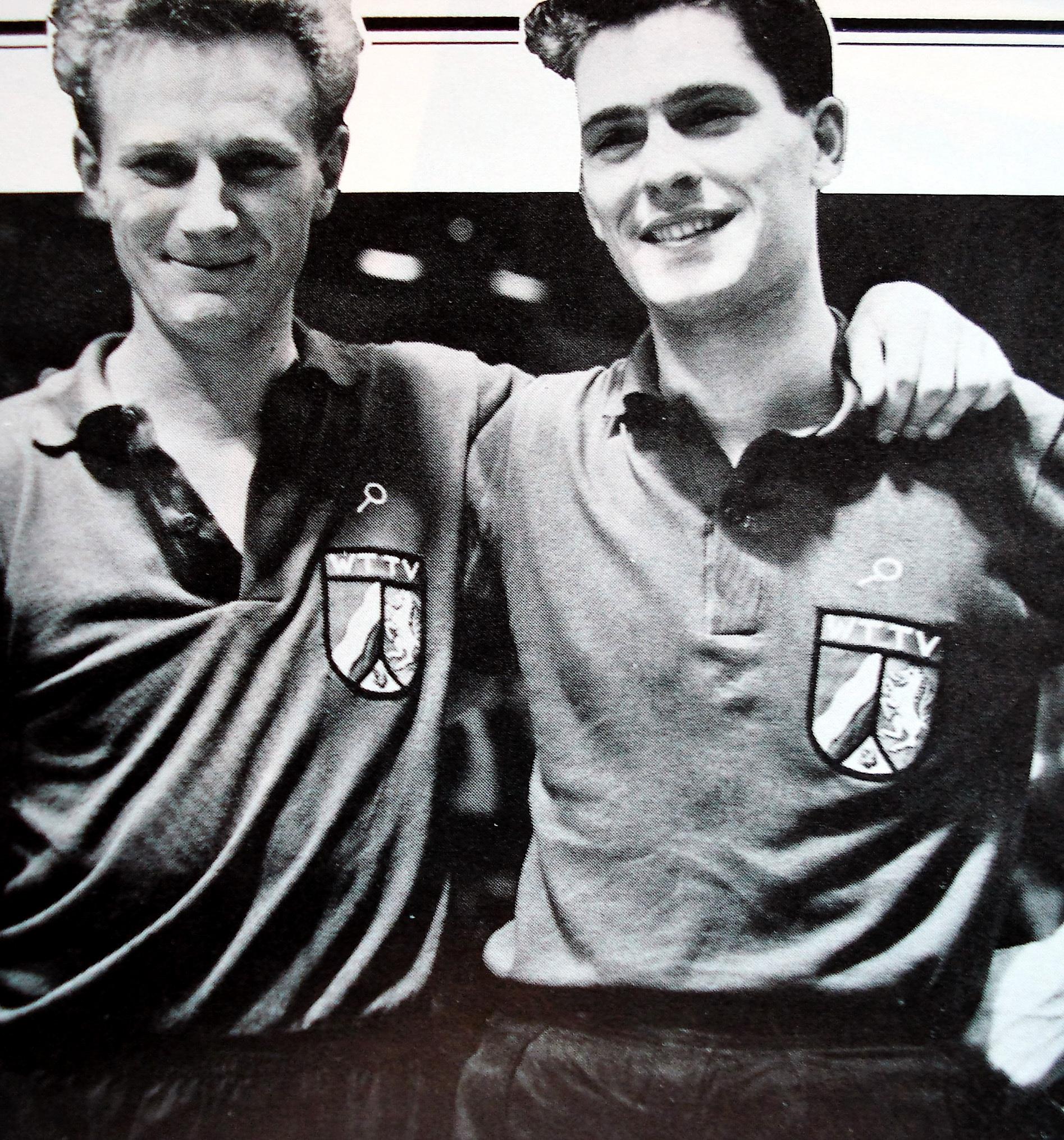
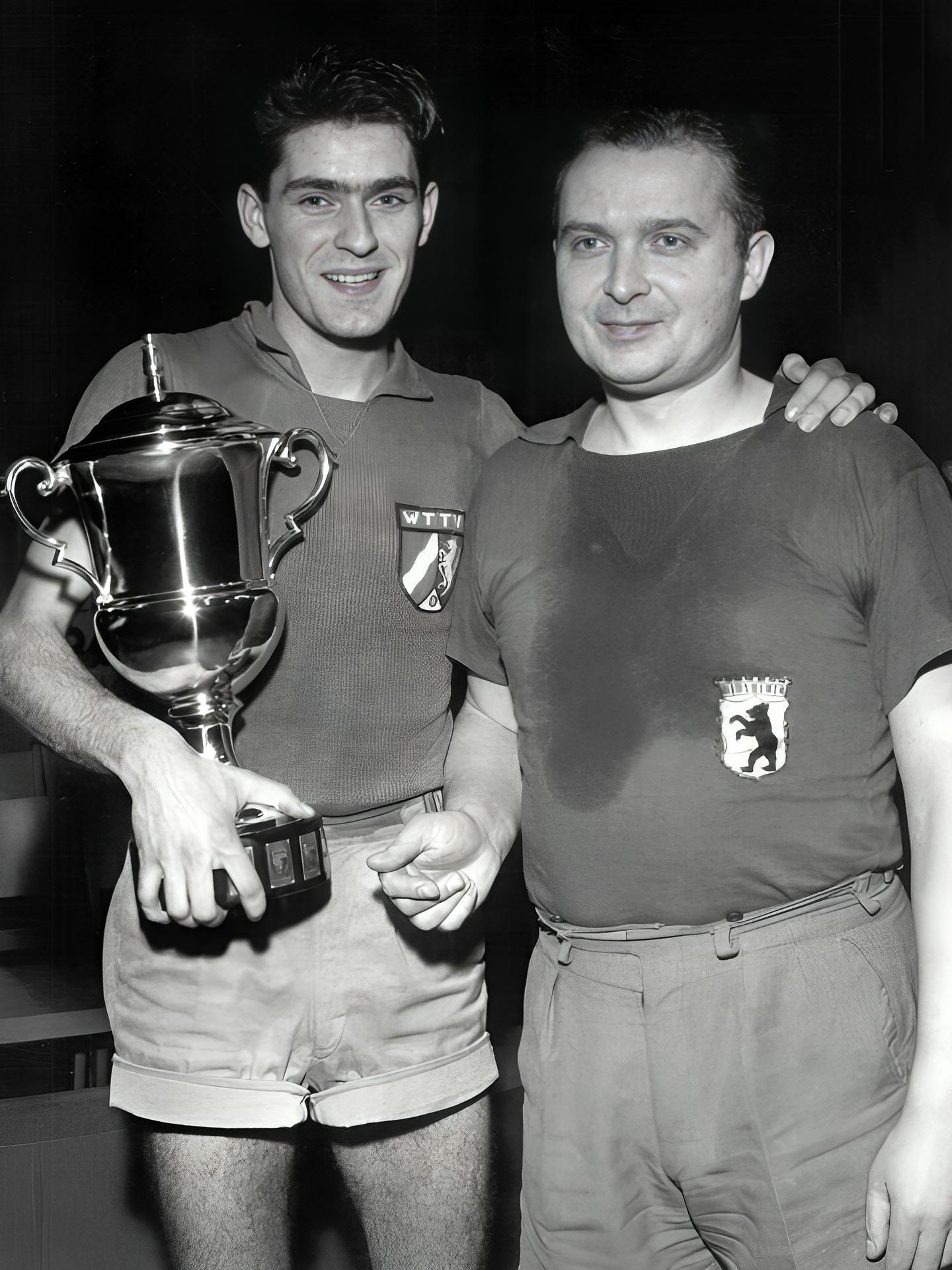

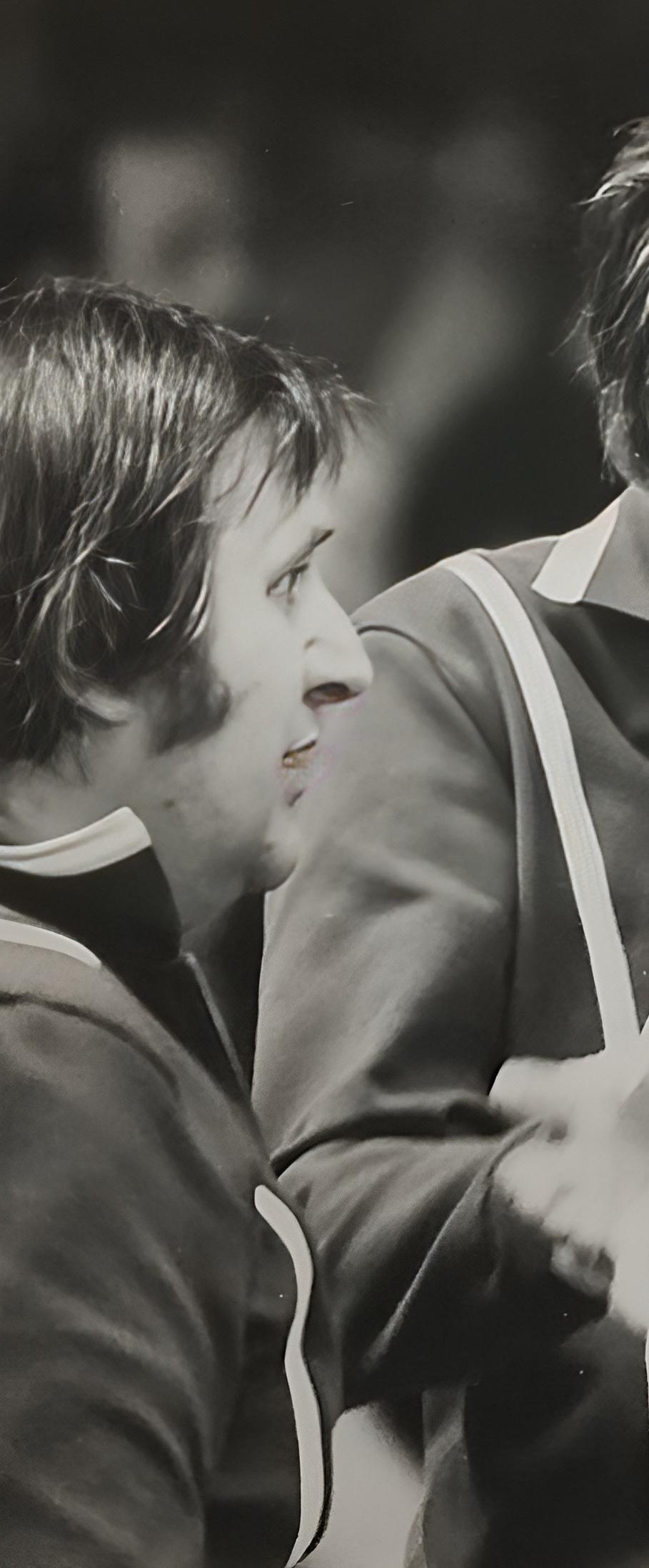
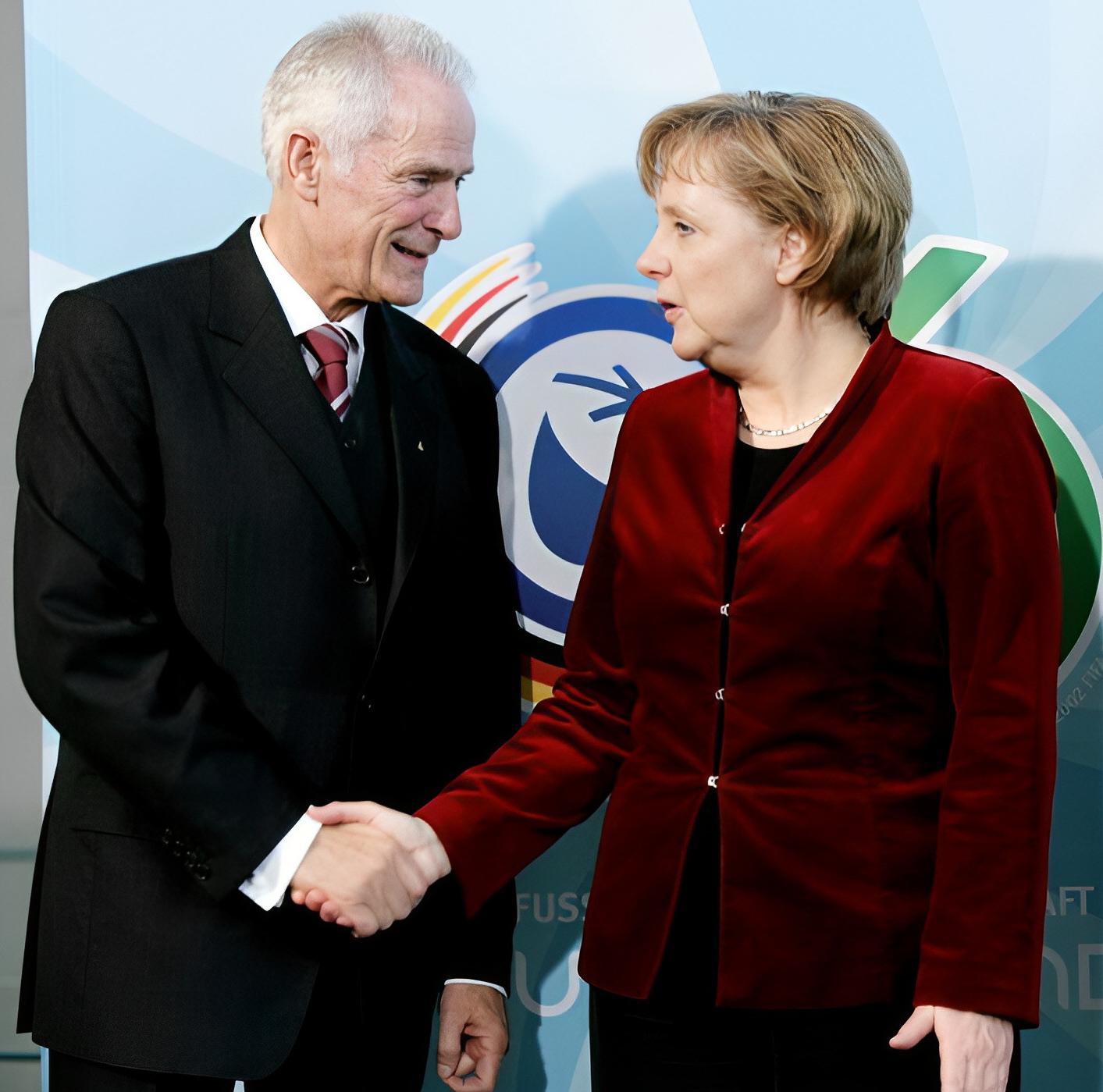

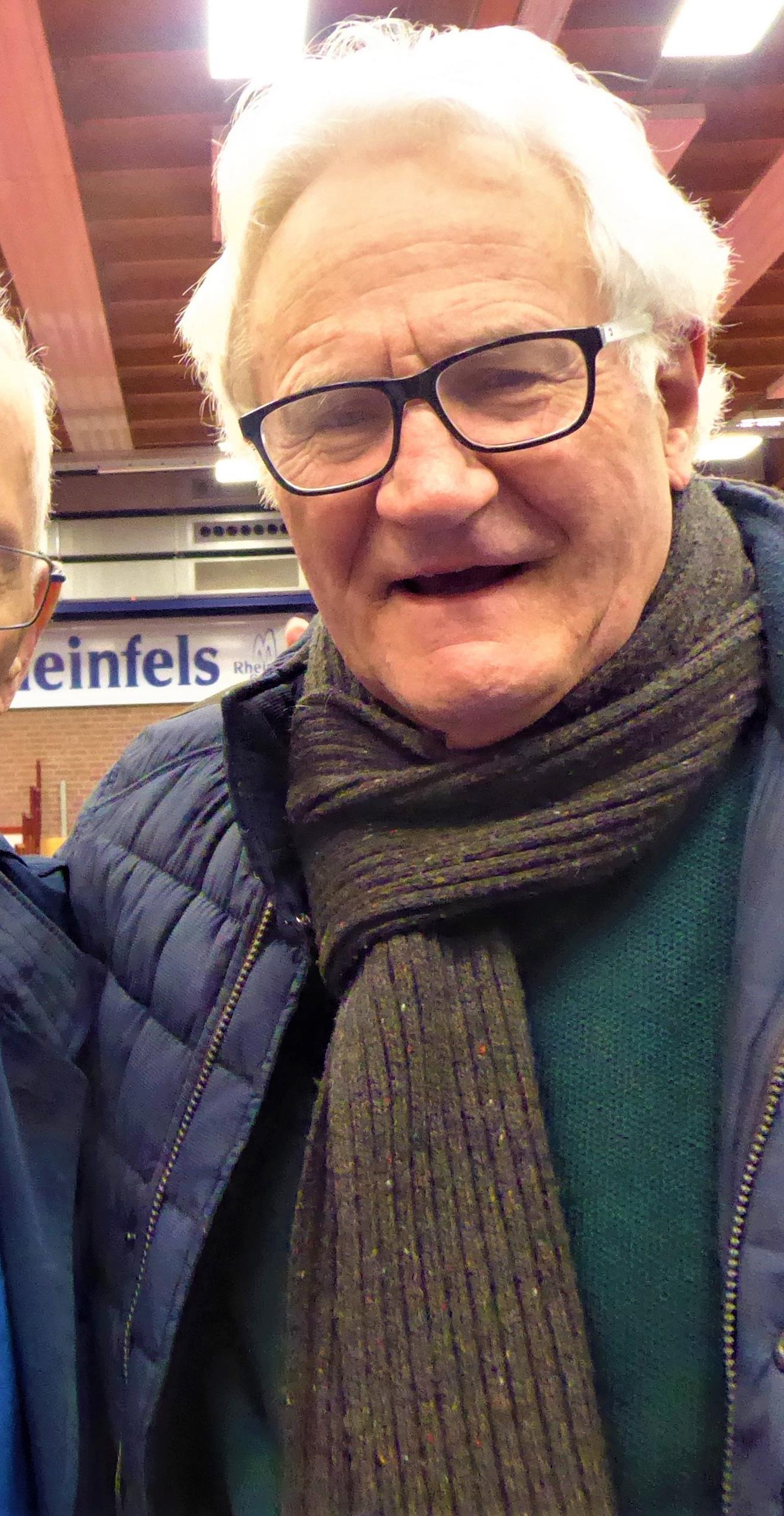
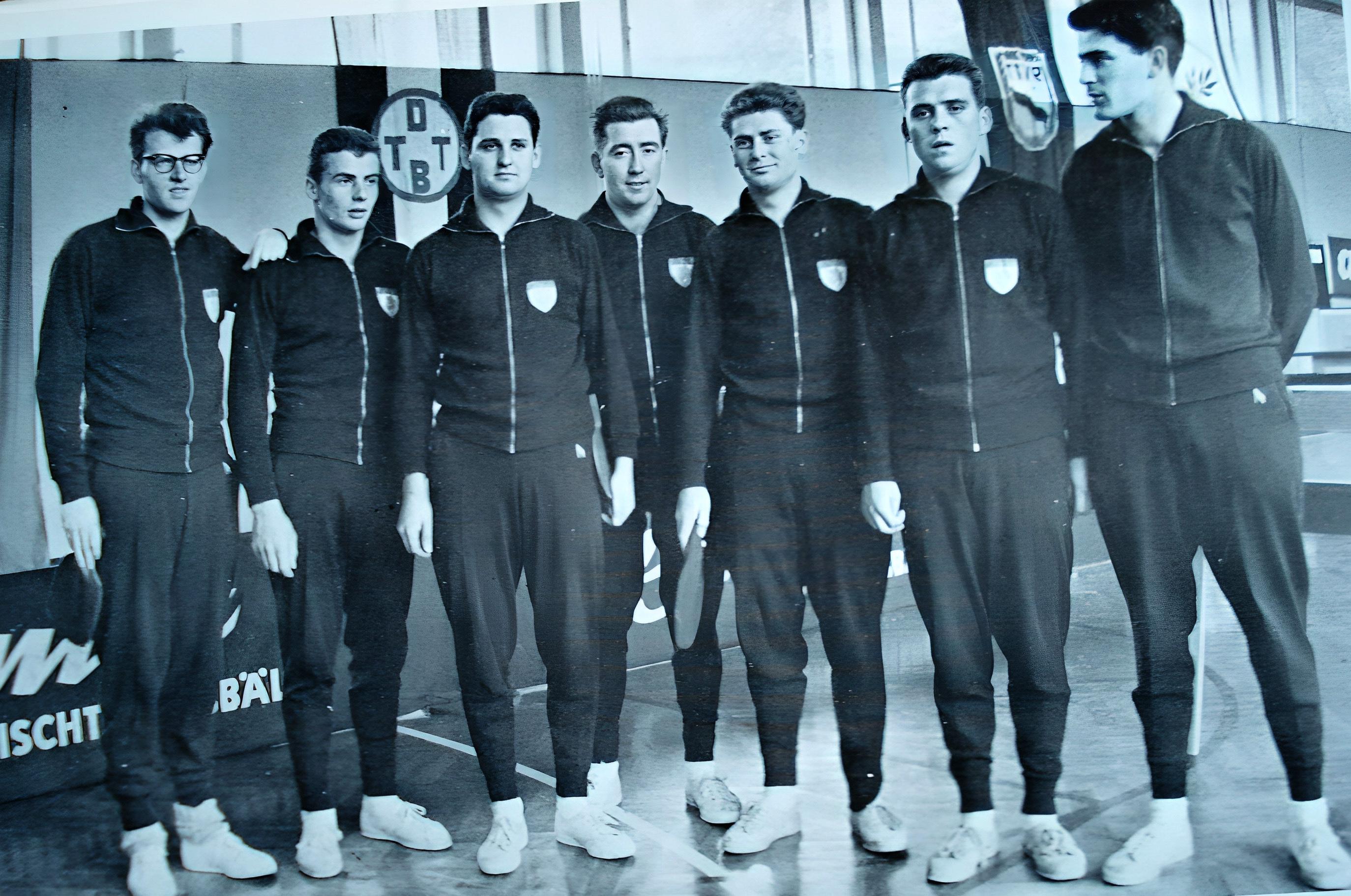
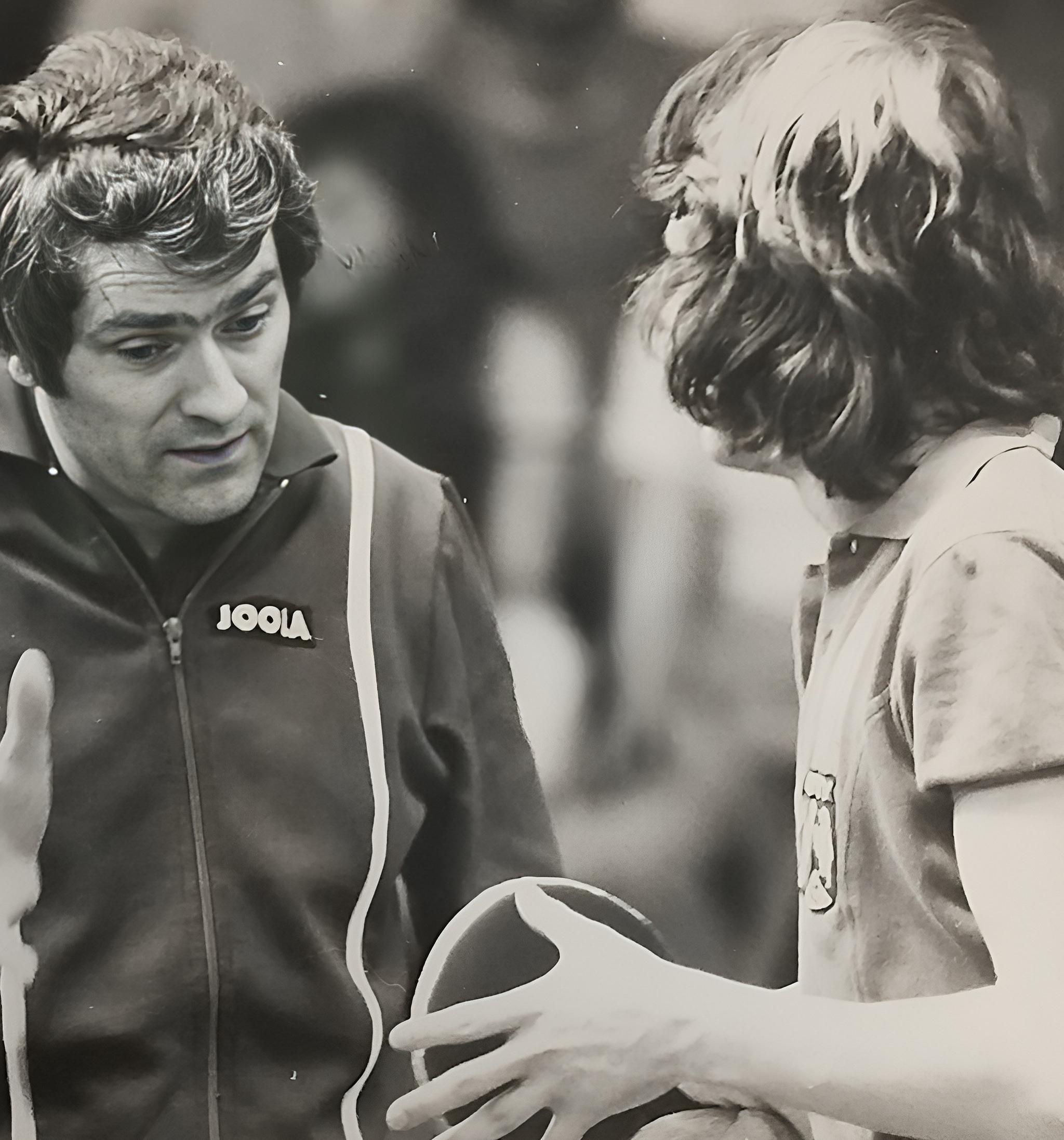
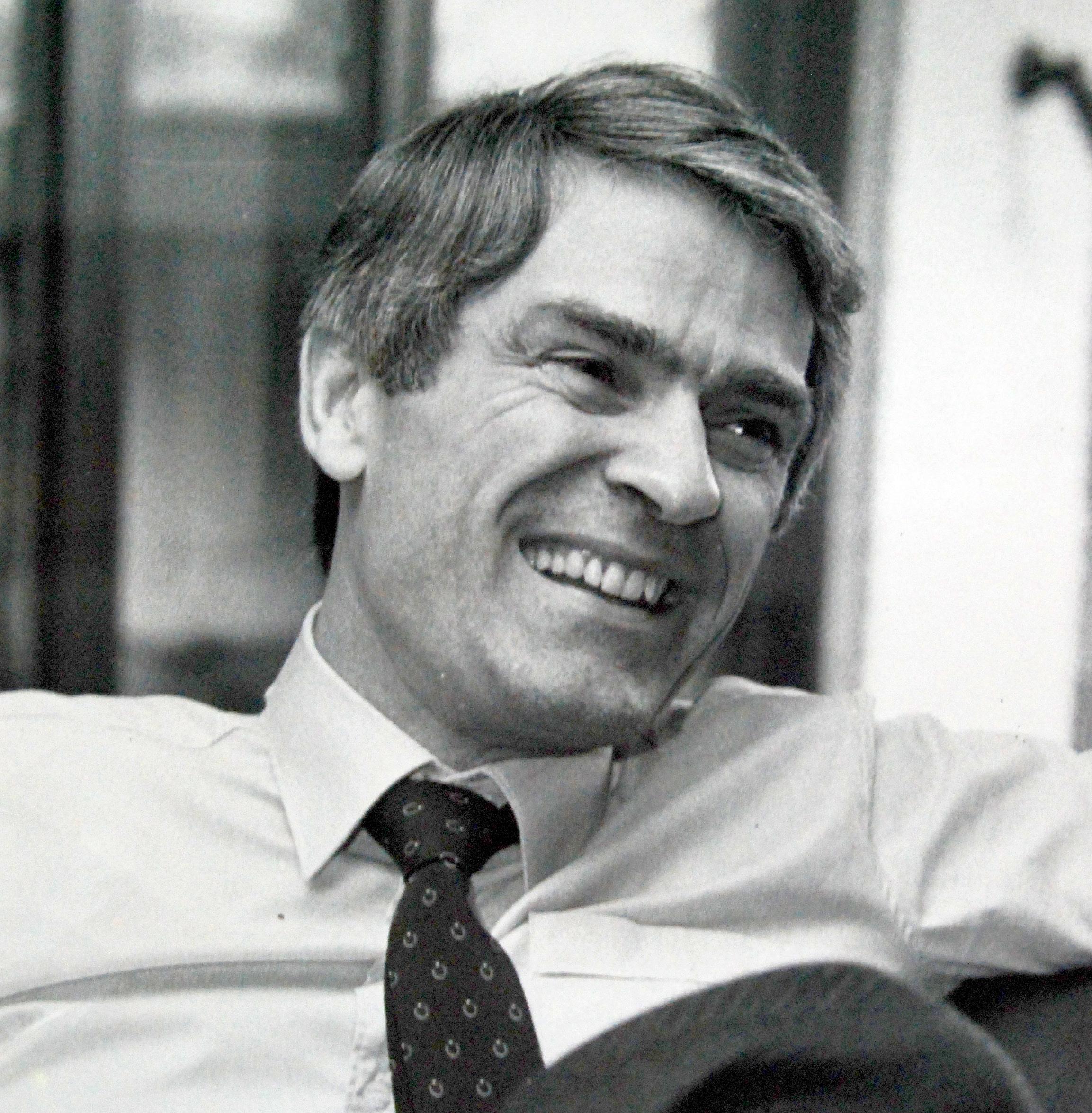
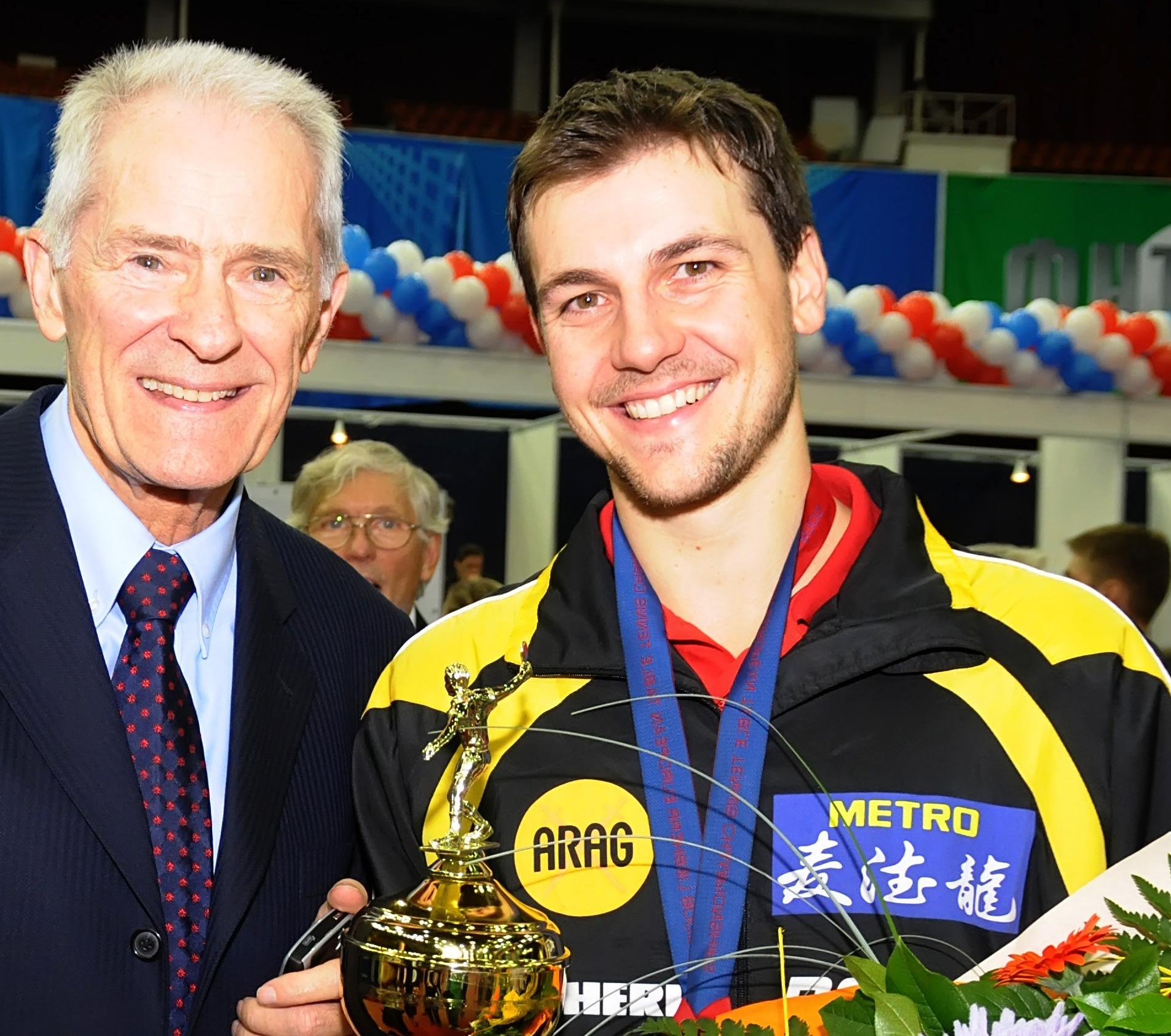
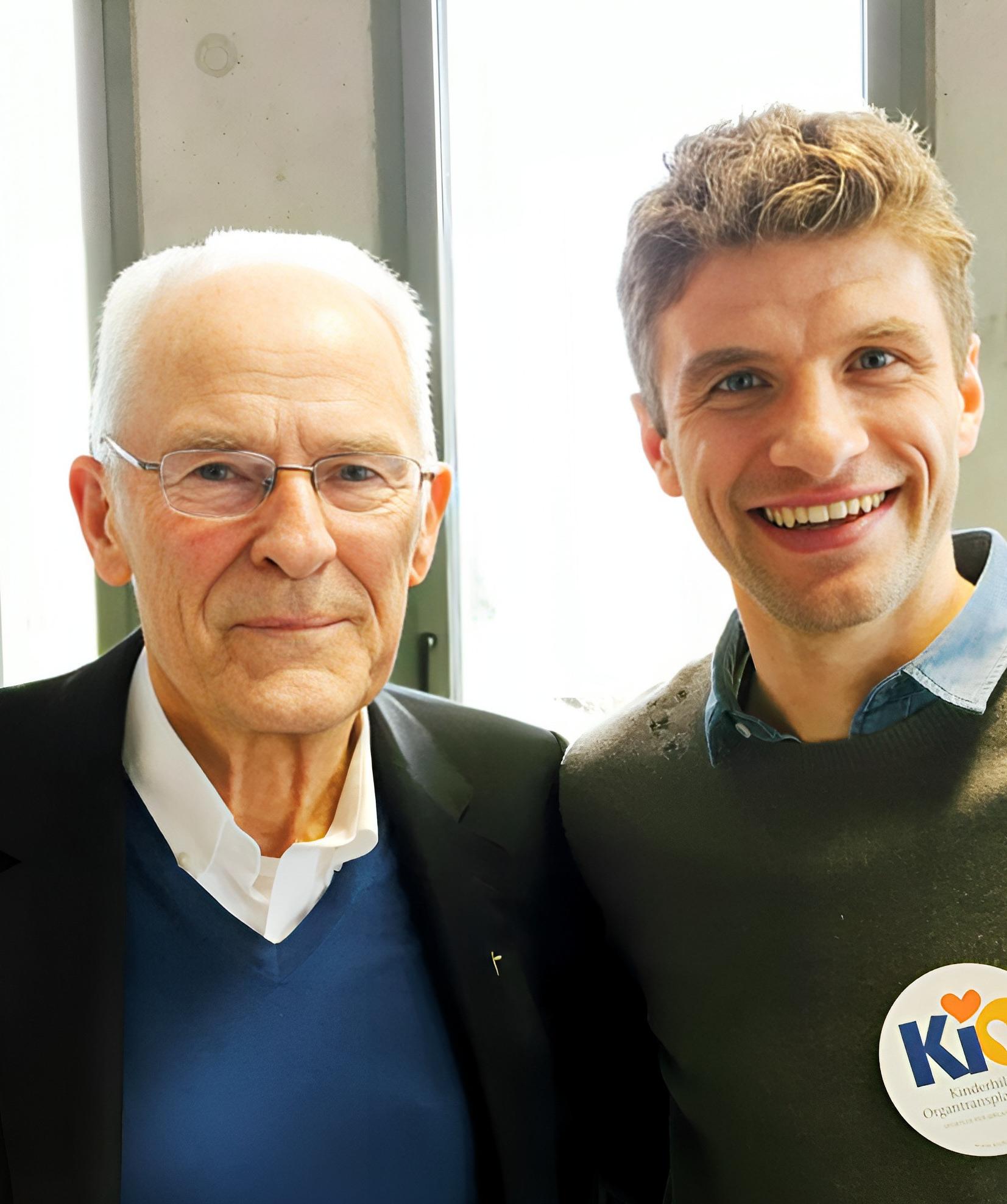
TOP ROW LEFT
Arms around Horst Langer left after winning the men’s doubles title at the 1958 West German Championships; they won again in 1960.
TOP ROW CENTRE
A reunion with Horst Langer right in 2020 at a Bundesliga match.
TOP ROW RIGHT
PSV Borussia Düsseldorf, German Team Champions in 1961 left to right Pit Weel, Walter Hafner, Horst Graef, Heinz Nink, Bruno Fahl, Horst Terbeck, Hans-Wilhelm Gäb.
SECOND ROW LEFT
Alongside right Heinz Rack in 1959 having won the DTTB Cup.
SECOND ROW CENTRE
Watched by Berni Vossenbein left advising right Ralf Wosik at the 1975 German Youth Championships.
SECOND ROW RIGHT
In the 1980s HansWilhelm Gäb played a major role in promoting Opel.
THIRD ROW LEFT
A meeting with right Angela Merkel, German Chancellor in 2006.
THIRD ROW CENTRE
Congratulating right Timo Boll after winning the men’s singles title at the 2008 European Championships.
THIRD ROW RIGHT
In 2015 after initiating a sponsorship deal with Bayern Munich footballer Thomas Müller right the brand ambassador for KiO.
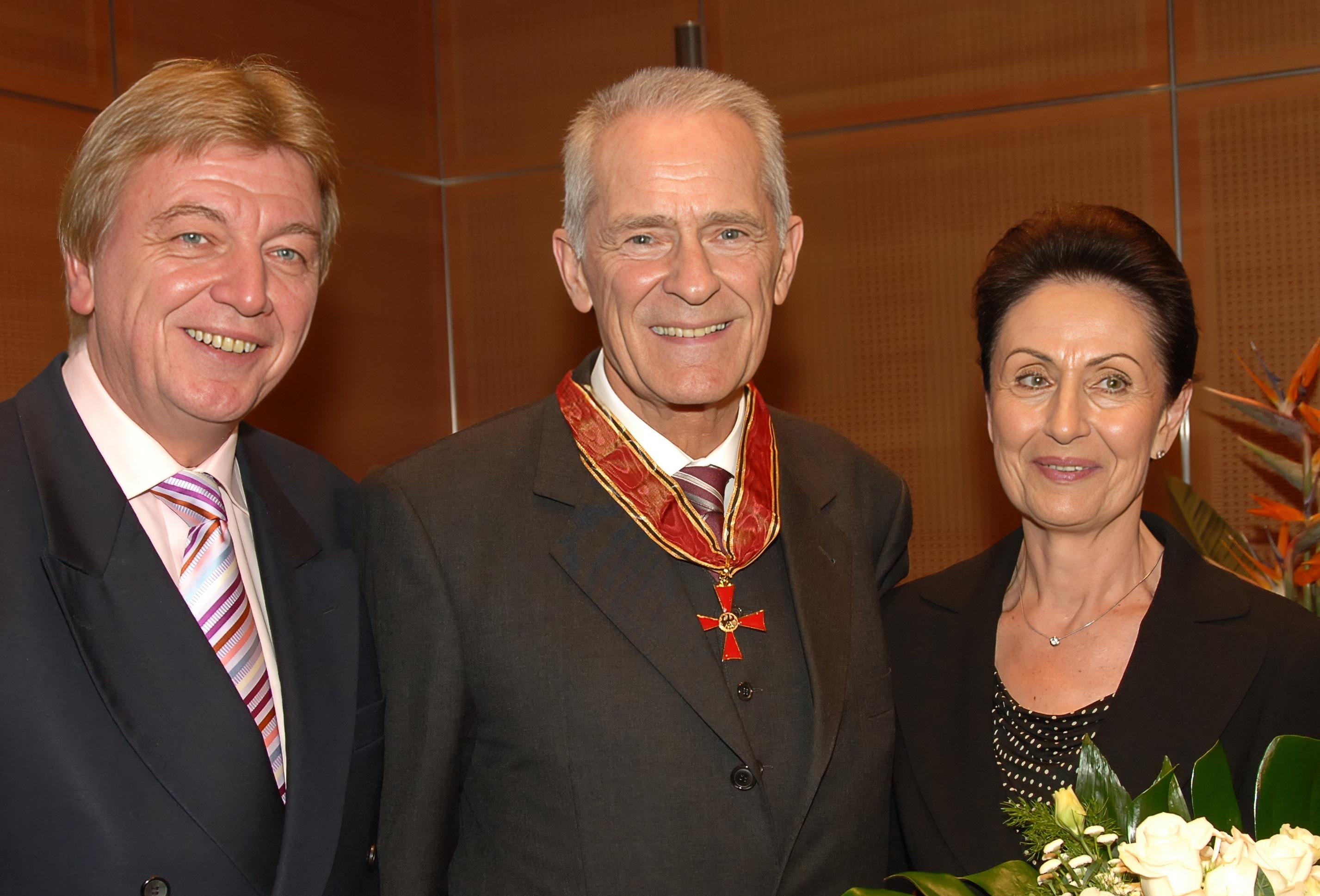
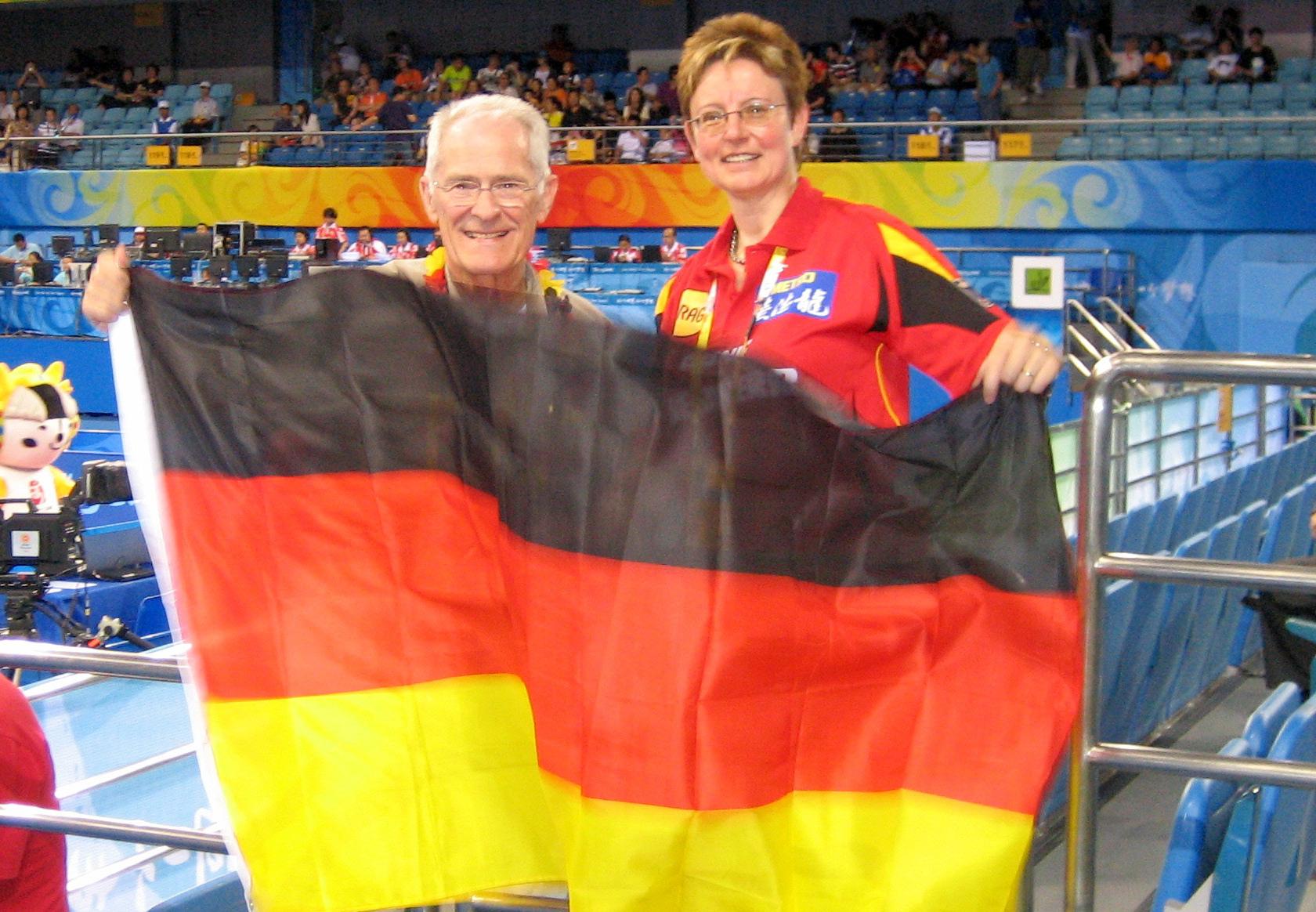
of Management as the first ever Head of Communications. Later In 1981, he moved to Opel, first to the Board of Management in Rüsselsheim, then to the headquarters of General Motors Europe. He initiated sponsorship deals with tennis star Steffi Graf, legendary swimmer Franziska van Almsick and the football clubs Bayern Munich and AC Milan; among others, he gave Opel and its parent company General Motors a fresh image.
Throughout, high integrity was his hallmark, the virtues of sport "Performance. Fair Play. Together”, were paramount in his thinking, the slogan that later he gave to Sporthilfe and followed in his business life. A leader, never afraid to face problems and make difficult decisions but never autocratic, his expertise in the art of communication, motivated colleagues to develop their skills.
Over the years he gained widespread trust and respect; in 1992 he became President of the European Table Tennis Union, fulfilled the role of Chef de Mission for the allGerman Olympic team at the Barcelona Olympic Games and was named as successor to Willi Daume as President of the National Olympic Committee.
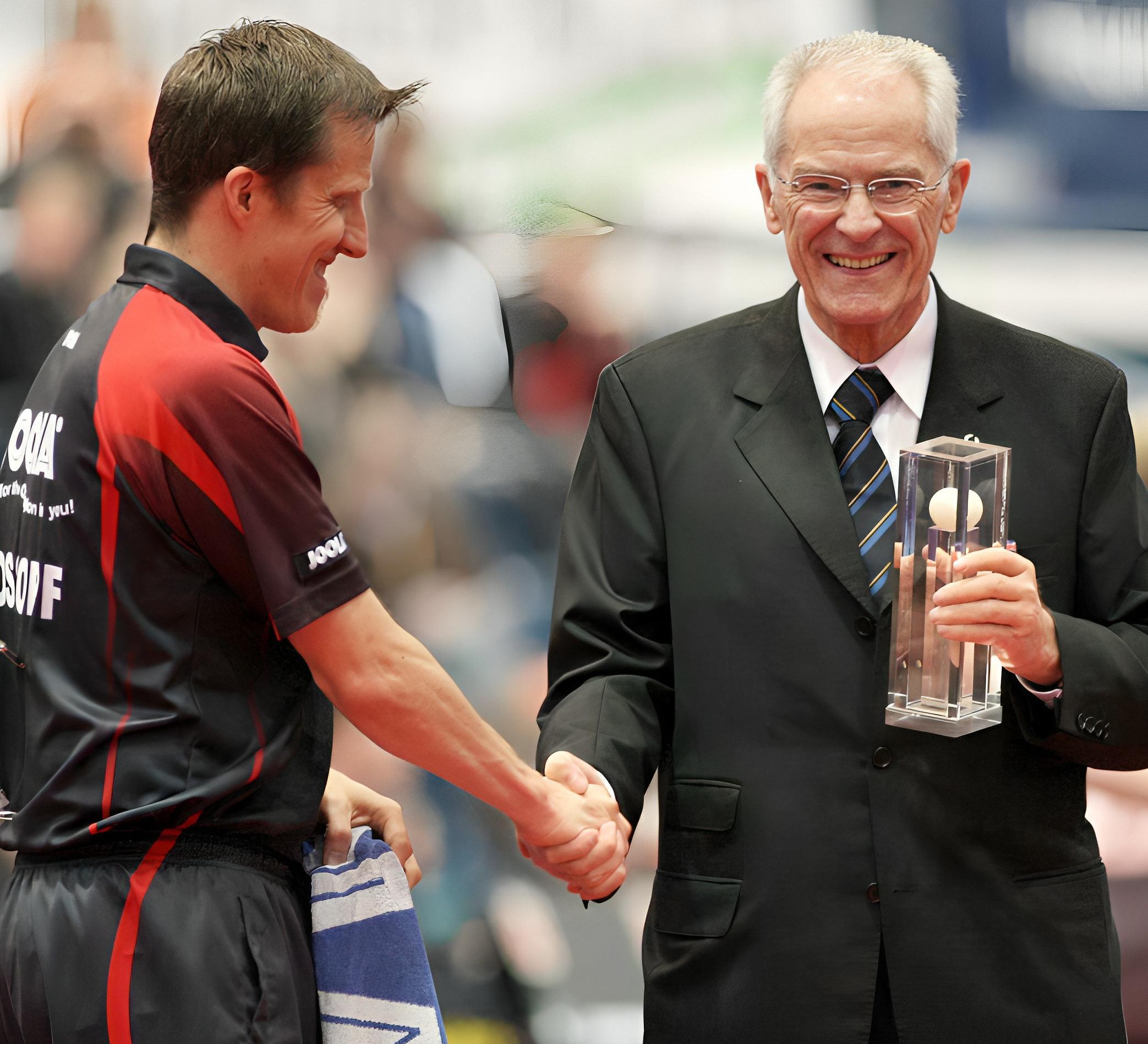
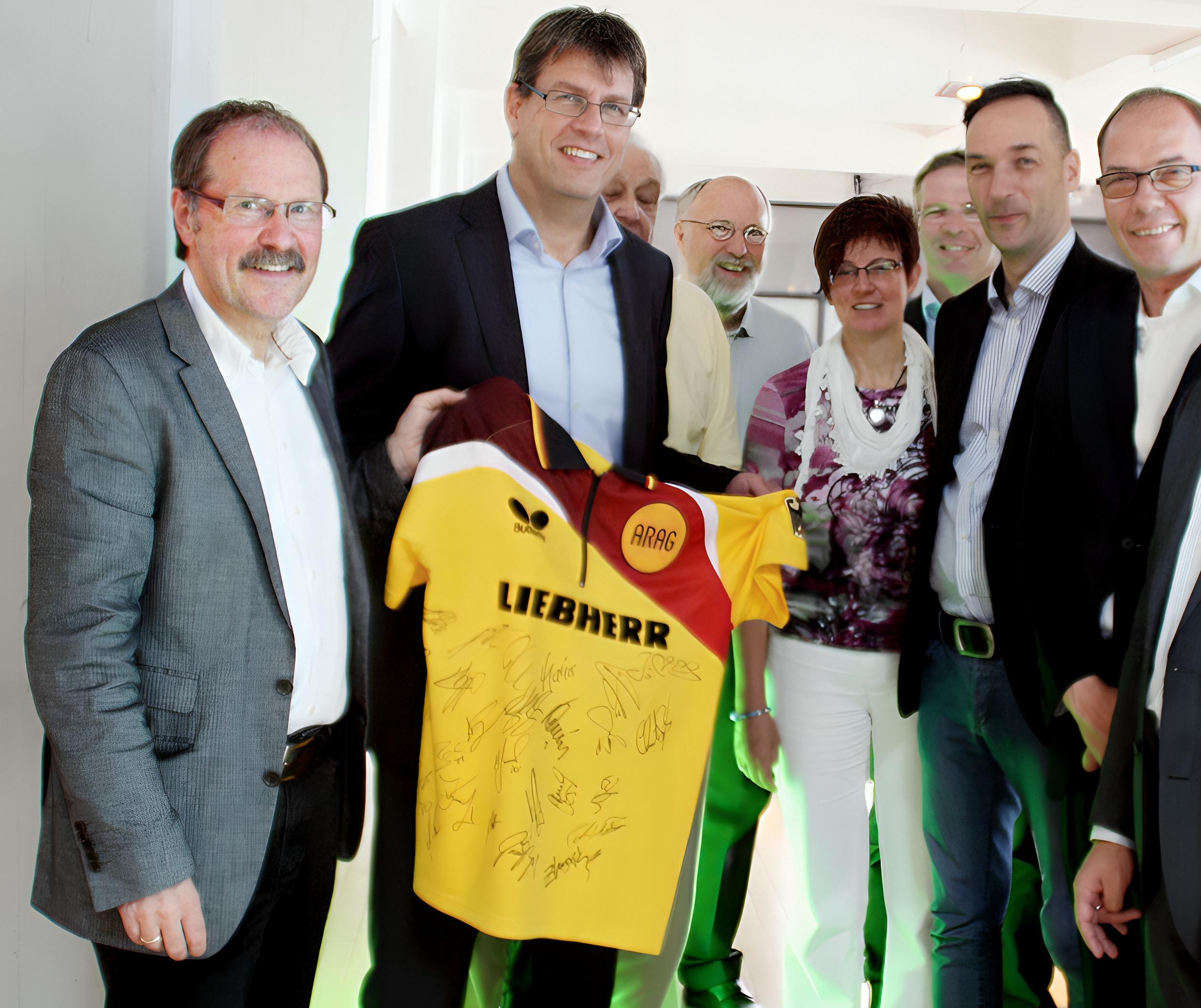
Unfortunately, in 1993 he had to retire from all offices, he contracted a liver virus, a transplant saved the life.
Typically, he wanted to give something back, in 1996, he founded Sportler für Organspende (Athletes Supporting Organ Donation), expanding in 2004 to include the Kinderhilfe Organtransplantation (Children's Aid for Organ Transplantation). Numerous celebrities including Timo Boll to Steffi Graf helped him to revitalise Germans' willingness to donate organs. After overcoming illness, he returned to officialdom, his energy undiminished.
Soon after his return, he was in action; in 2005 the German Sports Aid Foundation was in difficulty, the organisation needed a fresh start, they turned to Gäb. First as Chairman of the Executive Board, then as Chairman of the Supervisory Board, he organised the necessary changes, consolidated the budget and secured the organisation’s future. He still occupies the position of Honorary Chairman of the Foundation's Supervisory Board.
Matters conducted in a thoughtful manner whatever the subject, Gäb has received a host of accolades. Sports Mar-
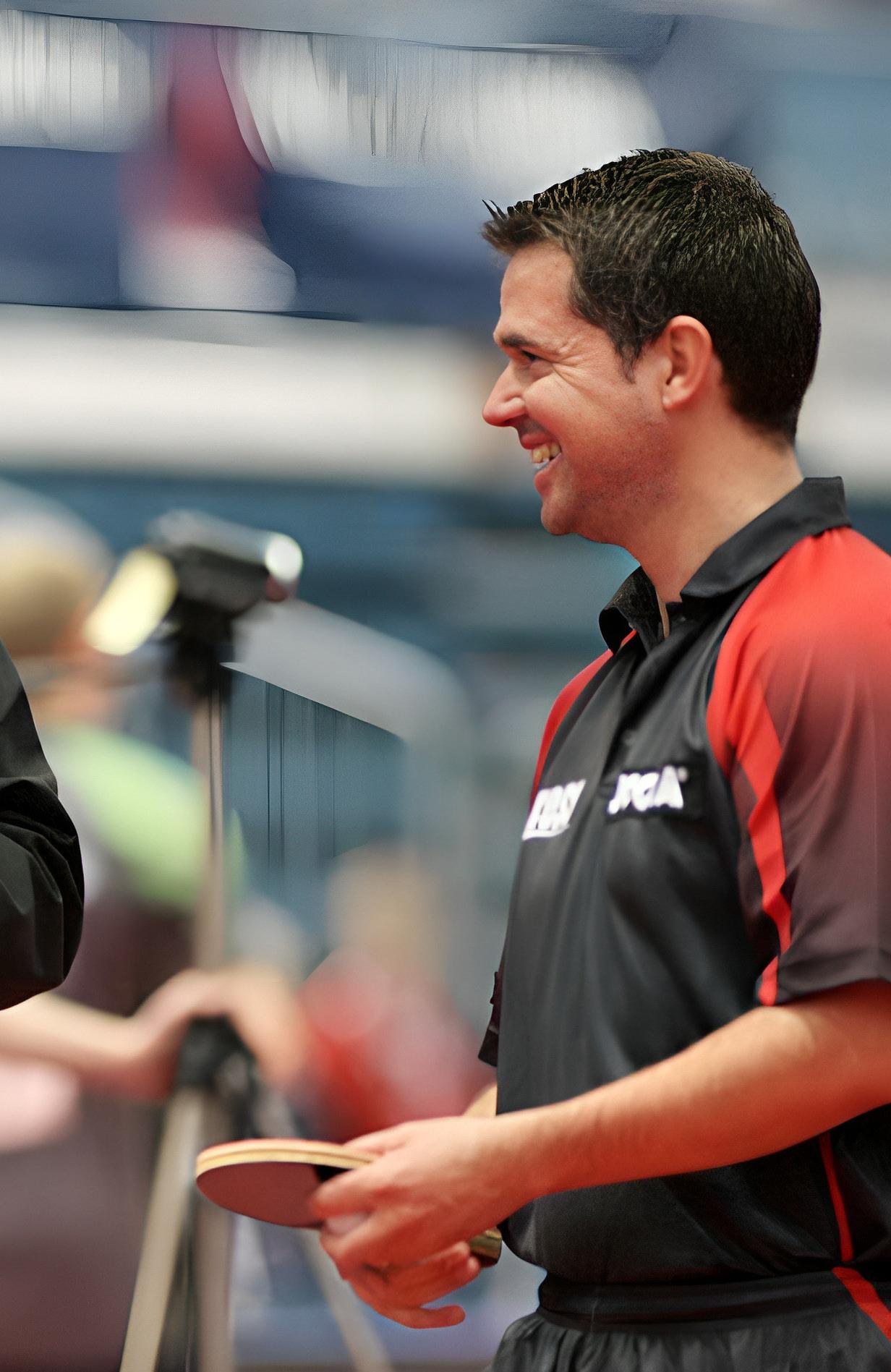
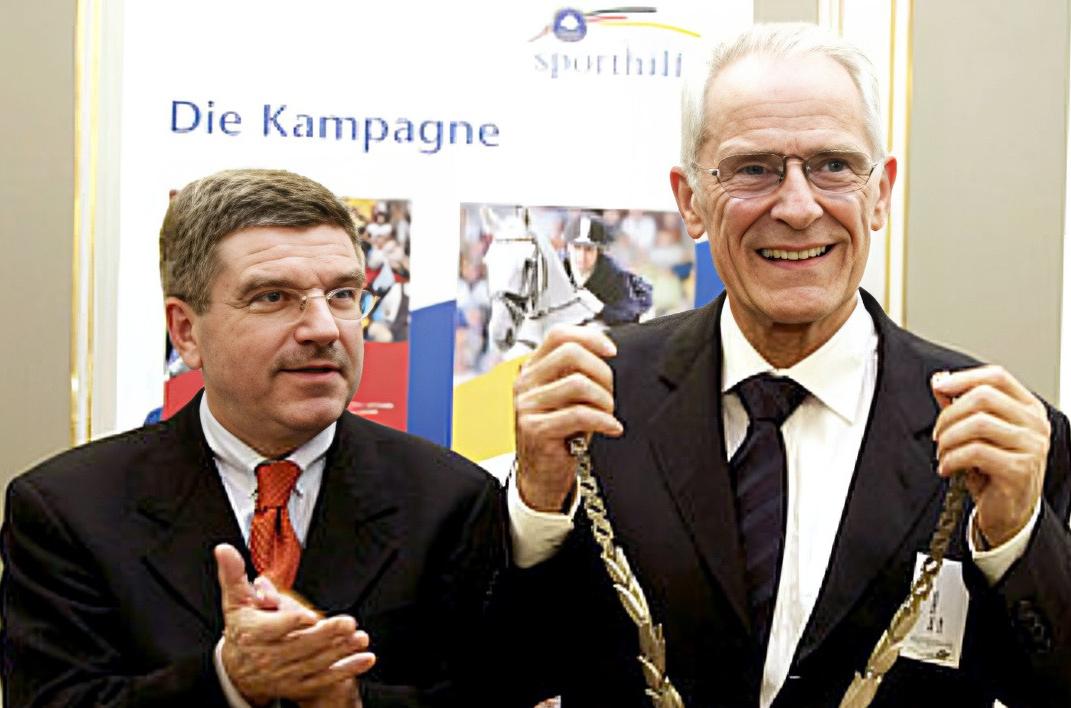
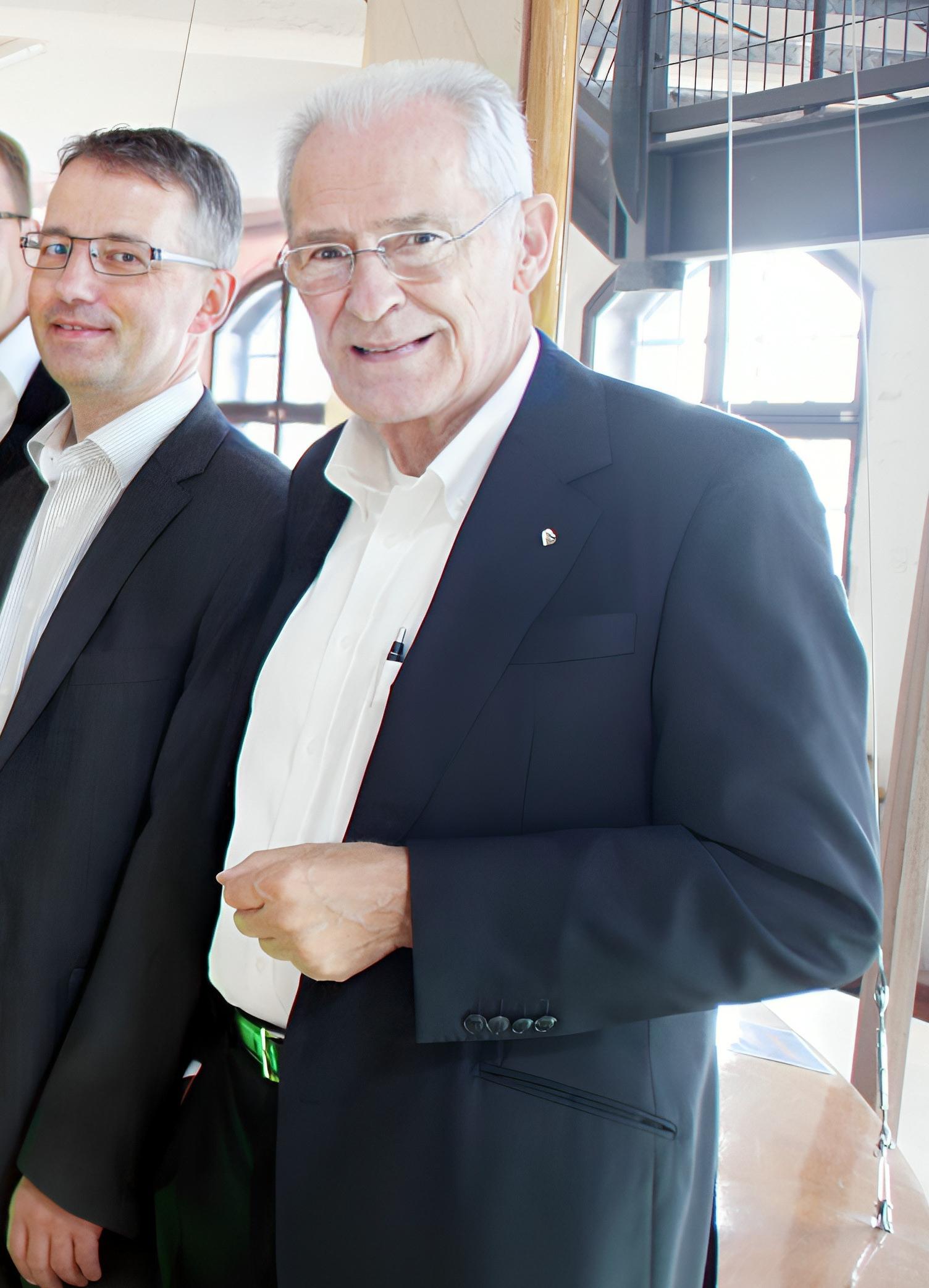
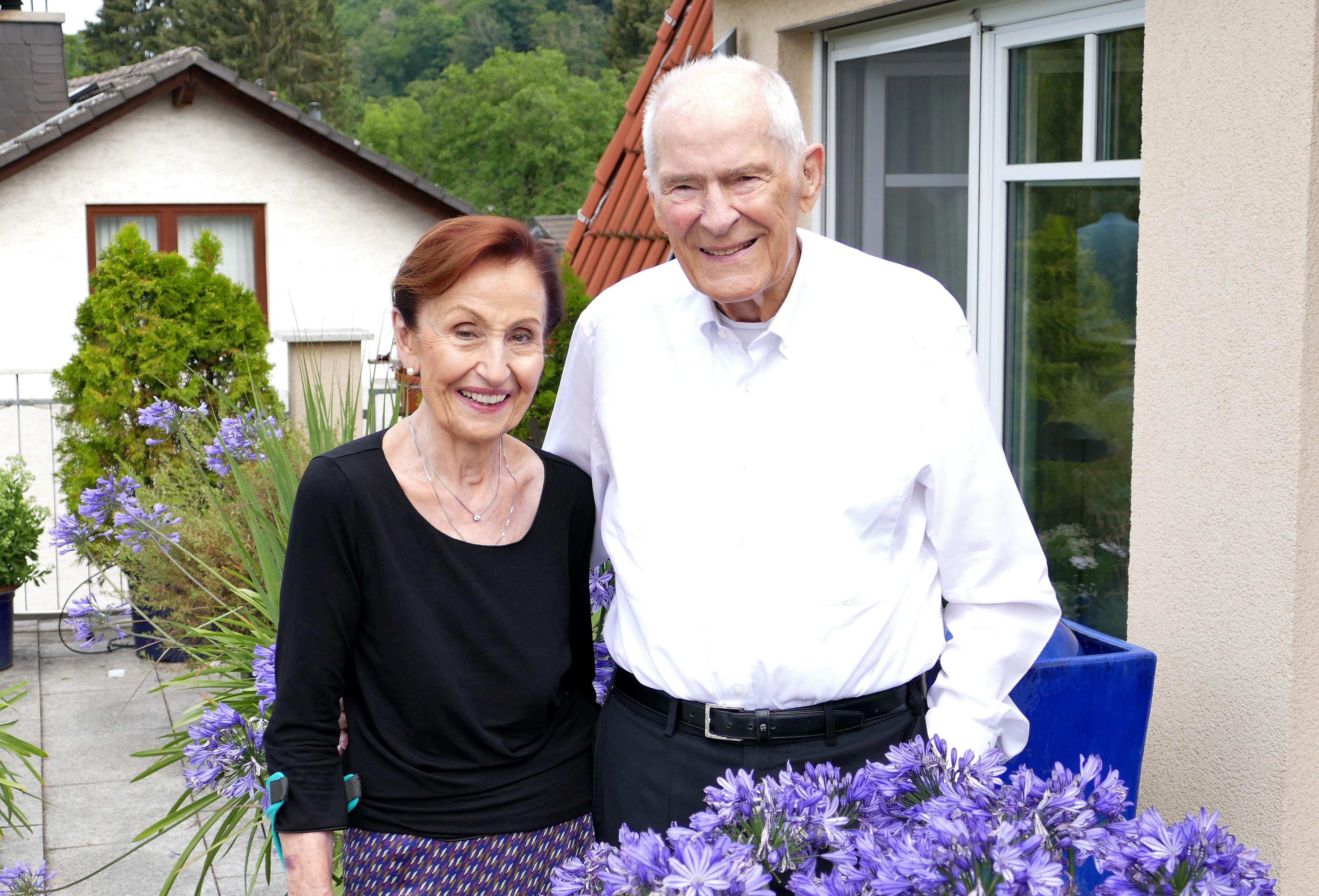
keting Man of the Year in 1996, the Laureus Media Award in 2005 stand out, as does in 2006 the Grand Cross of the Order of Merit of the Federal Republic of Germany.
Notably, in 2020, he was inducted into the national sports “Hall of Fame” and received the lifetime award "Golden Sports Pyramid" from the German Sports Aid Foundation; the award being made by Franziska van Almsick.
Well merited awards but principles come first.
Notably, in 2016 he returned the International Olympic Committee (IOC) medal he had received in 2006. He considered the IOC's decision not to exclude Russia from the 2016 Olympic Games in Rio de Janeiro, following the discovery of state-sponsored doping, to be the most serious blow to the integrity of sport and Olympic principles.
Fair play uppermost in the mind, a gentleman
in the best sense of the word, an intellectual with wide ranging interests; now he plans to spend more time with his greatest sup porters, his wife Hella and his two grown up children Christiane and Wolfgang.
Now, a different role beckons for a man vital to sport, one who does not seek acclamation or ap plause but whose rewards are seeing the fruits of his efforts ripen and ma terialise, Hans Wilhelm Gäb: quite simply danke schön.
TOP ROW LEFT
Alongside wife Hella after receiving the Federal German Order of Merit in 2006 from left Volker Bouffier.
TOP ROW CENTRE
At the 2009 German Championships, presenting the ball used by Jörg Rosskopf left and right Steffen Fetzner in the men’s doubles final at the 1989 World Championships.
TOP ROW RIGHT
Receiving the Olympic Order in Munich in October 2006 from left Thomas Bach; at the time, President of the German Olympic Sports Confederation.
SECOND ROW LEFT
In patriotic mood with Heike Ahlert right at the Beijing 2008 Olympic Games.
SECOND ROW CENTRE
Standing far right with members of the 2013 DTTB Executive Committee and far left Wolfgang Lewitzki, former Managing Director of the German Sport & Olympia Museum.
SECOND ROW RIGHT
At home alongside
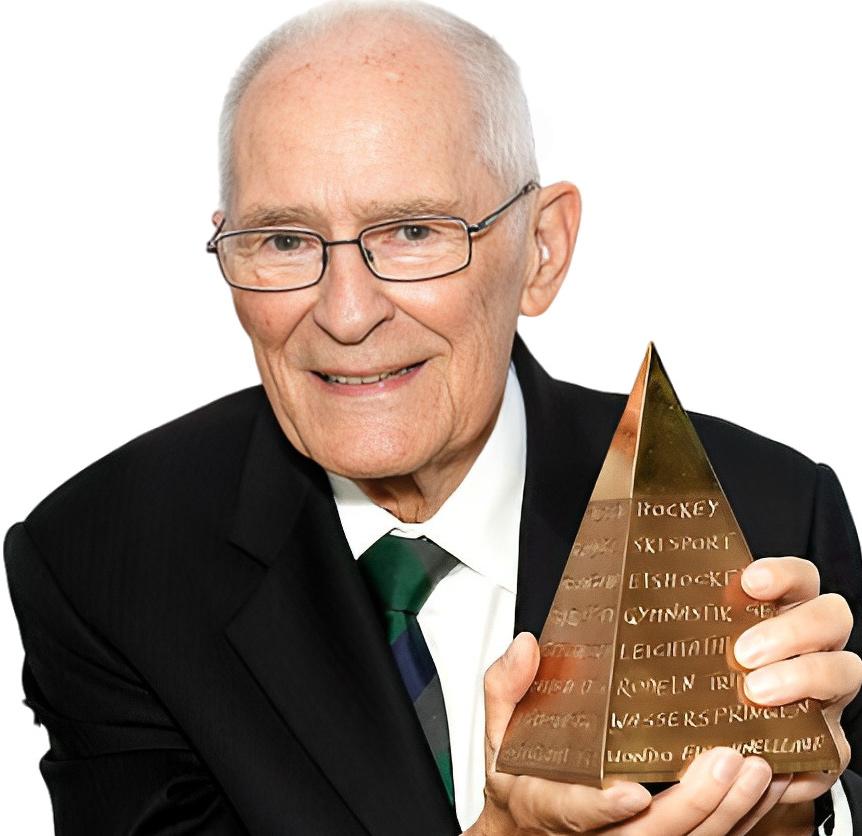
By Royal Command
Member of the Swaythling Club International, James Morris has been named Officer of the New Zealand Order of Merit (ONZM), the accolade was announced in the New Year Honours list.
A Commonwealth country, the award was established by royal warrant in 1996 by Queen Elizabeth II: "for those persons who in any field of endeavour, have rendered meritorious service to the Crown and nation or who have become distinguished by their eminence, talents, contributions or other merits”.
Born in Whangārei, the most northerly city in New Zealand, principally a rural area, a farmer, Morris now lives in Marua.
Similar to many, he started playing table tennis on the kitchen table, playing against Jean, his mother. Tragically when 10 years old his father was killed in a boating accident; his mother was determined her son should play sport, she took him to the table tennis club in Hikurangi and later in nearby Opuawhanga.
Only 17 years old, with support from mentors Garry Frew and Neti Traill, to whom he pays great credit, in 1971 he was selected for the inaugural Commonwealth Championships in Singapore and the immediately ensuing World Championships in the Japanese city of Nagoya.
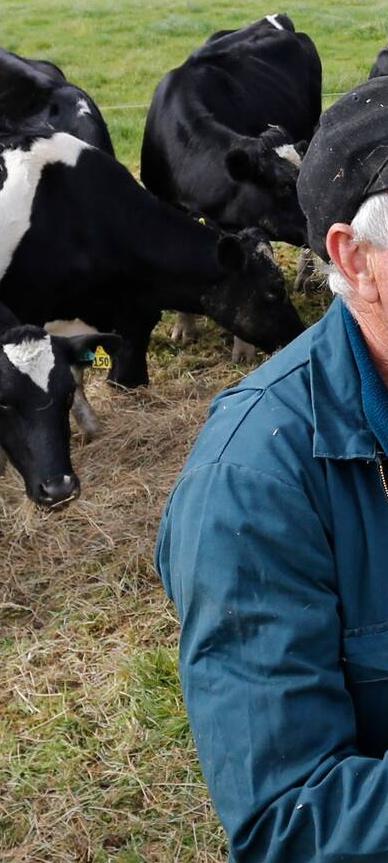
Three years later in 1974 he was a member of the New Zealand team that participated in a two-week tour in China.
An established member of the national team, he won the men’s singles title at the New Zealand Open in 1976 and 1981, as well as, starting in 1971, at the North Island
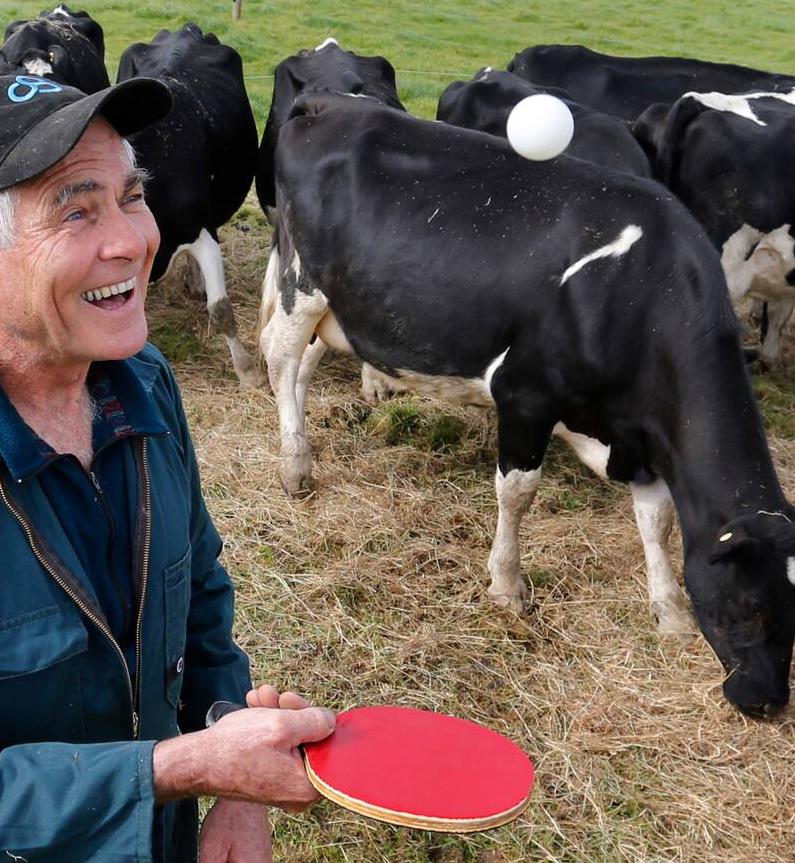
Open on seven occasions. Additionally, he prevailed at the South Island Open in 1981. An automatic selection for the national team over a 12-year period, he was voted New Zealand Player of the Year in 1976 and 1981.
Memorably during that era, he was a member
of the New Zealand team that welcomed Japan to its shores.
Played in the old Town Hall in his hometown Whangarei, Northland, some 400 spectators watched him beat Toshi Furukawa; in June 1975 listed at no.28 on the World rankings. u
ABOVE Very much at home in the field of play.
JAMES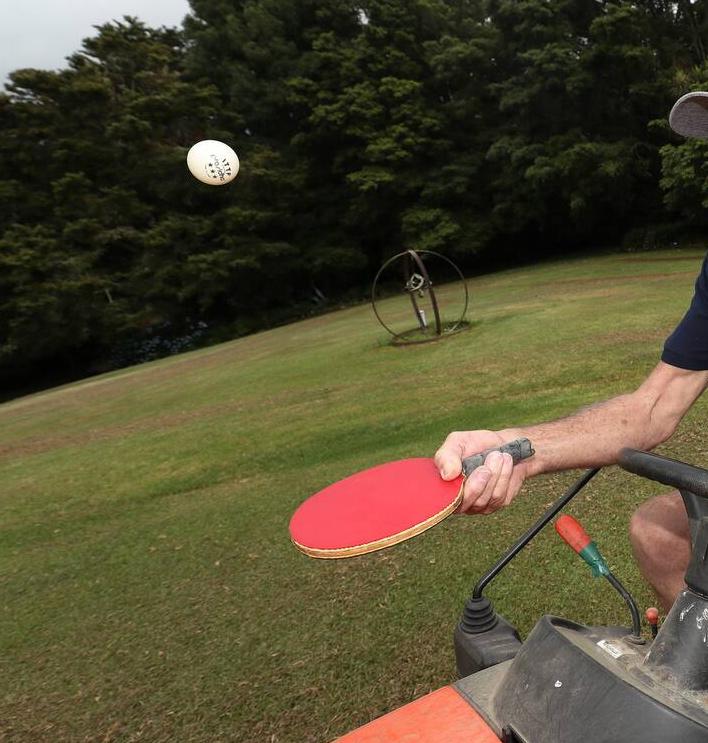
“I’ll never forget the excitement and the home crowd cheering,” reminisced Morris. “It was just great.”
Later he became President of the Northland Table Tennis Association, fulfilling every role possible. He raised funds, coached players, held coach education classes, toured schools, provided demonstrations; also, he organised a successful National and Oceania Championships. Most significantly, he raised funds to build a dedicated stadium
in Whangārei, generously, contributing to construction costs.
Overall, he spent nine years on the Sport Northland Board, during which time he played a key part in establishing the Kauri Club for promising young players. Soon after he served as a Table Tennis New Zealand Board member from 1999 to 2004, the major role being the Director of Coaching and High-Performance Director. No-
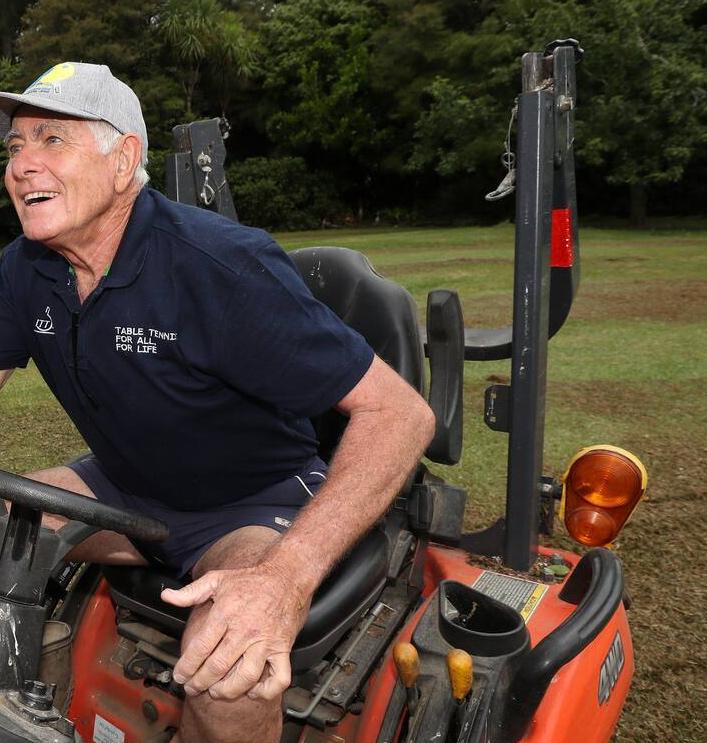
tably, he organised KiwiSport accreditation, ran development training camps, produced a Level Two Coaching Manual, set up Level One assessment procedures for coaches and organised coaching workshops.
During this period, he coached the New Zealand team for the 2002 Commonwealth Games, being elected a Life Member of Table Tennis
New Zealand in 2004 and one year later inducted into the Hall of Fame. Later, he was a member of the ITTF-Oceania Management Committee from 2008 to 2014, the President from 2013 to 2017, before in 2022 being elected an Honorary Life Member.
Unforgettably, in 2014 he was a member of the Organising Committee for the World Veteran u
ABOVE
The driving force in every respect.
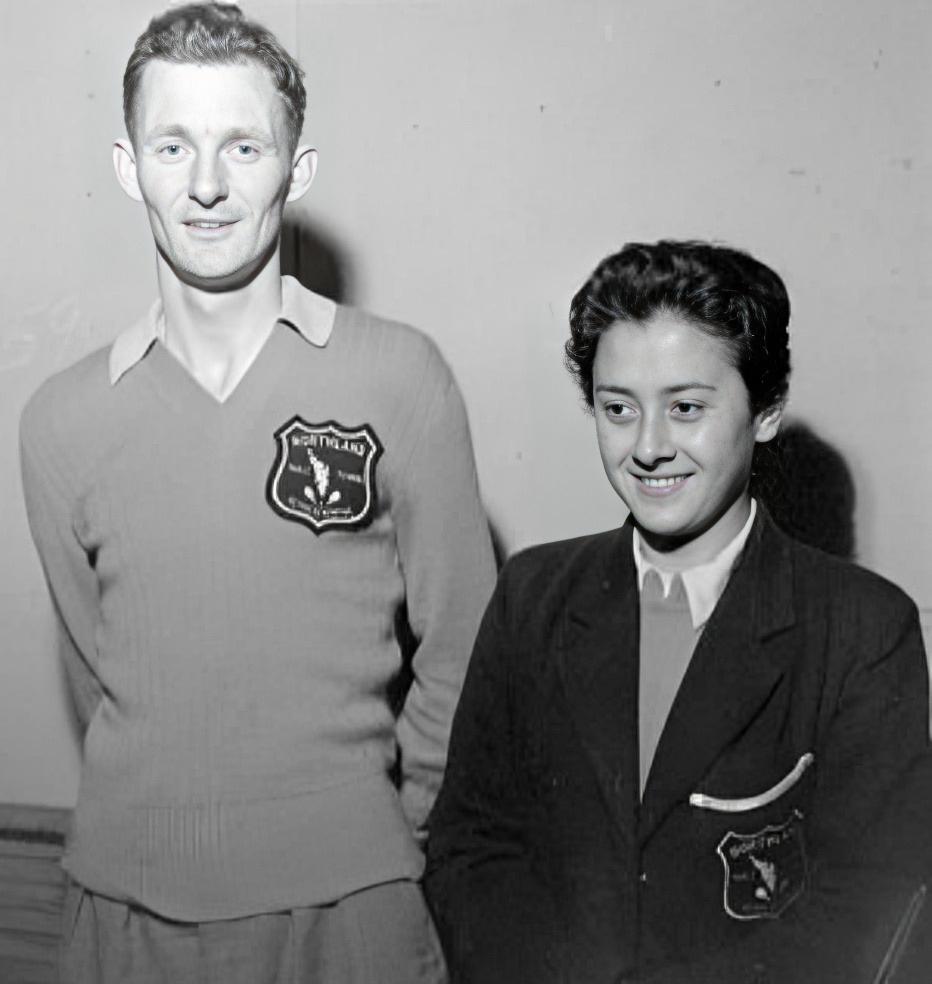
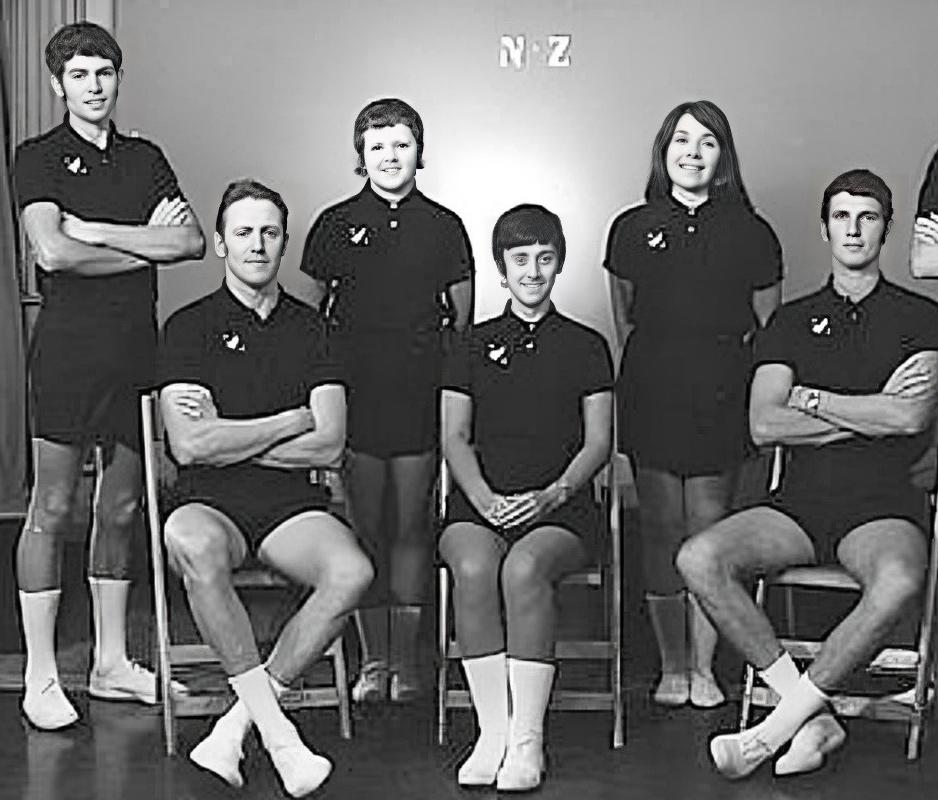
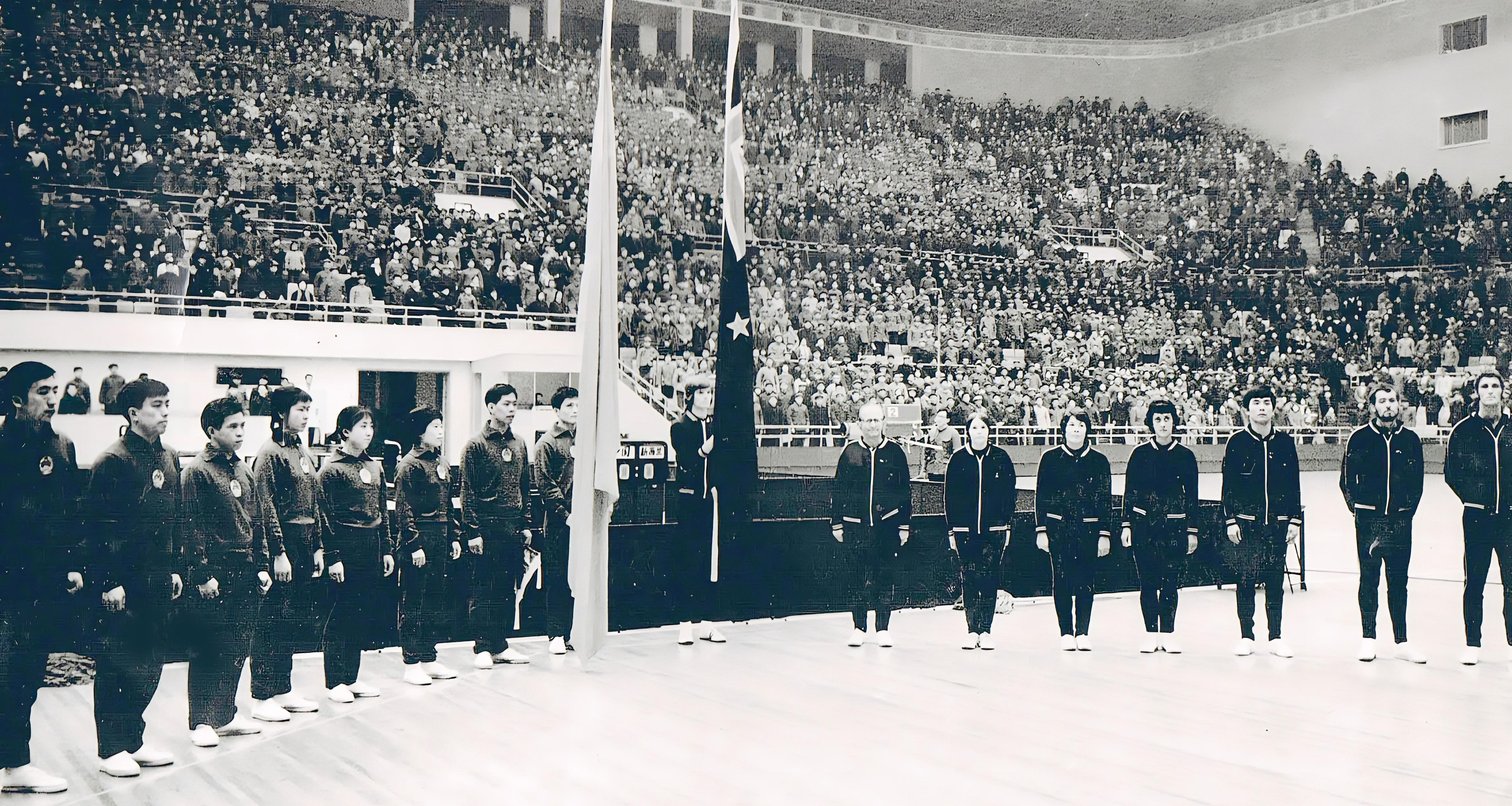
Championships, his dry sense of humour and genial smile combining to make him a most adept master of ceremonies at the various evening social gatherings.
A project completed successfully, another followed. In 2016, he produced Oceania’s first strategic plan, the year in which he was a member of the Jury at the Rio 2016 Olympic Games.
One year later he became a member of the ITTF Executive Committee, the portfolio to drive the first ever ITTF Strategic Plan; after a four year period, he stepped down
from office. Focused on administration in recent years, Morris still enjoys raising the racket in hand, he has entered the ITTF 2024 World Masters Championships in Rome.
Player, coach, administrator but there is more, much more. He enjoys hunting; with his table tennis connections he has followed the diversion in New Caledonia as well as on home soil in Fiordland and the Whanganui River. Perhaps not now but in his younger days, he enjoyed diving, pleased to find scallops for table tennis friends when visiting his farm.

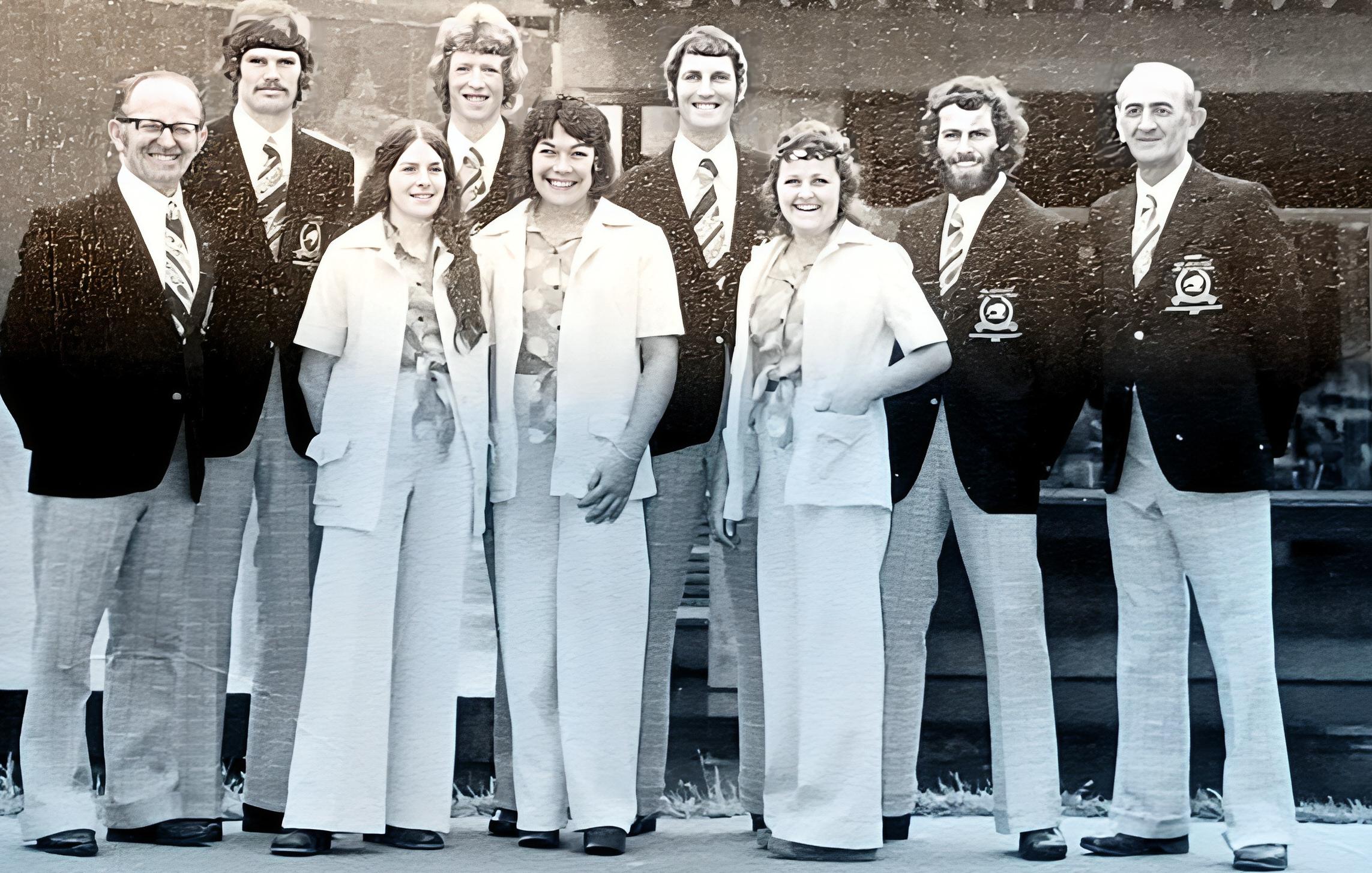
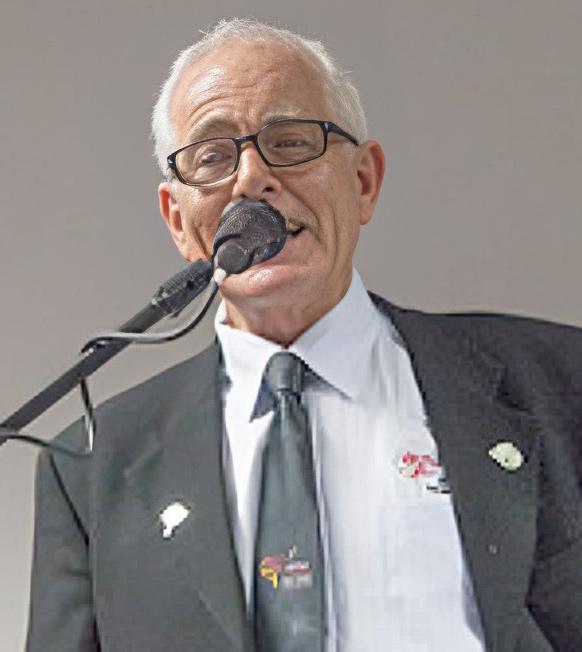
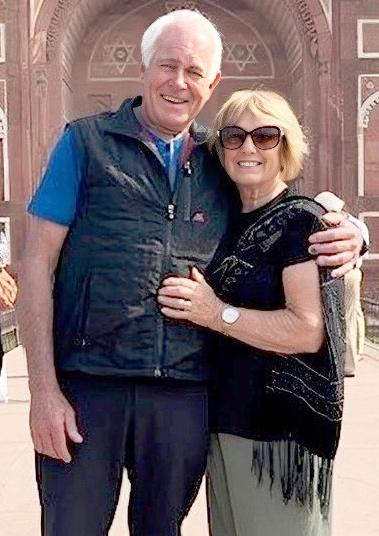
Through and through a Kiwi, but he has strong Scottish ancestry connections. He loves a wee dram and has been known to keep his table tennis friends up into the small hours teaching them the finer points of how to enjoy the delights of Scotch whisky!
Furthermore, due to his ancestry, he possesses a very special talent; he plays the bagpipes; recently he played at the funeral of Athol Attwood, a well-known New Zealand table tennis administrator.
A whole list of achievements, one of the major reasons being that throughout there has been strong family support. He pays great credit to his mother, brother Craig, and uncle George, who pushed him to achieve his best.
However, top of list is his wife, Christine, her encouragement a major source of motivation, as they say behind every good man there is a good woman.
James Morris ONZM, stand tall.
TOP LEFT
Mentors Garry Frew and Neti Traill.
TOP CENTRE
New Zealand prior to the 1971 Commonwealth and World Championships left to right James Morris, Alan Tomlinson, Kathy Fraser, Neti Traill, Yvonne Fogarty, Gary Murphy, Richard Lee.
TOP RIGHT
The 1975 New Zealand team in Christchurch, prior to departing for the Commonwealth Championships in Melbourne and the World Championships in Kolkata left to right Trevor Flint, Richard Lee, Anne Stonestreet, Robert Blair, Yvonne Fogarty, Gary Murphy, Kathy Fraser; James Morris, Les Bouzaid.
LOWER LEFT
March 1974: China versus New Zealand at the Capital Stadium in Beijing.
left to right
China: Xu Shaofa, Li Zhenshi, Li Zhuomin, Qi Qin, Sun Ming, Wu Yulan, Hu Bingquan Hu (coach), Gu Zhenjiang (flagbearer).
New Zealand: Richard Lee (flagbearer), Trevor Flint, Anne Stonestreet, Yvonne Fogarty, Neti Trail, Ling Nan Ming, James Morris, Gary Murphy.
LOWER CENTRE
Speaking at the Stag 2014 World Veteran Championships.
LOWER RIGHT
On holiday in India in 2020 with Christine, his wife.
Thanks to the Northern Advocate for their support in the production of this article.
Milestone Month
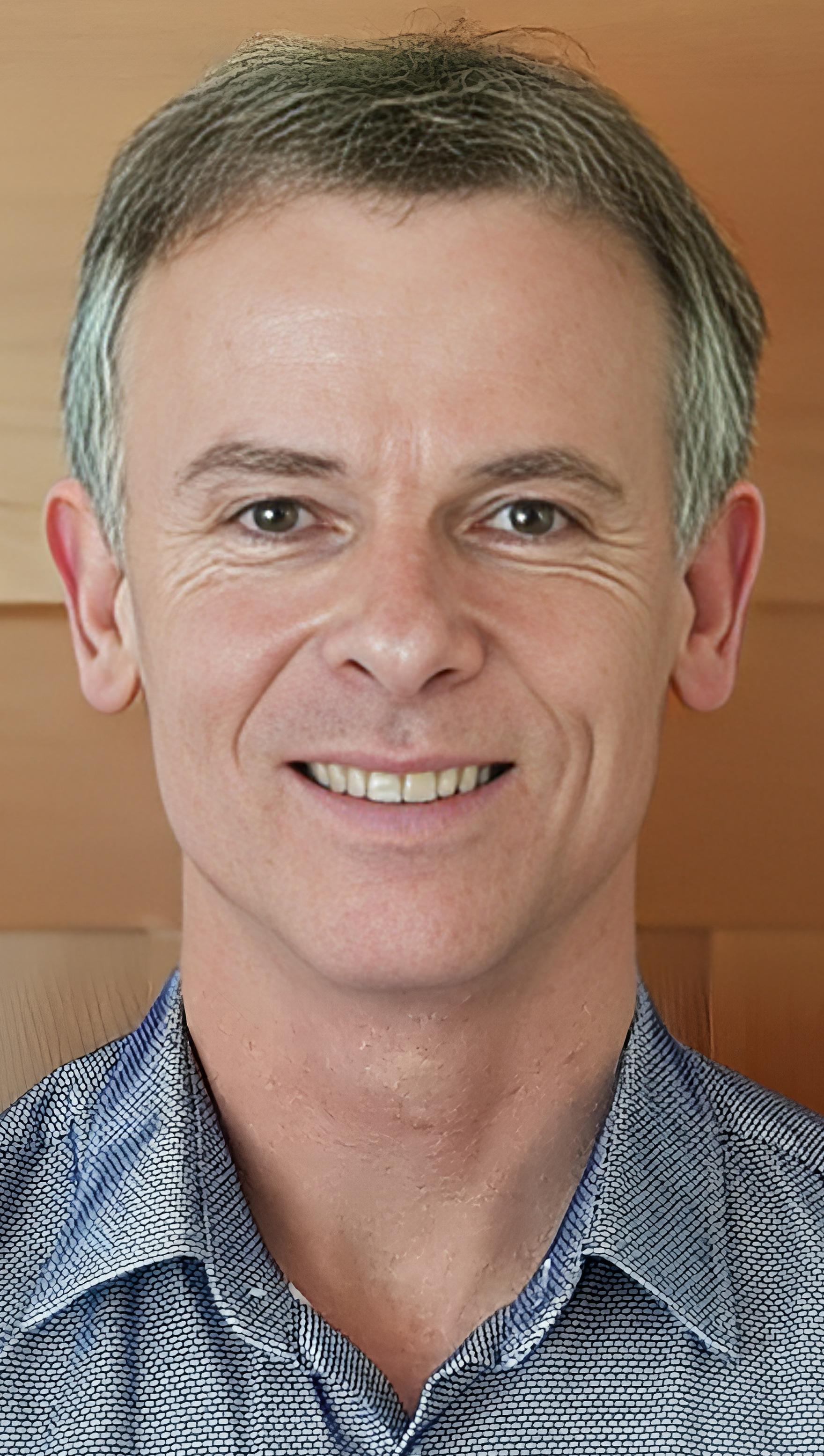
Asignificant month, for New Zealand’s Barry Griffiths, February 2024 possessed a special meaning; he relinquished his position as Chief Executive Officer for Oceania, reached 60 years of age and celebrated the date on which he was born for the 15th time.
The reason for the conundrum; he was born on Saturday 29th February 1964, leap year day.
Married to Margot with two grown up children, Sam 25 and Logan 23 years of age, Griffiths resides in Auckland, the city of his birth. A keen sportsman, other than table tennis he follows tennis, soccer and cricket; in addition, as a result of his elder son’s enthusiasm, he maintains an interest in the martial arts discipline UFC (Ultimate Fighting Championships) as well as rugby league.
University entrance qualifications achieved, for some 30 years he had organised several successful business ventures, prior to assuming the Oceania Chief Executive position in April 2019.
“It was a good background to come into the role”, reflected Griffiths. “I had just left a position and was contacted by several ITTF-Oceania Management Committee members to see if I would be interested in the role. It was good timing and an opportunity to contribute to the sport I love.”
Highly motivated he faced a most exacting task, the only other full-time staff member being Cherry Harvey, the Smash Down Barriers Program Manager; further responsibilities are delegated as required to contractors. The result of having such a small staff means that the job description is wide and varied; not enough hours in a day to meet desired targets.
“It has been an honour and a privi-
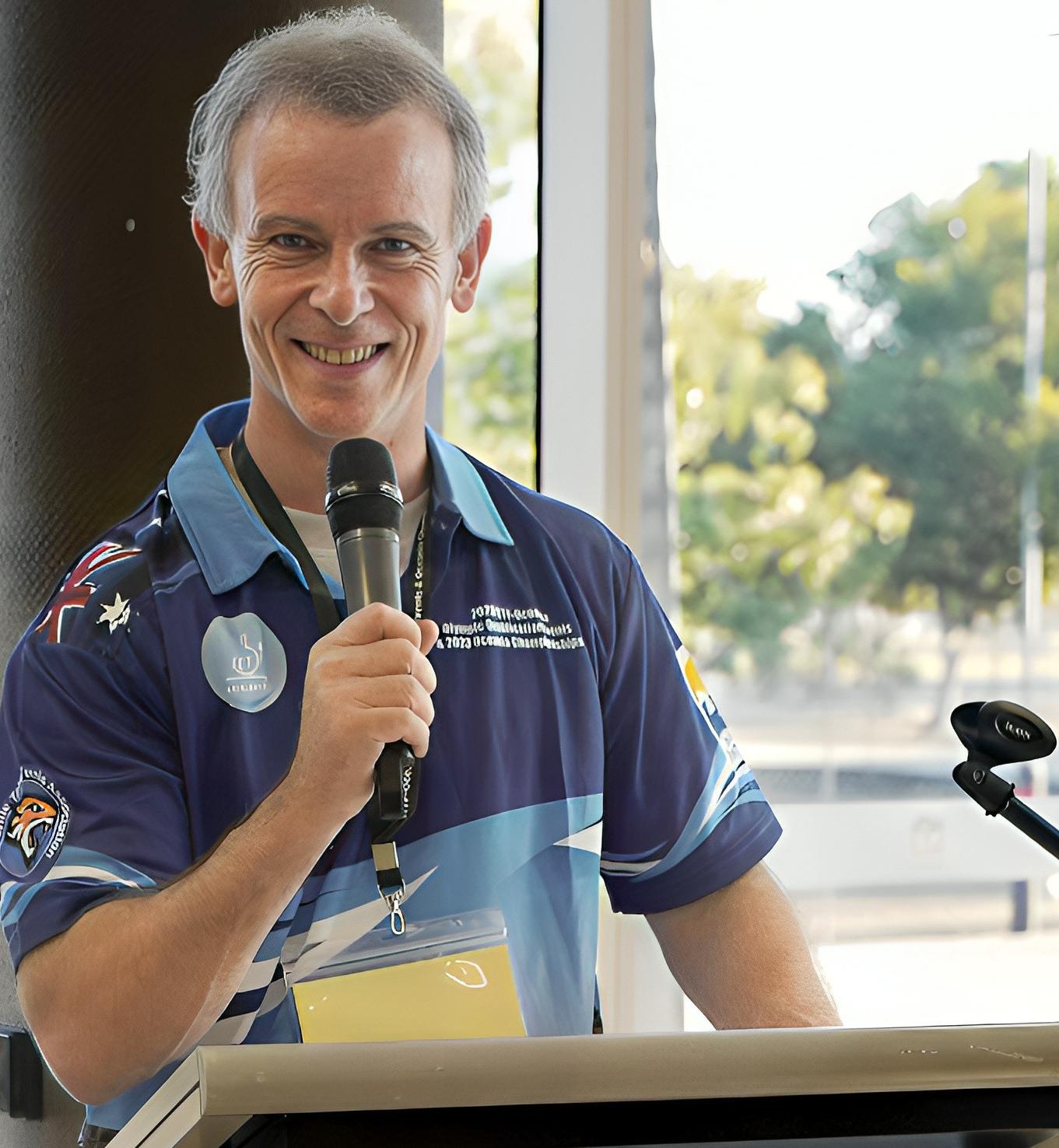
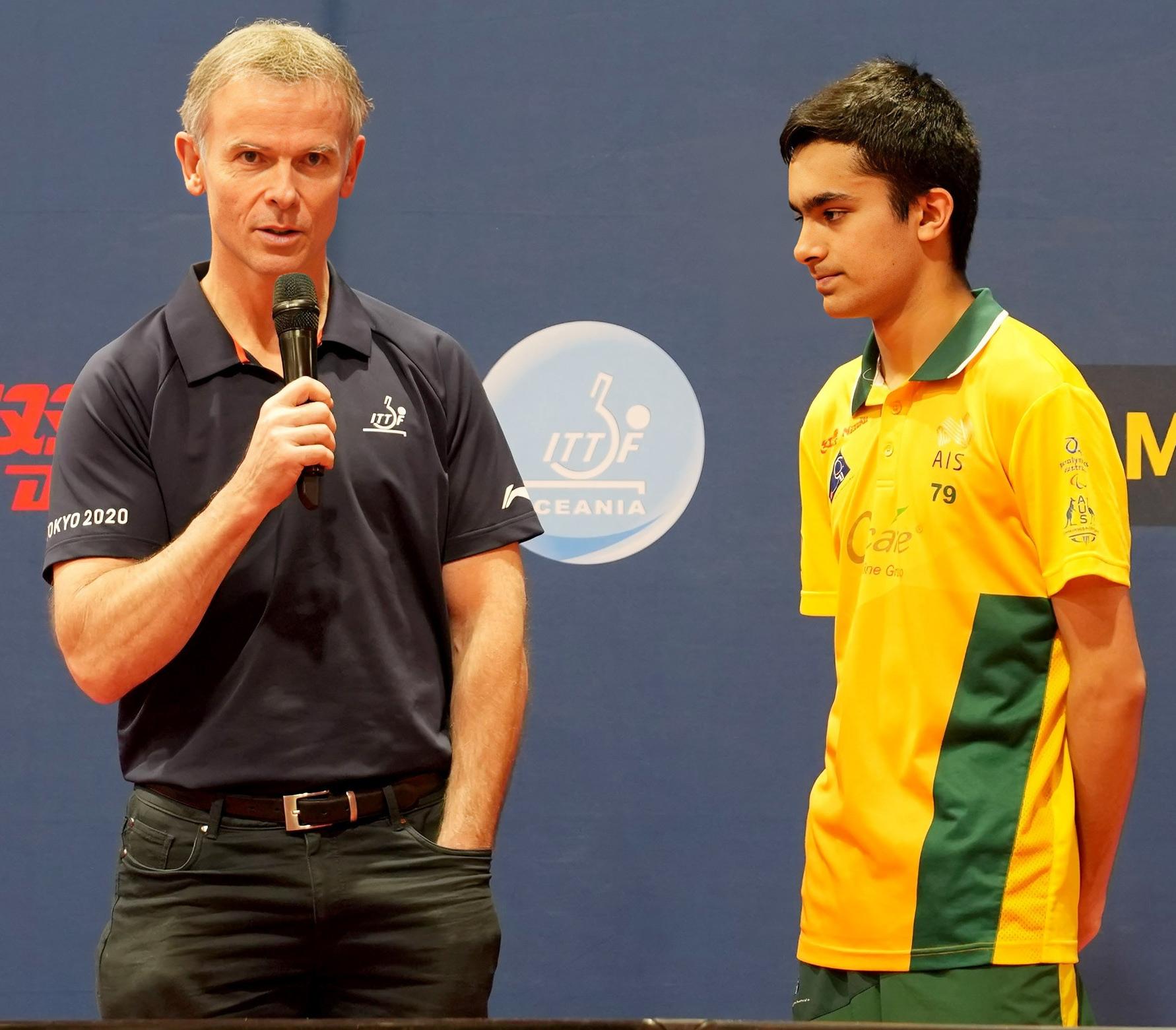
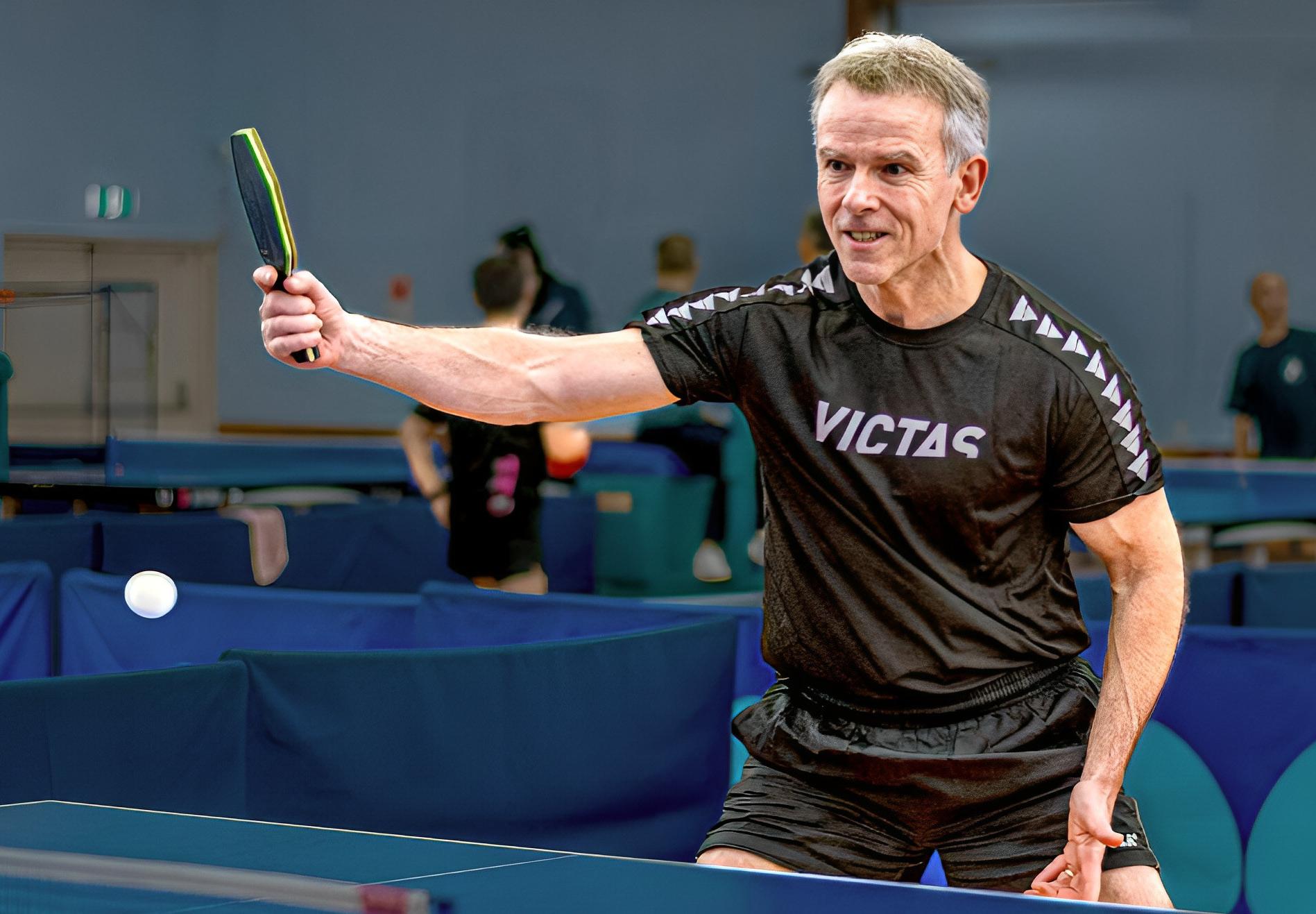
lege to work in the important role of Chief Executive Officer for ITTF-Oceania”, sighed Griffiths. “I wish I could have achieved more in the time I had; always I will treasure the memories and special friendships I have made with many wonderful people across the Oceania region.”
Throughout his tenure of office Griffiths has always given total commitment, dealing with matters that arise in a quiet and organised manner; as in all such positions there have been moments of exasperation, moments of reward.
“Any delay from whatever source caused problems for planning and budgeting”, stressed
It has been an honour and a privilege to work in the important role of Chief Executive Officer for ITTFOceania
Griffiths. “I would also say that excessive governance requirements have been frustrating; this consumes approximately 50 per cent of productive time; politics at times taking precedence over logical decisions.”
Such problems may well apply to any similar governing body but for Oceania, vast distances, small remote islands, Australia and New
TOP LEFT
Master of Ceremonies at the 2023 ITTF-Oceania Senior & Youth Championships in Townsville, Australia.
TOP RIGHT
Interviewing Aditya Sareen at the 2023 ITTF Oceania Cup, Hamilton, New Zealand.
BELOW
In action at the New Zealand Team tournament in Auckland, New Zealand.
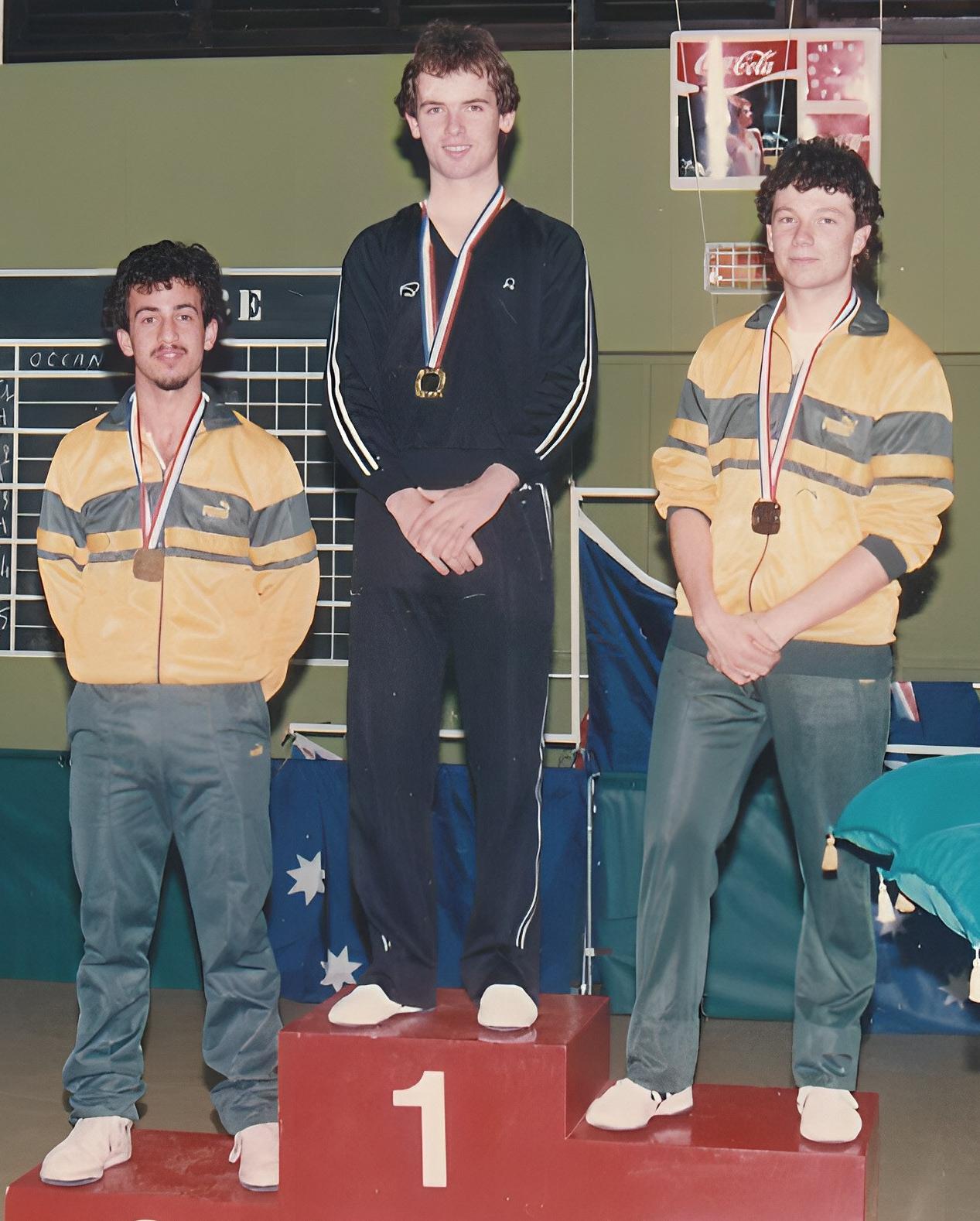
Zealand the only major landmasses, there are added major challenges to overcome, very different to any other part of the world.
“It’s hard work engaging member associations for events, programmes and activities”, added Griffiths. “They are volunteers and have many other priorities, so it’s difficult to progress table tennis in many Oceania countries.”
Conversely, there have been times of great reward; organising international tournaments have proved exhausting exercises but have proved most worthwhile, providing a high degree of job satisfaction.
“Nine out of the top 10 men and nine out of the top 10 women in the world competed at the 2019 Australian Open, quite incredible; in that year, including the World Championships, it was the highest-level table tennis event worldwide”, reflected Griffiths. “Also, the 2022 ITTF-Oceania Senior and Youth Championships, which we held at the Eastland Shopping Centre in Melbourne, stands out. We transformed a shopping space into an international standard table tennis venue and had a record 12,500 spectators.”
The tournament in Melbourne, Australia’s sporting capital, underlined what can be achieved through innovation and downright hard work. Occupying rather different venues, tournaments staged more recently have provided proud moments.
“Both held in the Solomon Islands, the 2023 ITTF-Oceania Para Championships and the Pacific Games, were fantas-
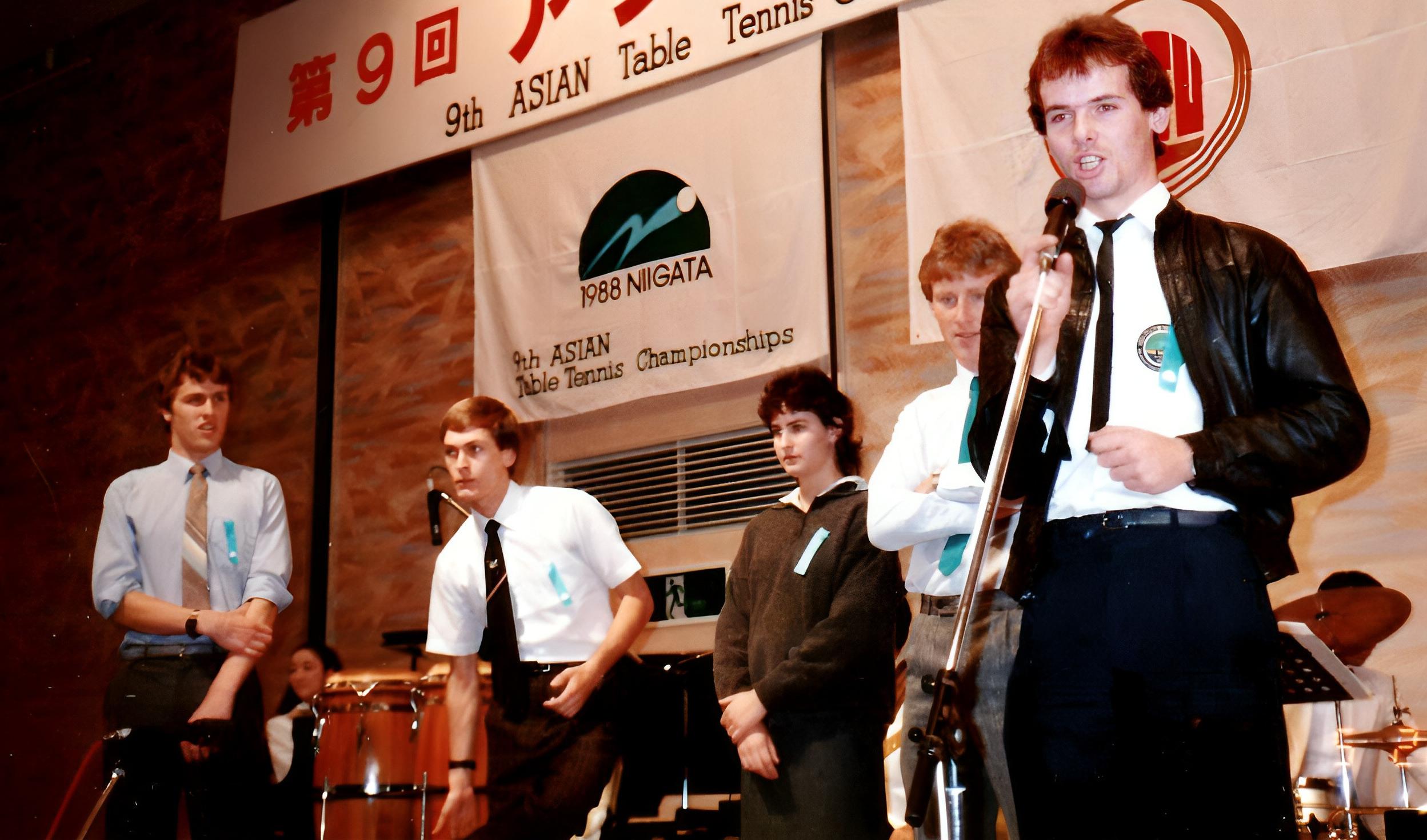
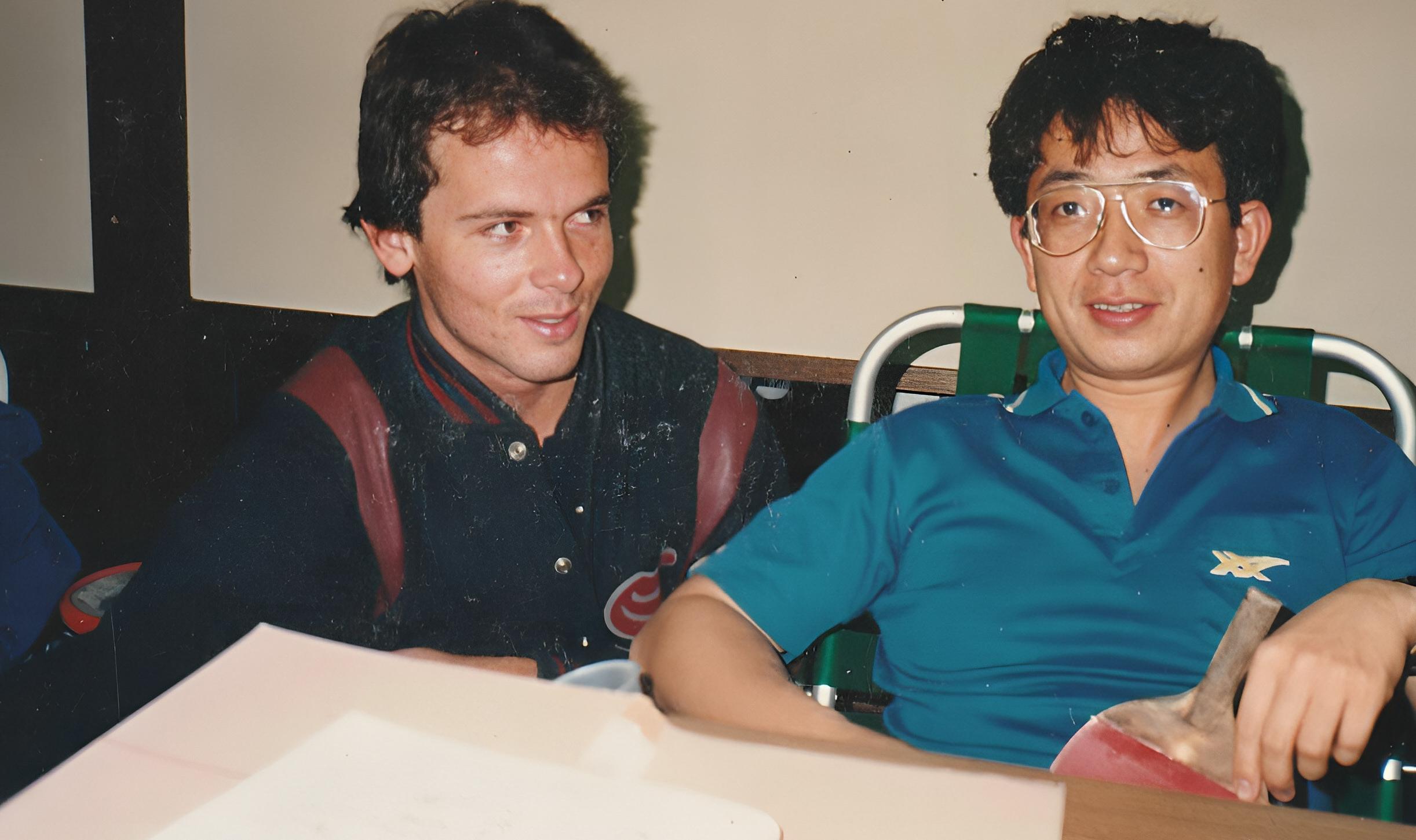

tic experiences; the passion of the Pacific athletes was incredible, the spectator noise and support were huge”, reflected Griffiths. “The 2023 ITTF-Oceania Cup in Hamilton, New Zealand was my last event, we transformed a dark table tennis stadium into an international venue with upgraded lighting and facilities. The standard of play was amazing from the Australians, it was a beautiful event.”
Major tournaments attracting high level players will remain strong in the memory for years to come, as will the Smash Down Barriers Disability Program. Supported by
We transformed a shopping space into an international standard table tennis venue and had a record 12,500 spectators
Team Up, who proved an outstanding partner and the Australian government, a genuine difference has been made to the lives of people with a disability (PWD).
“Now we have the programme in three countries, Tonga, Fiji and the Solomon Islands; Tonga won a World Health Organisation award in 2019, the inclusion of PWD in table tennis has been a heart-warming achievement”, stressed Griffiths. “We also have a sister programme called Bounce it Back, which is for schools; with the support of Team Up we have produced 40 professional videos to make the programme easily accessible.”
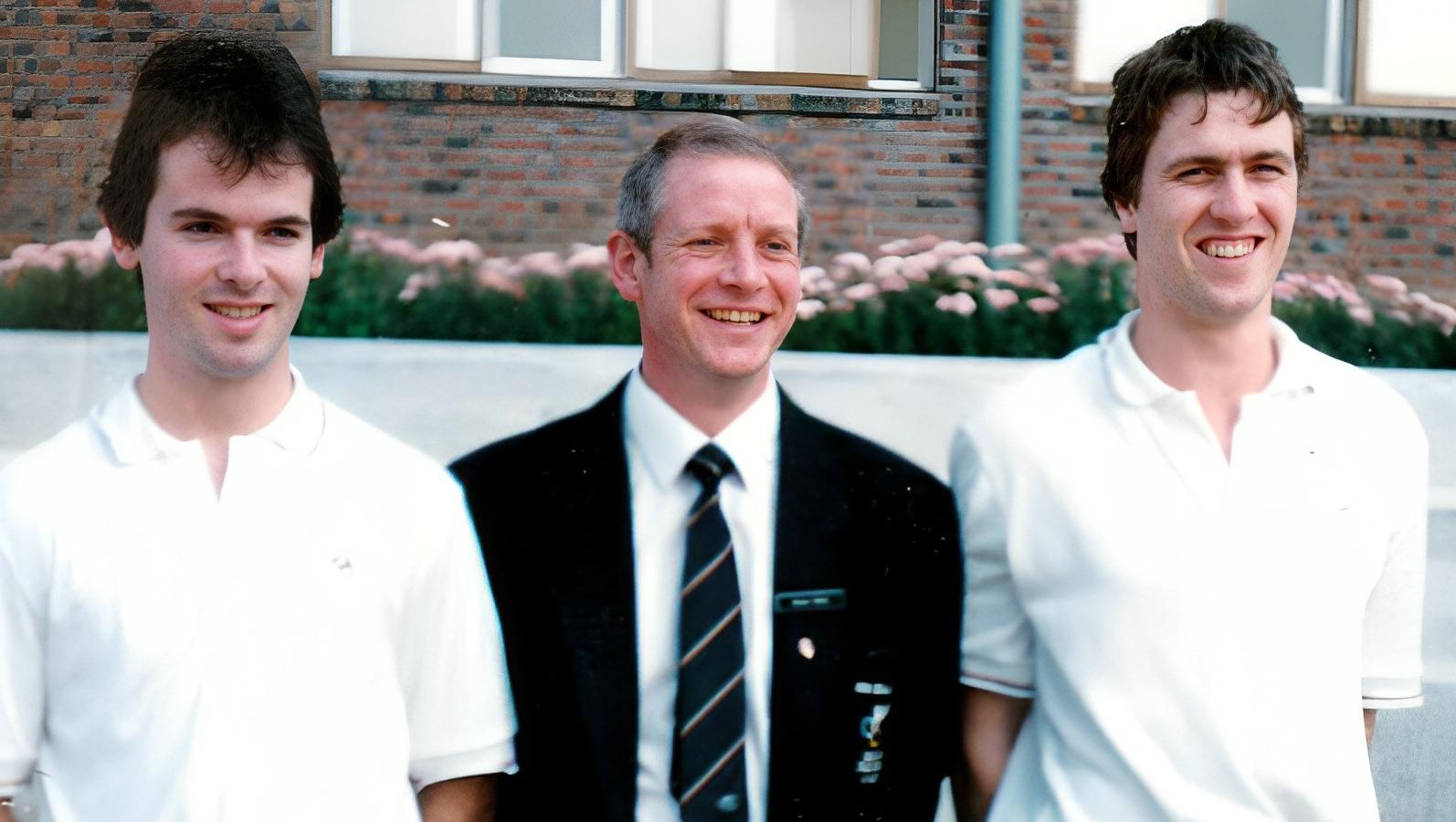
Milestones, the task for the future is to build on the foundations laid; Griffiths has a clear vision as to the challenge facing his successor.
“A plan needs to be created which promotes the Smash Down Barriers Program for people with a disability and the associated Bounce it Back Schools Program; these are high quality programmes that make a difference and have excellent support from the Australian government”, he stressed. “It is possible to expand these programmes to more Pacific countries.”
Equally, Griffiths is of no doubt that there needs to be a marketing strategy to promote events, a comprehensive programme addressing every possible issue.
“Events are the shopfront of our sport, we need to plan six months to a year in advance, this is critical for seeking funding support from local cities or councils”, continued Griffiths.
“We need to make sure we have live streaming, commentary, professional introduction of players, interviews, highlights recorded and for sure make the best use of social media.”
More can be added but if such initiatives are to be exacted, support and co-operation are vital.
“We must work with Pacific member associations to apply for grants from in-country National Olympic Committees; this could help to
LEFT
Winner at the 1988 Oceania Championships in Nouméa, New Caledonia. Australia’s Gary Heberl left and right Eddie Kasser were the respective silver and bronze medallists
CENTRE TOP
Addressing the audience at the 1988 Asian Championships in Niigata, Japan.
CENTRE LOWER
Alongside Masahiro Maehara, nowadays a member of the ITTF Executive Committee, in Japan in 1987.
RIGHT
Standing alongside Peter Hirst centre and right Peter Jackson at the Seoul 1988 Olympic Games.
part fund a staff member or a local person to organise a particular event”, emphasised Griffiths. “It is an opportunity that is always available and should be pursued; additionally, we should promote ITTF activities and programmes, particularly courses for officials and training camps.”
Constructive proposals gained from not only management experience but also from earlier years; he is one of the very best players ever to emanate from Oceania.
Right-handed, an attacking player from both wings, advised by his father who competed at local level, Griffiths started to play on a table in the garage at his home in Auckland; a venue that proved a magnet for local children.
A quick learner, representing his school team he won his first title when 10 years old. Determined, hours of practice, year by year he progressed, becoming more than a match for more experienced adversaries, the year 1980 proving a milestone.
“I was 16 years of age and had won a lot of junior tournaments in New Zealand as well as some senior tournaments, the main achievement was the Australian Open men’s singles”, reminisced Griffiths. “I reached the final, losing to Paul Pinkewich, one of Australia’s greatest ever players.”
u
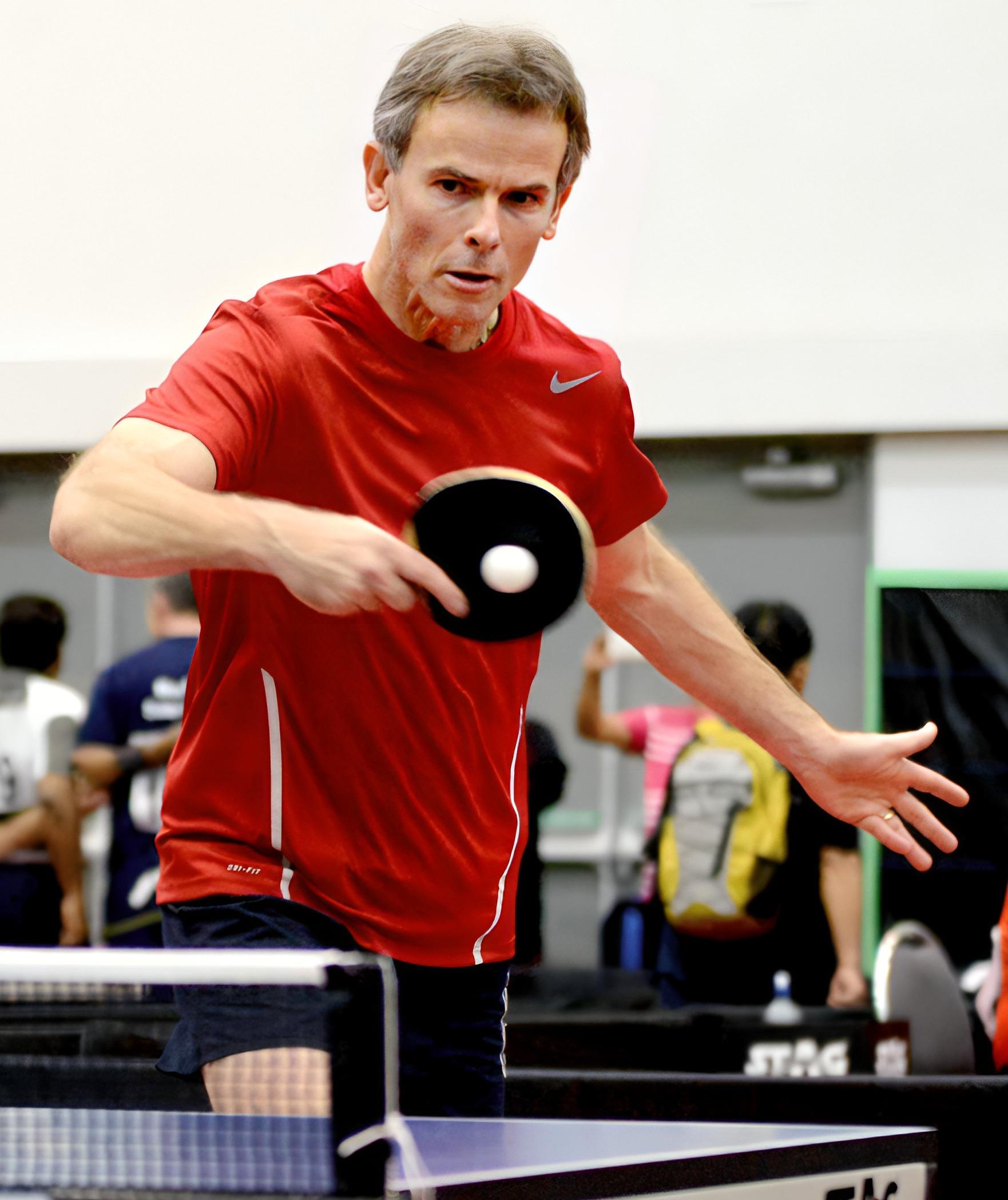
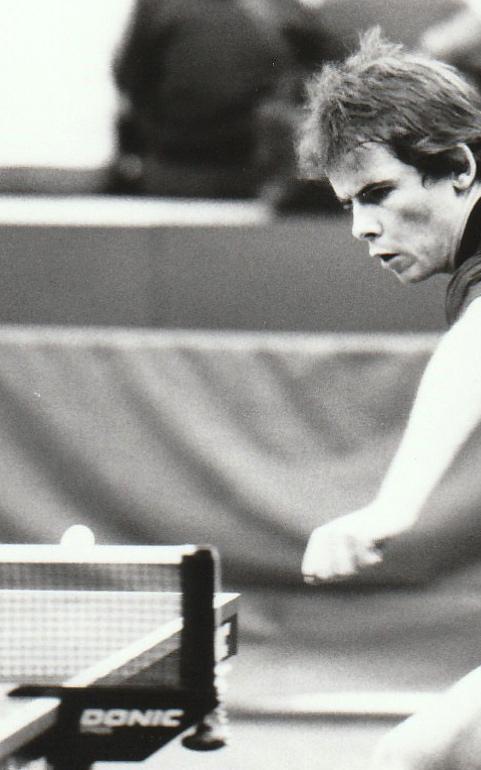
Fast forward to 1988, Griffiths created a record which to this day has never been equalled. He won the men’s singles title at both the New Zealand and Australian Championships, as well as at the Olympic Qualification tournament and the Oceania Championships. It meant he qualified for the Seoul 1988 Olympic Games, the first time when table tennis had been included in the quadrennial event. Most notably in the men’s singles he beat the renowned Frenchman, Patrick Birocheau, a result that underlined the level he had achieved.
“In Seoul, the food hall was awesome, many buildings were transparent and allowed you to see in”, smiled Griffiths. “I loved competing against the world’s best, just being in that atmosphere. I was also able to train with many of the world's best players.”
It was a time when European players were starting to impose their presence on the international stage.
“Swedish players were coming through at the
same time as me, Waldner, Persson, Appelgren, Lindh; also, Hungary’s Tibor Klampar who was ahead of his time”, explained Griffiths. “I admired Waldner, he could do absolutely anything with a table tennis ball when he was in the mood.”
Crucial to New Zealand’s fortunes, commencing in 1981 in Novi Sad, Griffiths competed in four consecutive World Championships, on debut concluding matters a bronze medal semi-finalist in the men’s singles consolation event. Later in 1987 in New Delhi, he excelled but there was a sting in the tail.
“I won two important matches against Norway, but we lost 5-4; also, I led North Korea’s Chu Jong Chol, 20-14 in the third, six match points, I lost 22-20”, explained an anguished Griffiths. “Make no mistake that hurt!”
Painful but seven years earlier at the New Zealand Championships it had been the reverse scenario. Griffiths had beaten Gary Haberl to win the under 16 boys’ singles title in dramatic
TOP LEFT Competing in the men’s singles 50-54 years at the Stag 2014 World Veteran Championships in Auckland. TOP RIGHT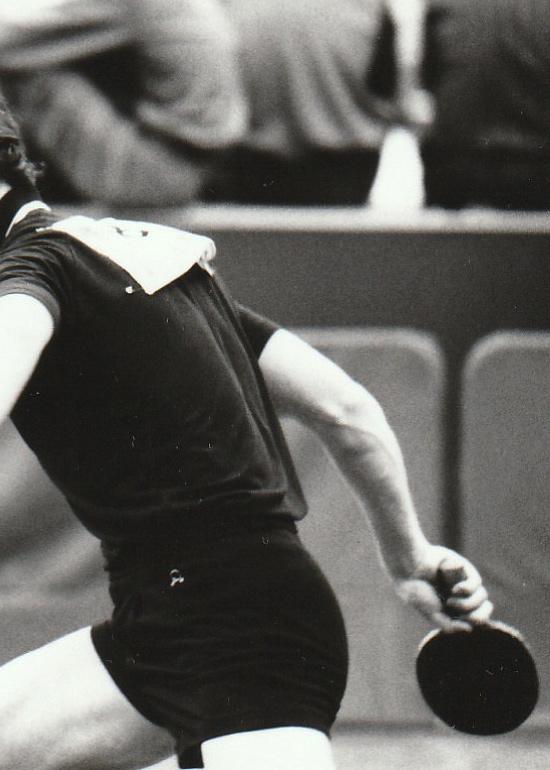
Swedish players were coming through at the same time as me, Waldner, Persson, Appelgren, Lindh; also, Hungary’s Tibor Klampar who was ahead of his time.
fashion, a contest that lives long in his memory, never to be forgotten.
“Gary’s Australian teammates had been organising bets on the match with the New Zealanders, there was quite a large crowd; I was down 14-20 in the decisive third game, I recovered to 19-20, at that moment I knew that I would win”, recalled Griffiths. “I hit three forehand clean winners to take the match 22-20, the noise from the crowd was deafening. It was the most exhilarating feeling I’ve ever had playing table tennis and while there have been many exciting moments, this has always been my highlight.”
Further to the delight of Griffiths, disgruntled, the Australians, having lost the bet, paid up!
Other successes stand in line but are most worthy of
note. At the 1985 Commonwealth Championships staged in a very cold Palace Lido in Douglas on the Isle of Man, New Zealand secured seventh place beating Australia 5-4 in a contest that finished at 1.00 am the next day!
“In our group we lost to Canada but beat Nigeria, one win for each team, we came third on countback”, recalled Griffiths. “So, we played for seventh to ninth positions, we beat Australia and Pakistan.”
The win against Nigeria was a major upset. Griffiths overcame Atanda Musa, listed at number 40 on the World rankings. Later in the proceedings, partnering Peter Jackson, men’s doubles bronze was secured, the duo lost to Atanda Musa and Francis Sule, the eventual winners.
A major success in 1985, but arguably the year that stands out is 1988, his appearance at the Seoul Olympic Games one of several memorable moments.
At a time when Australia and New Zealand were “associate members” of the Asian Table Tennis Union, Griffiths excelled at the Asian Championships staged in Niigata, Japan. Facing Hong Kong he remained unbeaten in a 5-4 team defeat, accounting for Chan Chi Ming, Liu Fuk Man and Vong Lu Veng.
“I played some of the best table tennis of my life. I recollect winning 12 out of 14 matches in the team event”, sighed Griffiths. “I remember in the men’s singles I played a very good match against Juzo Nukazuka, number two in Japan; I led two-nil and 15-10 but struggled to hold my nerve, I lost after leading 15-12 in the fifth. In the next round Nukazuka beat China’s Xu Zengcai.”
Peak form, in 1988 it was the same in partnership with Peter Jackson, a left hander, they proved a most dangerous combination. In the men’s team event at the German Open they beat Steffen Fetzner and Jörg Rosskopf, the pair crowned World champions one year later in Dortmund.
Additionally, at the Australian Open they won the men’s doubles overcoming China’s Li Zhidong and Teng Yi en route. Furthermore, in the men’s singles, Griffiths beat Takehiro Watanabe, Japan’s top player at the time, before losing to Teng Yi in the penultimate round.
Performances which underline the fact he could challenge the best; locally time and again he proved he was the best. Commencing in 1982 Griffiths won the men’s singles title at the New Zealand Open on eight occasions, the men’s doubles at seven editions, the mixed doubles four times.
Starting in 1979, he was named New Zealand’s Player of the Year on five occasions, in 2009 he was elected to the Hall of Fame; the awards endorsing the respect Griffiths has earned during his extensive career.
In every possible respect, player or administrator, Griffiths has provided a splendid example, without any doubt whatsoever, the successor treads in celebrated and most experienced footsteps.
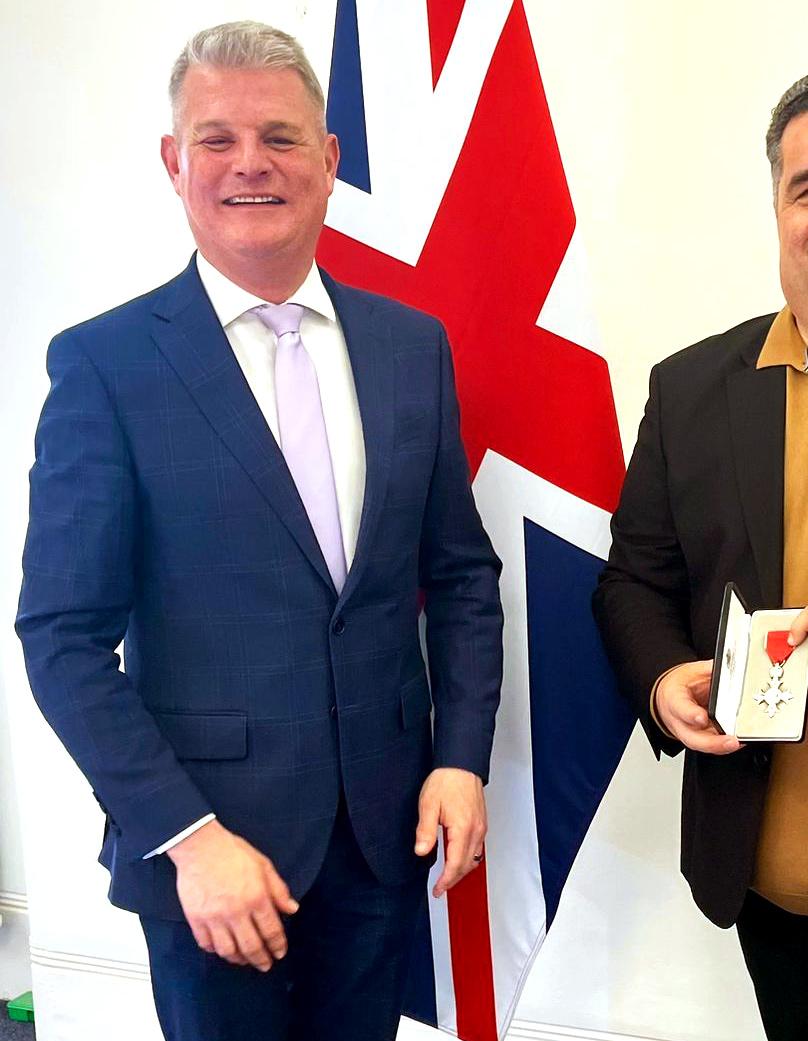
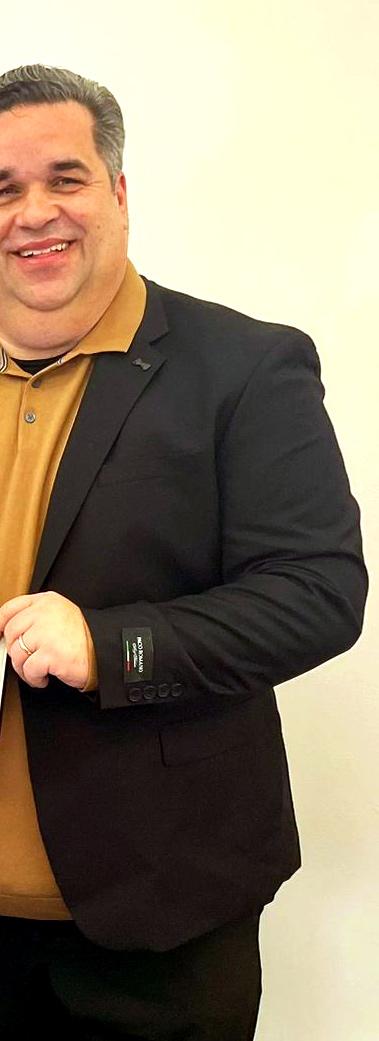
True Brit
Awarded by His Majesty King Charles III for services to Paralympic table tennis, on Monday 26th February, accompanied by his wife Sabina, Gorazd Vecko received the Honorary MBE (Member of the Order of the British Empire).
The presentation was made in London by the Rt Hon Stuart Andrew MP, the Parliamentary Under Secretary of State at the Department for Digital, Culture, Media and Sport, and Parliamentary Under Secretary of State (Minister for Equalities) for the Equality Hub.
u
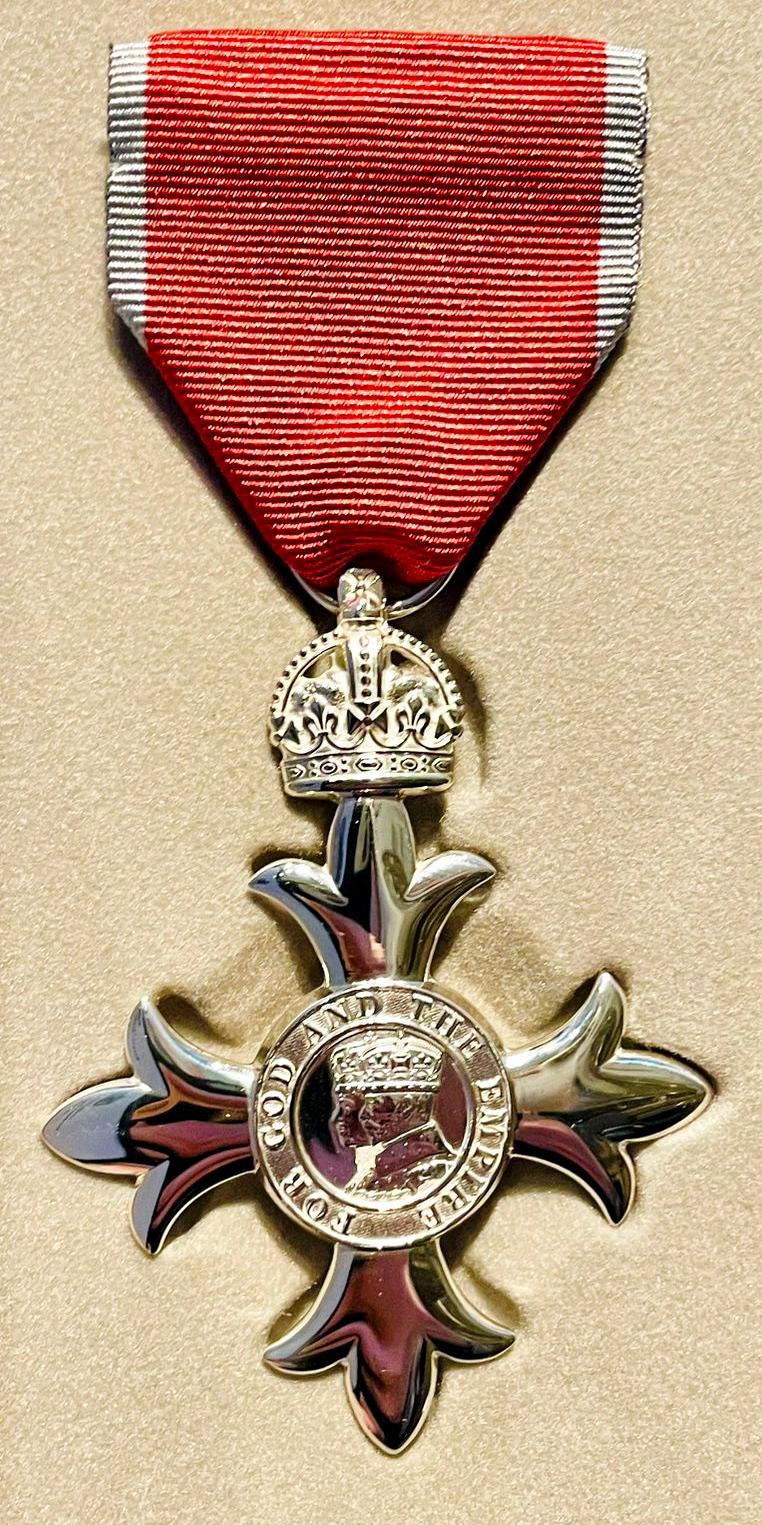
Organised under the auspices of the Honours System of the United Kingdom, honorary awards recognise foreign and Commonwealth nationals who have made an outstanding contribution to the United Kingdom.
They are conferred for achievement or service to the community that had a long-term, significant impact and stand out as an example to others.
Gorazd Vecko has directed a veritable revolution.
At the Beijing 2008 Paralympic Games, the Great Britain medal count in the table tennis events was zero; in 2009 Vecko was appointed Performance Director. He instigated a new dynamic régime. The priority was to have the most suitable coaches and support staff in place who would work with the most highly motivated players.
Additionally, he introduced a family culture; in fact, he welcomed players to stay in his home in Sheffield so they could practise at the newly opened English Institute of Sport (EIS) Performance Centre.
The change paid dividends. At the London 2012 Paralympic Games, the Great Britain team achieved its seemingly impossible target of four medals; four years later in Rio de Janeiro, both Rob Davies and Will Bayley won gold.
Fast forward to Tokyo in 2021, seven medals were gained, the most successful ever for the British team. One year later at the World Para Championships it was same again, a best ever; overall, 10 medals, including three gold.
Additionally, titles have been gained at both the European Para Championships as well as at the Commonwealth Games; significantly, the success rate has continued in 2024, Ashley Facey, Aaron McKibbin, Joshua Stacey, Megan Shackleton and Bly Twomey being very much to the fore at international tournaments.
Born in the Slovenian capital of Ljubljana, Vecko was inspired to become involved in table tennis by his father Edvard, a player of high pedigree. Representing Yugoslavia, alongside Antun Stipancic, he won the men’s doubles title at the 1968 European Championships and one year later was a member of the bronze medal winning men’s team at the World Championships.
An international career over, Edvard was to turn his attentions to coaching Para table tennis, son Gorazd followed. Gorazd played for Olympia Ljubljana, started coaching in 1996 before in 1999 being appointed coach for the Slovenia Para team, the immediate task to direct the fortunes of two Slovenian athletes at the Sydney 2000 Paralympic Games.
The Sydney experience added to his knowledge bank, four years later in 2004 in Athens, his hair dyed in the national colours, he guided Mateja Pintar to women’s singles class 3 gold, thus ensuring the first ever medal for
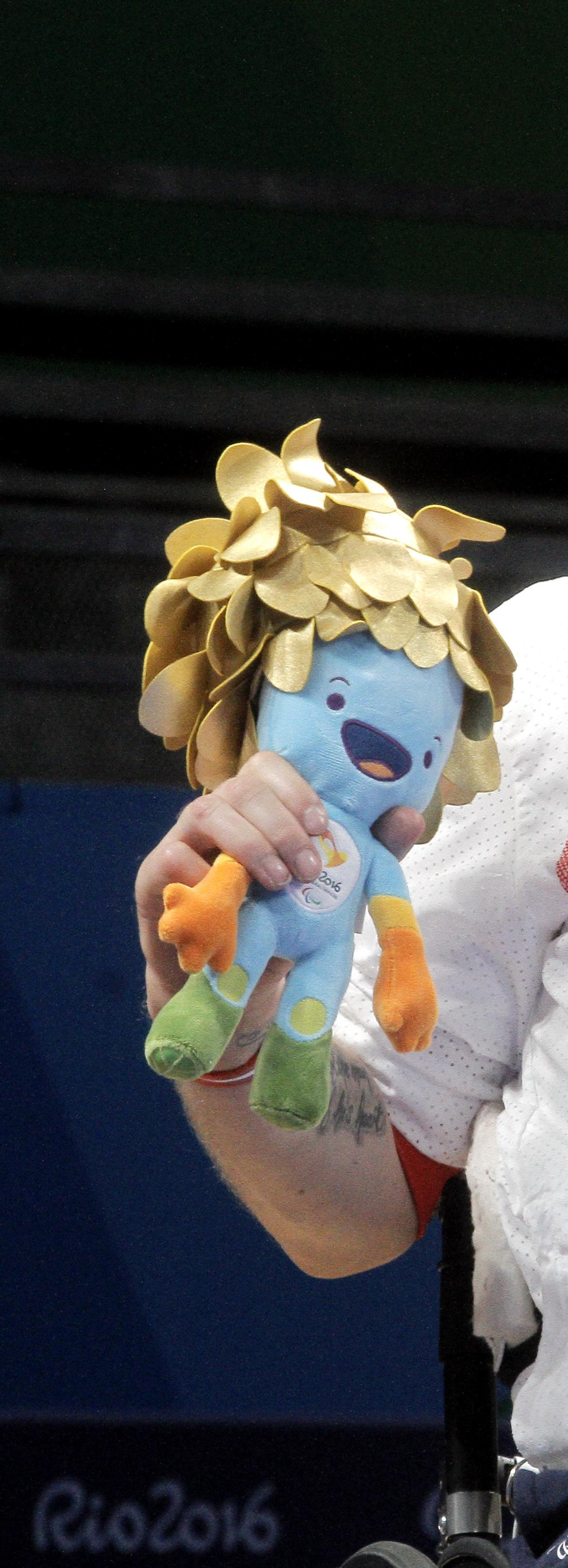
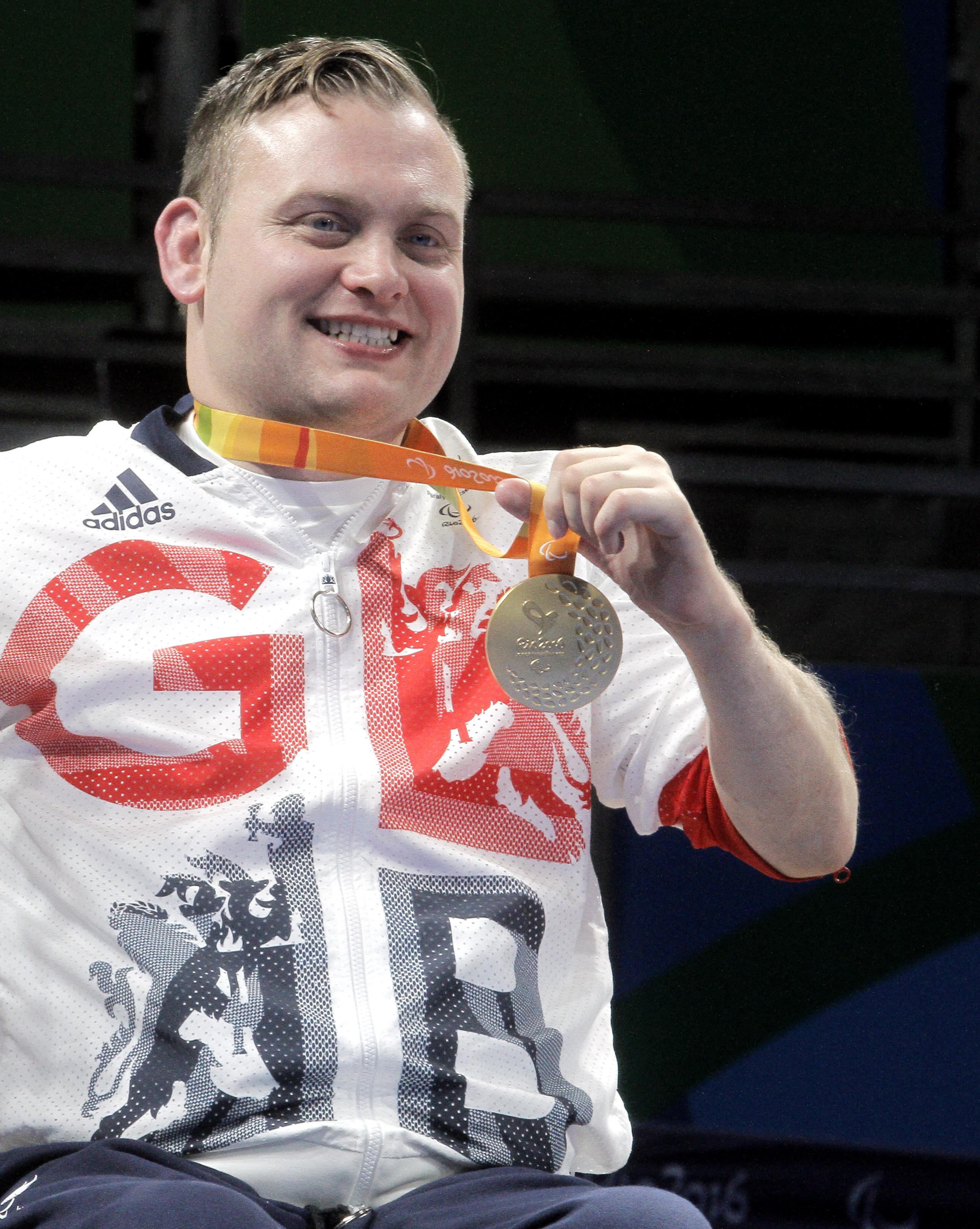
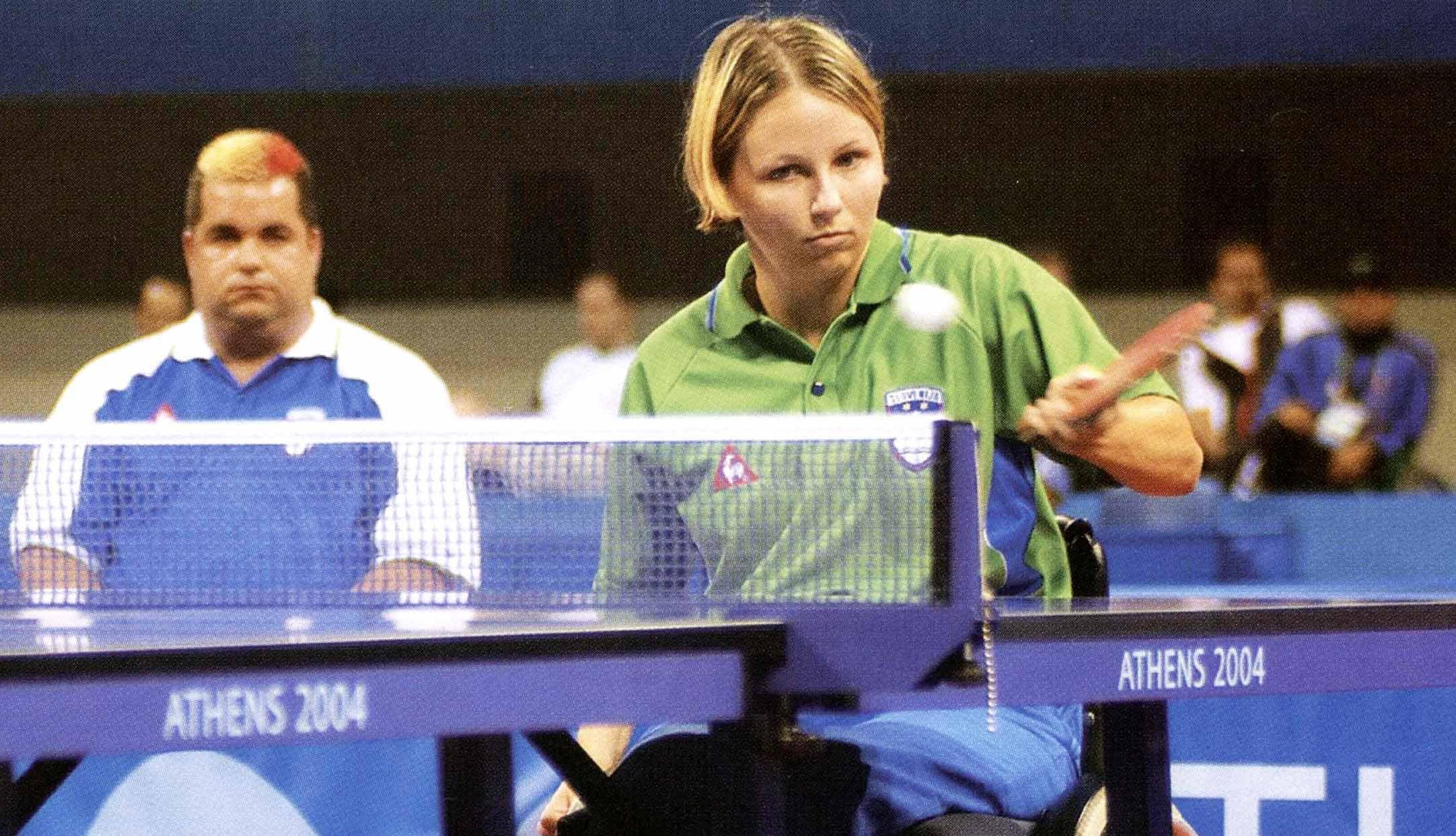
LEFT
A hairstyle to suit the occasion, Gorazd Vecko watches intently as he guides Mateja Pintar to women’s singles class 3 gold at the Athens 2004 Olympic Games.
of triumph,
Slovenia in the table tennis events at a Paralympic Games.
Alongside coaching Will Bayley to gold in Rio de Janeiro he rates the win gained by Mateja Pintar as the greatest moments of his career. Notable success, he followed his father as Performance Director of the Slovenian Para table tennis team, a position he held until 2009 when moving to the United Kingdom.
Successful as a coach but there is more to Vecko than a man clad in a tracksuit sitting courtside offering words of wisdom. In 2003 he became a member of the ITTF Paralympic Committee and a Tournament Director for Para events; held in Slovenia, he was the Tournament Director for the 2017 European Para Championships and the 2018 World Para Championships.
He continues to work closely with the ITTF to improve the structure of international Para table tennis tournaments, supporting athletes around the world.
Recently, in 2021 he was elected to the Board of the ITTF Para Committee and in 2022 became Vice-President of Table Tennis England.
Furthermore, presented jointly by the Slove-
nian Government and National Paralympic Committee, in recognition of his work as Tournament Director of the Slovenia Para Open for 20 years and his achievements with British Para Table Tennis, organised by the International Paralympic Committee he was honoured at the inaugural Friend of Para Sport Awards.
Well merited, the accolades acknowledge the values he feels are absolutely vital for success in sport: trust, belief and togetherness. Under Vecko’s leadership, the British team has gone from strength to strength. At the end of 2022 every member of the Performance Squad had won a medal at a major international championship; there is now a thriving Pathway squad with athletes training full time at the team’s base in Sheffield.
Para table tennis is now recognised in the United Kingdom as a leading Para sport; an environment has been created where athletes not only have the opportunity to realise their sporting potential and achieve, also they become fine human beings.
It is a scenario that gives Vecko great satisfaction and has been achieved through excellent management and forward thinking, the award is richly deserved.
RIGHT The moment Gorazd Vecko hugs Will Bayley after winning the men’s singles class 7 title in Rio de Janeiro.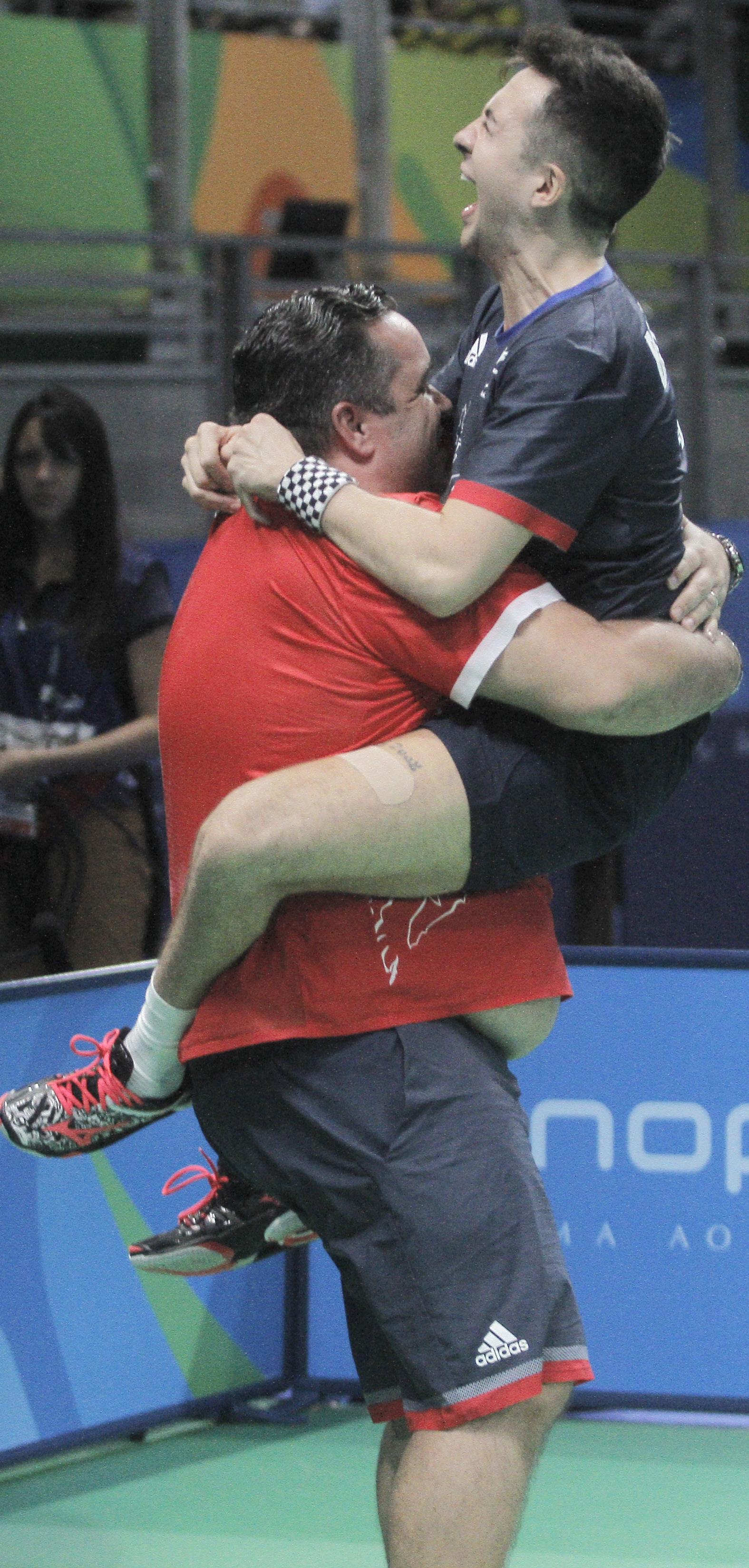
Reaction
Gorazd Vecko, British Paralympic Team Performance Director
This award means the world to me, it is really nice to be recognised and as a non-British citizen, I am honoured and proud to get an award like this.
Obviously, I have done something right and that has been noticed by people, but this award is not only for me but for British Para Table Tennis (BPTT), because if I didn’t have the athletes and staff around me I would never have been nominated for something like this.
I am really thankful to the people of the United Kingdon and especially BPTT that I can get recognition like this; it is not just an award for me it is an award for the whole organisation.
Karen Tonge OBE, Former Chair of British Para Table Tennis
Gorazd Vecko is a 'larger than life’ figure, full of passion for Para table tennis. We are so fortunate that he came to BPTT in 2009 and has remained with us changing the culture and structure of our World Class Performance programme.
From no medals in Beijing in 2008 to four in London 2012 and a fantastic seven in Tokyo, then 10 at the World Championships in Spain 2023, it has been quite a journey. We are proud to have him as our Performance Director and also thank the part his wife Sabina has played in supporting him.
Will Bayley MBE
A lot has happened since he first joined the squad before London 2012, it has been a massive privilege to be part of that journey with him from the start.
He has been like a father-figure to me for many years and has produced so many great teams over the last 14 years from London through to Rio and Tokyo and now building up to Paris.
He has managed to produce some amazing Paralympic squads and I am so proud to just be a part of it.
He deserves an MBE for being one of the best coaches and managers that Para table tennis has ever had.
Welcome Back
An international debut in 2009 in Romania, on duty at the Paralympic Games in both Rio de Janeiro and Tokyo, in March 2022, Ashley Facey caused somewhat of a stir; he decided to leave the British table tennis squad and turn his attentions to cycling.
Life on two wheels was short-lived, in March 2023, table tennis racket in hand, he returned to the international scene. Competing in men’s singles class 9, at the ITTF Lignano Para Open he reached the quarter-finals; later partnering Aaron McKibbin the pair progressed to the men’s doubles class 18 final.
“I thought I was done with table tennis and needed a new challenge”, explained Facey. “I love cycling and at that time I thought it was something I wanted to pursue, I love sport, I am strong and also in some way I was built for cycling; I’d not considered any other sport.”
Soon he realised there was one love above all.
“It was not long after I joined the British Cycling Team that I realised I wanted to return to table tennis; my aim was to be a track sprinter but there was a lack of competitions, I missed hitting a table tennis ball, I missed the training, I missed competing”, sighed Facey. “Transferring to cycling made me realise how much I
u
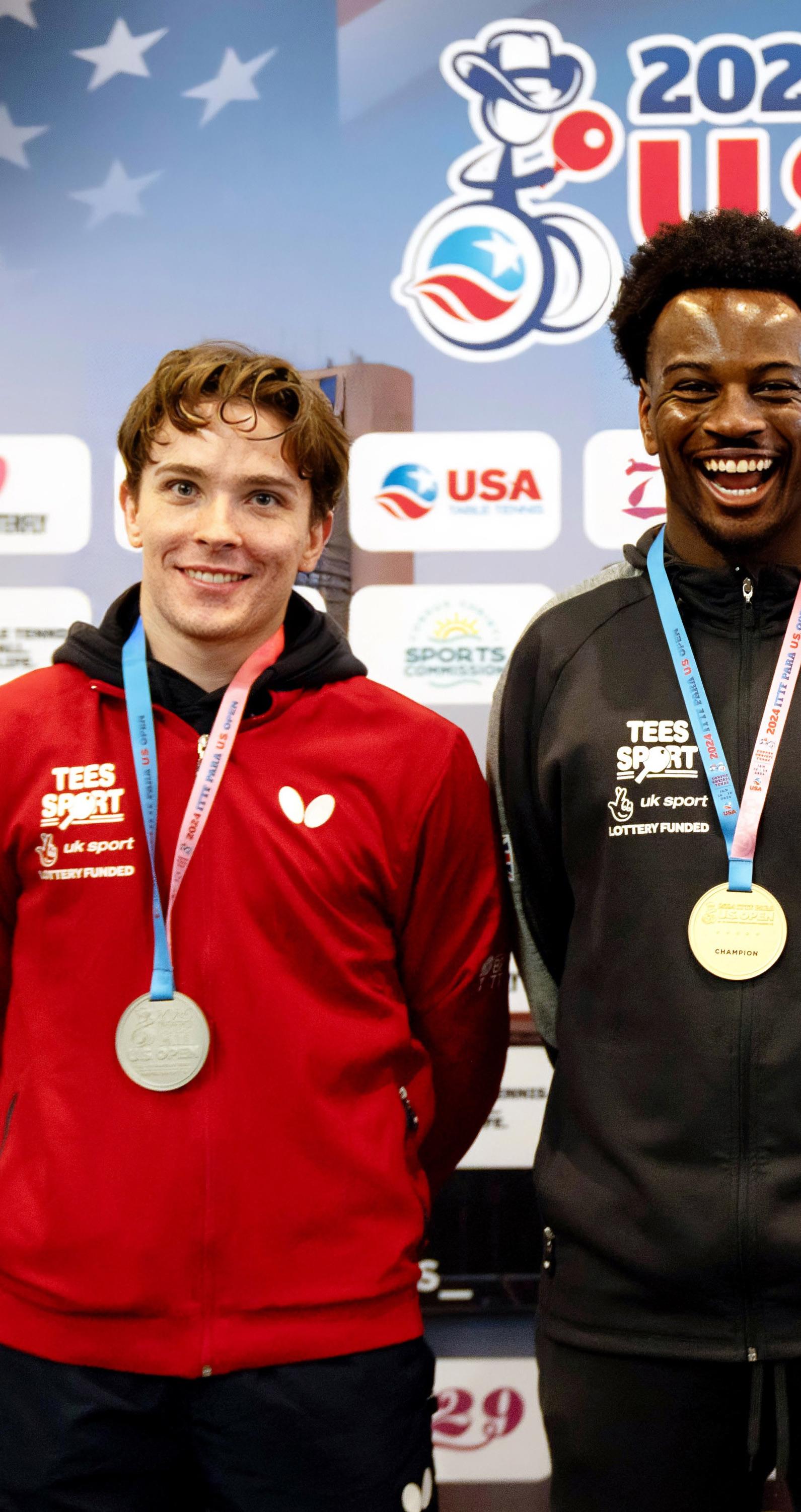 The men’s singles class 9 podium at the ITTF United States Para Open 2024 on Wednesday 17th January in Corpus Christi, Texas.
left to right silver for Joshua Stacey (Great Britain), gold for Ashley Facey (Great Britain), bronze for Koyo Iwabuchi (Japan) and Tahl Leibovitz (United States).
The men’s singles class 9 podium at the ITTF United States Para Open 2024 on Wednesday 17th January in Corpus Christi, Texas.
left to right silver for Joshua Stacey (Great Britain), gold for Ashley Facey (Great Britain), bronze for Koyo Iwabuchi (Japan) and Tahl Leibovitz (United States).
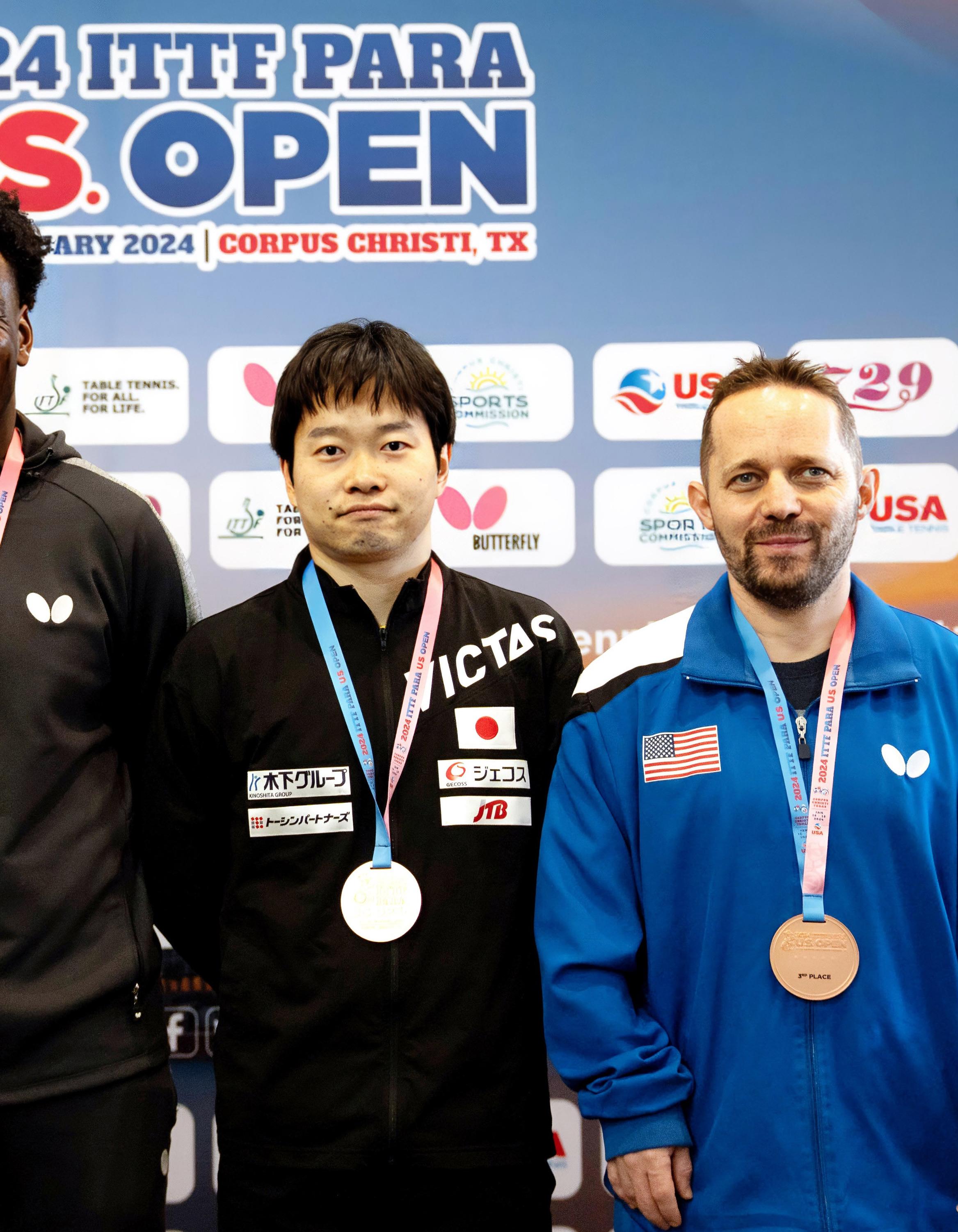
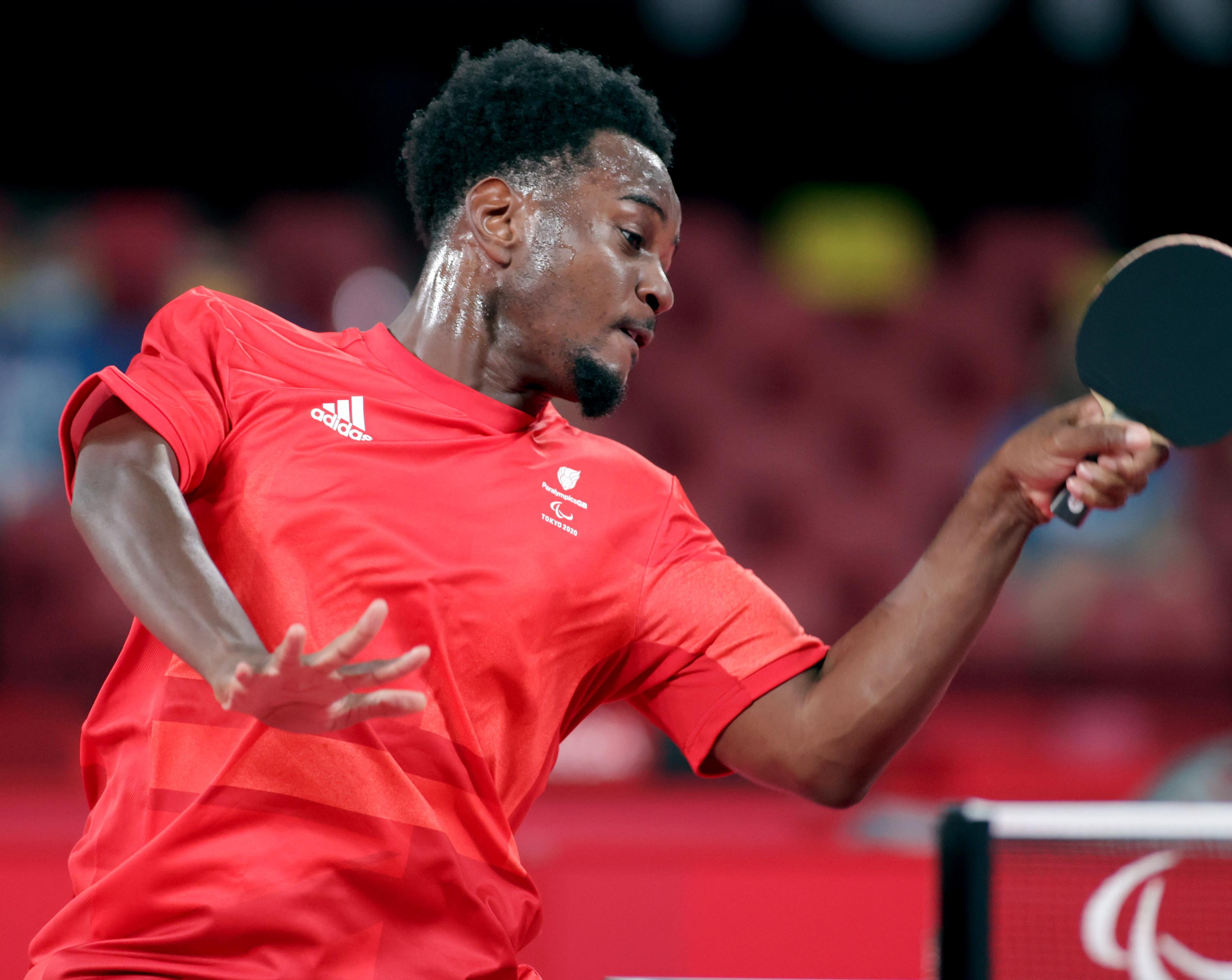
still loved the sport of table tennis, facing someone across the table from you, the ups and downs in a match, the tactics; they say absence makes the heart grow fonder, being away from table tennis has most certainly done that for me.”
Watching his teammates depart for the Andalucia 2022 World Para Championships in Granada tripped the switch; that was the defining moment when any doubts were erased.
“I must admit I was scared I would not be allowed to come back but I didn’t leave on bad terms, I was just nervous about asking to come back”, stressed Facey. “My colleagues welcomed me back with open arms, I’m so happy and feel very blessed to be a part of the British Para Table Tennis team again.”
Officially, he returned in December 2022 and is based at the English Institute of Sport in Shef-
Ashley Facey on duty at the Tokyo 2020 Paralympic Games.
Kim Daybell joined forces with Ashley Facey at the 2017 European Para Championships in Lasko, the duo won men’s team class 10 silver.
field, the home for the British team. Training is Monday to Friday, four to five hours per day, each day one hour serving practice; physical training three days per week.
Most certainly, now one year after his return, the effort made is reaping dividends, in January 2024 he won men’s singles class 9 in Corpus Christi at the United States Para Open.
“It was a case of having fun; stay in the present and take one match at a time”, stressed Facey. “My short play was good as was my third ball attack; I needed to improve flicking the ball out wide and counter attacking from my backhand.”
Facey was born with Erbs palsy, it affects the nerves in the right side of his body, primarily in his arm and shoulder; nevertheless, Facey was always encouraged by his mother to play sport.
LEFT RIGHT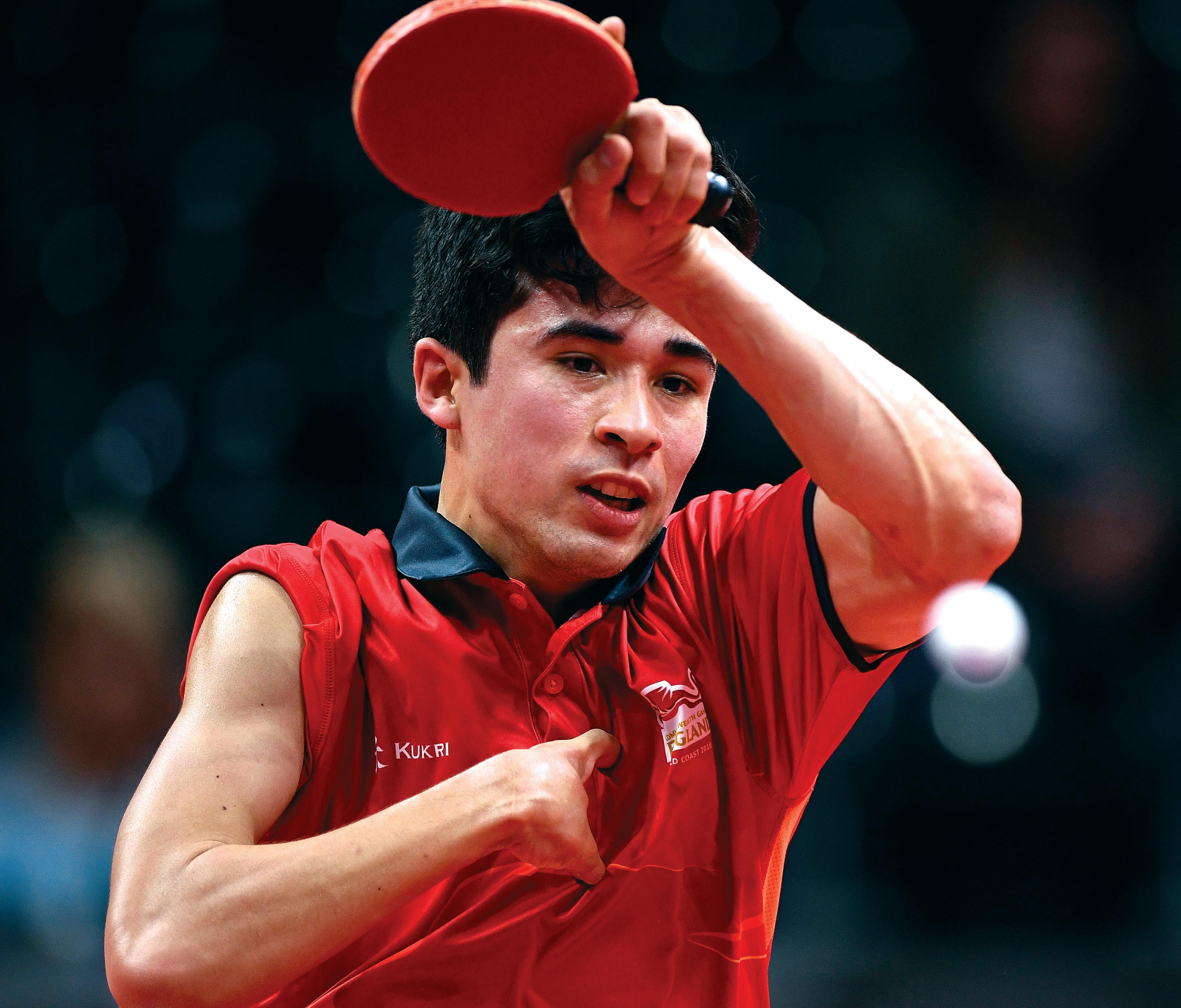
“I played basketball, cricket, football, tennis, boxing and swimming that is when I fell in love with sport,” reminisced Facey. “Mum originally thought I was going to be a swimmer because I loved swimming, I’m just a very sporty person and I love trying different sports.”
The introduction to table tennis was at Morpeth School in Bethnal Green, East London; immediately his natural talent impressed the local coaches.
“To be told I was really good at something meant a great to me, particularly at that age,” explained Facey. “Back then I wasn’t academically smart, it is hard when you are a kid to hear negative comments all the time; it was nice to feel that I was good at something, I fell in love with table tennis, it was so fast and fun.”
Facey joined the Great Britain Para squad in 2009, just missing out on a place in the London 2012 Paralympic Games. However, he was selected for the Paralympic Inspiration Programme. In 2017 he moved to Sheffield to train full time after completing his course in sports coach-
To be told I was really good at something meant a great deal to me, particularly at that age
ing and analysis at London’s South Bank University.
Improving, he achieved his first major medal; at the European Para Championships staged later that year in the Slovenian city of Lasko, he won silver with Kim Daybell in men’s team class 10.
Well versed in sport, a supporter of Arsenal Football Club and the LA Lakers basketball team, cycling as with other sports is for fun, table tennis is for elite level; now back in the fold, is there any possibility leaving?
The answer was firm, definite and unequivocal: “no chance!”
Thanks
ASHLEY FACEYUnstoppable Ugandan
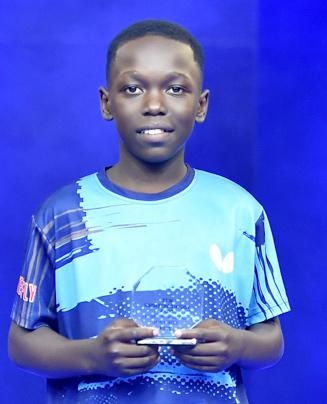
Win one title and then two days later repeat the feat, thus adding to a success gained the previous year, a commendable effort. The feat is even more commendable when just one month earlier you celebrated your ninth birthday!
However, that is the achievement of Joseph Sebatindira, on Thursday 25th January in the Lusail Sports Arena at the WTT Youth Contender Doha 2024, he won the under 11 and under 13 boys’ singles events.
The win made the career grand total three, in October 2023 he had won the under 11 boys’ singles title in Cairo!
Now that record surely stands alongside anything the likes of Tomokazu Harimoto and colleagues of their generation were achieving a decade ago. Moreover, he is not from a nation that boasts Olympic and World champions, he is from a developing country, Uganda.
“I was felt so nervous before the finals in Doha”, reflected Sebatindira. “After I won, I was so happy because I knew it would not be easy to win; I am very grateful to my coaches: Mary, Alvin, Tendo, Iddi, my parents for encouraging me and to Mr Jaggwe.”
A strong support team and one name stands out, he is guided by Mary Musoke, she competed in the 1992, 1996 and 2000 Olympic Games; in fact, in 2000 she was the country’s flagbearer.
Notably, she won women’s singles bronze at the 1999 All African Games and at the Africa Cup, as well as the same colour medal at the 2004 Africa Senior Championships in Mauritius. Following retirement, she formed the Nakasero Table Tennis Club in Kampala and is now the Director.
from their home, mother Bernita encourages them to play because they get sports bursaries in schools.”
Furthermore, the club has received help from outside sources.
“We would also like to thank our equipment sponsor Ping Sans Frontière of France, especially Sara Hanffou for the support”, stressed Mary “Also, thanks to Jackson Migadde for coordinating the equipment supply; we wouldn’t have done it without them because equipment is very expensive.”
I formed the club to help children perform better than me, the club has now expanded
“I formed the club to help children perform better than me, the club has now expanded”, explained Mary. “I have known Joseph since birth because his mother works at the Nakasero Primary School which hosts Nakasero Table Tennis Club; the whole family of seven children play table tennis. The hall is two minutes walk
We would also like to thank our equipment sponsor Ping Sans Frontière of France, especially Sara Hanffou for the support
However, it took some time before Sebatindira became involved; he was the silver lining on a dark cloud.
“At first Joseph was not interested in table tennis, he would come, watch, collect balls and train a bit, but during COVID 19 movements were restricted”, explained Mary. “There was no school, so in 2020 he gained an interest in the game and was training with his siblings.”
At the time he was five years old.
“My brother, Napookoli Phillip and our club number one Sam Mbabazi”, encouraged me”, said Sebatindira.
Progress was rapid, soon he was doing what he enjoys the most, beating better players; by 2022 Joseph dominated the under 13 categories locally and regionally, overcoming many senior players. In 2023 he was part of the Kibuli Table Tennis club, a sister club to Nakasero that won silver at the ITTF Africa Club Championships in Nairobi in May.
“He won the decisive match against the Ethiopian Club in the semi-finals”, explained Mary. u
RIGHT Aiming high, Joseph Sebatindira at the WTT Youth Contender Doha 2024.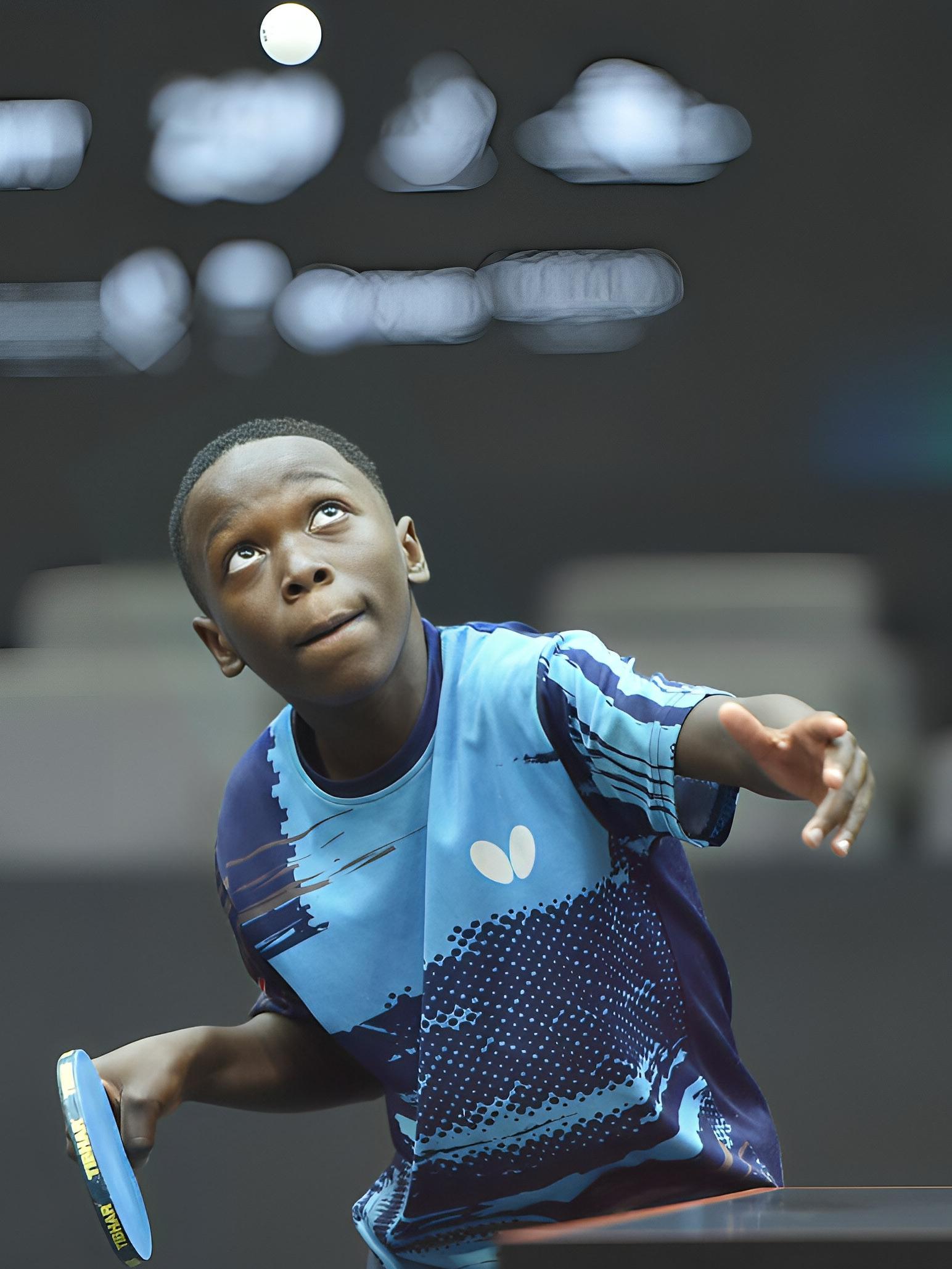
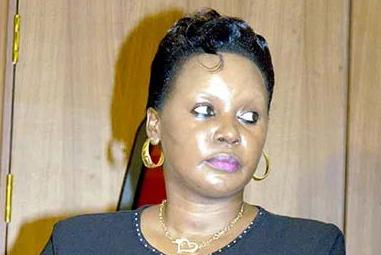
“He played as number two for the club and beat senior players from Kenya and Ethiopia.”
Impressive and a person who was most impressed was Khaled El-Salhy, President of the African Table Tennis Federation.
“During the tournament Khaled advised us that Joseph should also play the junior events, so Joseph with Sam Mbabazi, Parvin Nangonzi and Jemima Nakawala from Uganda attended the ATTF and China Training Camp in Cairo in October 2023 “, said Mary. “Our club has young coaches Alvin Katumba, Mary Tendo, Iddi Wotosi and others who volunteer to help the kids, we also receive visiting coaches from Egypt; we welcomed Ahmed El-Dawlatly and Mohamed Ismail Ezzedin.”
Most importantly, thanks to all concerned, a well organised training schedule is in place.
“During holidays, I train six days a week, about five hours per day, during school time, I train two hours a day and five hours on Saturday;” explained Sebatindira. “I think forehand top
ABOVE
Mary Musoke, the guiding hand.
RIGHT
Joseph Sebatindira after winning the under 11 boys’ singles title at the WTT Youth Contender Cairo in October 2023.
spin has become the strongest part of my play; my main aim at the moment is to be the number one junior in Africa.”
Attentive, motivated, he has gained the respect of Mary Musoke; a vital ingredient as a player moves step by step to a higher level.
“Joseph is a very hardworking boy, very disciplined, a quick learner and listens to coaches’ advice”, added Mary. “With more exposure and support Joseph can become an African Champion in the years to come, because he is a talented, WTT titles have motivated us to work harder.”
An exciting prospect, no disrespect to Egypt or Nigeria, the two dominant forces, but challenges from elsewhere can only be good for Africa. Who can break the tradition, Tunisia’s Wassim Essid has impressed in recent times and is a name very much in the frame or even could it be the much younger, Joseph Sebatindira?
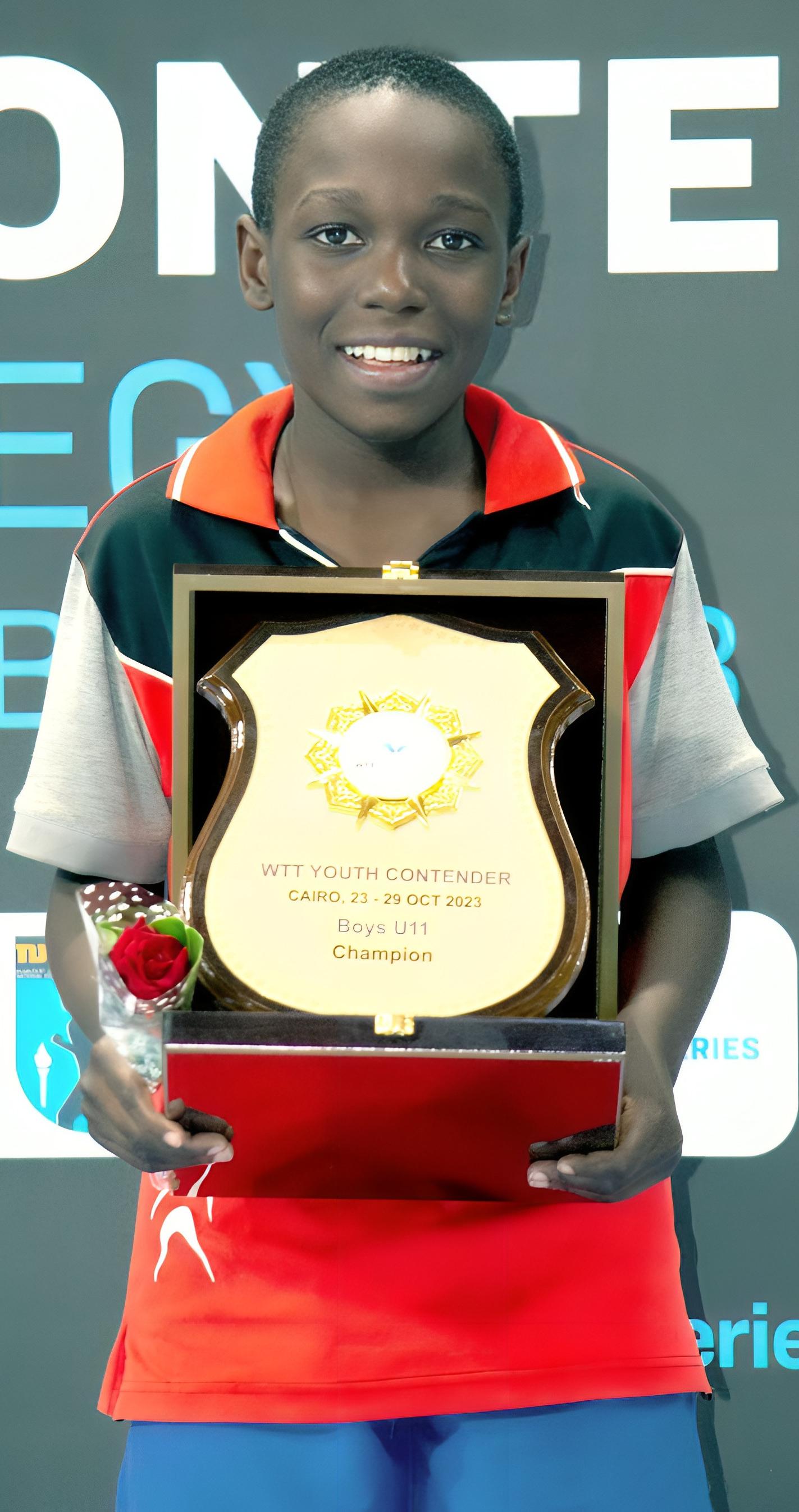
Date of Birth: 11th December 2014.
Family: father is Mabirizi Bosco, mother is Nakanwagi Bernitah, the siblings are Napookoli Phillip Martin, Namaala Shanitah, Batanda Shafik, Nsereko Sharif, Namale Josephine, Sebuliba Shakul.
School: Nakasero Primary School, Kampala. Club: Nakasero Table Tennis Club. Favourite player: Quadri Aruna.
Racket blade: Xiom Pro Vegas FL. Forehand rubber: Butterfly Tenergy 05 red.
Backhand rubber: Xiom Jekyll & Hyde v52.5 black.
Coaches: Maria Musoke, Alvin Katumba, Mary Tendo, Iddi Wotosi and Robert Jaggwe.
Career Highlights
2022 won the Uganda Hopes, under 11 boys’ singles title.
2023 won the under 13 boys singles at the Jinja Open and Mutaz Open.
2023 won the Uganda Hopes, under 11 boys’ singles title.
2022 won under 13 boys’ singles title in Rwanda.
2023 won Eastern Africa ATTF Regional Hopes Title in Rwanda.
2023 won silver medal at the ITTF Africa Club Championship in Nairobi as a member of the Kibuli Table Tennis Club.
2023 men’s singles winner and under 18 boys’ singles runner up at Mutaz Jinja Open tournament.
2023 won the under 11 boys’ singles title at WTT Youth Contender Cairo.
2024 won the under 13 boys’ singles at the Uganda National Championships.
2024 runner up men’s doubles, partnering brother Napookoli Phillip, at the Uganda National Championships.
2024 fourth place in the men’s singles event the Uganda National Championships.
2024 won the under 11 and under 13 boys’ singles titles at WTT Youth Contender Doha.
SCIATICA: ARE TABLE TENNIS PLAYERS MORE EXPOSED?
by Miran Kondrič, PhD, University of Ljubljana, Faculty of Sport, chair ITTF Sports Science and Medical Committee and Dejan Kernc, PhD Re.aktiv Spine, Ljubljana, SloveniaDejan Kernc received his PhD in early rehabilitation after spinal surgery, developing a new form of rehabilitation and helping to shorten the recovery period for patients. He now runs his own back pain relief clinic called Re.aktiv spine. He co-operates with renowned experts in the field of neurosurgery, orthopedics, medicine, physiotherapy and kinesiology. The essence of his work, both academic and professional, lies in linking knowledge in order to improve the outcome for patients. He also works as a lecturer at the Faculty of Physiotherapy in Novo Mesto, Slovenia.
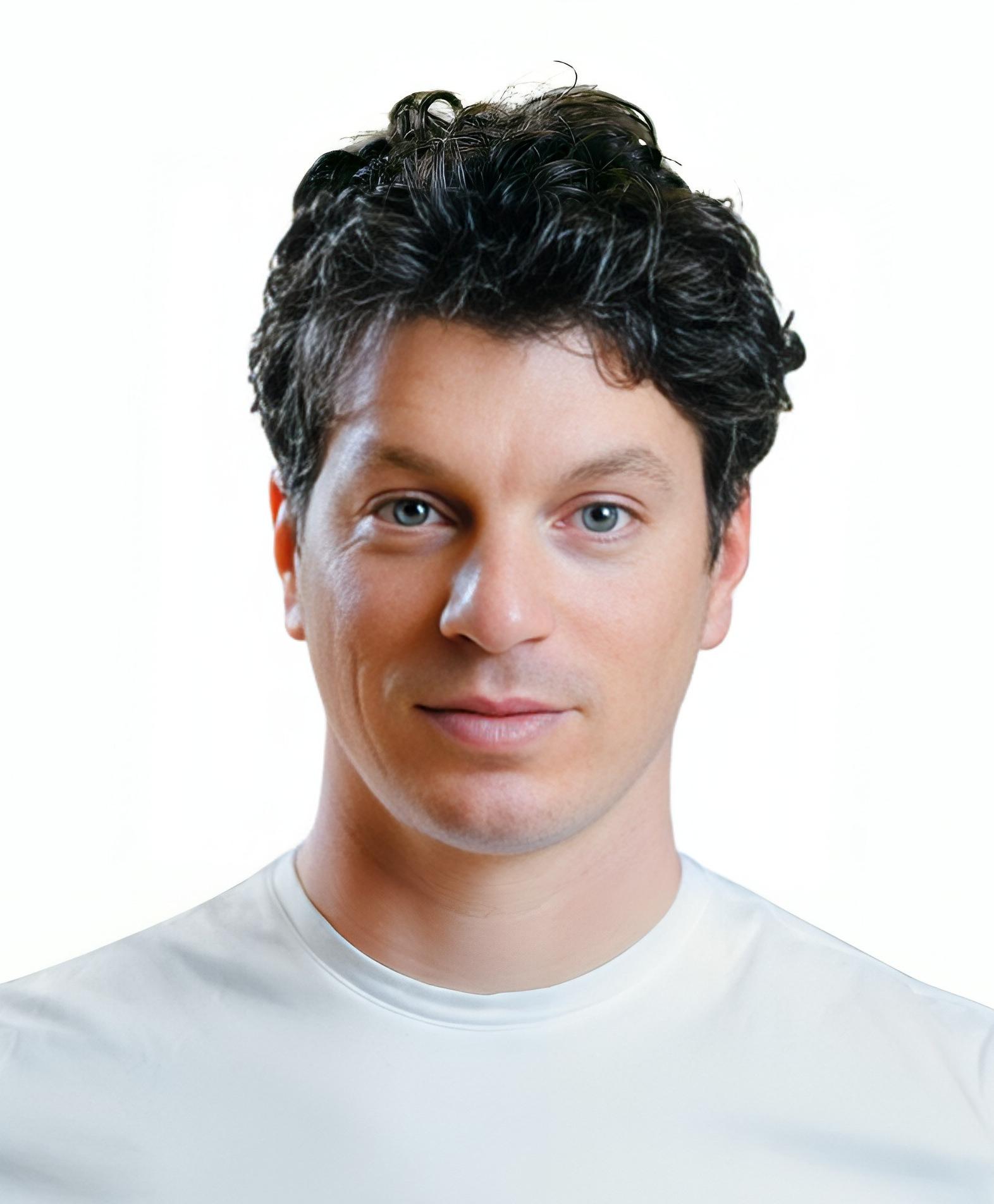
After years of practice, unfortunately, almost every table tennis player encounters unpleasant pains in the lower back, extending down to the toes.
Table tennis is a markedly one-sidedly stressful activity, which, with disproportionate exercise, often leads to health problems and problems with the musculoskeletal system; colloquially the term is sciatica. We speak of sciatica or a pinched sciatic nerve when the cause of the pain is irritation, inflammation or damage to the sciatic nerve, the result of a pinched sciatic nerve somewhere along its course from the lumbar spine, buttocks to the toes.
It should be emphasised that the term sciatica is often misused because its primary meaning is a description of consequences, not a diagnosis. The pain is transmitted along the nerve, but the cause is elsewhere. Most often, the reason is muscle damage, this affects the irritation of the sciatic nerve. Less often, the problem is nerve entrapment resulting from a bulging intervertebral disc. It can be a protrusion or a hernia. In these cases, the pain is more intense and persists for a long time.
lumbar region, and as the severity of the condition increases, it progressively spreads down the leg. The lower the pain, the more serious the problem and the greater the limitations in daily life. The individual's pain usually spreads to only one leg and rarely to both.
Normally, the pain increases with movement, especially bending forward and rising from a chair. The pain can also increase when coughing, or the pain can start to shorten a night's sleep. The pain experienced by a table tennis player is often more severe in the leg than in the back. It becomes more pronounced when exercising or playing table tennis with quick and sudden jerky movements or twisting the upper body.
Table tennis players recognise sciatica by its most obvious symptom, a sharp pain in the spine that radiates across the buttocks to the toes. Doctors attribute this pain mainly to onesided strain in table tennis. The pain usually subsides after a few days or weeks. If it is accompanied by signs of numbness, tingling and electricity (pins and needles), this represents more significant problems with the origin of the pain.
ABOVE
Dejan Kernc RIGHT
Playing strongly from the backhand, Fan Zhendong places immense pressure on the lower back.
The sciatic nerve is the longest, thickest, and one of the most critical nerves in the human body. Each individual has two sciatic nerves that come from the left and right sides of the lumbar spinal cord and run down the leg, here they split into several branches that continue towards the toes. The sciatic nerve enables sensation and movement in the lower limb, which is extremely important for everyday activities (walking, running, driving, etc.) and, of course, for quality leg work when playing table tennis.
In the case of sciatic nerve inflammation, the pain usually originates in the lumbar part of the back. In most cases, it is limited only to the
Notably, the pain is usually worse during movement, and at the same time, general mobility is also reduced due to muscle stiffness. Weakness (decreased muscle strength) gradually increases owing to inactivity and an inability to move fully, as there is fear and limitations due to pain; this can be avoided to a large extent with correct work and gradualism.
The most common reason is muscle imbalance and poor stabilisation muscles, not used enough until the pain appears. The imbalance affects the improper loading of the spinal structures, which become overloaded with time
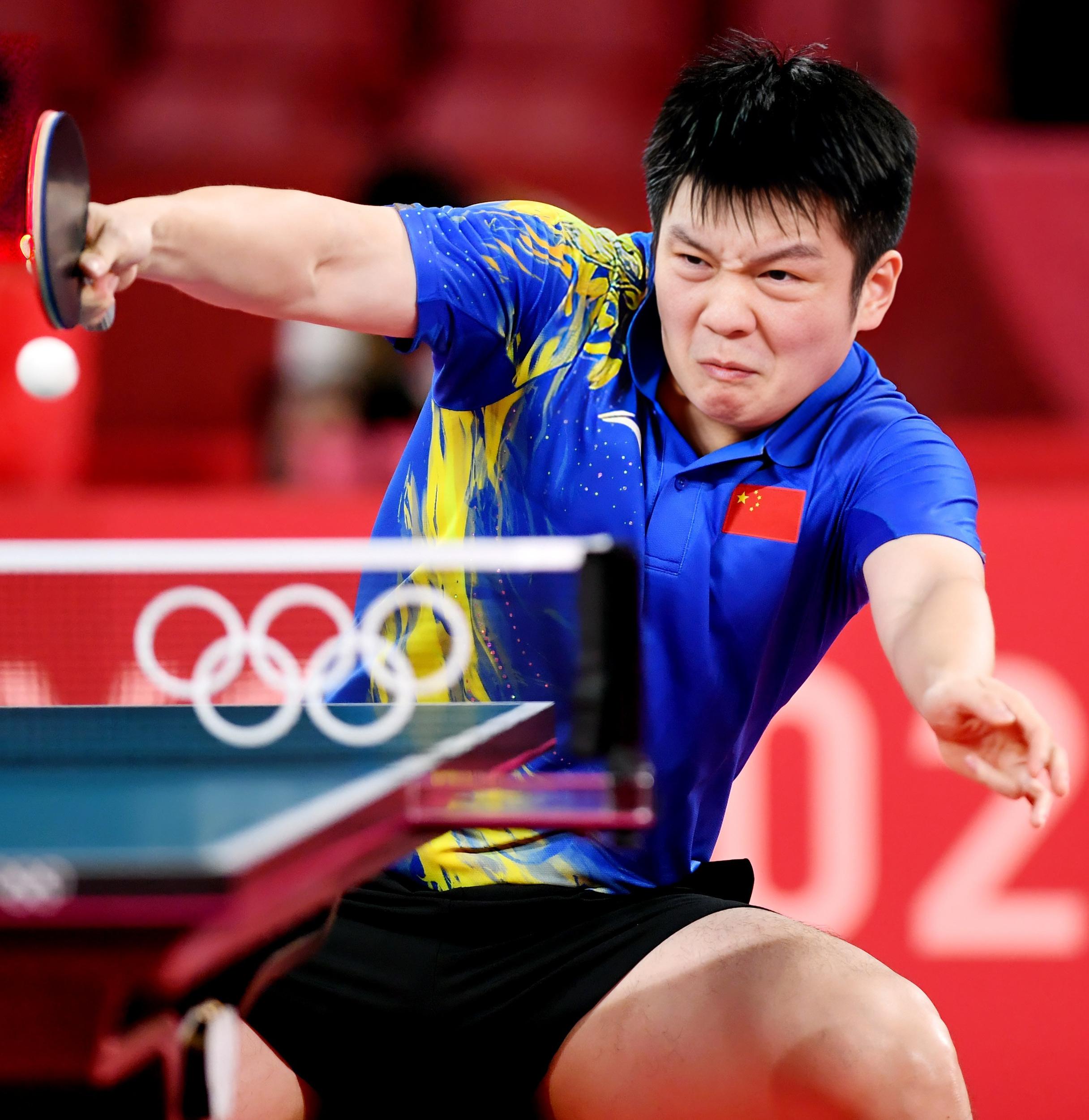
and many repetitions, causing muscle spasms or contractions and excessive unilateral loading; a scenario to which table tennis players are very exposed.
A major problem resulting from sciatic pain are disc protrusions, these may appear as a protrusion or herniated disc. Also, they are usually associated with age related degeneration of the intervertebral discs, which loosen and bulge due to stress. Thus, disc protrusions can narrow the spinal cord or protrude nerves, causing pain.
The cause of sciatica symptoms is discovered through a specialist diagnostic examination, the doctor usually prescribes physiotherapy and kinesiological treatment, adapted for each patient. Each spine has its load-bearing capacity (the ability to bear the daily loads that occur in all movement patterns). Playing table tennis requires an individual to be physically fit and stabilise the spine, this ultimately protects from injuries, lower back pain and possibly sciatica. Resulting from an increasingly sedentary lifestyle, most people consequently have inactive muscle
u

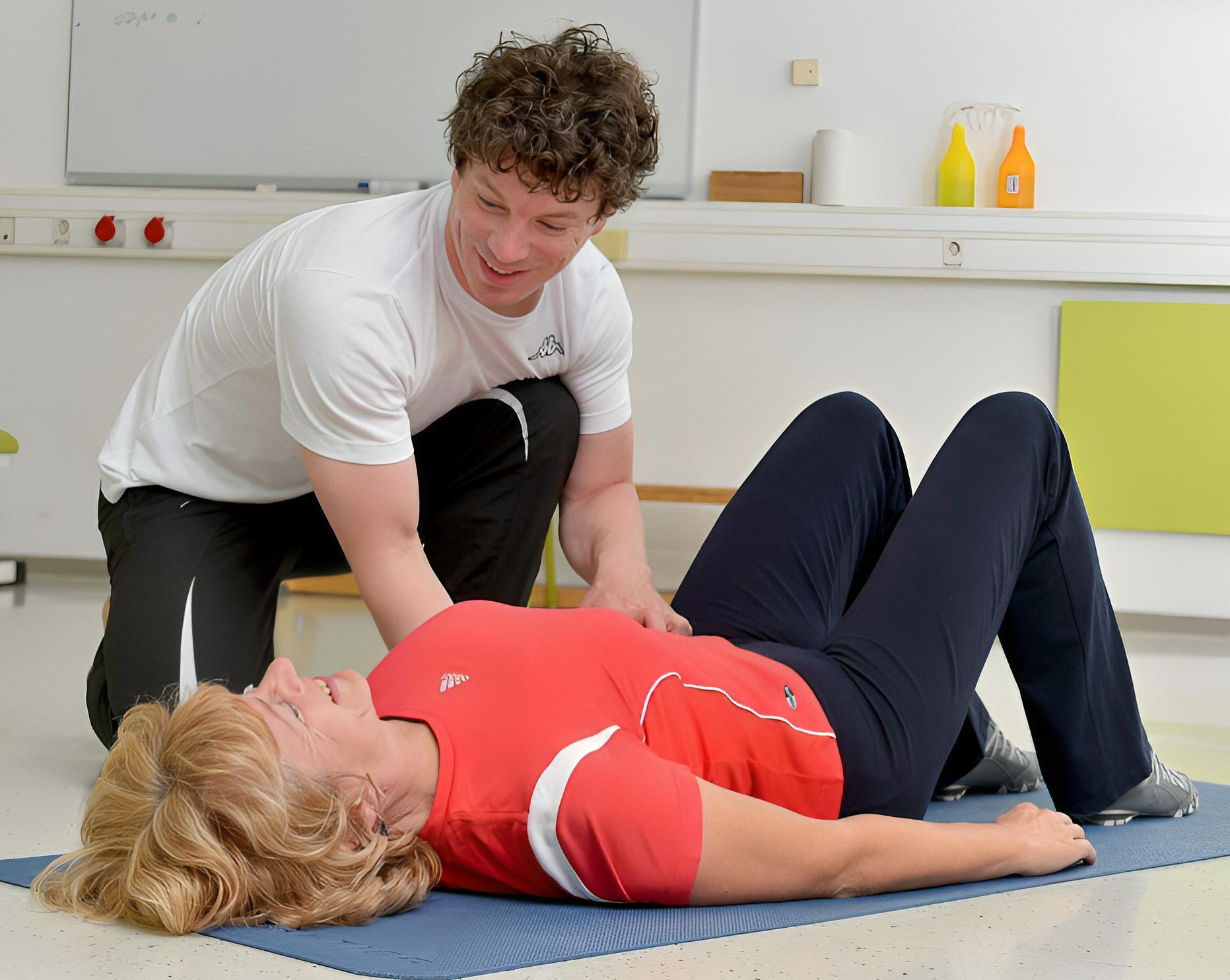
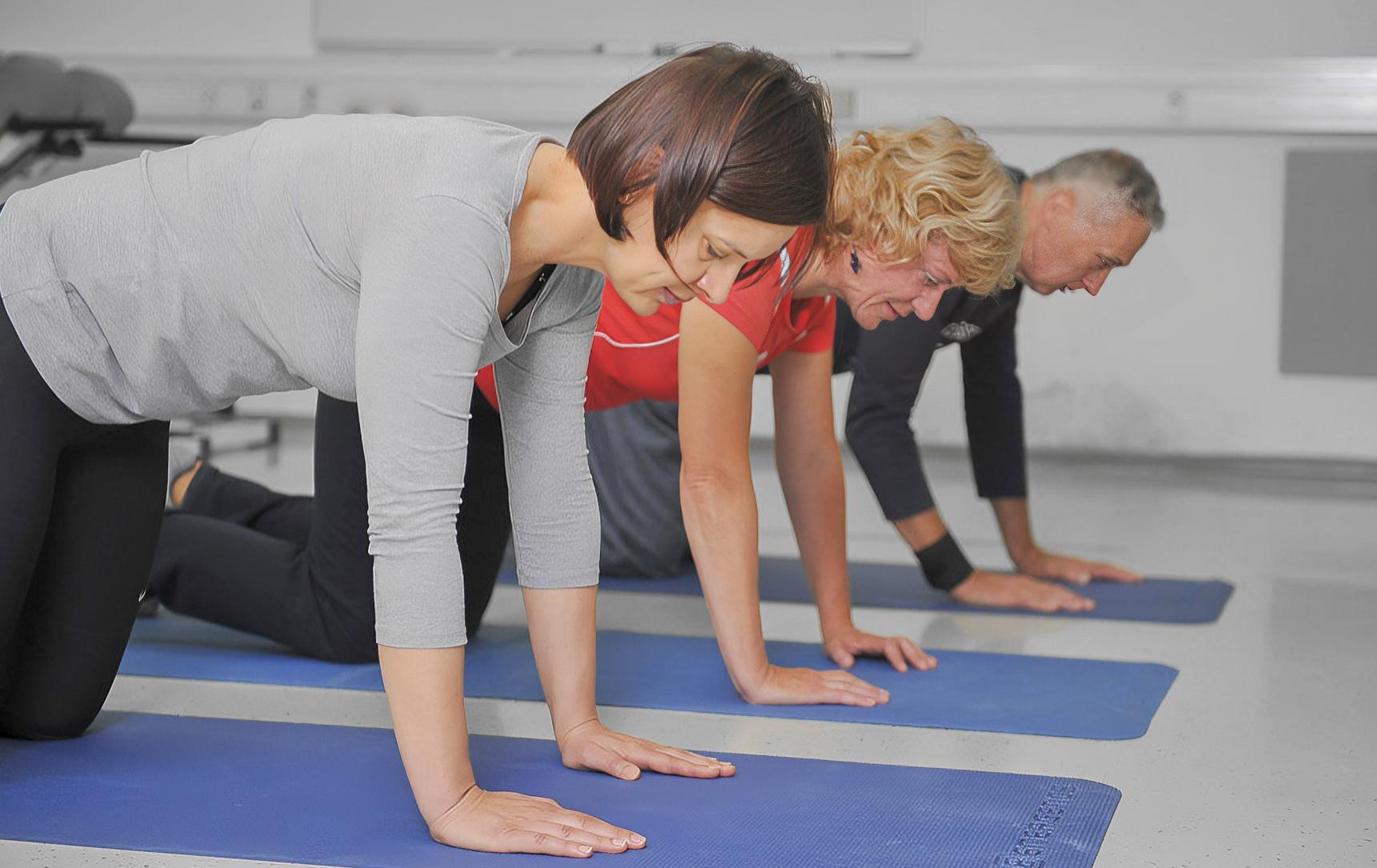
stabilisers of the trunk and poorly strengthened musculature in the spine, this further destroys the ability to bear loads during table tennis training and playing.
Furthermore, sciatica symptoms for table tennis result from:
• Incorrect muscle proportion (muscles do not work correctly and are not co-ordinated).
• Age and degenerative changes (with age, the body's ability to renew becomes more complex, resulting in wear and tear).
• Strenuous (irregular) movements (repetitive movements that cause additional strain on the spine).
• Diabetes (increases the possibility of nervous system diseases).
• Obesity (extra body weight that strains body structures).
The most significant help is to strengthen the deep stabilisers, learn the correct exercises and incorporate them into everyday life according to ability; contact experts such as kinesiologists or physiotherapists for help. Of course, due to severe sciatica symptoms, it is necessary first to visit a doctor. Severe sciatica symptoms cause burning pain, loss of strength in the legs, and the inabil-
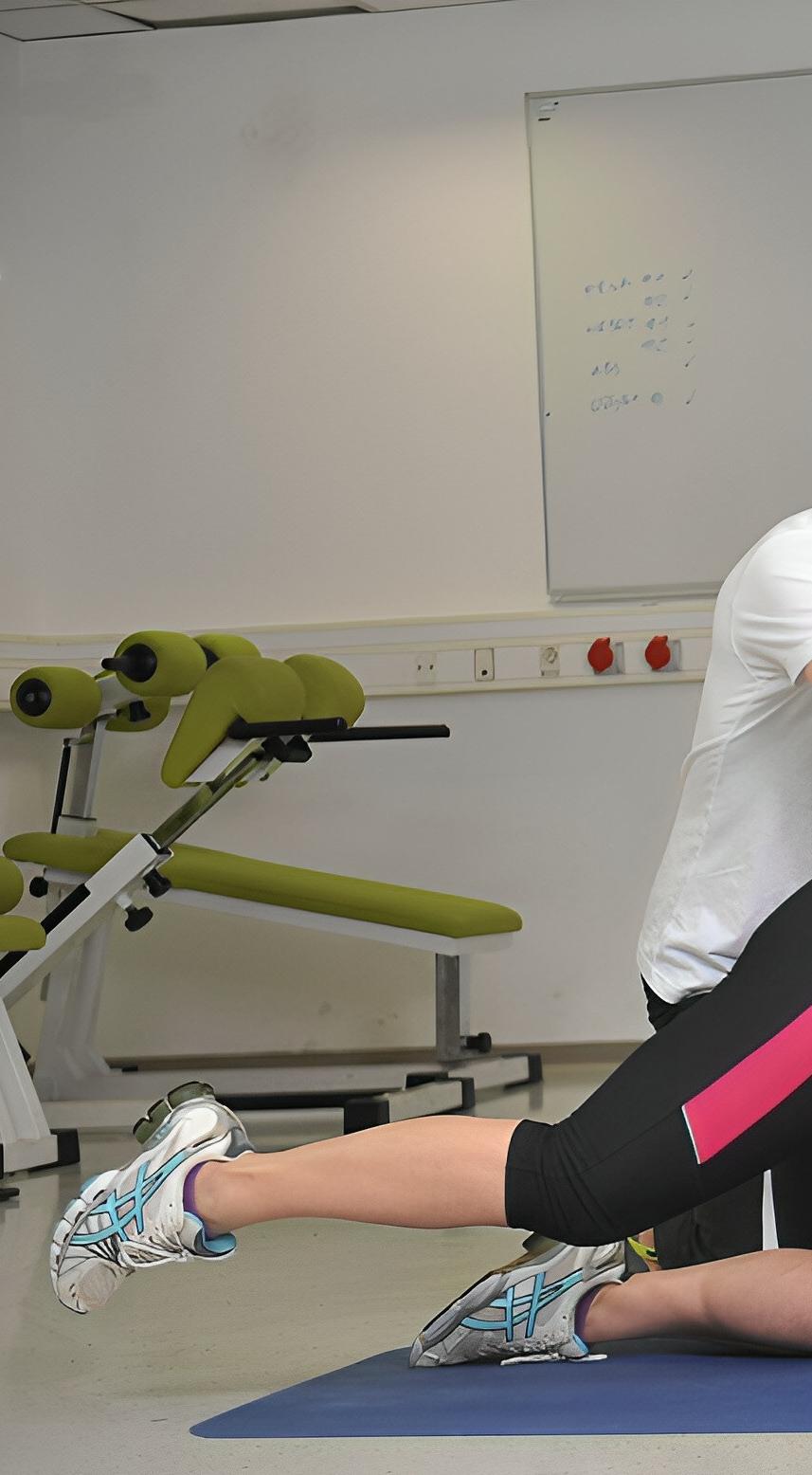
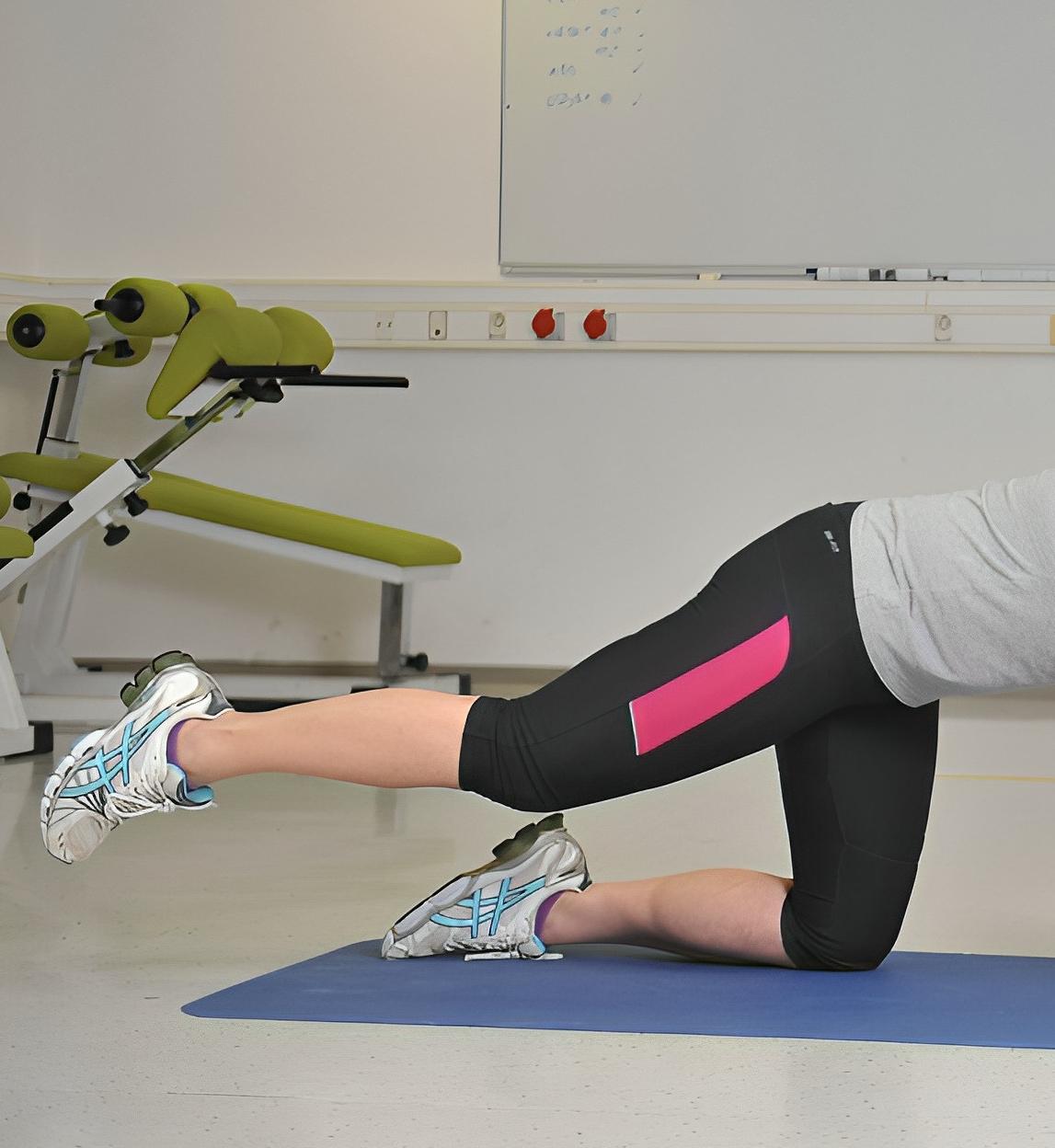
ity to hold water or stool. In case of these signs, it is necessary to see a doctor immediately.
Modern physiotherapy treatment begins with a diagnostic examination, continues with physiotherapy and kinesiotherapy, and ends with a preventive kinesiology programme. The implementation of therapeutic exercises begins with establishing the spine's load-bearing capacity in the directions of movement (flexion, antiflexion, extension, antiextension, lateral flexion, antilateral flexion, rotation, and antirotation).
Isometric exercises are started, progressive strengthening exercises continue. Neuromuscular training is also performed to keep the sciatic nerve gliding correctly. The recipe for successful physiotherapy treatment includes the active participation of physiotherapists and kinesiologists.
After acute physiotherapy treatment, kinesiologists guide you to excellent physical fitness; with targetted and progressive kinesiology training, they continue to establish the load-bearing capacity of the spine properly. They focus on correct postural control and the establishment of movement patterns (proper distribution of forces and
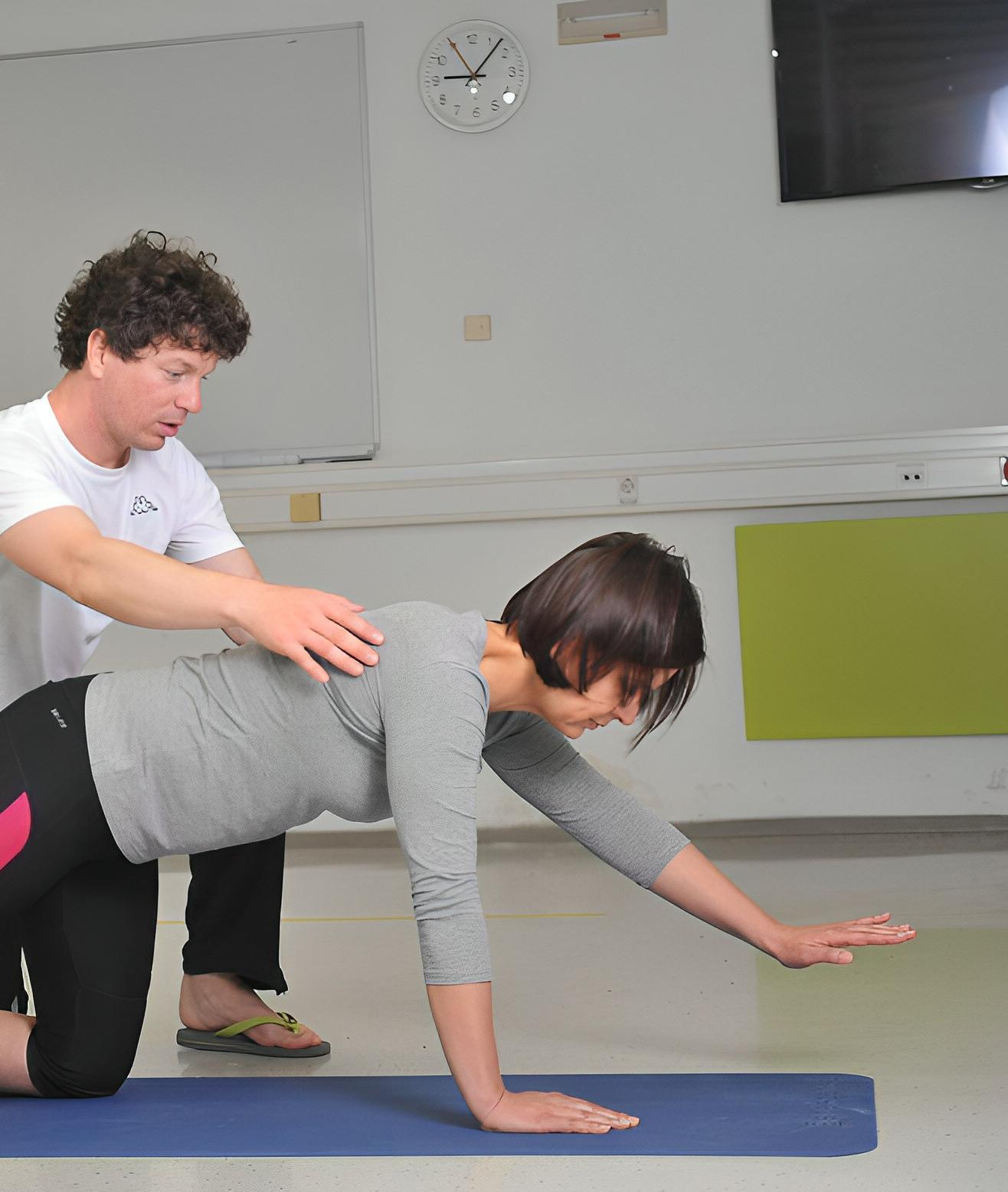
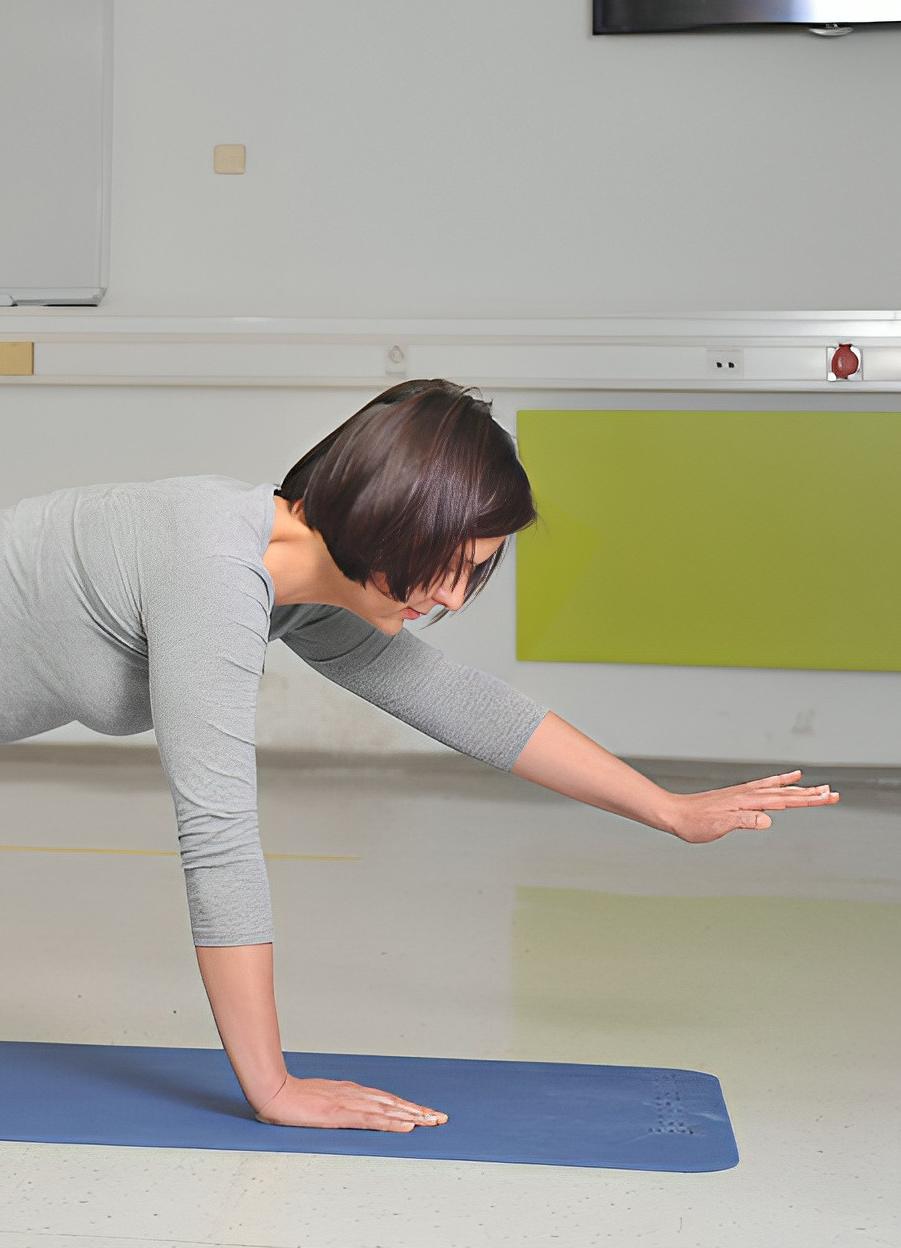
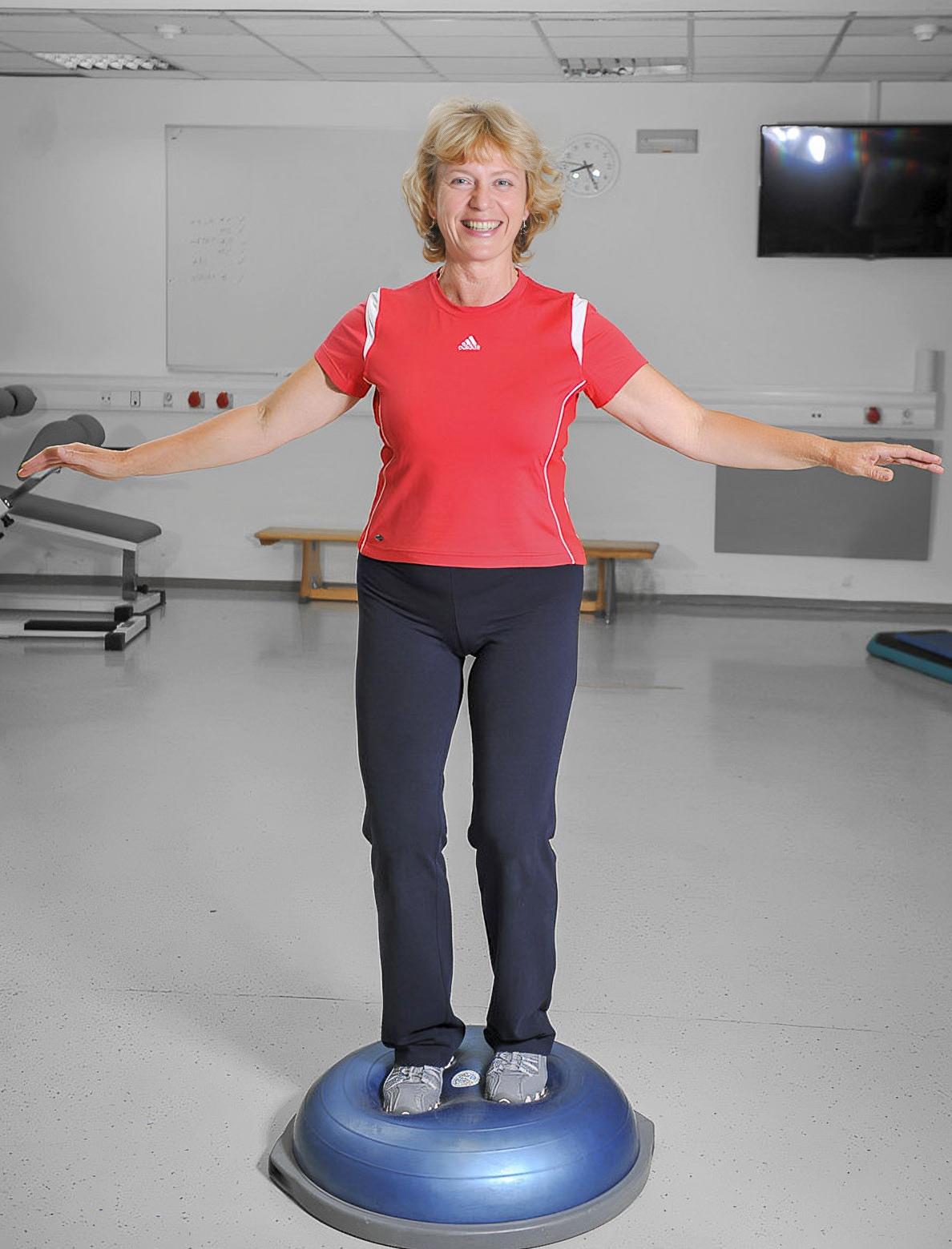
PREVENTION: MAINTAINING SUITABLE BODY WEIGHT, DIVERSE AEROBIC ACTIVITIES (BACKSTROKE SWIMMING, CROSS-COUNTRY SKIING, NORDIC WALKING), STRENGTHENING THE MUSCLES OF THE LOWER BACK AND ABDOMINAL MUSCLES, AND CORRECT POSTURE (ESPECIALLY WHEN LIFTING LOADS AND SITTING FOR LONG PERIODS) HELPS TO REDUCE BACK PROBLEMS IN TABLE TENNIS PLAYERS.
load across the body, so that the structures that are anatomically intended are stressed). Before the end of the treatment, special tests are carried out, which allow insight into the progress of rehabilitation and your ability to return to exercise and carry daily loads.
After completing physiotherapy, where the consequences of sciatica have been eliminated, the patient's journey is just starting. In most cases, the symptoms of sciatica recur. To prevent recurrence of sciatica (or even the occurrence of new injuries or diseases), it is recommended to con-
TOP ROW LEFT
Examination by a specialist.
TOP ROW CENTRE
Communication between patient and specialist.
TOP ROW RIGHT
Exercising with a specialist.
FAR RIGHT
Proprioceptive exercise on Bosu ball.
BOTTOM ROW LEFT Group exercise.
BOTTOM ROW RIGHT
Balance exercise.
tinue with preventive kinesiology programmes to maintain optimal physical health and strength. Adopting appropriate measures, the pain usually subsides within four to six weeks. A day or two of rest eases the severe pain, but prolonged rest makes the problem worse.
Especially for the initial symptoms of sciatica, doctors and physiotherapists recommend cold-warm compresses for pain relief. Warm compresses relax tense muscles, while cold compresses reduce swelling around the nerve and somewhat paralyze the pain. For example, ice or frozen food and a heating pad or hot stone wrapped in a towel can be helpful.
Compresses should be placed alternately on the painful part. Typically, cold-warm compresses are applied every two hours for about 15 minutes. Correct movement helps to faster recovery, avoiding jerky and irregular movements is necessary.
Therefore, the table tennis racket should stay at home for a while. Kinesiologists recommend correctly implementing various stretching exercises and using elastic bands to strengthen muscle strength, especially in the lower back.
January-March 2024
DREAM BUILDING FUND 2023
Final five announced
Committed to using table tennis to achieve United Nations Sustainable Development Goals and in line with the ITTF theme “Diversity & Inclusion”, a total of 177 Dream Building applications from 64 countries and territories were received, an eventual short list of 18 projects, the five winners are announced.
Ping Pong for Peace in Somalia
A two-year project to promote peace.
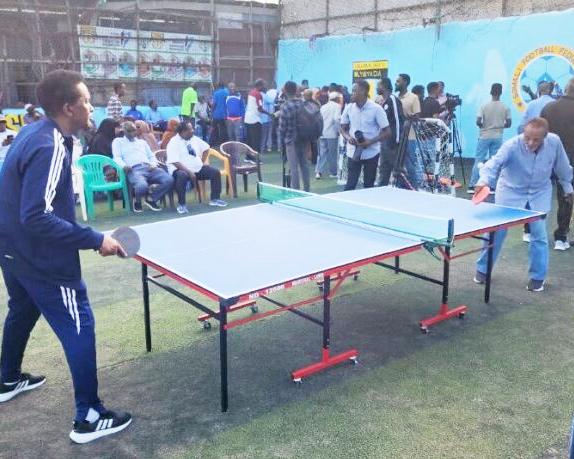
Shaping the Future in Malawi
Targetting vulnerable boys and girls to reduce early pregnancies, early marriages, and school dropout.
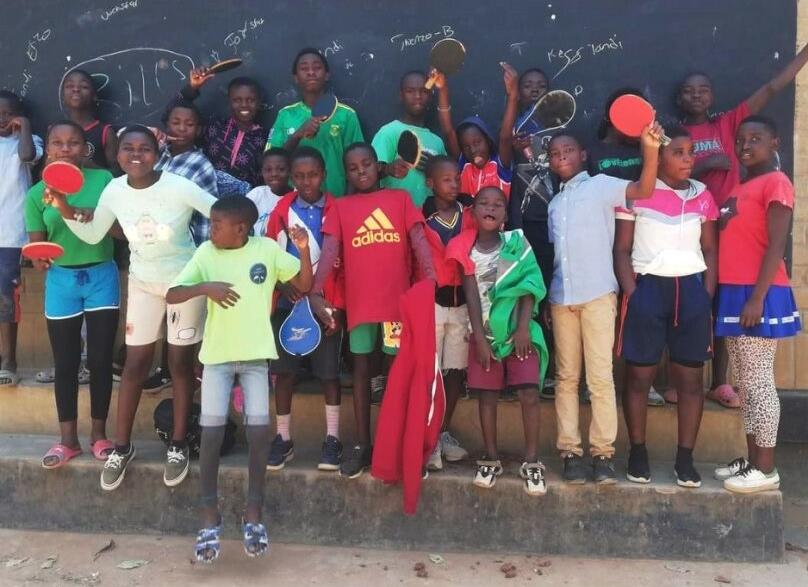
Smash
Barriers: Every Table is a Playground, Kapadwanj Kelavani Mandal, India
A three-year project aims to use table tennis as a catalyst for fostering community cohesion.
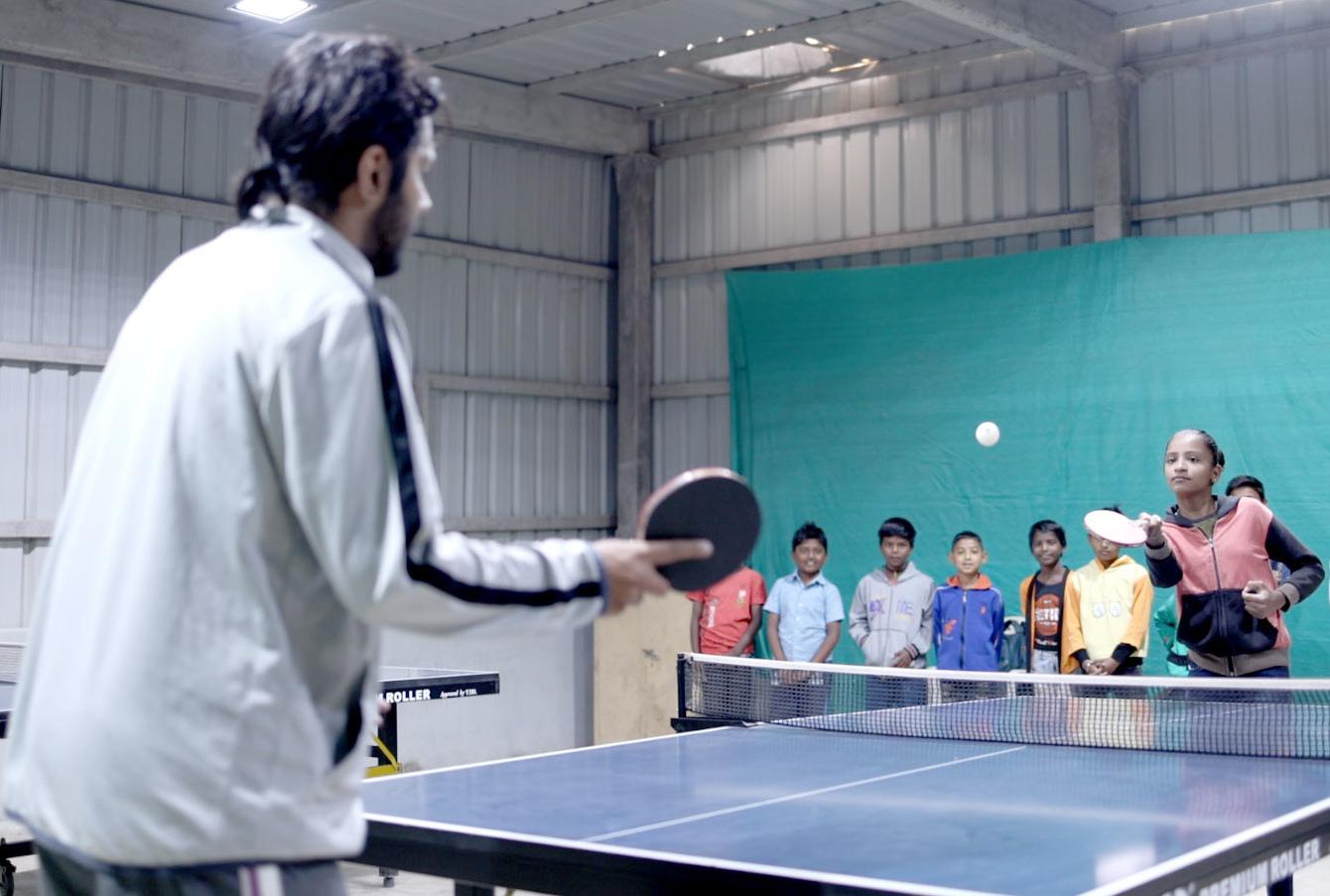
Table
Tennis against Alzheimer’s: the Art of Inclusion
Raising awareness of the health benefits table tennis can bring to those living with dementia, among caregivers and the public.
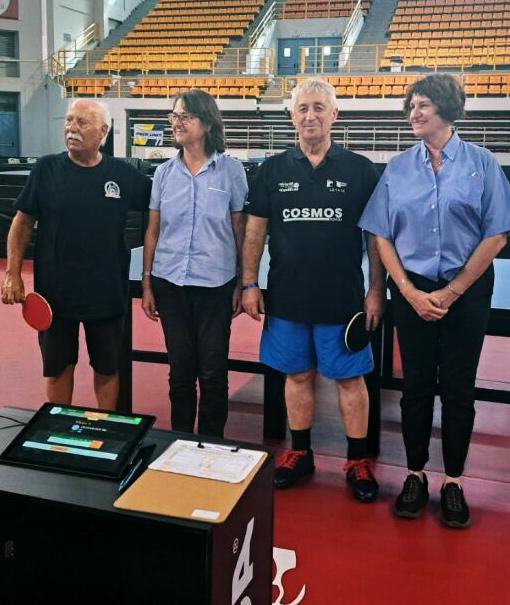
Utilising Table Tennis to Improve Integration and Social Skills of Students with Learning Disabilities in Palestine
A two-year project aimed to enhance the integration and social skills of students with learning disabilities at an elementary school in Hebron.
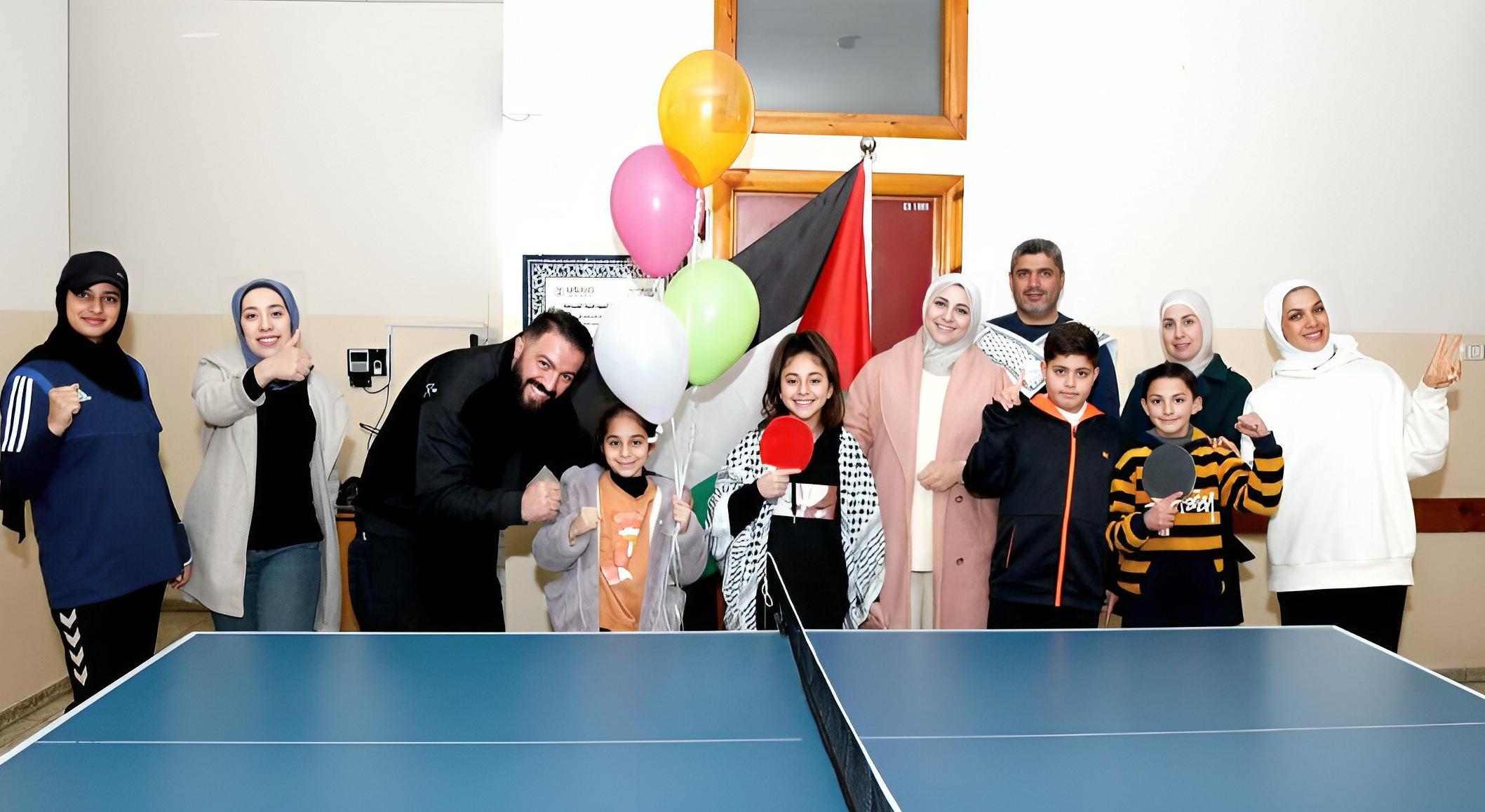
ITTF FOUNDATION DAY
Memorandum of Understanding signed
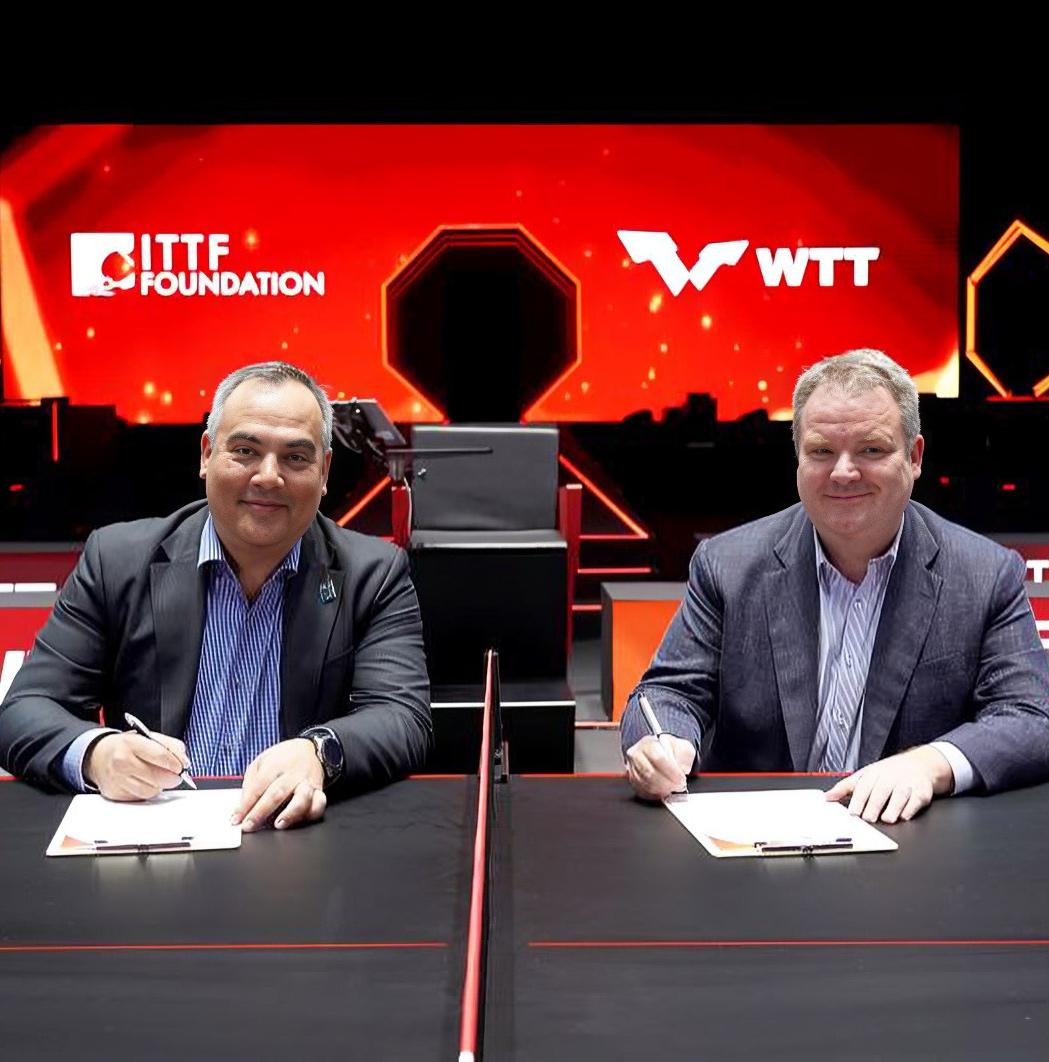
On Thursday 14th March, at the Singapore Smash, the fifth anniversary of the ITTF Foundation was celebrated. Leandro Olvech, ITTF Foundation Director left and right Steve Dainton, ITTF Group Chief Executive signed a Memorandum of Understanding to strengthen relations between the Foundation and World Table Tennis.
A proportion of all ticket sales was pledged to support the Foundation's initiatives; overall 17,388 Singapore dollars (US$ 12.945) was raised; the contributions will contribute to the cost of staging the World Table Tennis for Health Festival later this year.
Smash Park
A chance to play table tennis at the Singapore Smash.
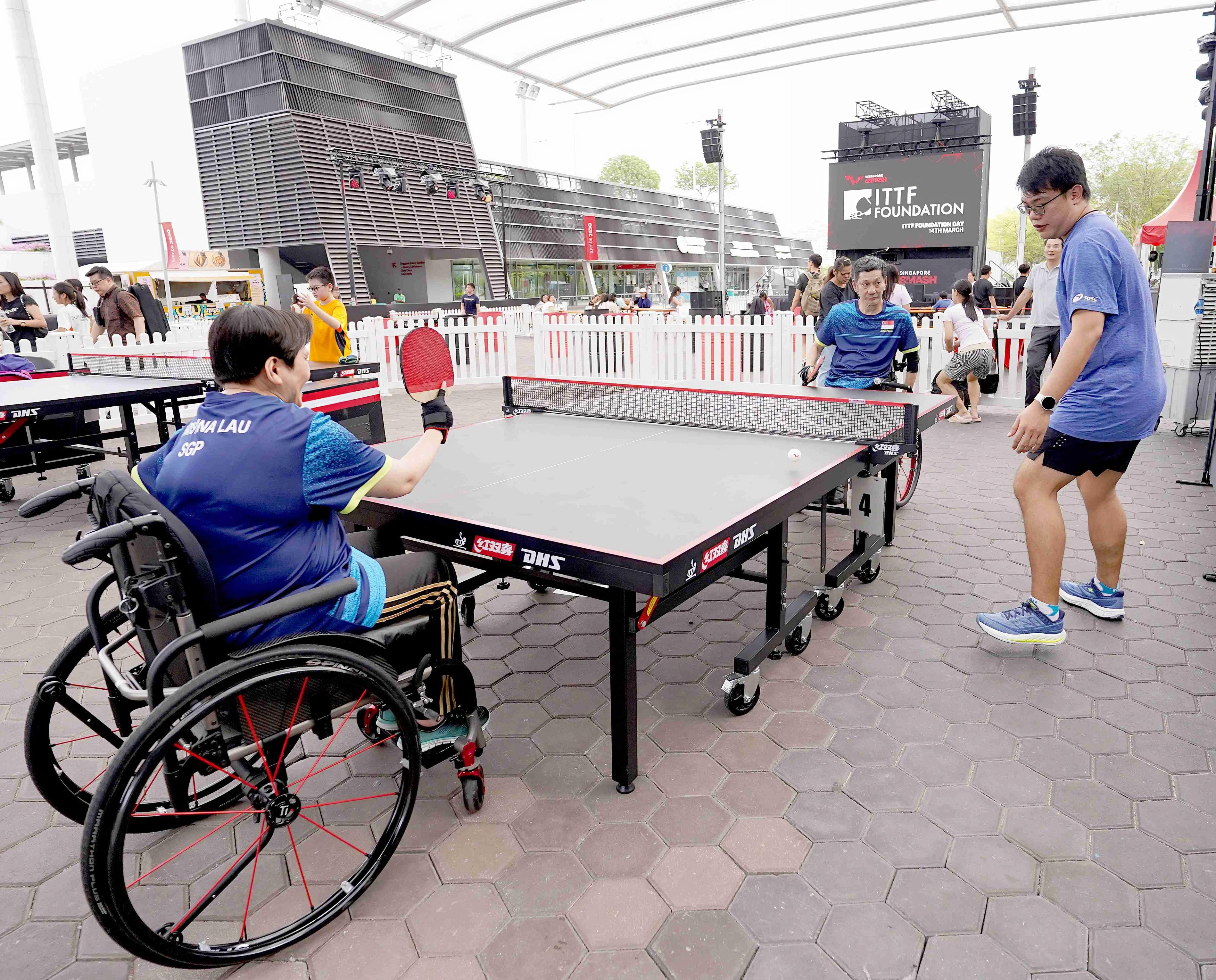
ITTF WORLD TEAM CHAMPIONSHIPS FINALS
Fan Zone
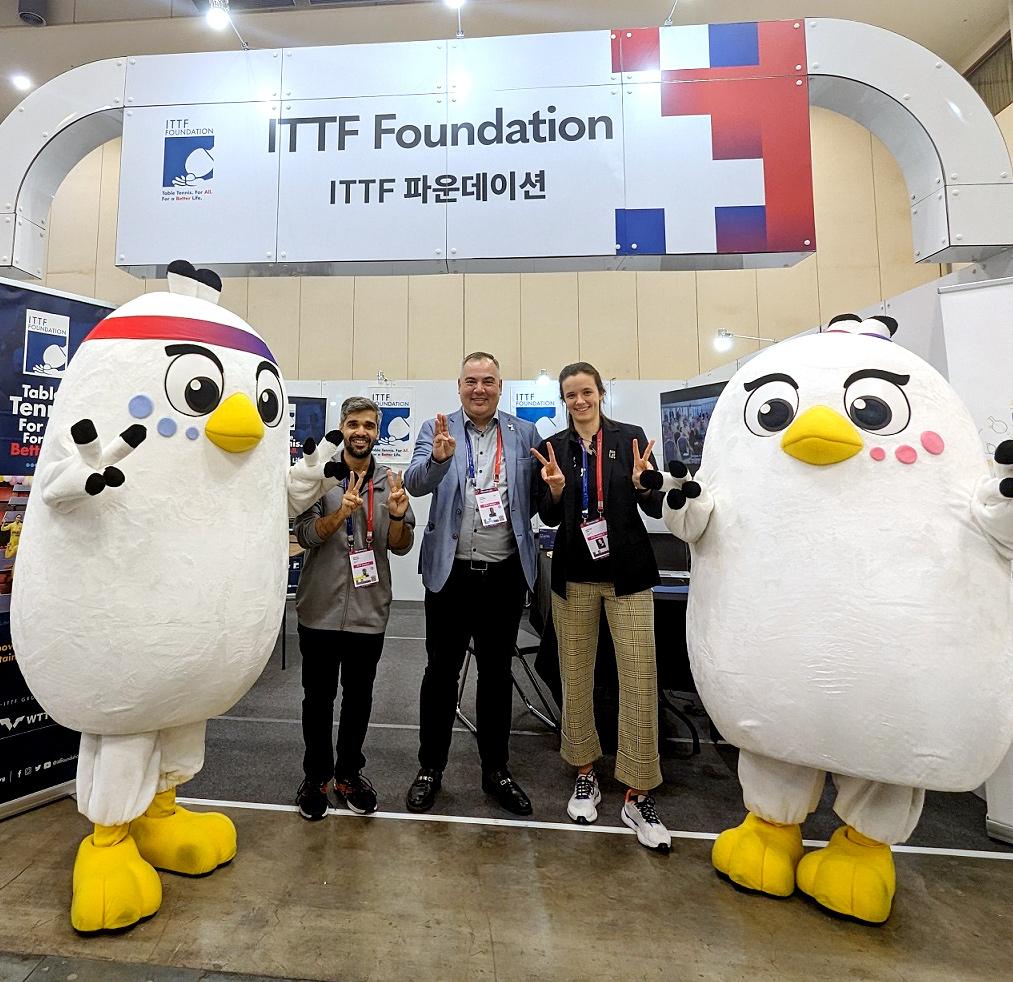
Present in Busan at the ITTF World Team Championships Finals, left Khushal Palicha, Senior Strategy and Marketing Manager, centre Leandro Olvech and right Lina Kühlein, Operations Manager, bid welcome to the Foundation booth in the Fan Zone
A hive of activity, wide ranging presentations were showcased from detailing the mission statement to spreading awareness regarding the various fund raising efforts being made to support humanitarian causes.
>> ITTF Foundation Full Report >> ITTF Foundation Full ReportAutographed Table
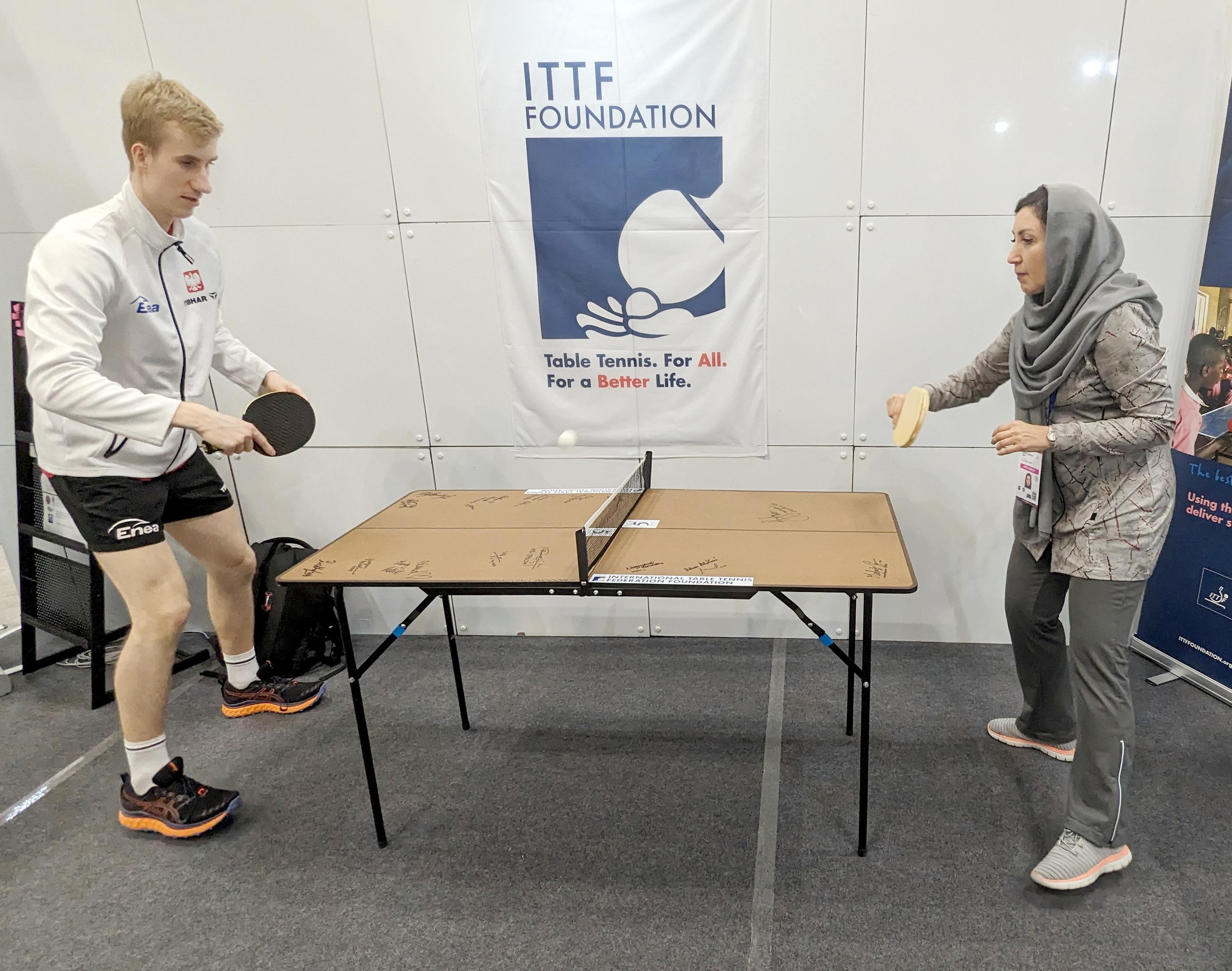
Maciej Kubik left and right Sima Rezaie were amongst the many who showed their skills on the autographed table.
Rackets
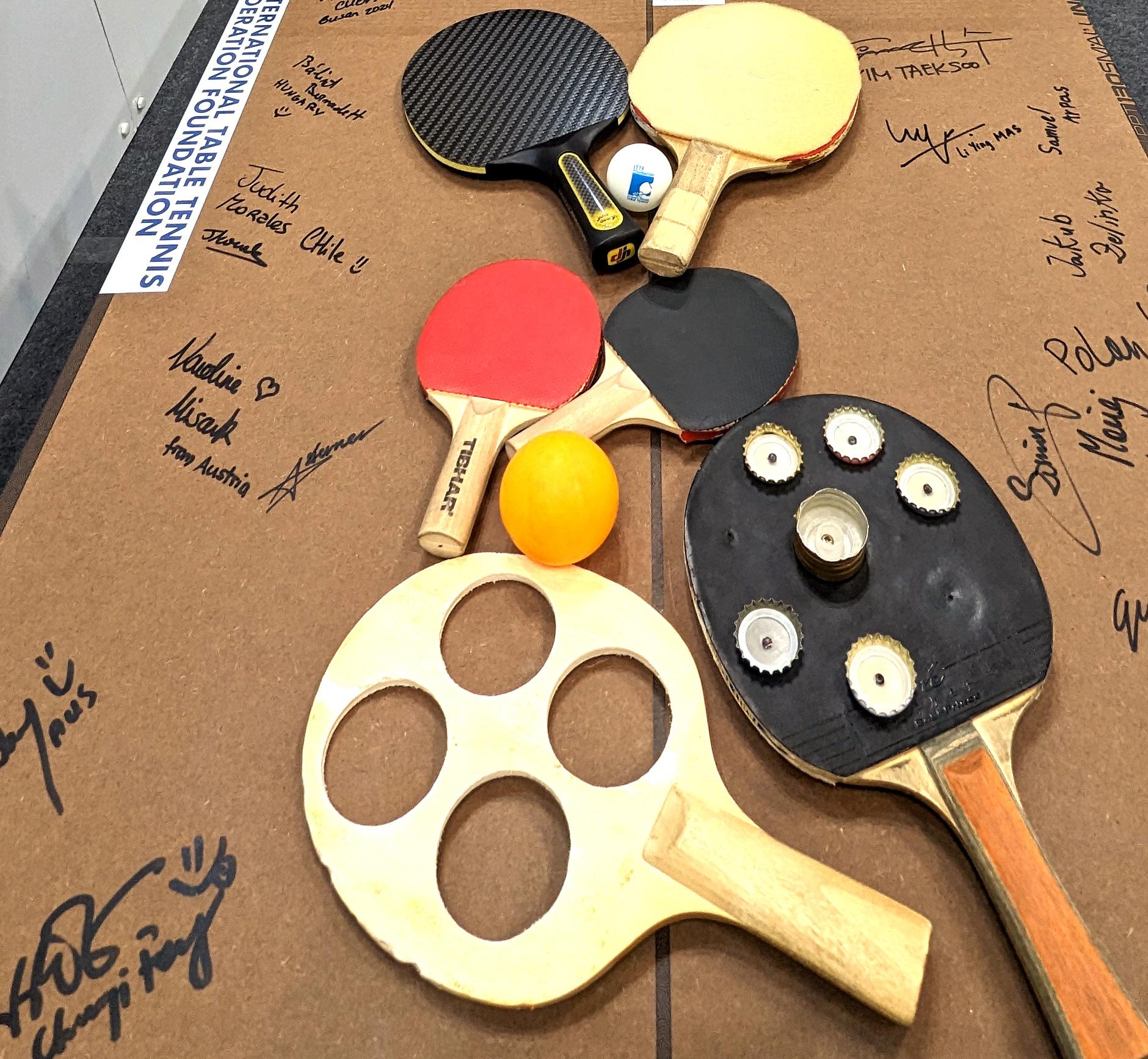
Ramón Ortega Montes, the Foundation’s Health Impact Manager, designed a range of most innovative rackets
Equipment Second Life
An Equipment Second Life donation initiative was activated during the Championships; a platform for players to donate equipment, which will play a vital role in bolstering the Emergency Relief Fund through the ITTF Foundation. Contributors included Austria’s Sofia Polcanova, Sweden’s Jörgen Persson and India’s Sharath Kamal Achanta. Proceedings were organised by Kim Donhyun, a member of the Local Organising Committee.
Ultimate Table Tennis
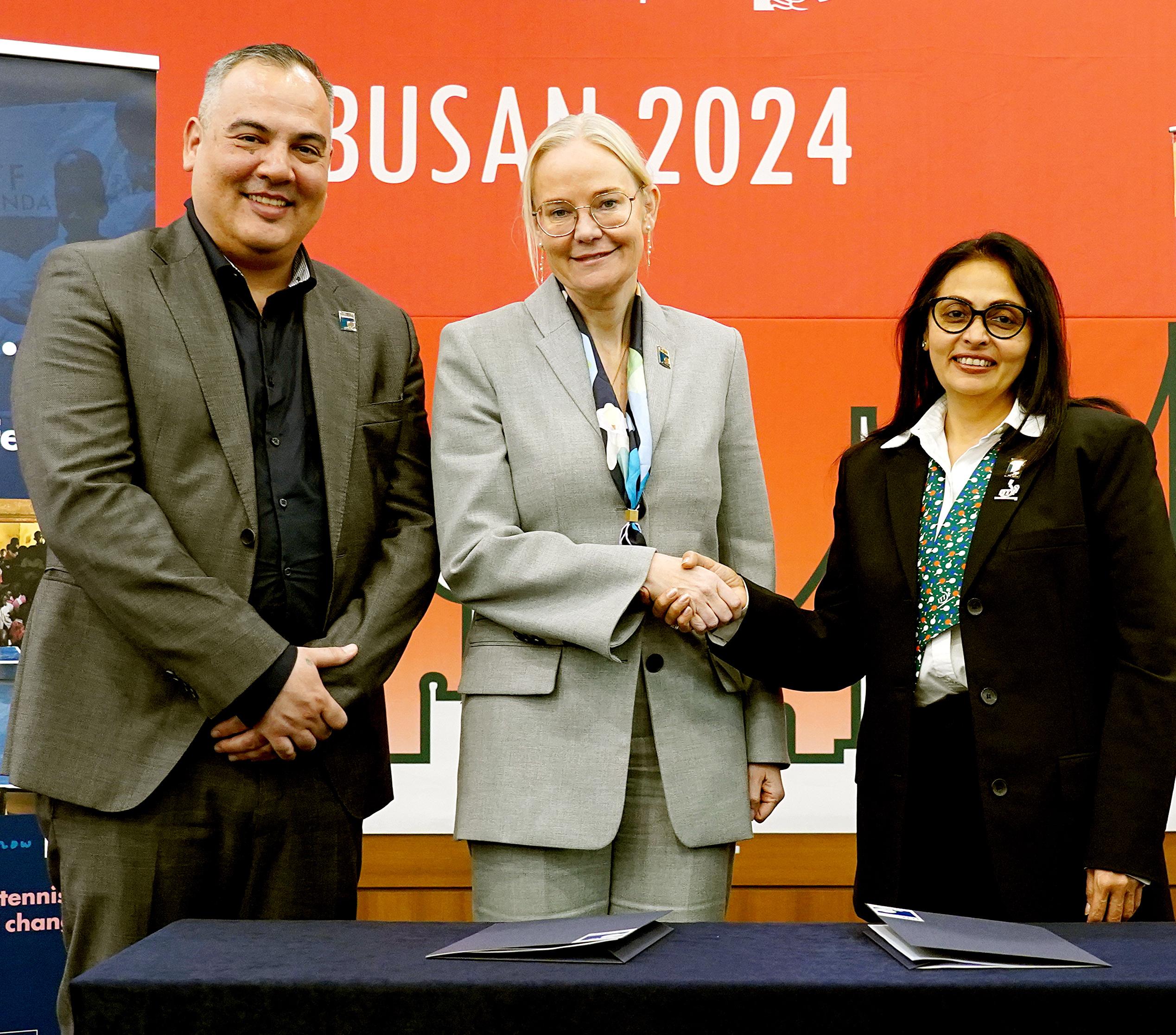
On behalf of the Foundation, Leandro Olvech left and right Petra Sörling, ITTF President, signed an agreement with Ultimate Table Tennis (UTT), represented by right Vita Dani, recently elected a member of the Foundation’s Governing Board.
Supporters of the World Table Tennis For Health Festival, founded in 2017, UTT is an Indian professional table tennis league.
ITTF SUMMIT Five Years of Growth
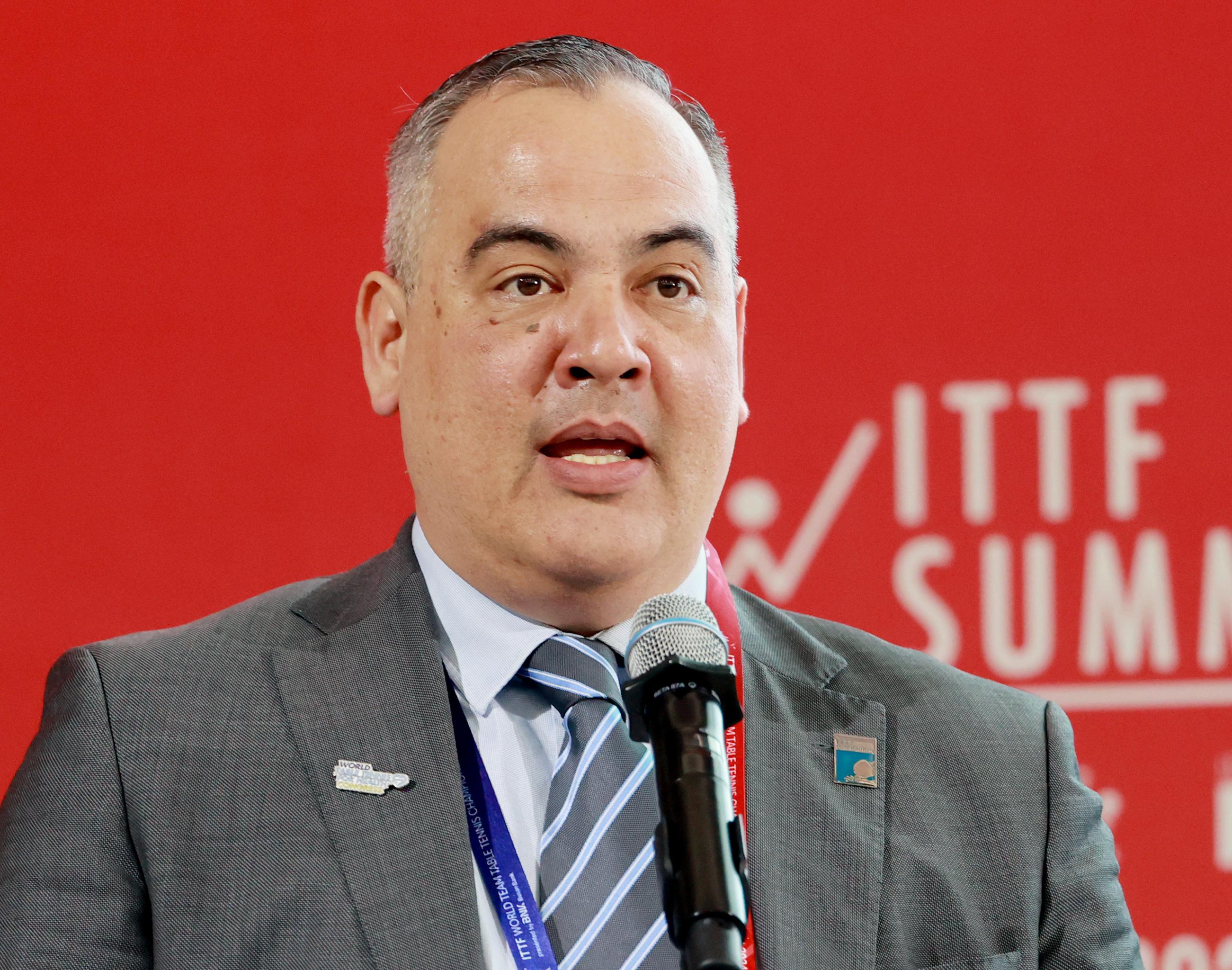
Leandro Olvech addressed delegates present at the ITTF Annual General Meeting; he reflected on the highlights of the past five years, in particular underlining the value of the World Table Tennis For Health Festival 2023.
>> ITTF Foundation Full Report
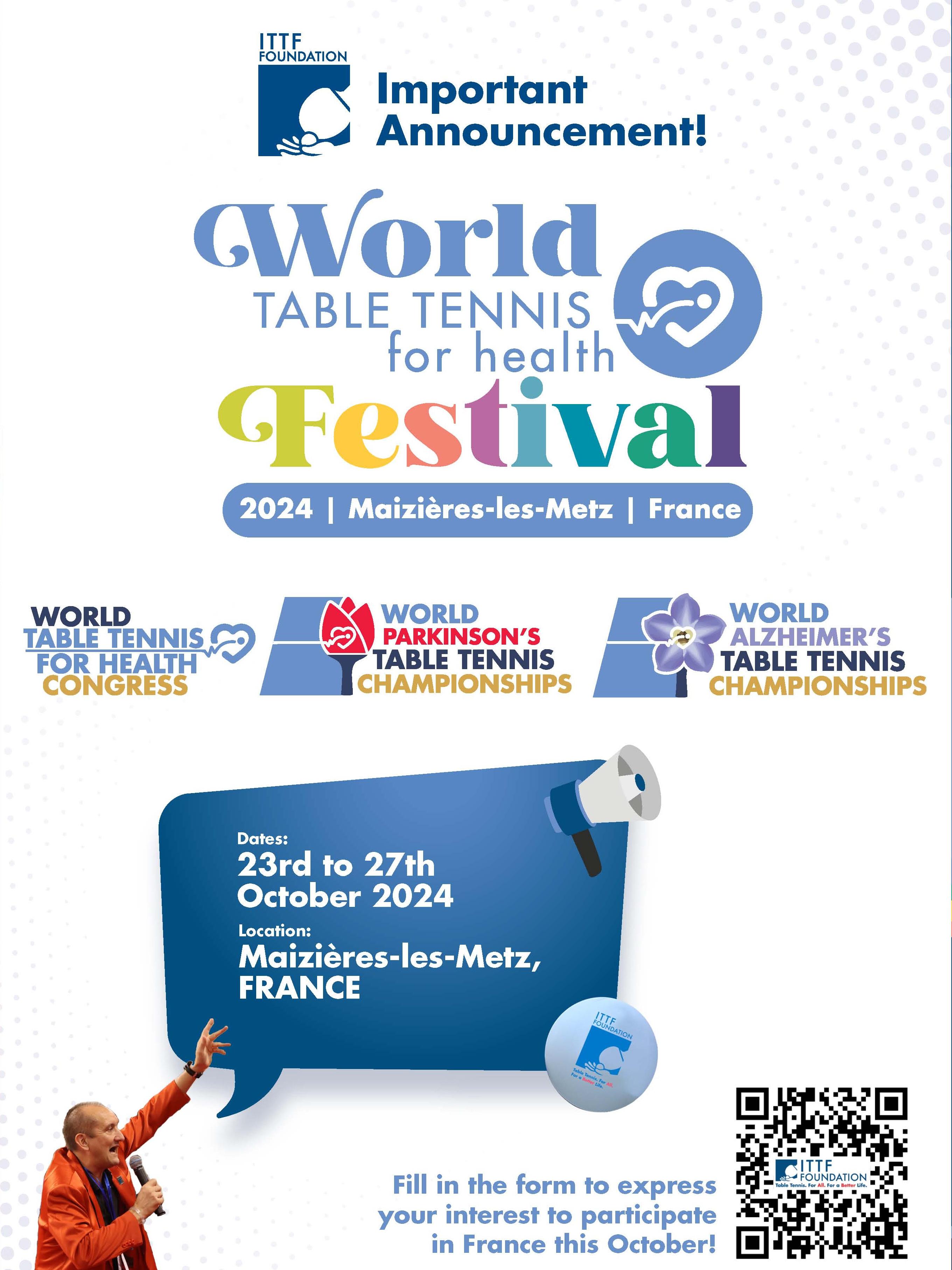
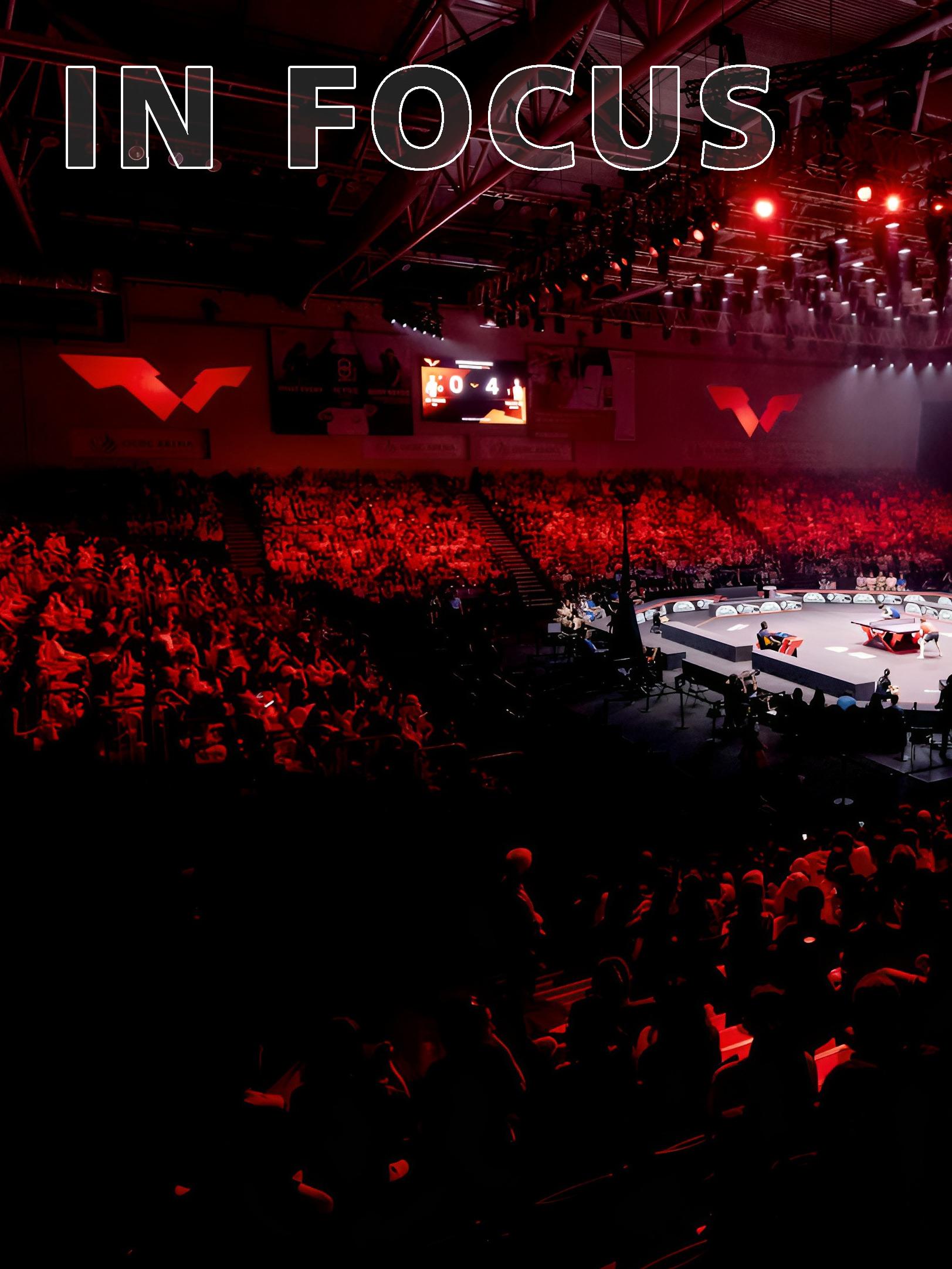

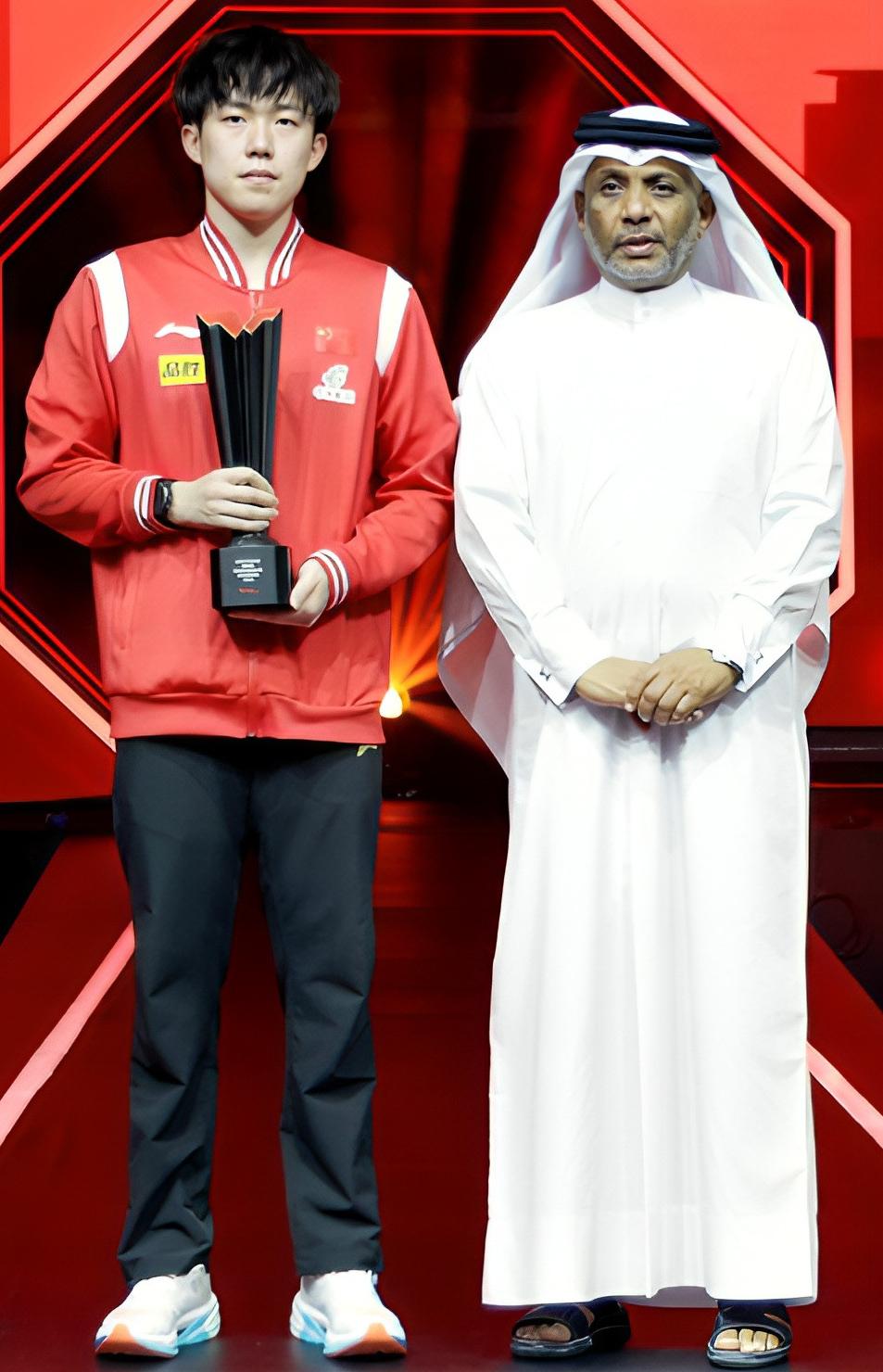



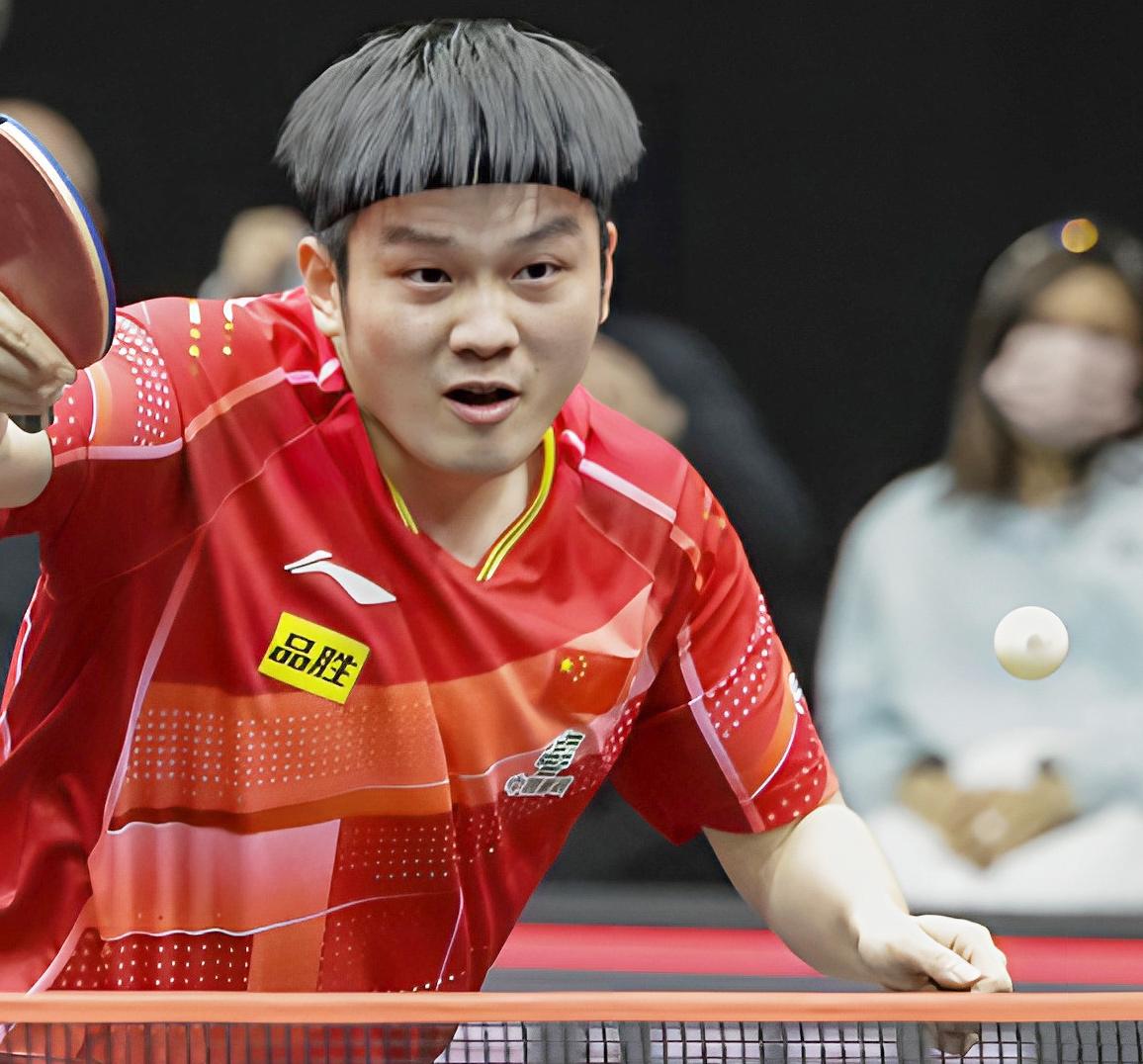
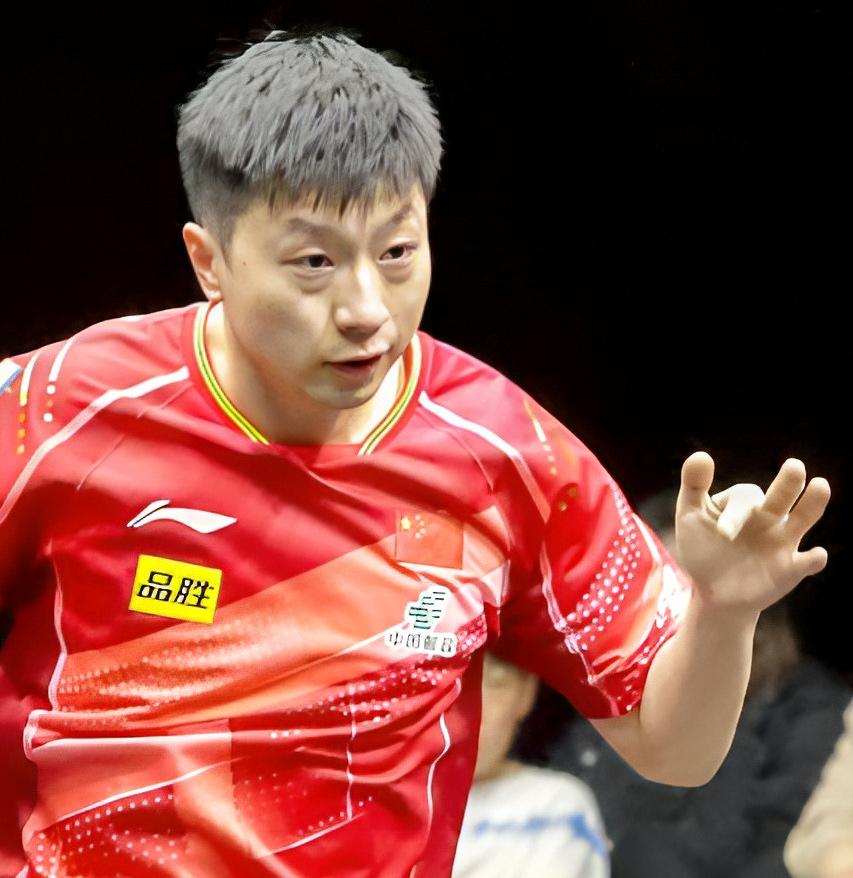
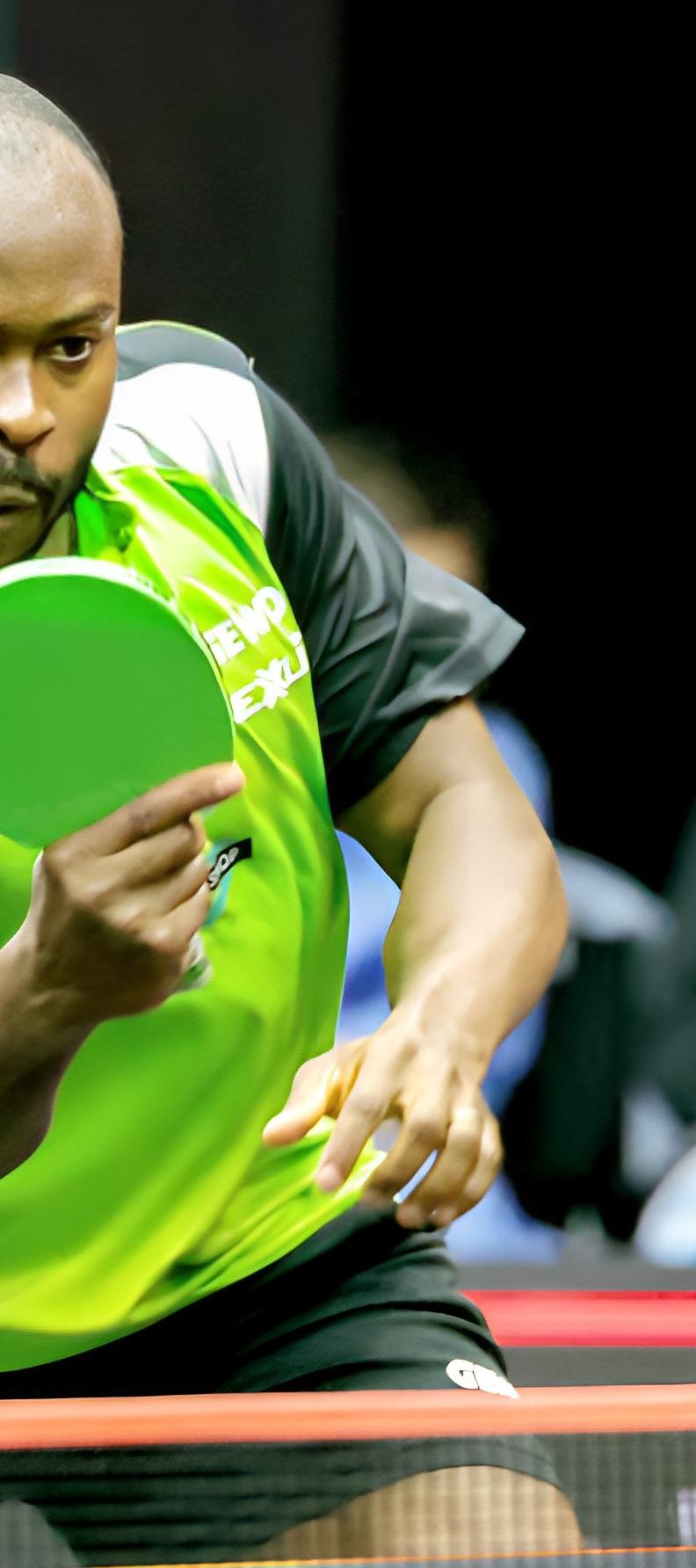
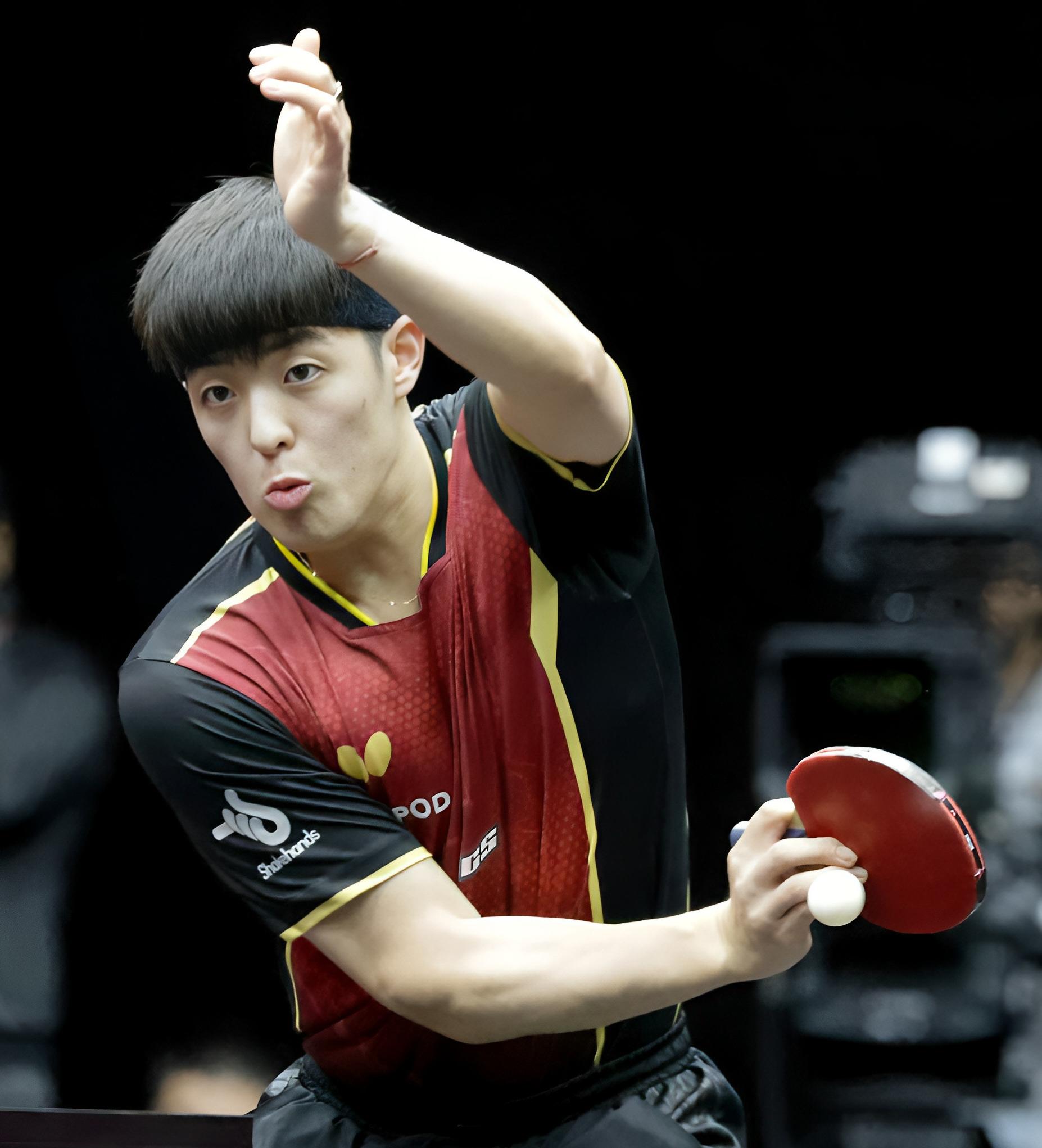
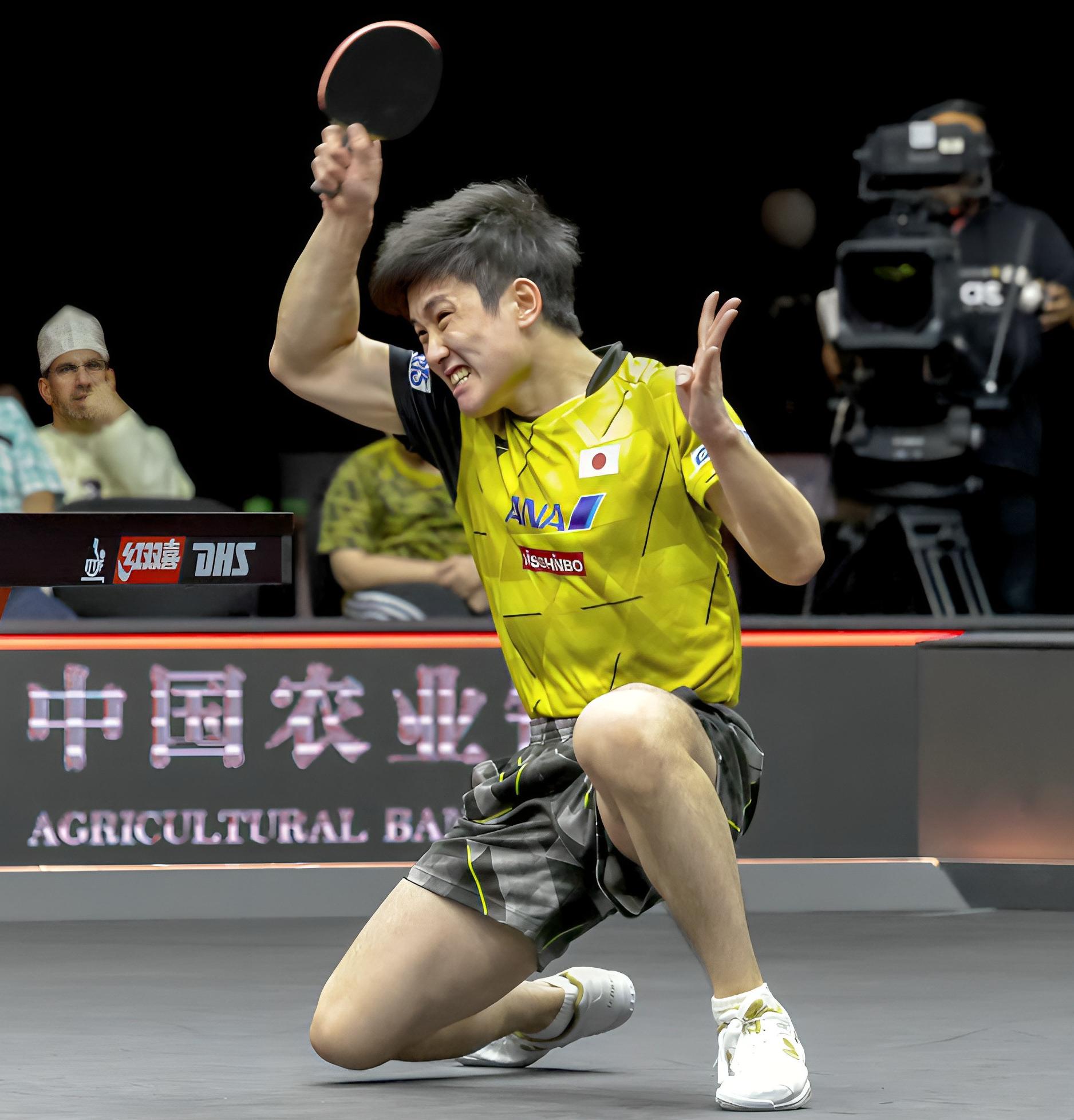
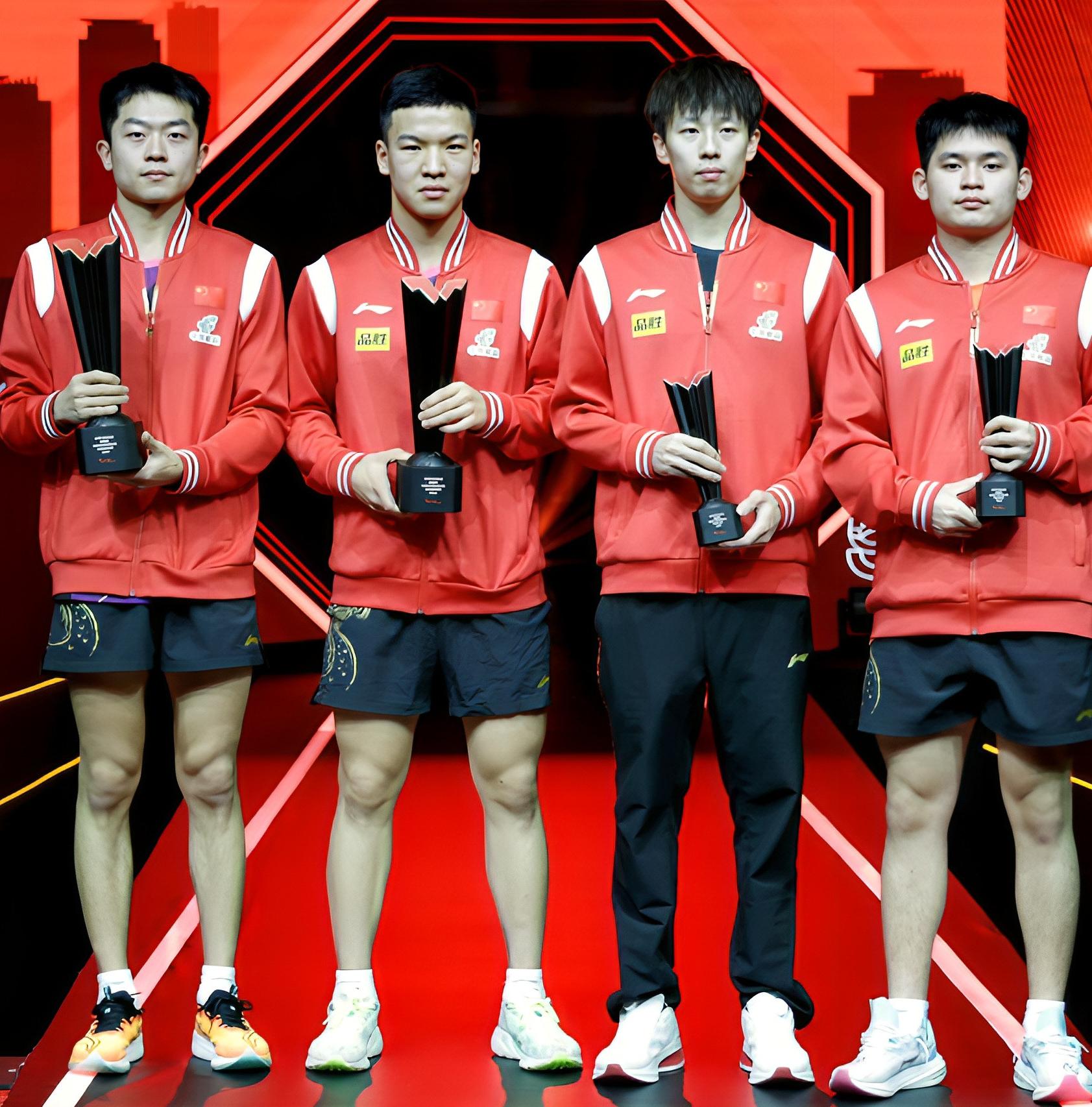
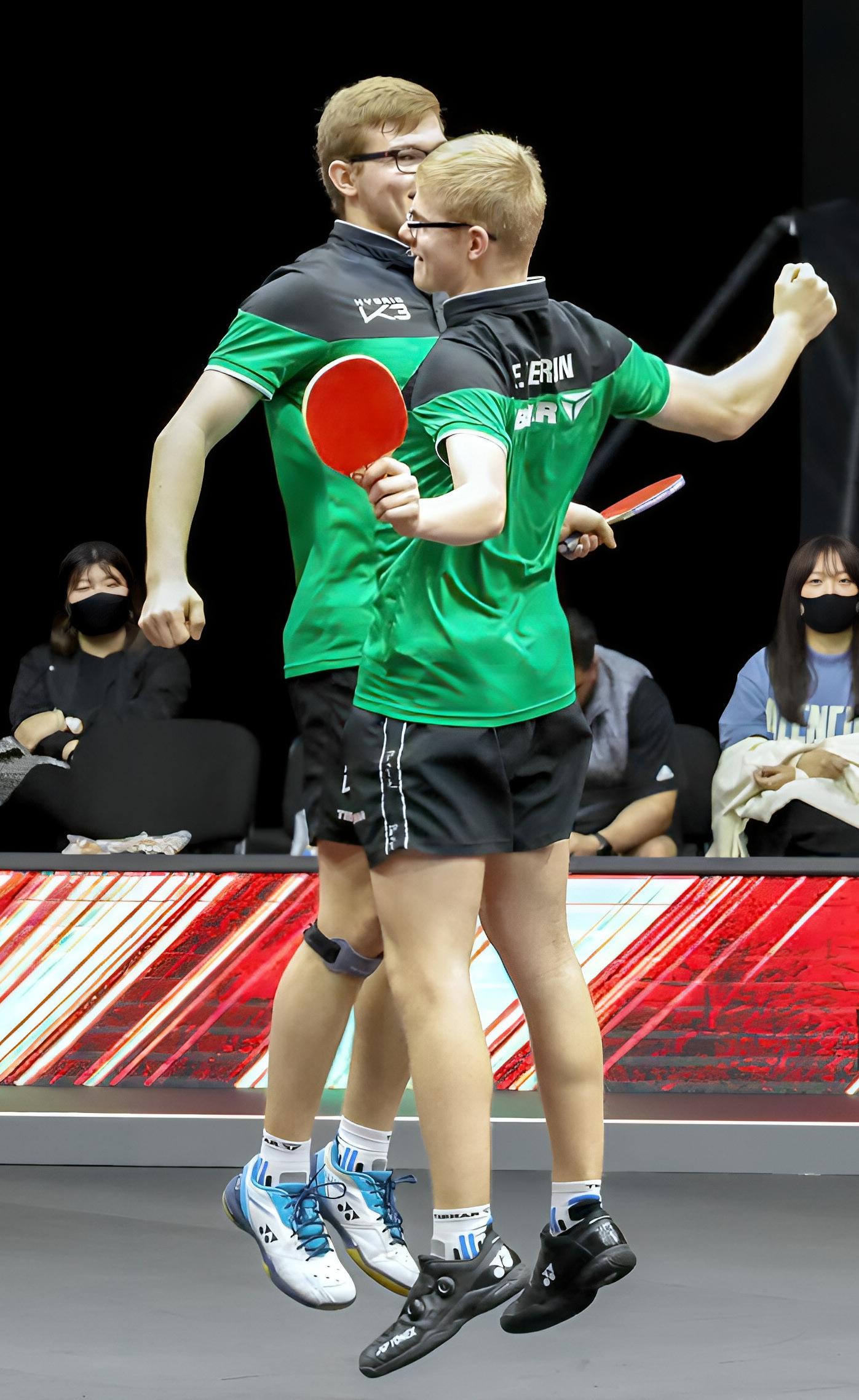
MEN’S SINGLES
FAR LEFT
Wang Chuqin emerged the winner; he received the trophy from Khalil Al Mohannadi, ITTF Executive Vice President.
TOP LEFT
Fan Zhendong, the runner up.
TOP RIGHT
Dan Qiu beaten by Wang Chuqin at the semi-final stage.
CENTRE LEFT
A quarter-final exit for Ma Long, Lin Gaoyuan proved his nemesis.
CENTRE RIGHT
Tomokazu Harimoto reached the last eight; Wang Chuqin ended progress.
LOWER LEFT
Quadri Aruna flew the flag for Africa, he reached the quarterfinals, losing to Fan Zhendong.
MEN’S DOUBLES
LOWER CENTRE
The medallists, left to right the winners Xiang Peng and Yuan Licen, the runners up Lin Gaoyuan and Lin Shidong.
LOWER RIGHT
Flying through the air in celebration, bronze medallists, Alexis left and right Felix Lebrun.
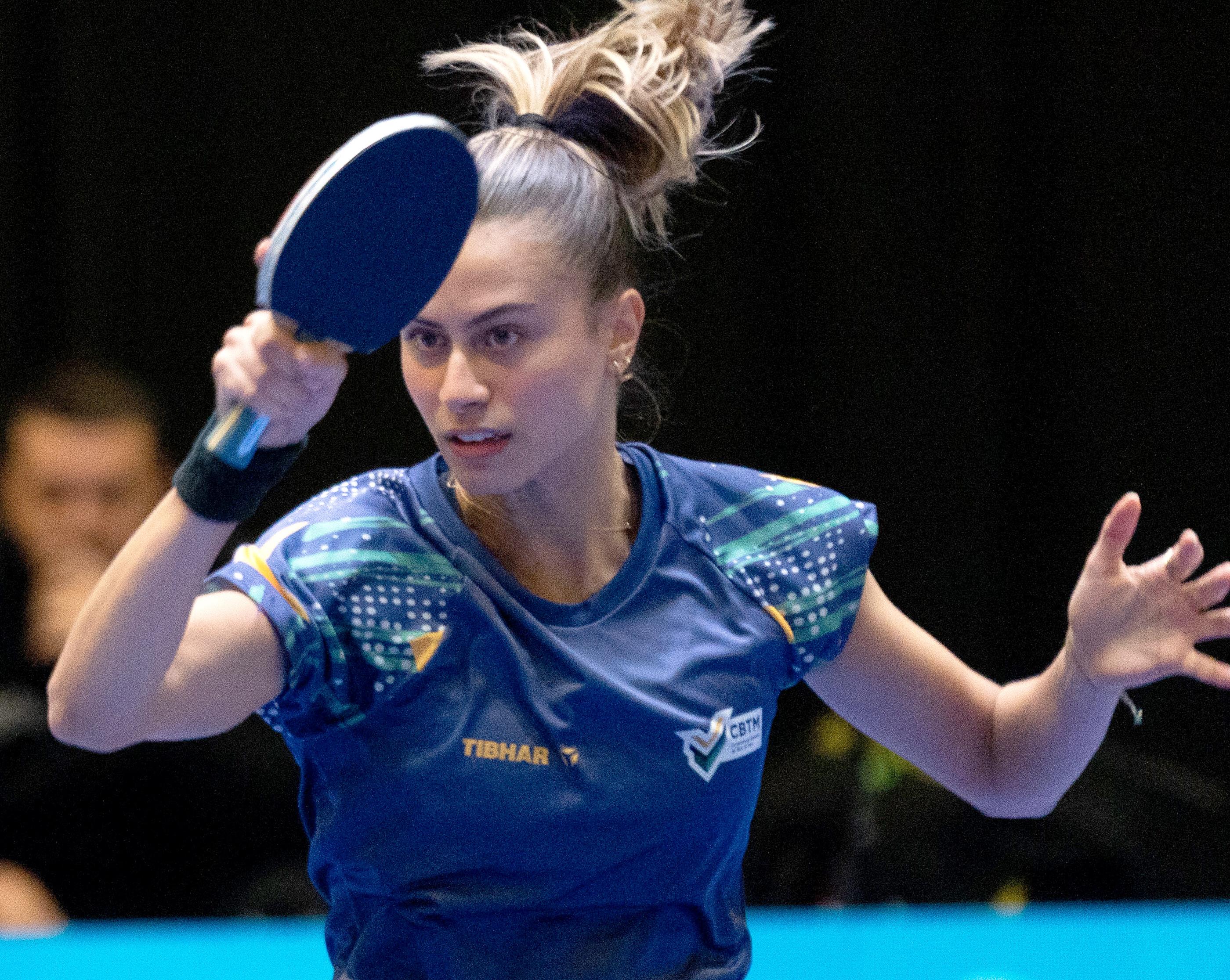
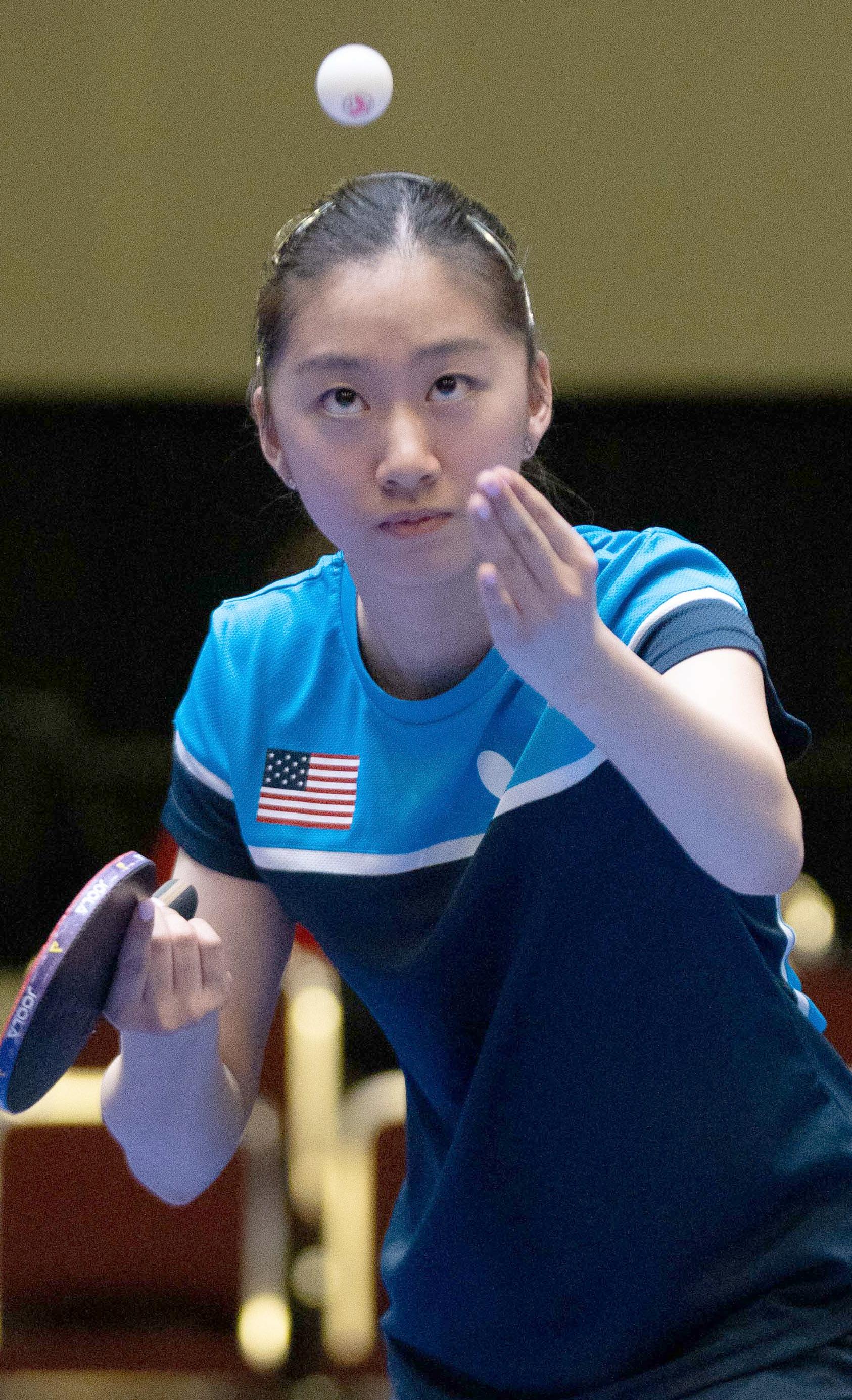
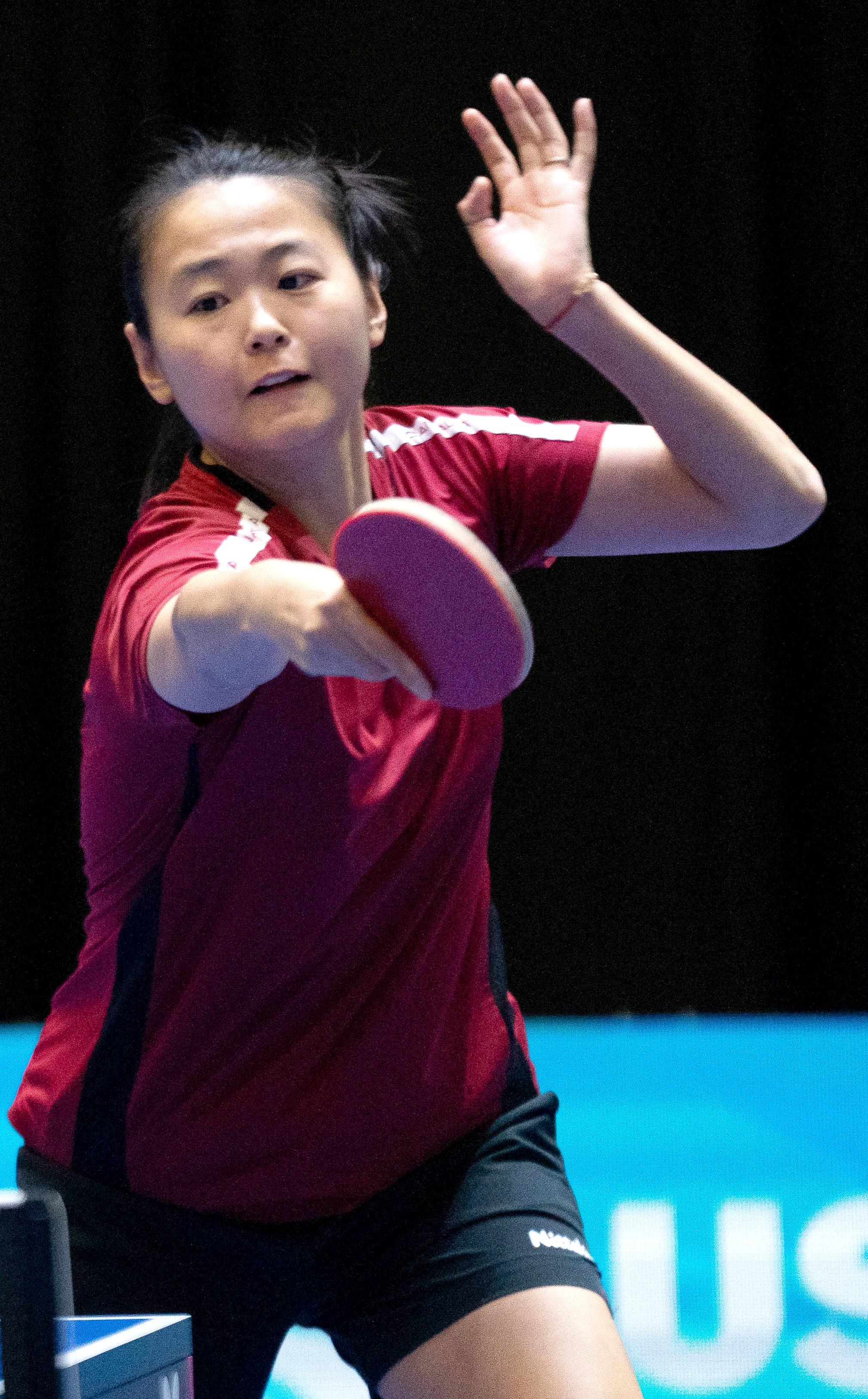
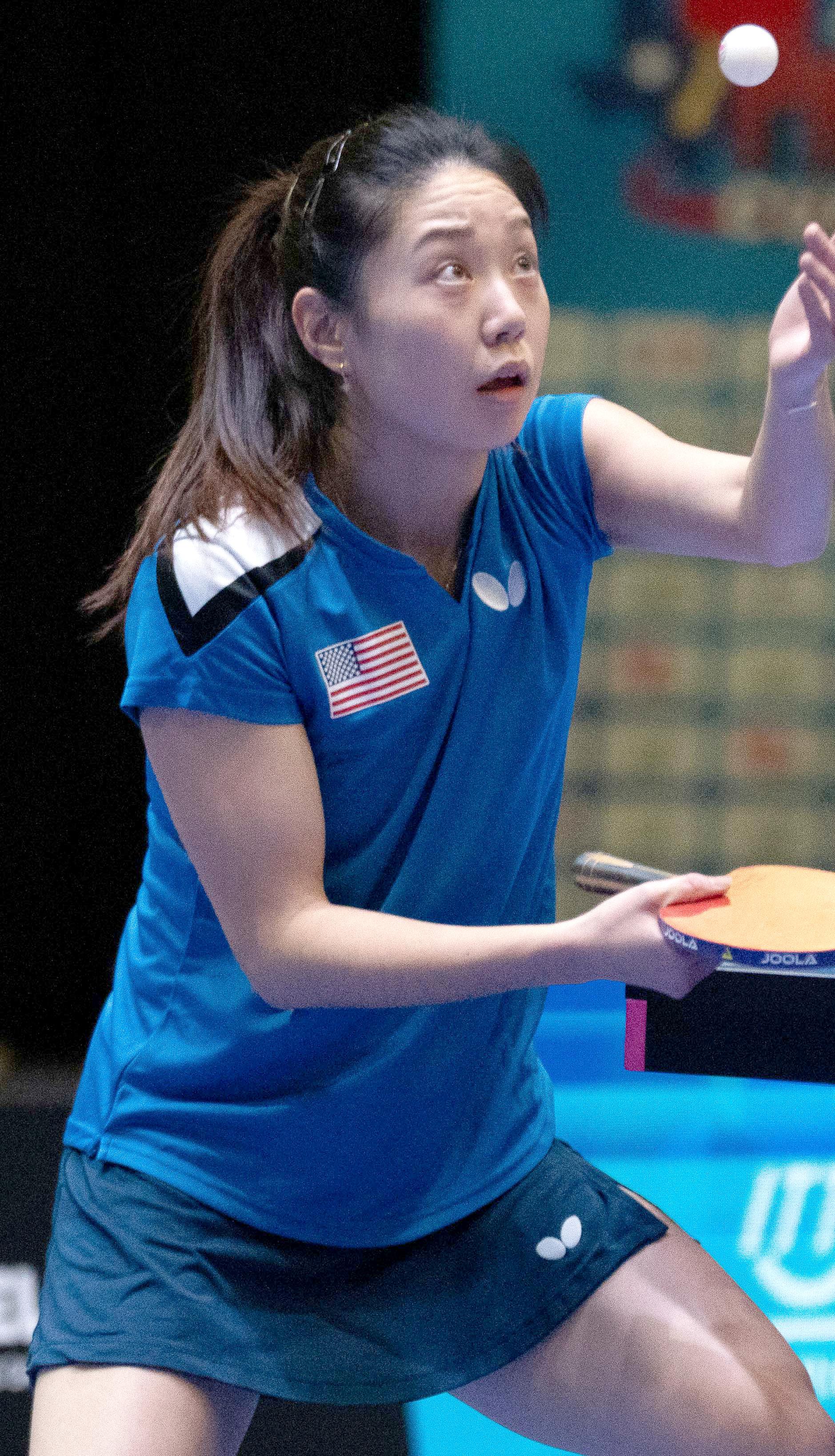
LEFT
LOWER LEFT TO RIGHT
>> Articles and Results
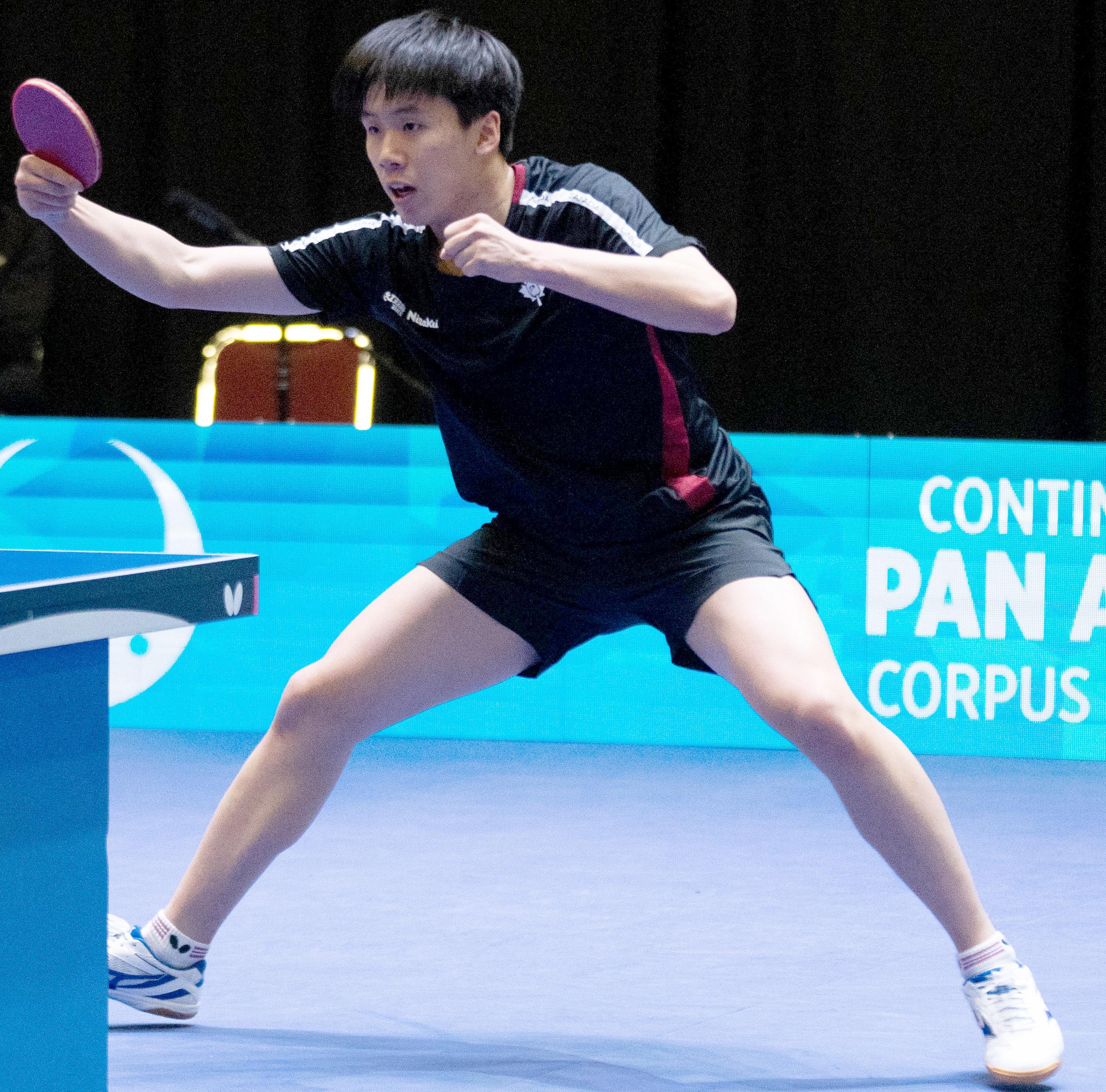
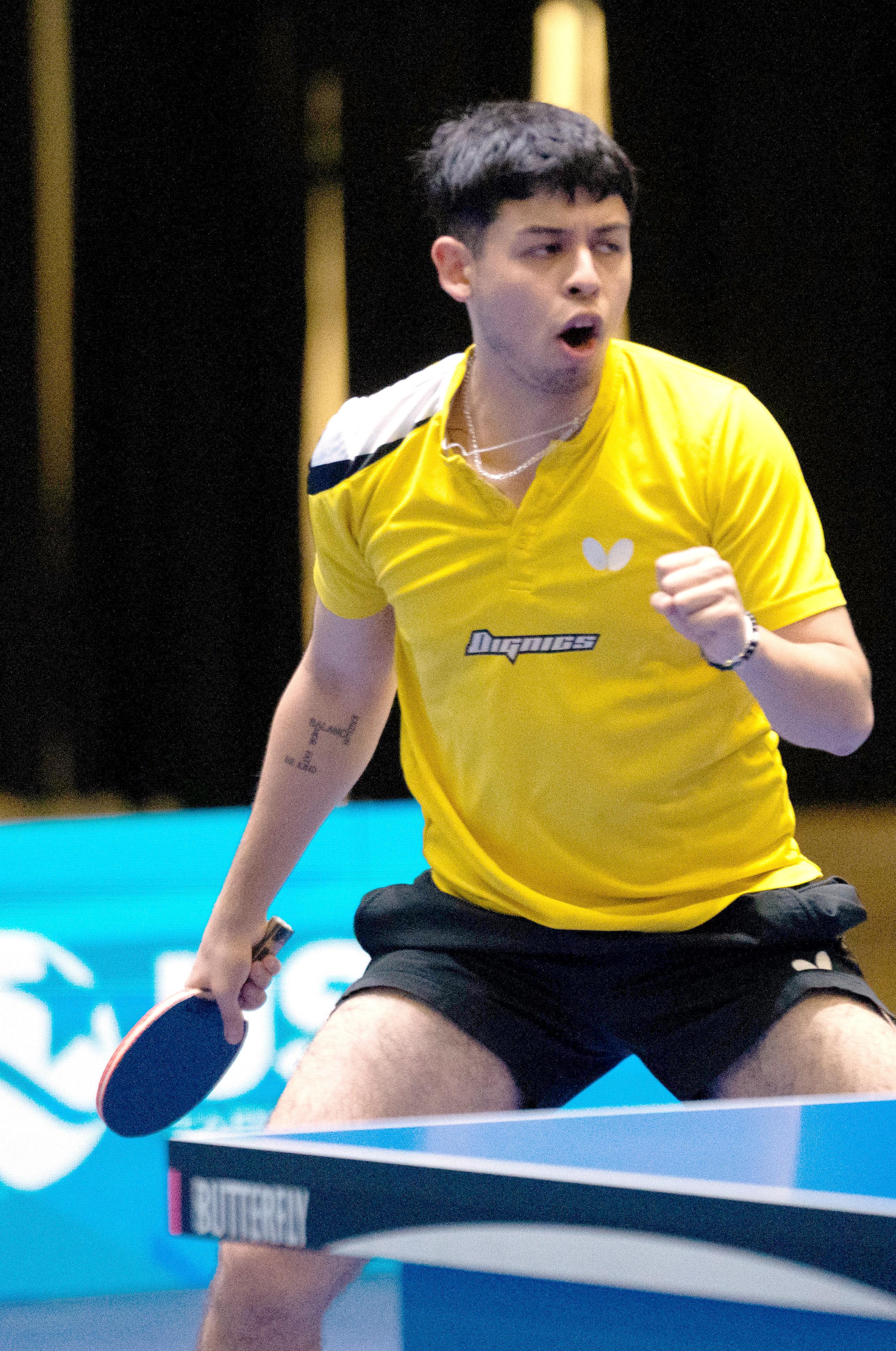
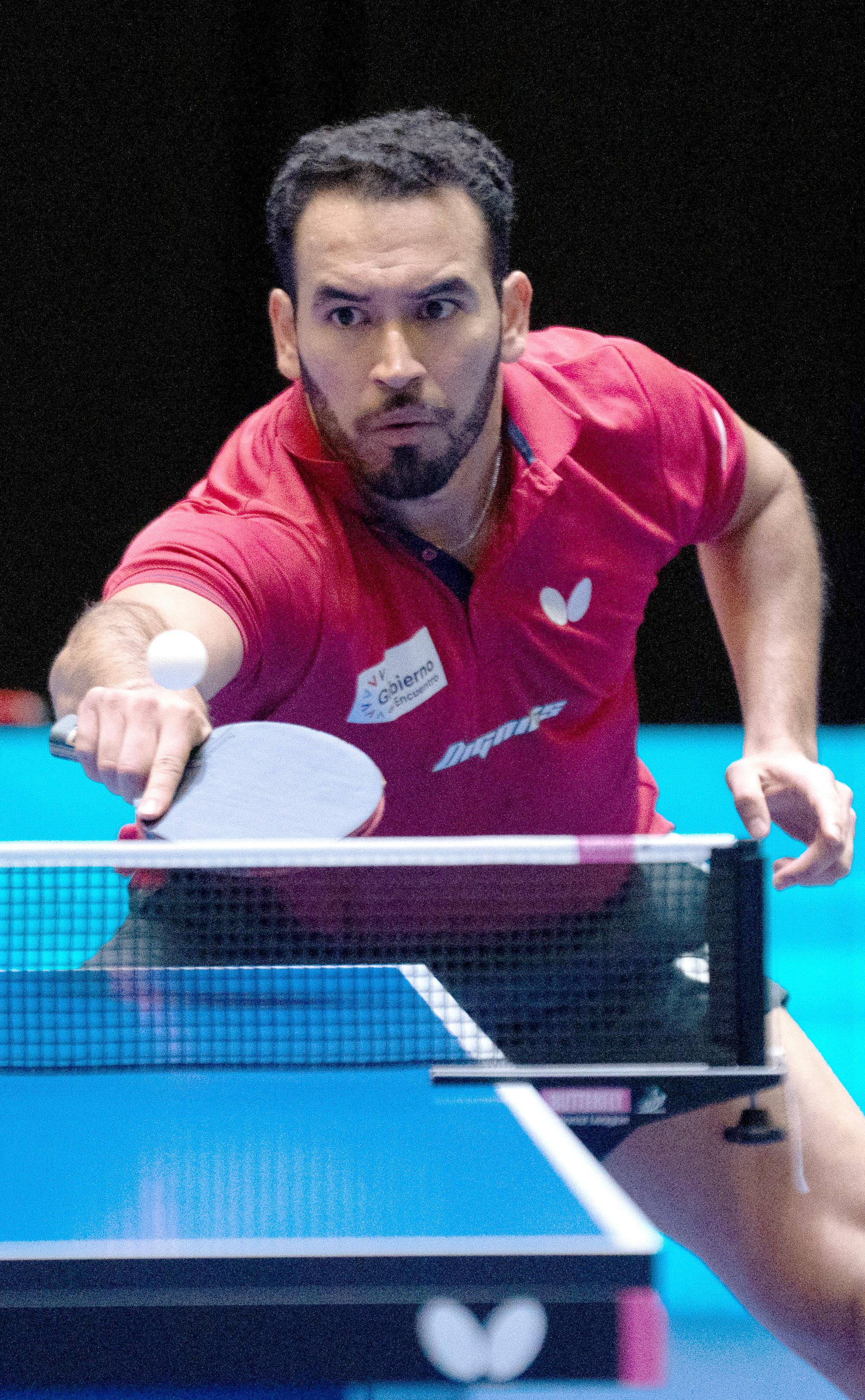
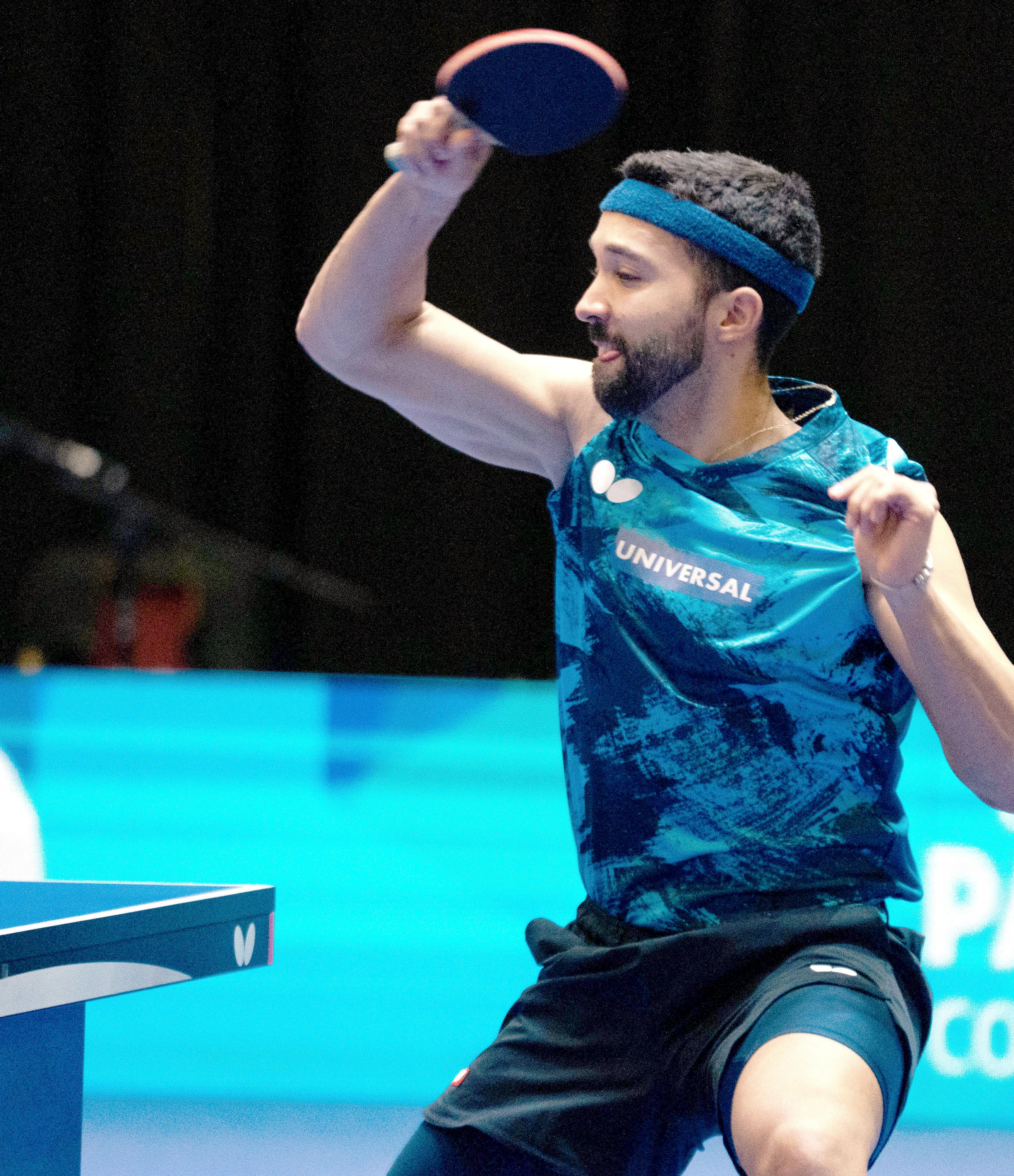 Bruna Takahashi, the women’s winner.
RIGHT
Edward Ly, the men’s champion.
Amy Wang the women’s runner up.
Zhang Mo secured third place.
Lily Zhang finished in fourth place.
Nicolas Burgos, a silver medal.
Alberto Miño claimed third position.
Bruna Takahashi, the women’s winner.
RIGHT
Edward Ly, the men’s champion.
Amy Wang the women’s runner up.
Zhang Mo secured third place.
Lily Zhang finished in fourth place.
Nicolas Burgos, a silver medal.
Alberto Miño claimed third position.
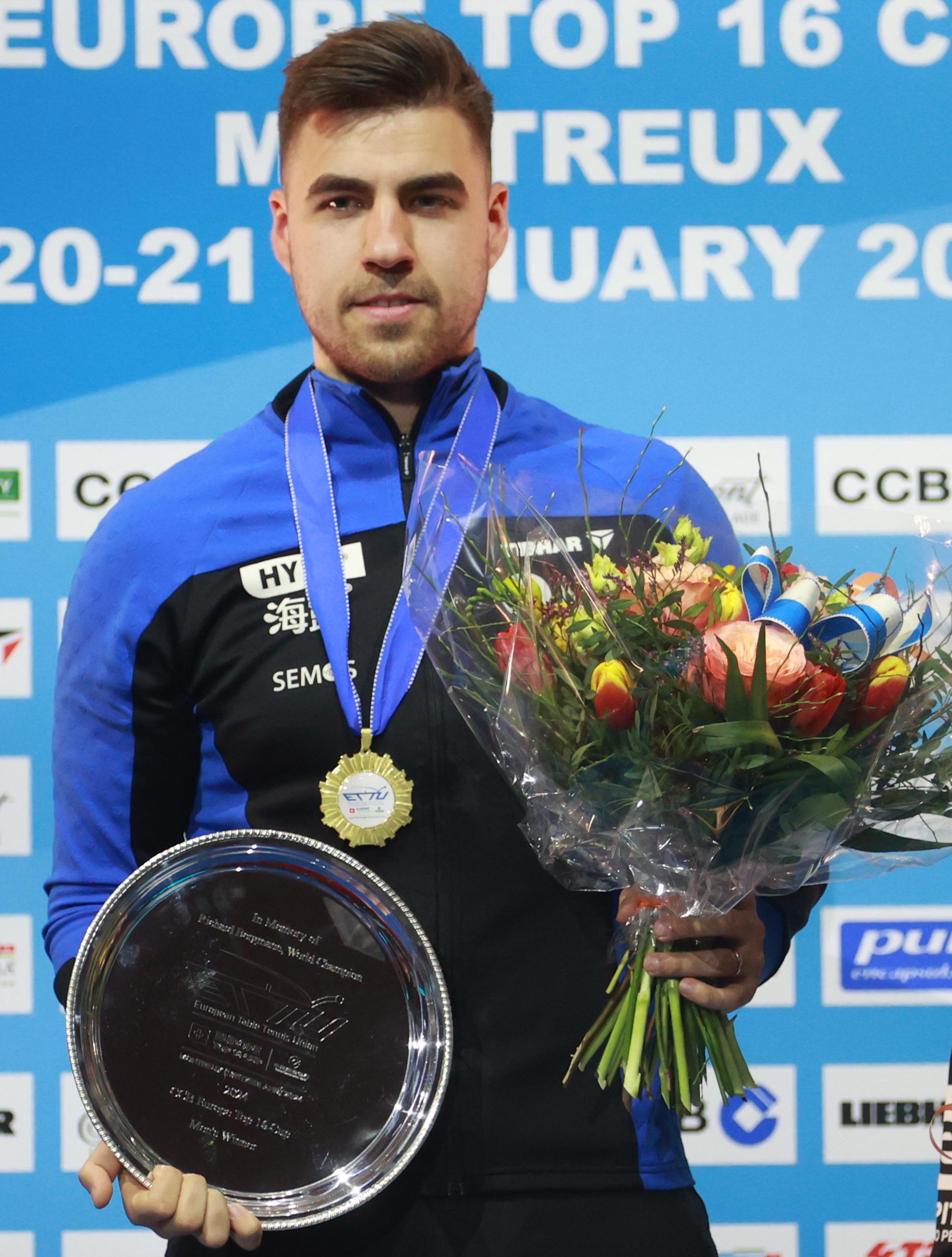
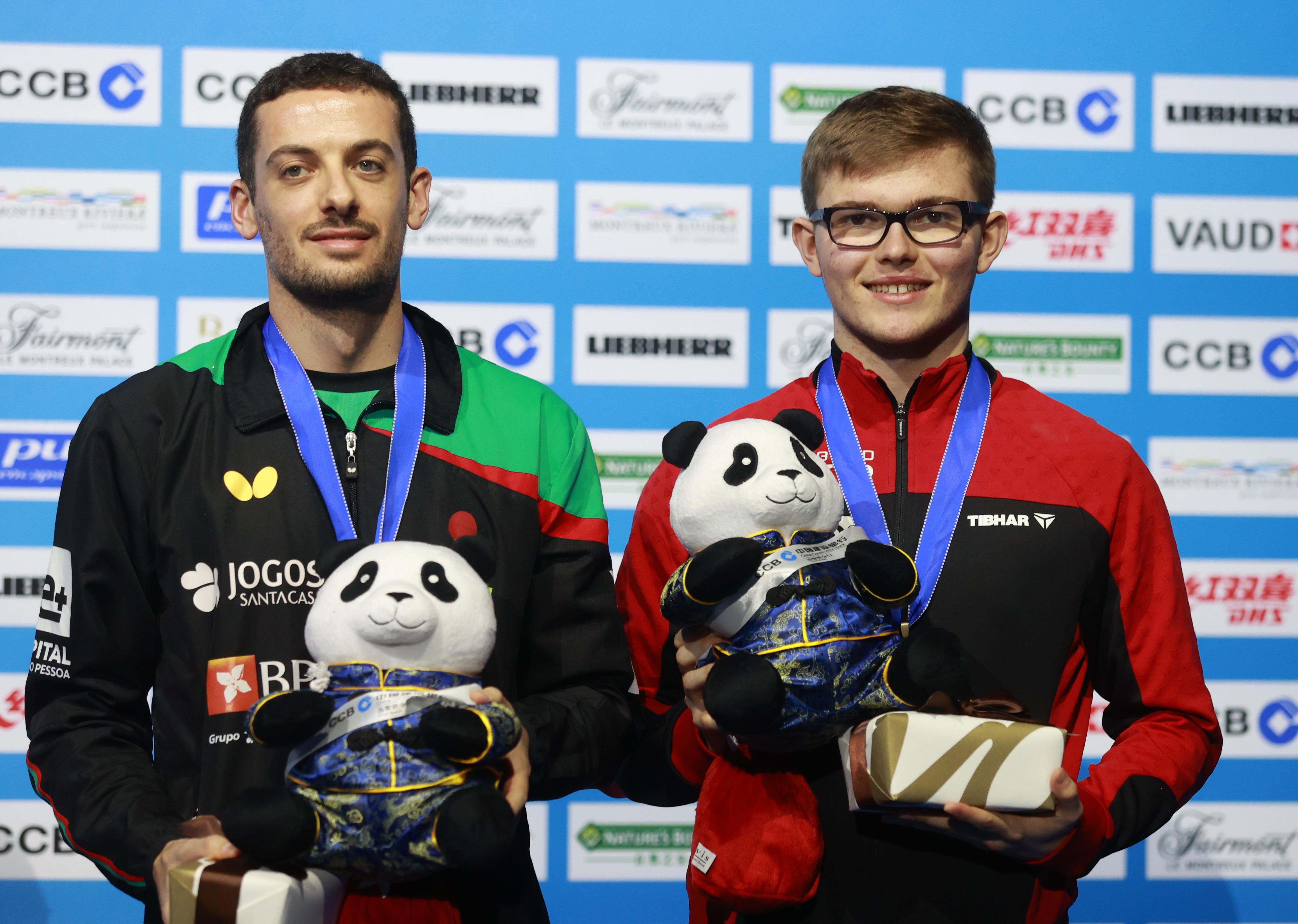
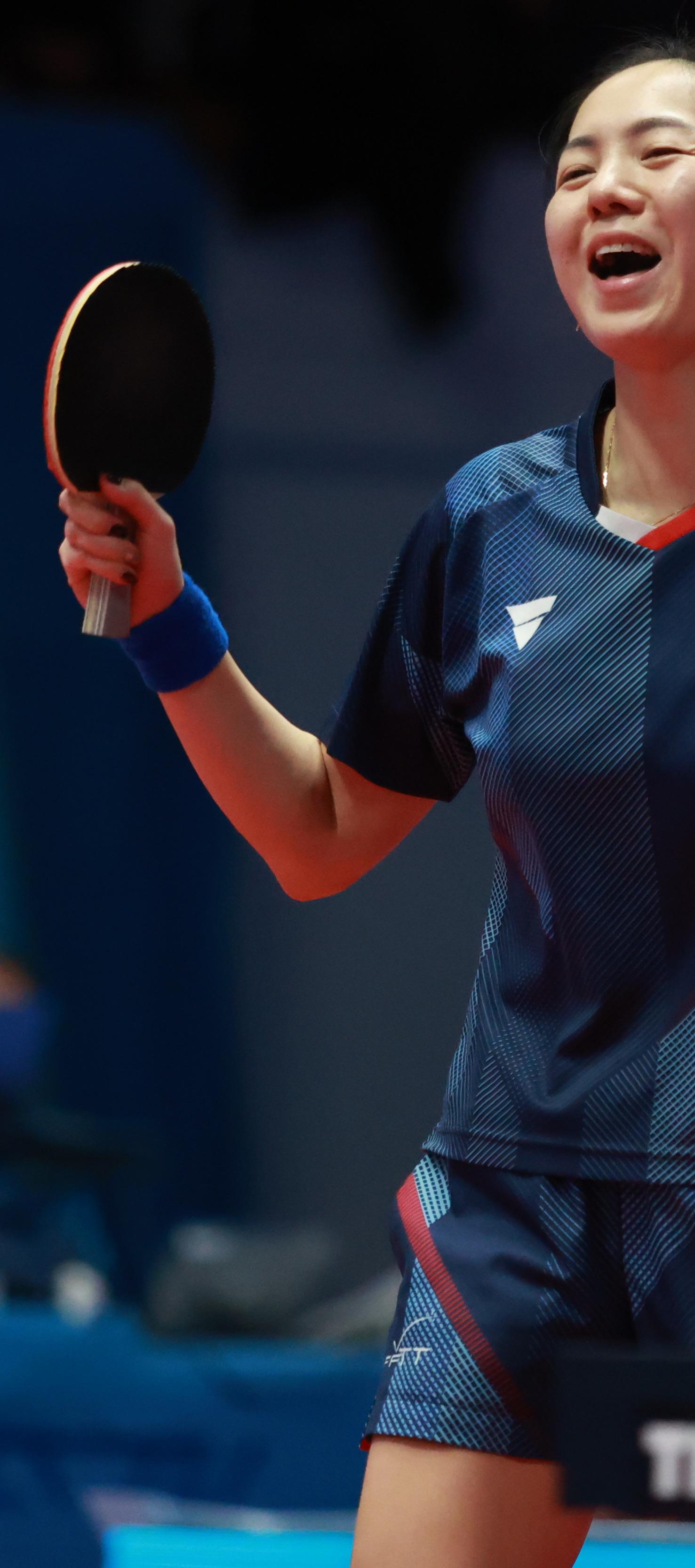
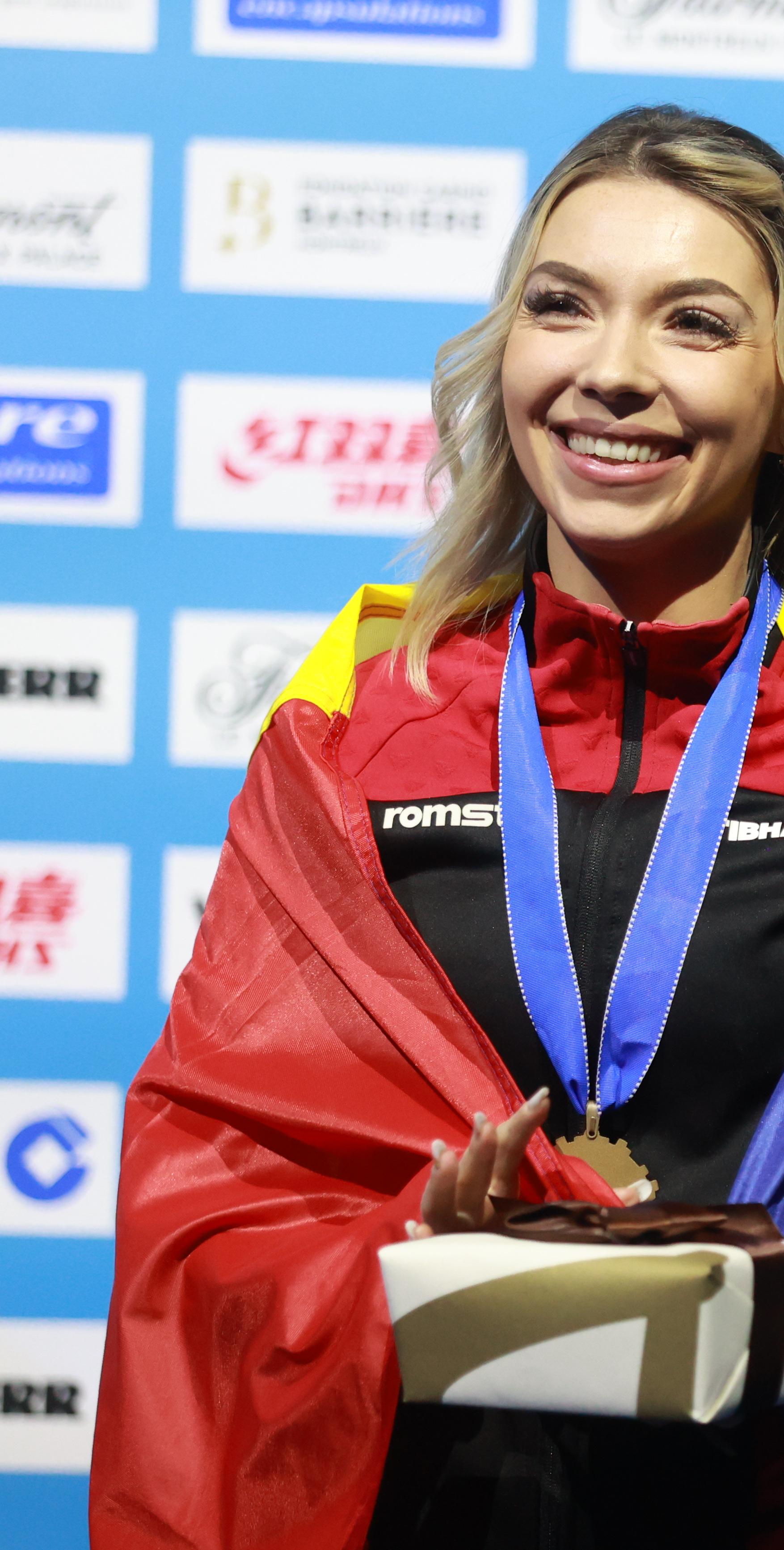
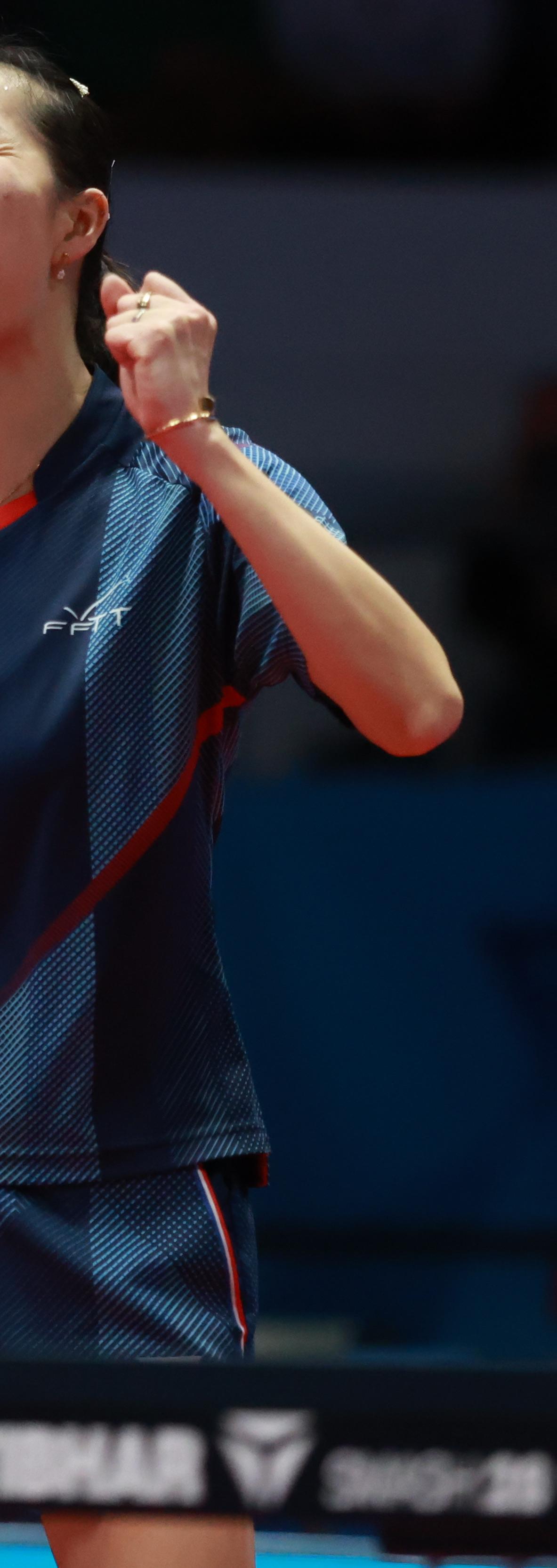
TOP LEFT
Darko Jorgic won the men’s title for the third consecutive time.
TOP CENTRE
Yuan Jia Nan became the first French player to win the women’s event.
TOP RIGHT
Silver for Truls Moregard
LOWER LEFT
Bronze medallists, Marcos Freitas left and right Alexis Lebrun.
LOWER CENTRE
Bernadette Szocs left and right Nina Mittelham, semi-finalists.
LOWER RIGHT
Runners up spot for Sofia Polcanova
>> Articles and Results
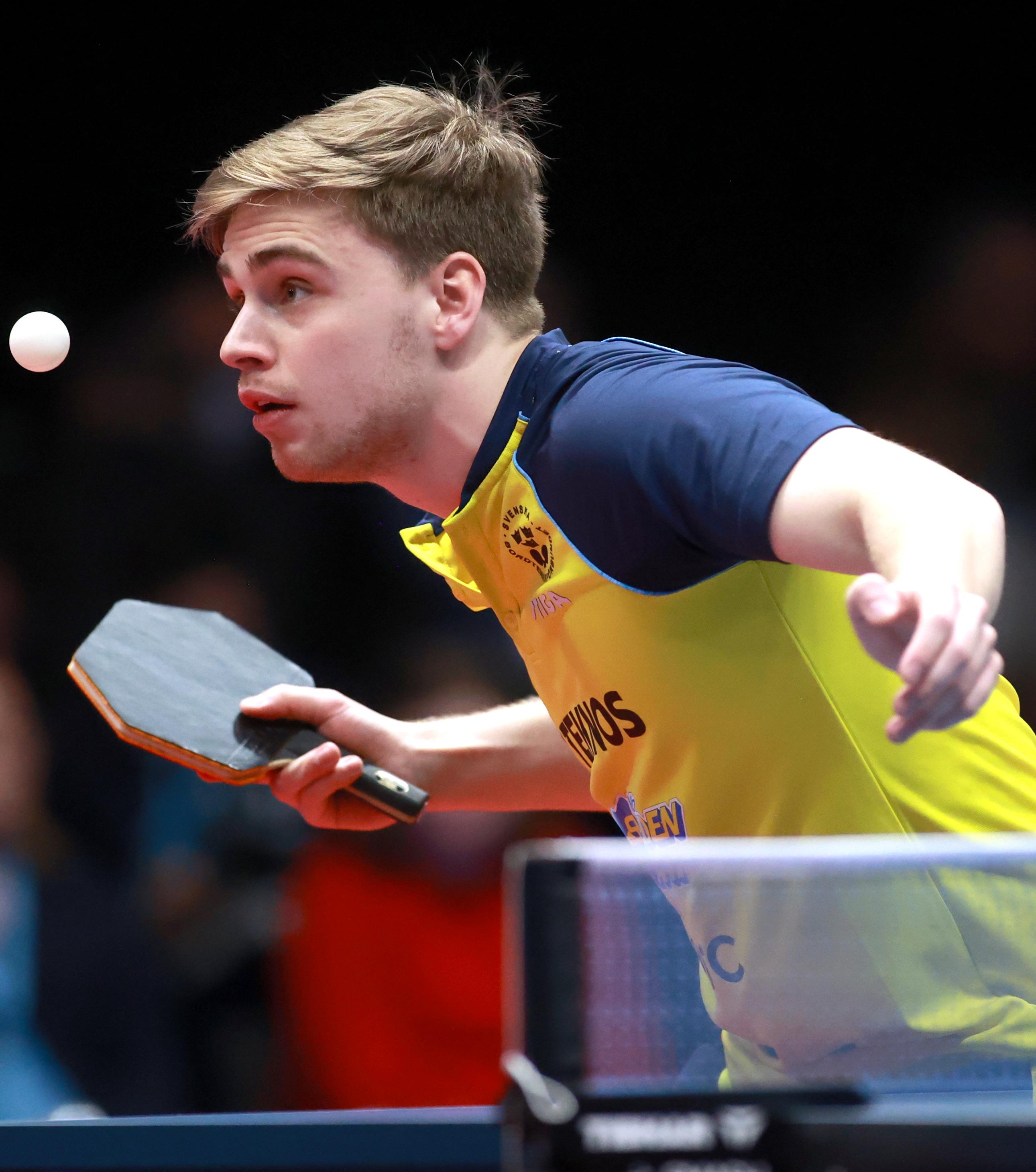
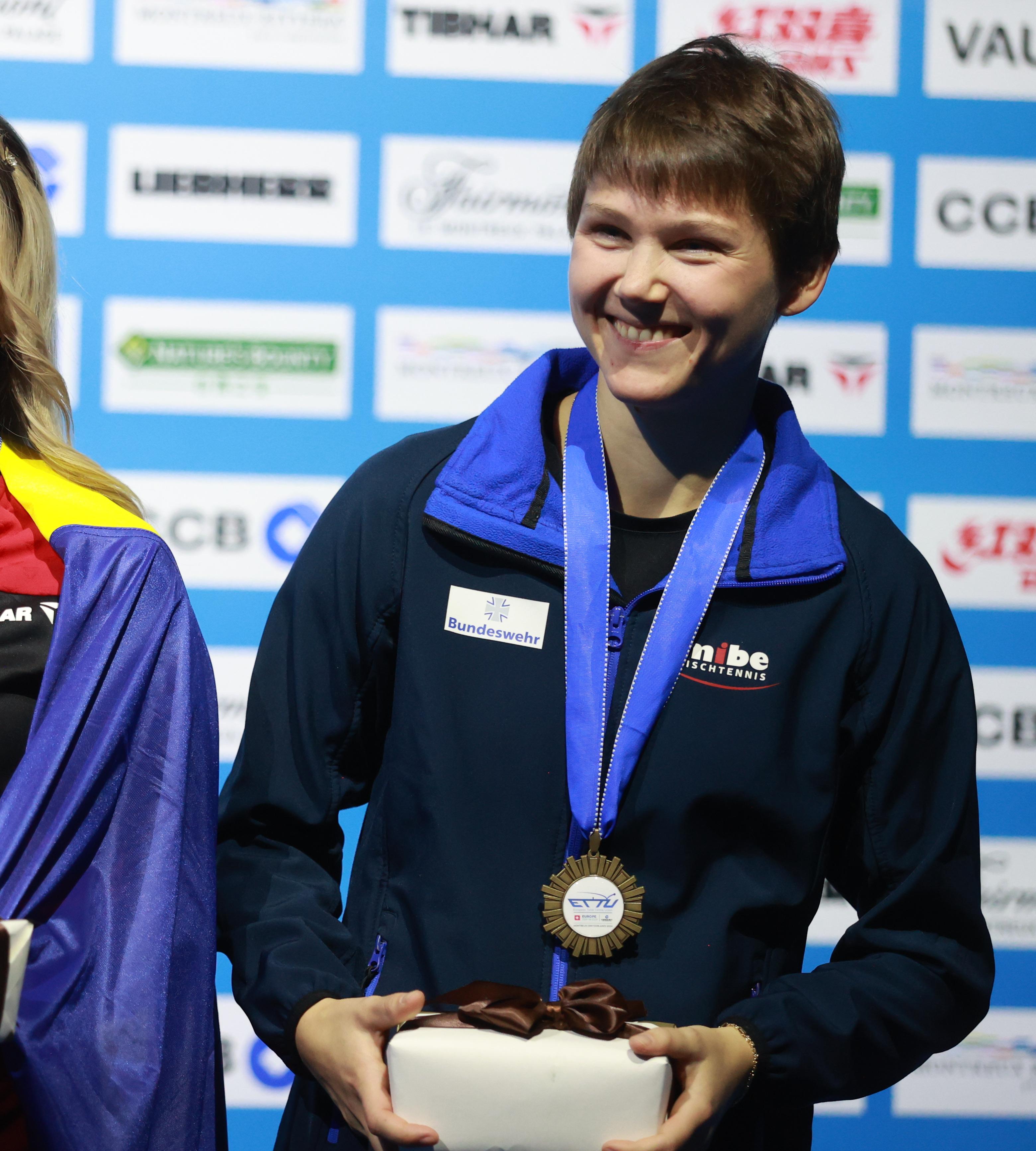
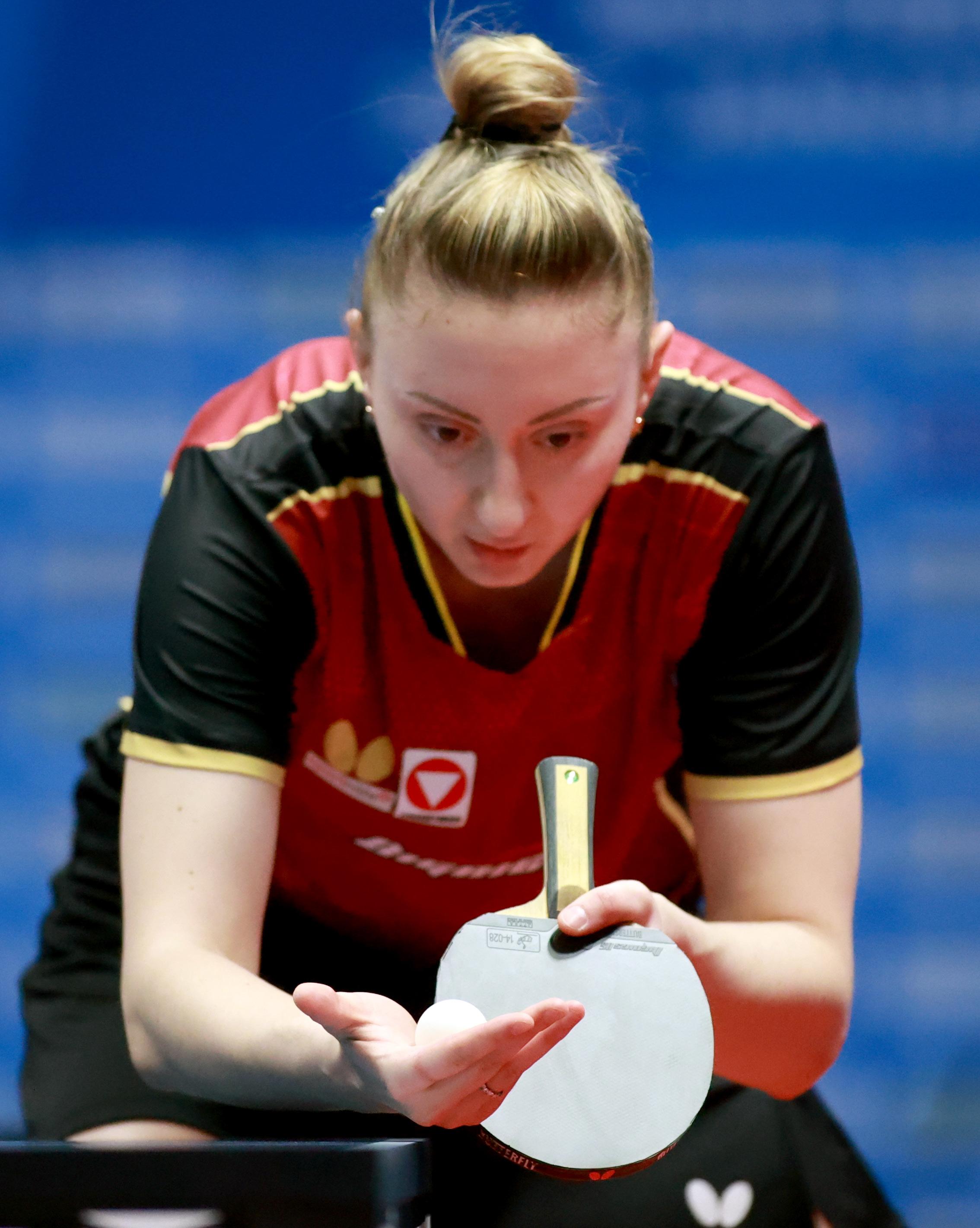
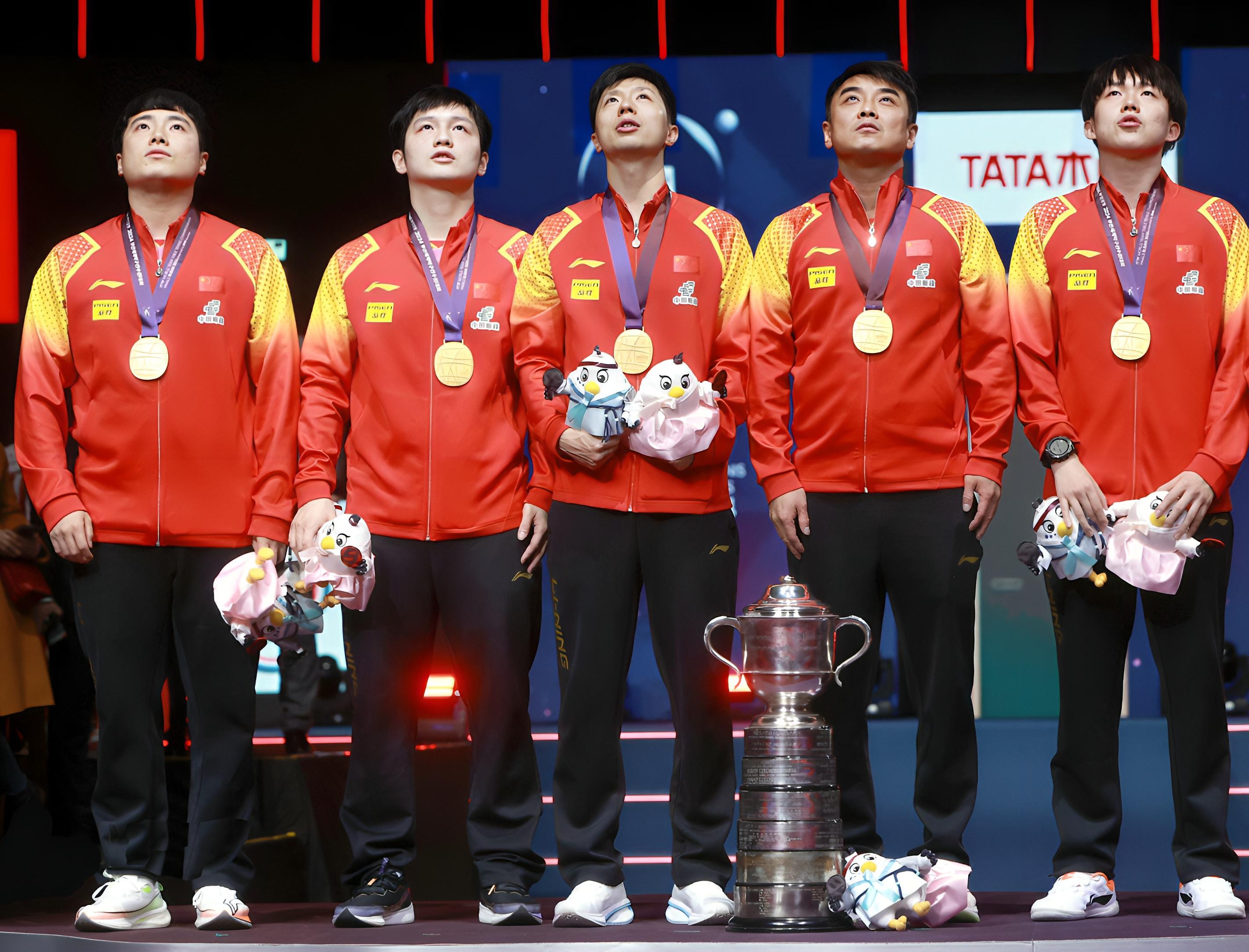
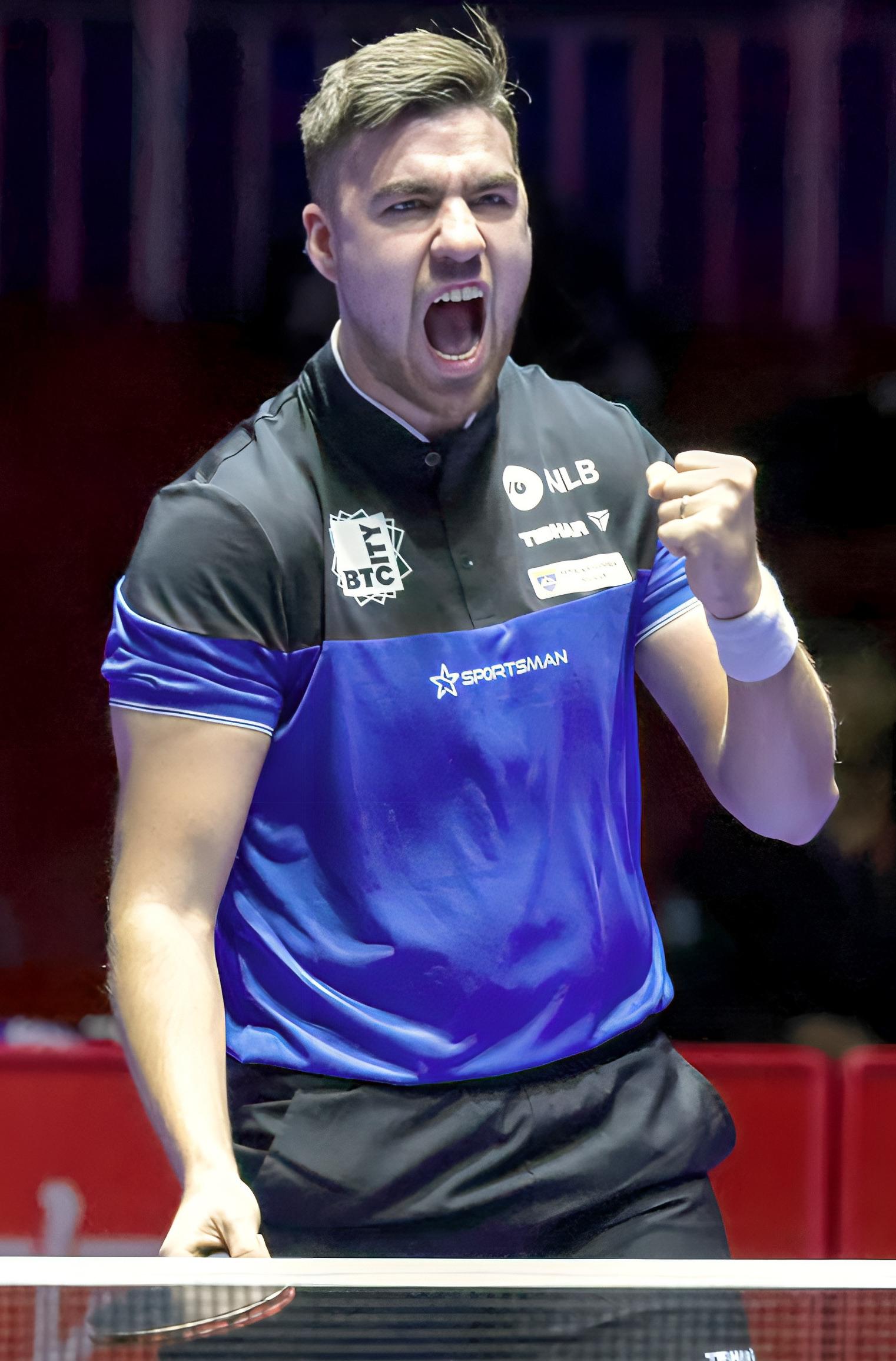
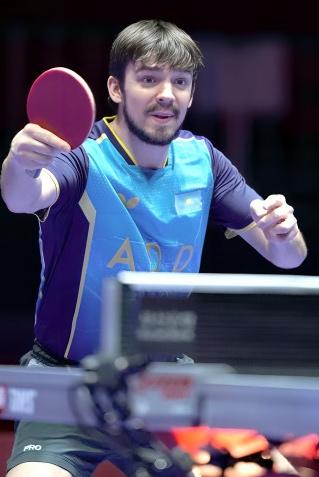
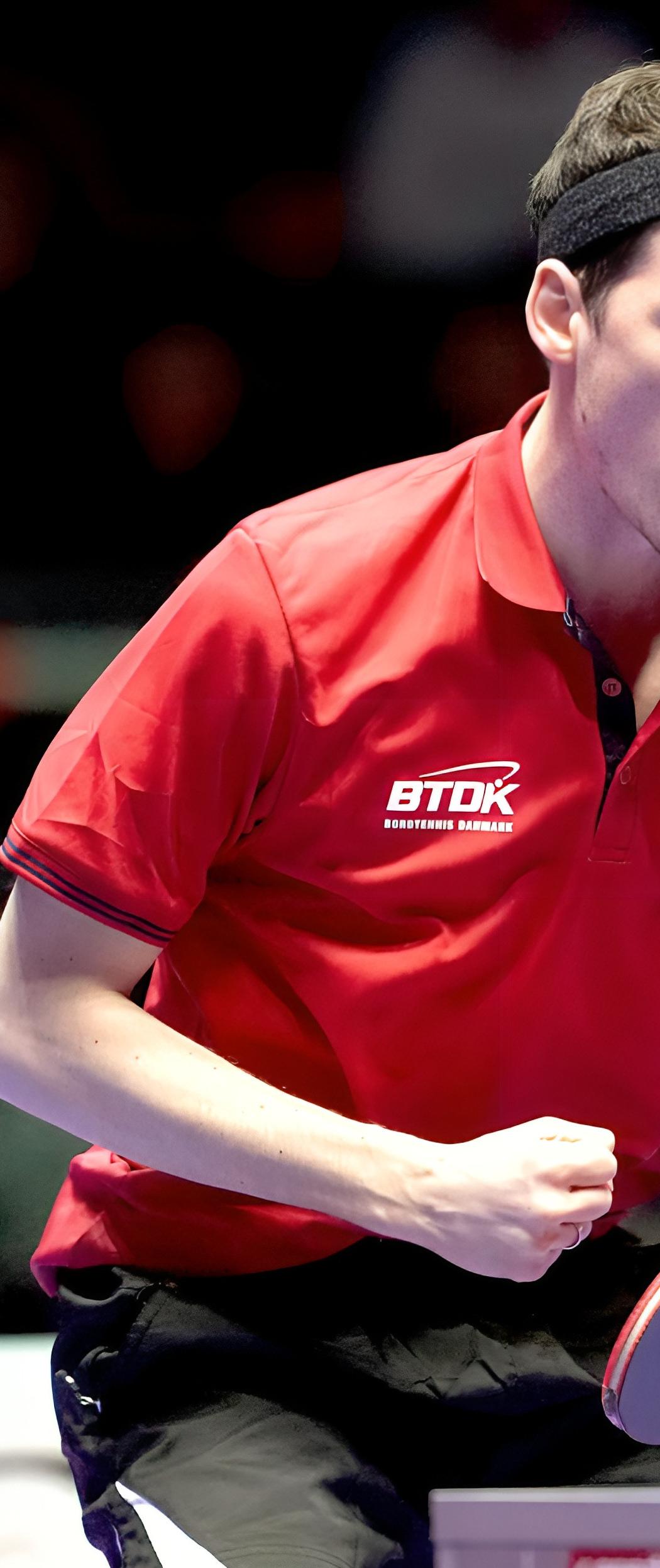


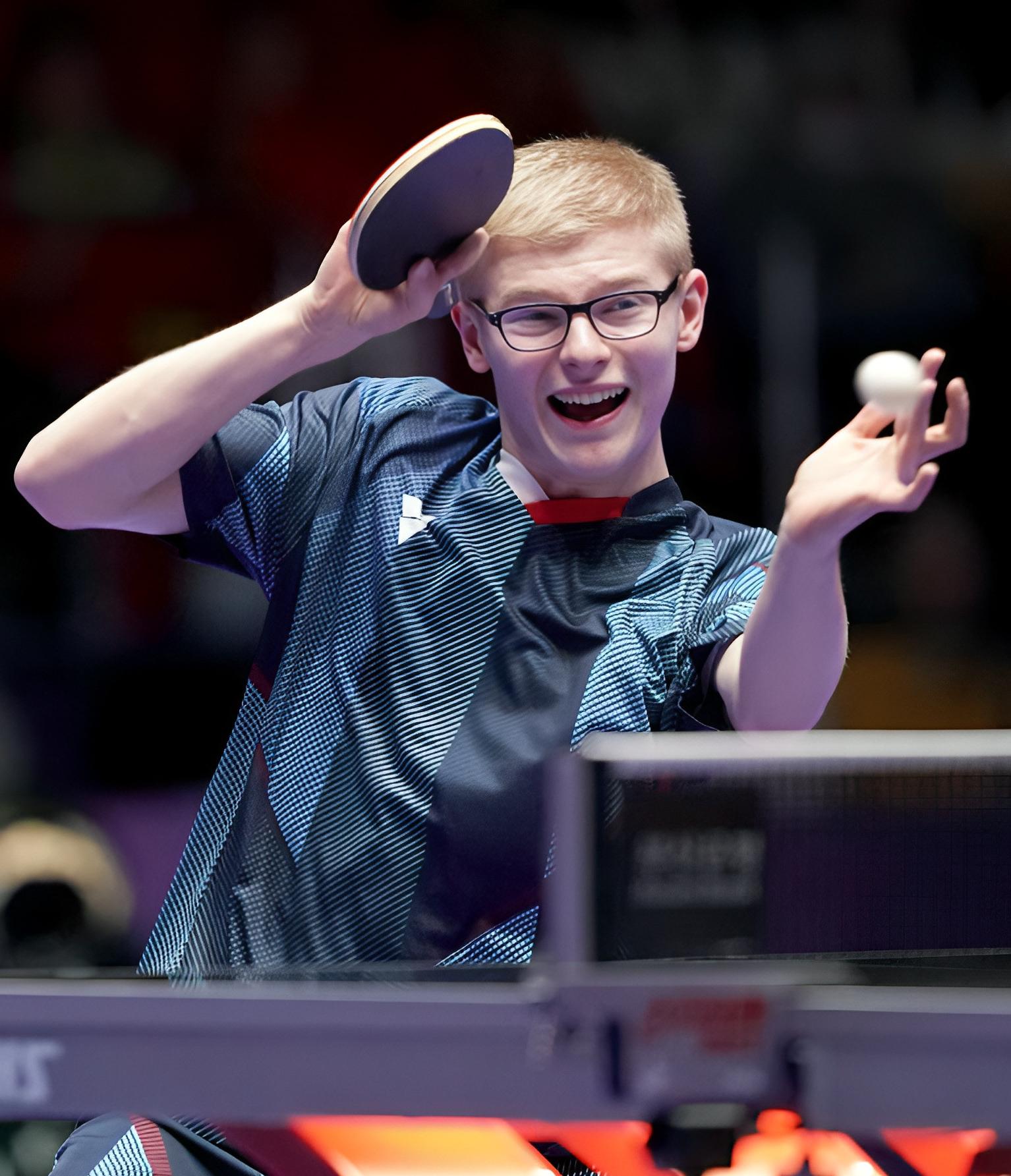
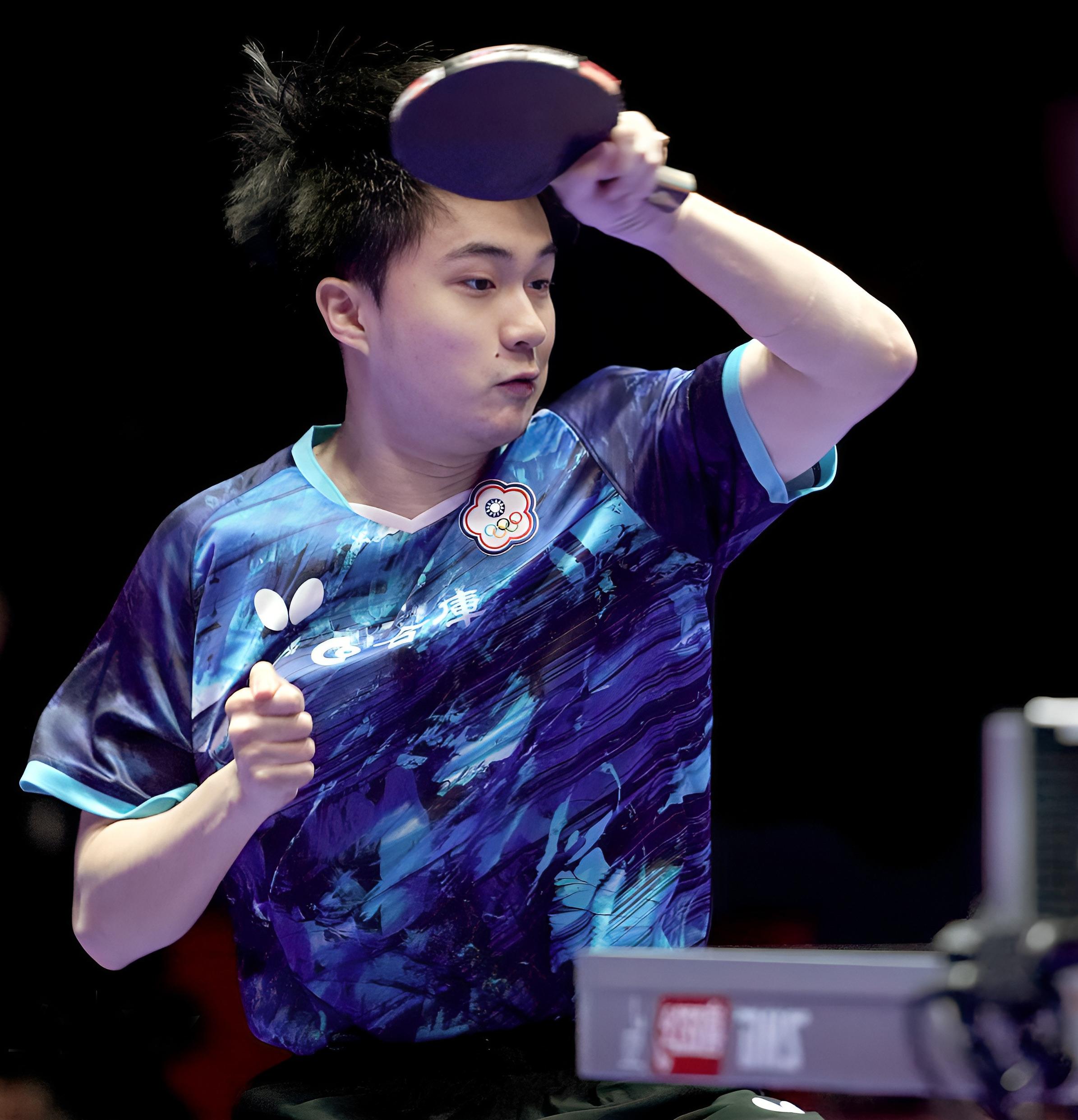
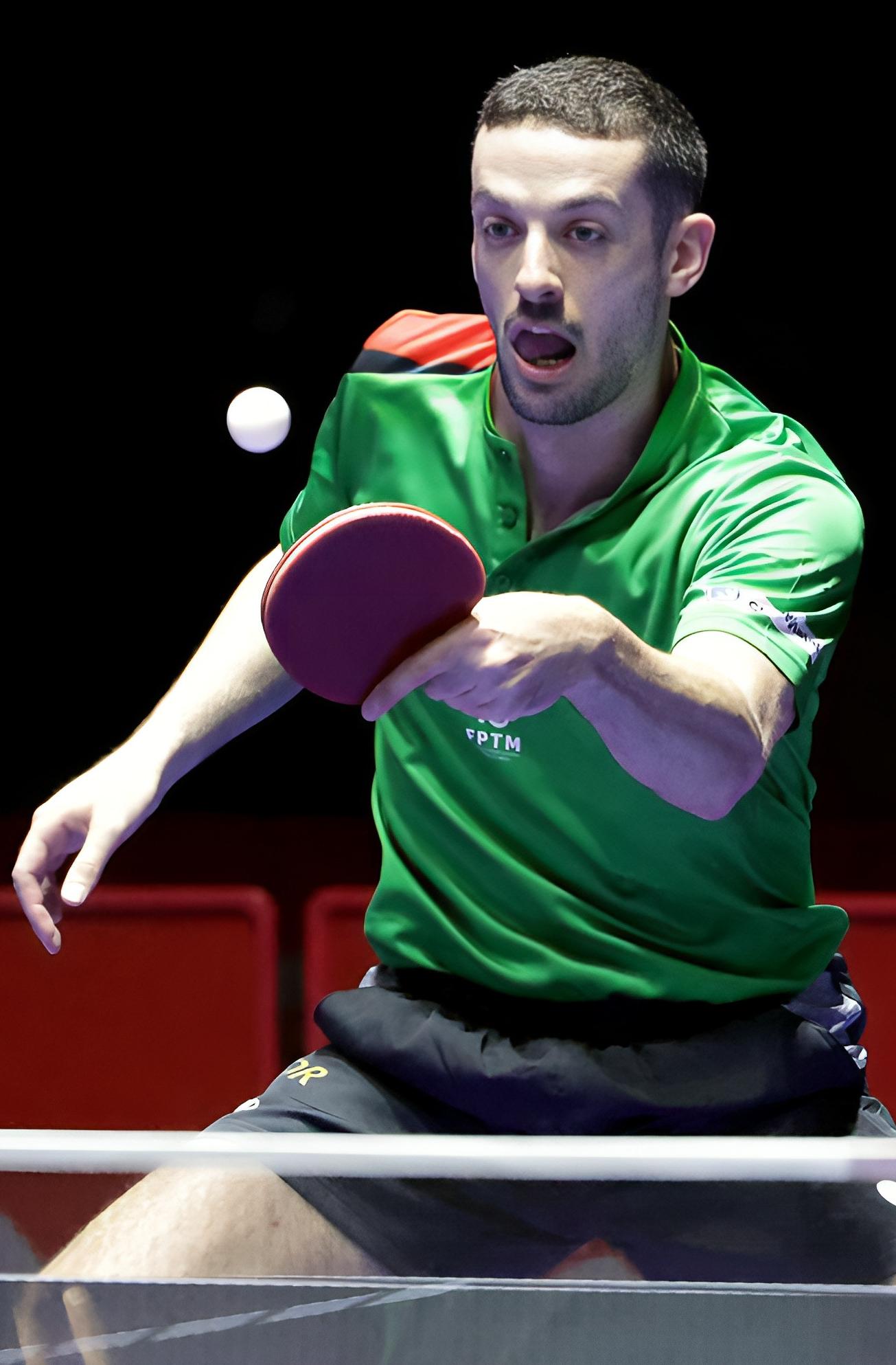
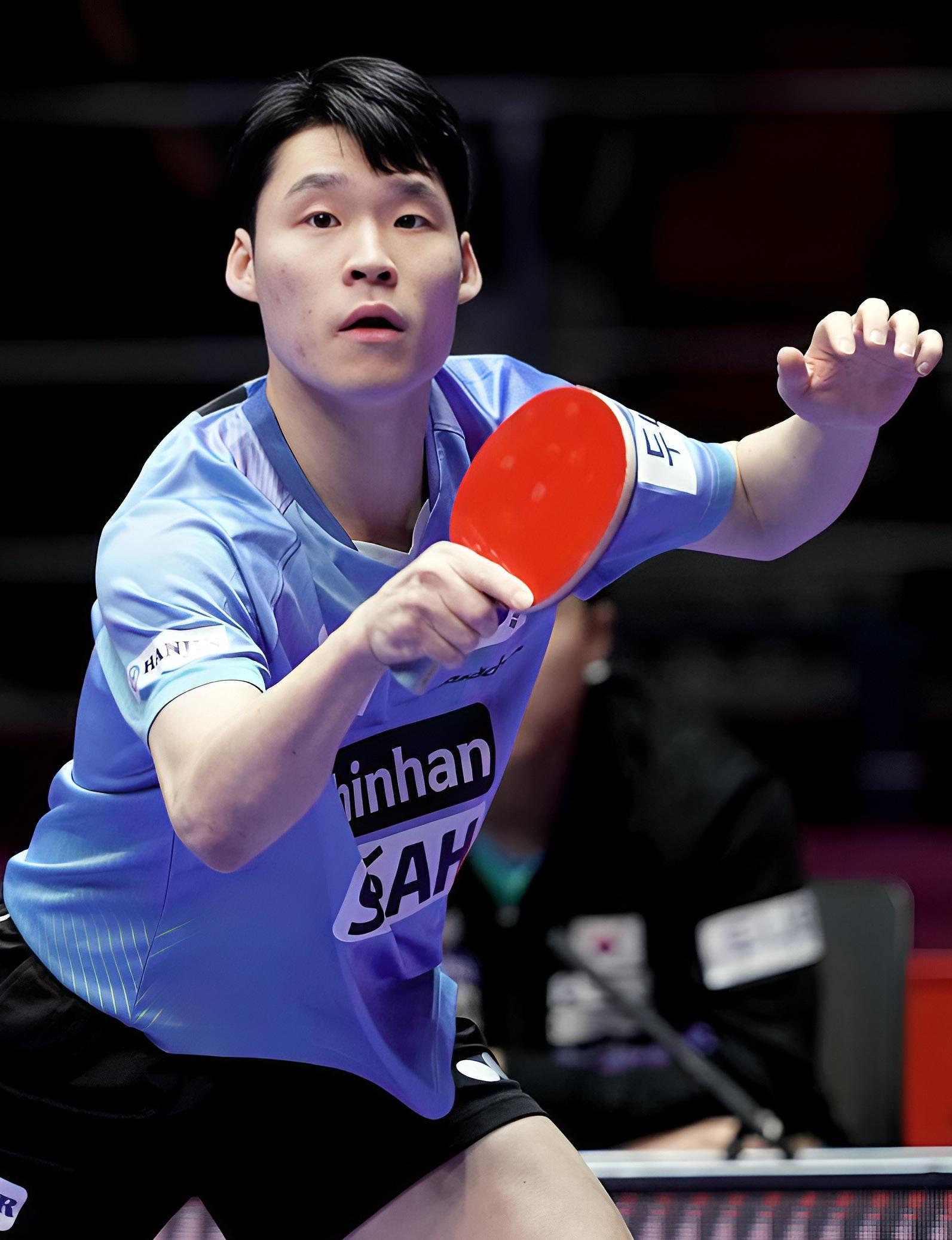

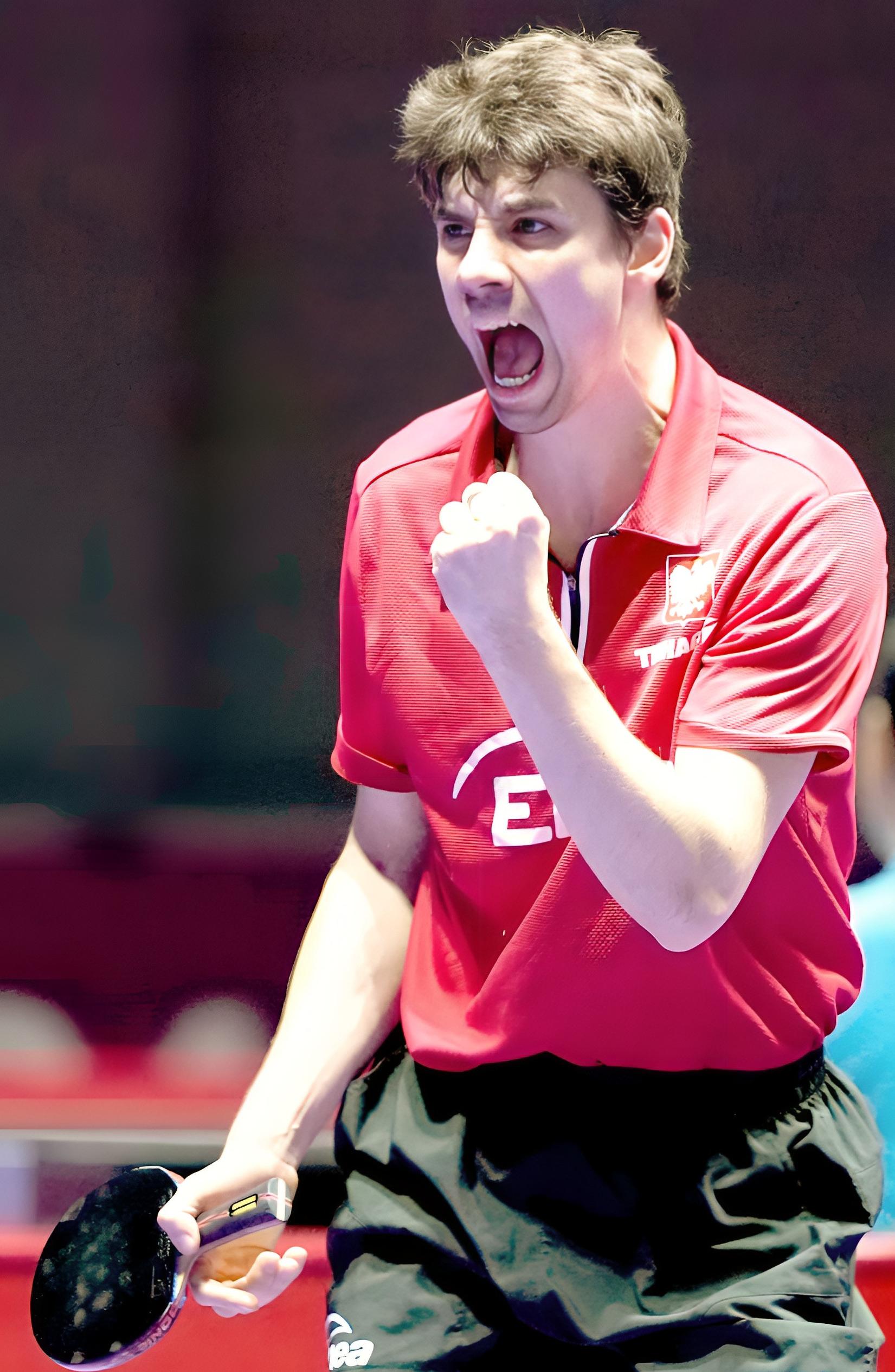
TOP LEFT
The Chinese men’s team watch the national flag being raised left to right Liang Jingkun, Fan Zhendong, Ma Long, Wang Hao, Wang Chuqin, Lin Gaoyuan.
Fan Zhendong emerged China’s leading player, he won all his eight matches
TOP ROW
Felix Lebrun left was in form for France, he won eight of his nine matches.
Jang Woojin right spearheaded Korea Republic hopes. At the semi-final stage he beat Wang Chuqin, finishing with six wins from eight matches.
CENTRE RIGHT
Lin Yun-Jun left starred for Chinese Taipei, played 11 matches, won nine.
Wong Chung Ting right proved imperious for Hong Kong, he won all his seven matches.
BOTTOM ROW
left to right Darko Jorgic was in form for Slovenia, he maintained a perfect record winning all his eight matches.
Kirill Gerassimenko emerged Kazakhstan’s leading player, he won all his nine encounters.
Jonathan Groth proved vital for Denmark, he won seven of his nine matches.
Marcos Freitas led Portuguese efforts by example, eight wins from nine matches.
Jakub Dyjas impressed for Poland, he won six out of seven matches.
>> Articles and Results
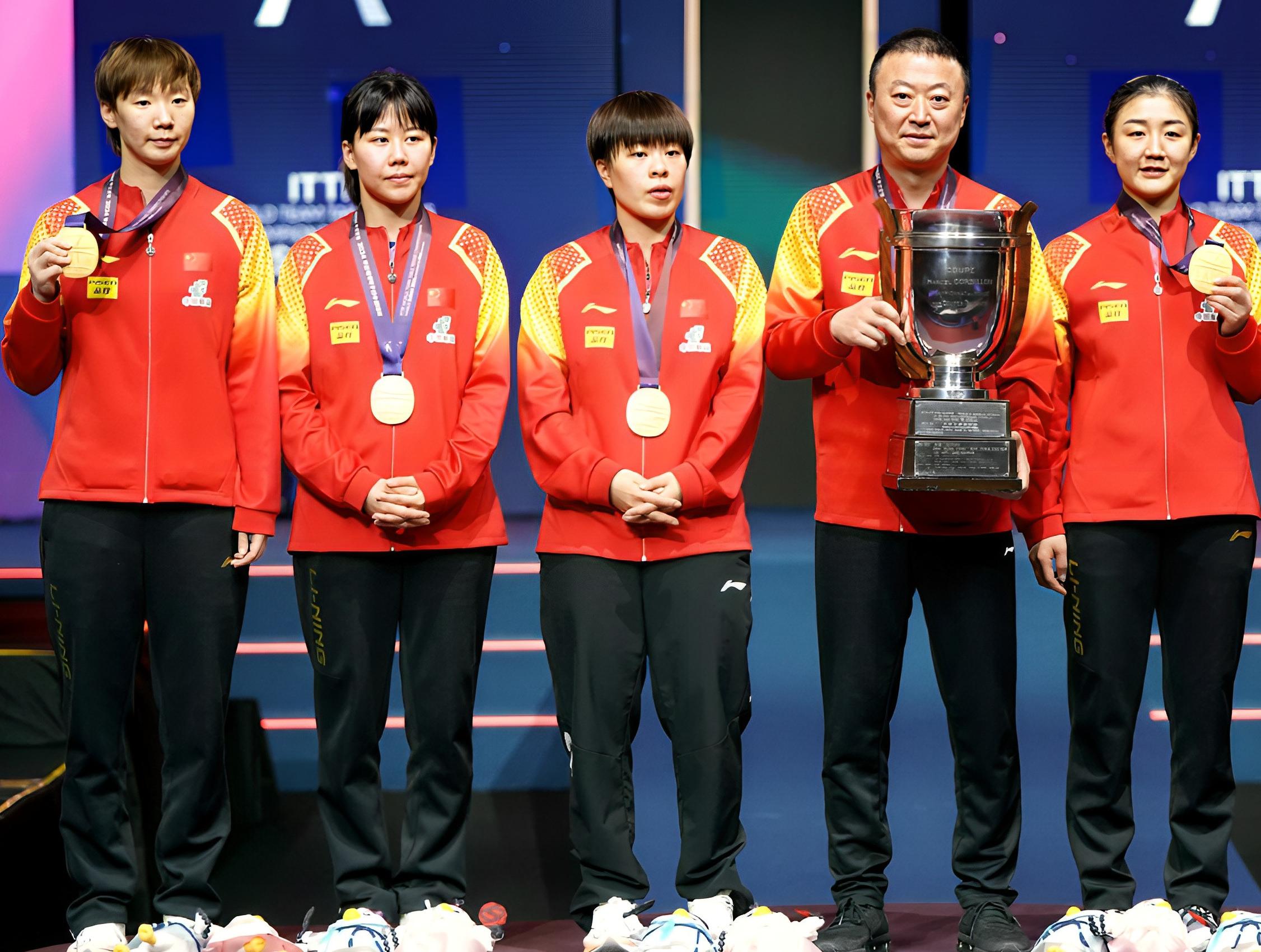
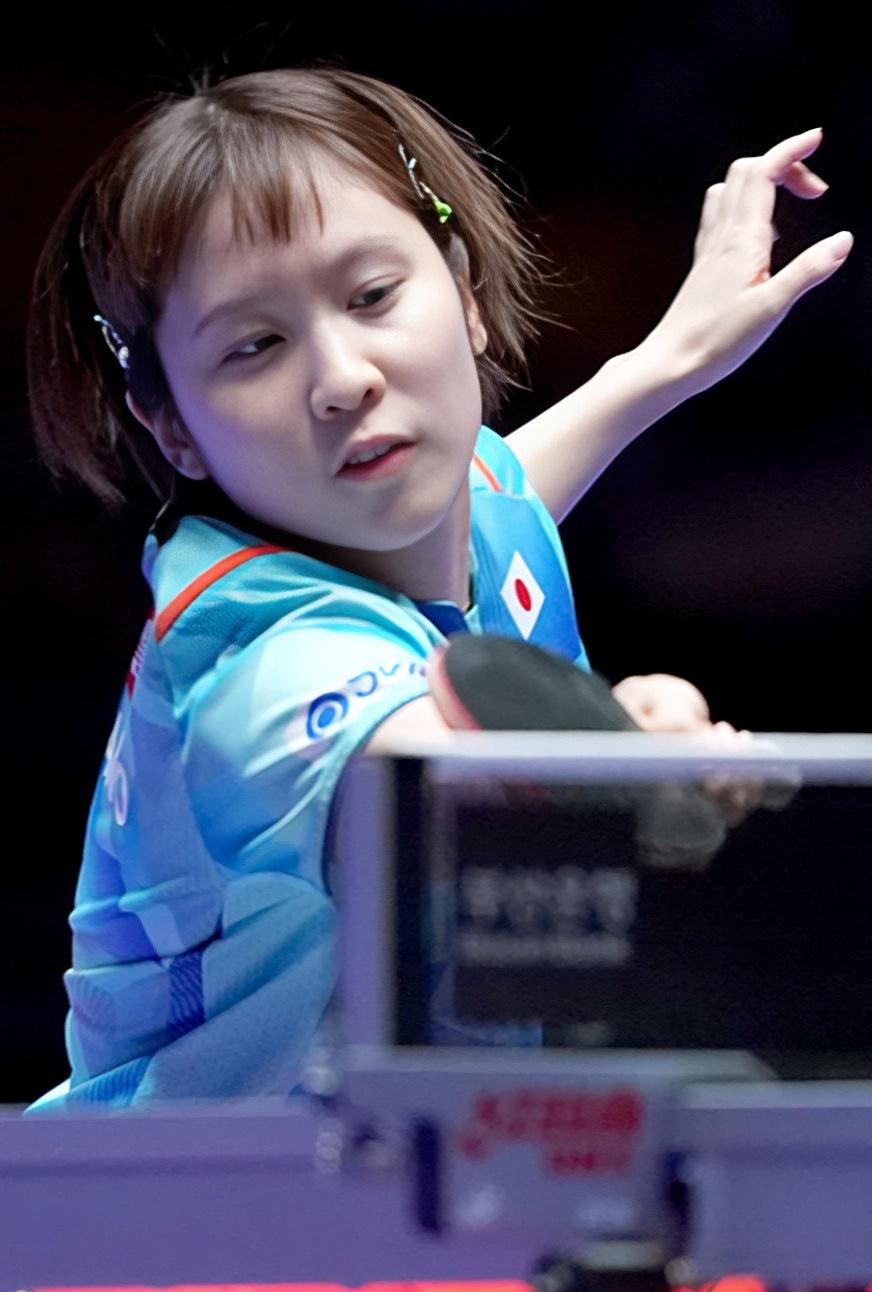
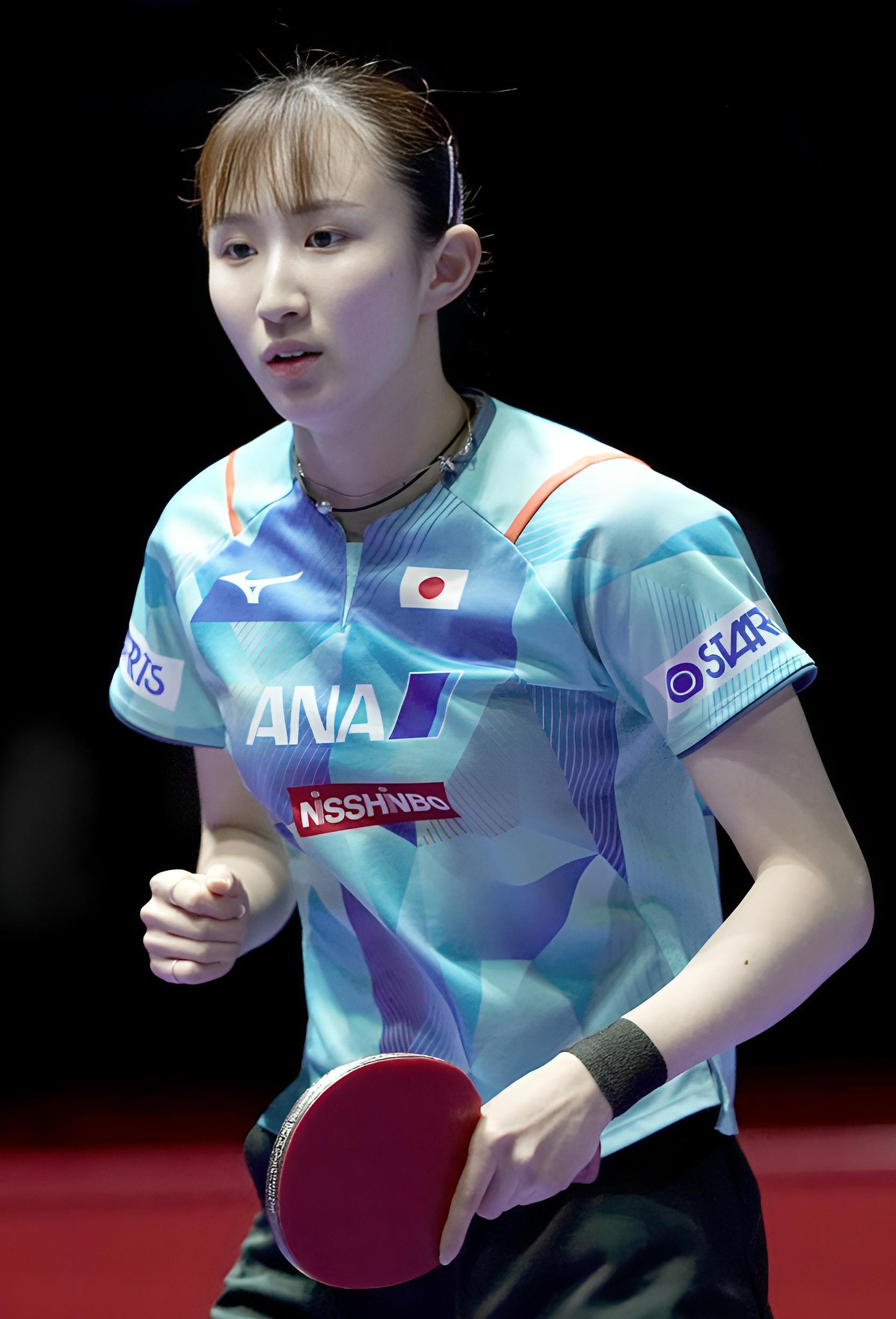


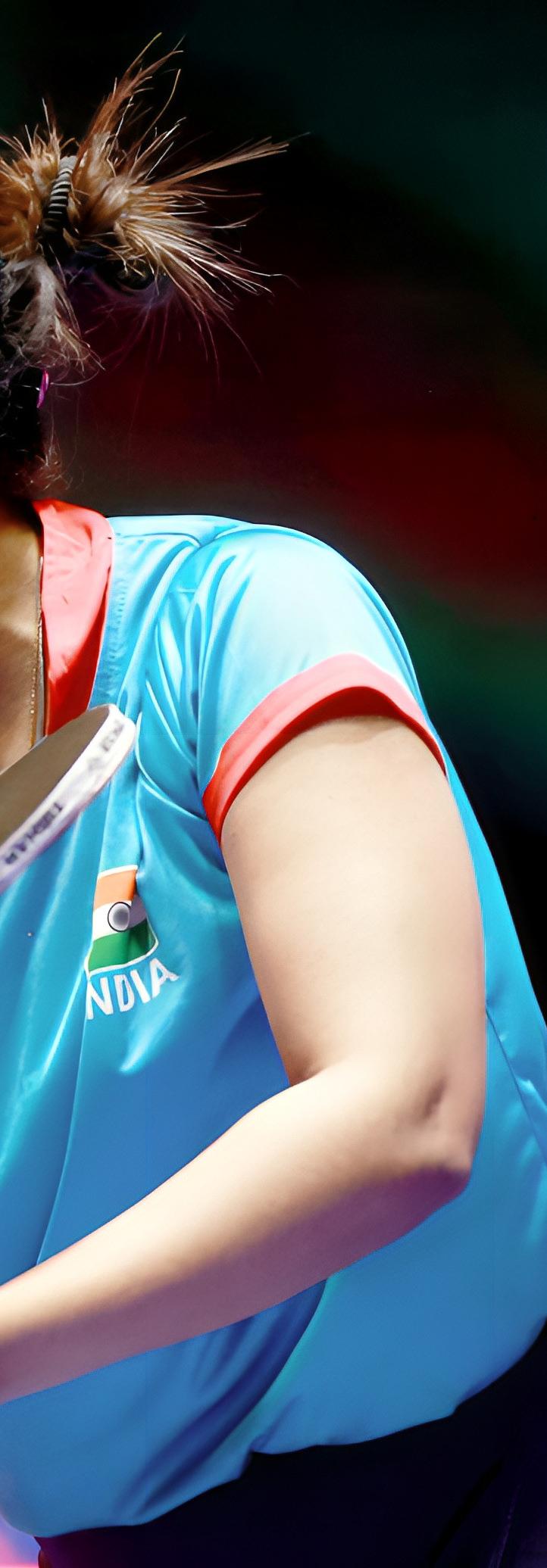
TOP LEFT
The successful Chinese women’s team left to right Wang Manyu, Chen Xingtong, Wang Yidi, Ma Lin, Chen Meng, Sun Yingsha.
BOTTOM LEFT
Miu Hirano left won all her eight matches centre Hina Hayata won eight out of nine; together they steered Japan to women’s team runners up spot.
Ayhika Mukherjee third left caused a sensation when India faced China in the group stage. In the very first match of the fixture she beat Sun Yingsha.
TOP RIGHT
Cheng I-Ching left and right Nina Mittelham proved the respective star names for Chinese Taipei and Germany; neither experienced defeat, each winning eight matches.
CENTRE RIGHT
Bernadette Szocs left set the standard for Romania, seven wins, just one defeat. Meanwhile, Lee Ho Ching right proved crucial to Hong Kong’s bronze medal, she won six of her seven matches.
BOTTOM RIGHT
Charlotte Lutz left made an impressive debut for France; she won four of her six matches. Once again Adriana Diaz right shone for Puerto Rico, eight matches, seven wins.
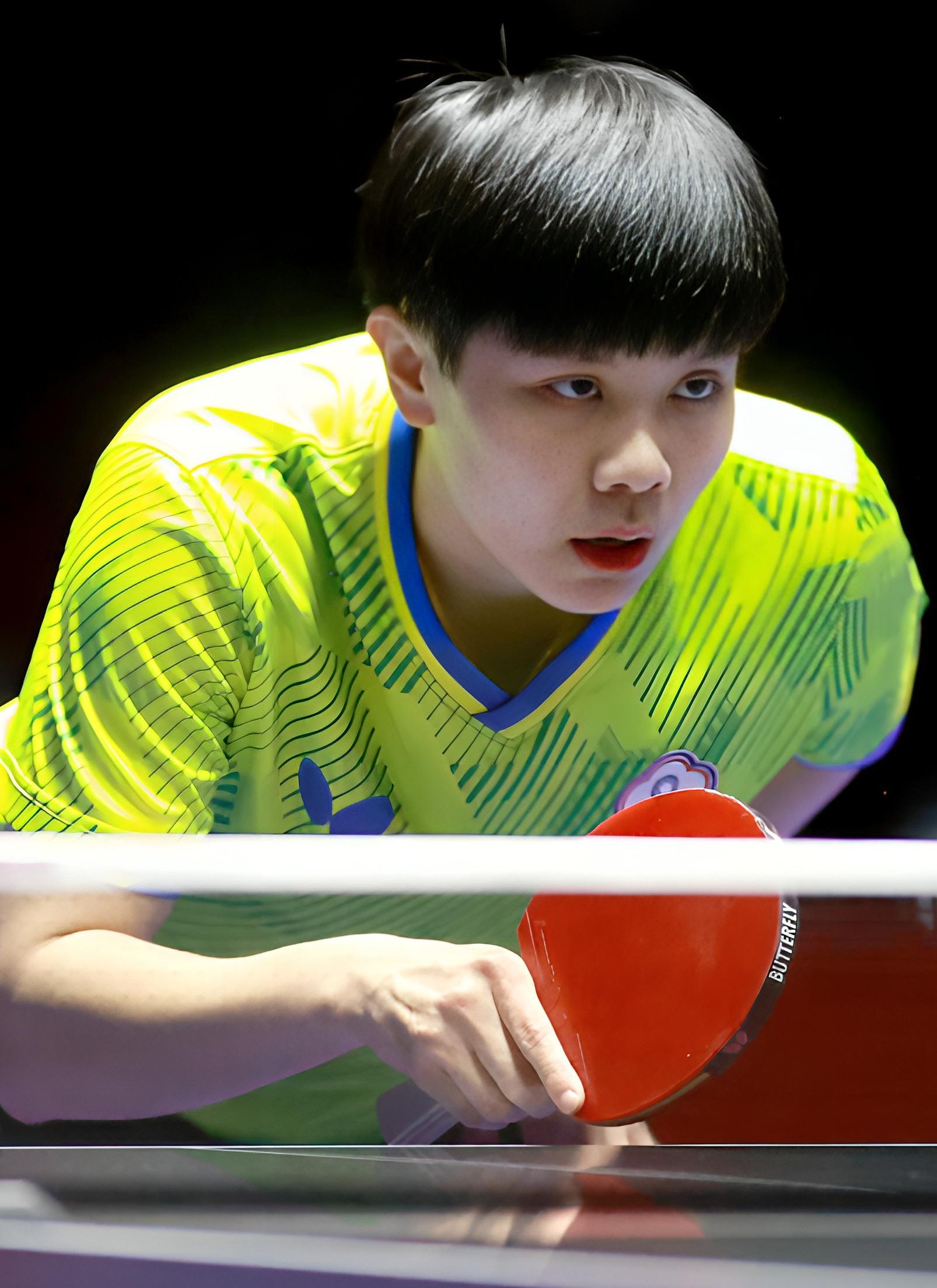
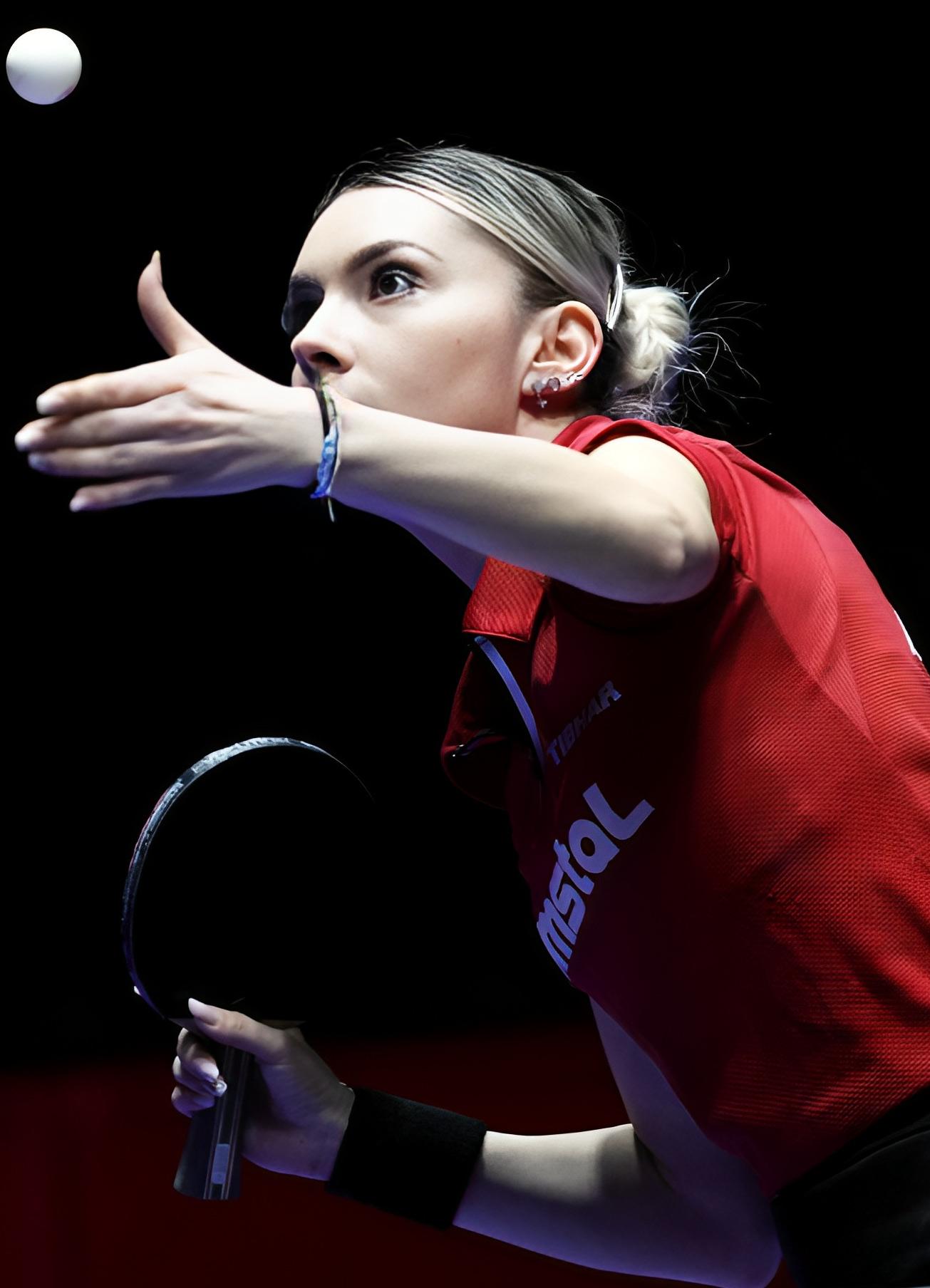
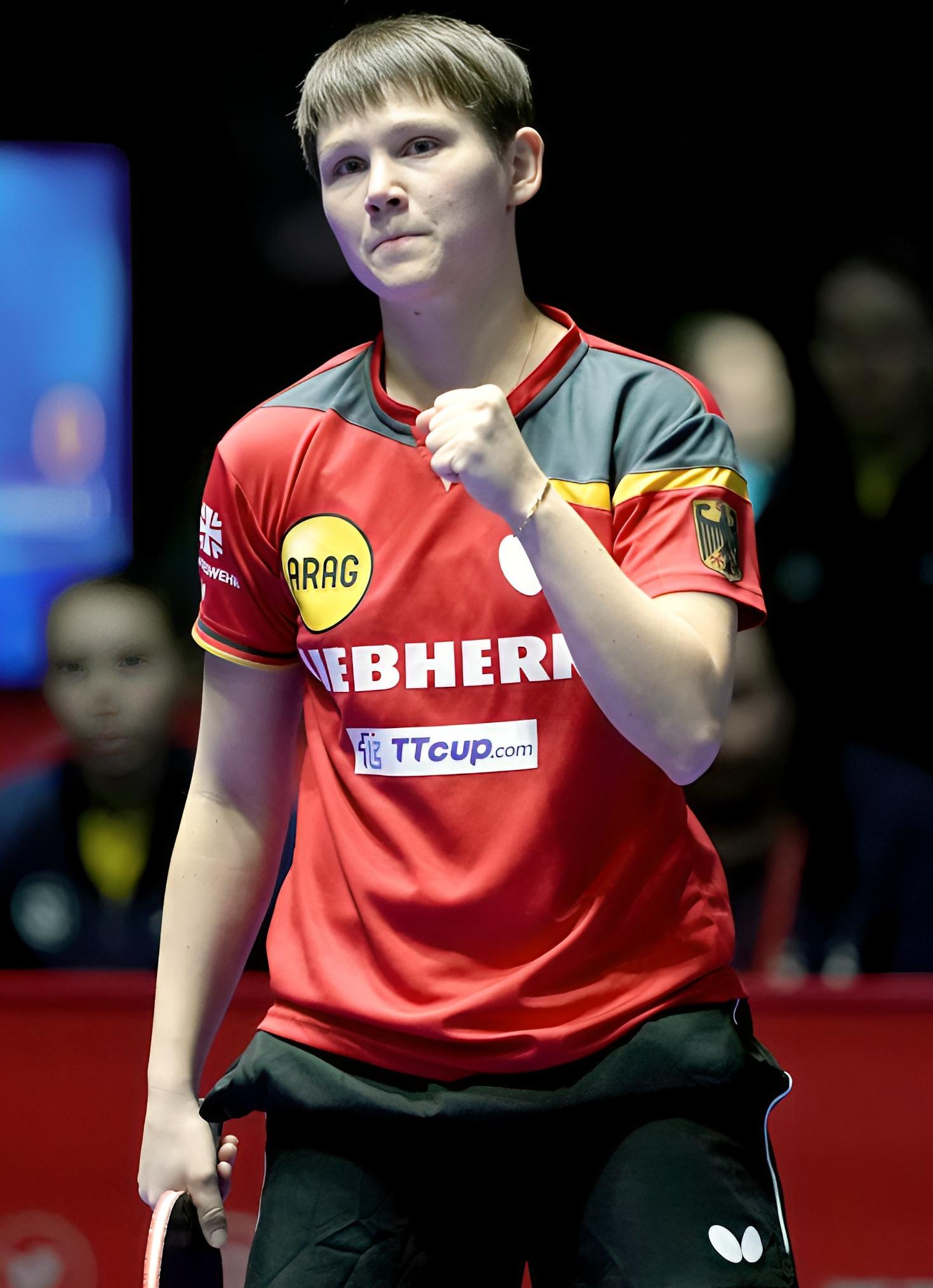
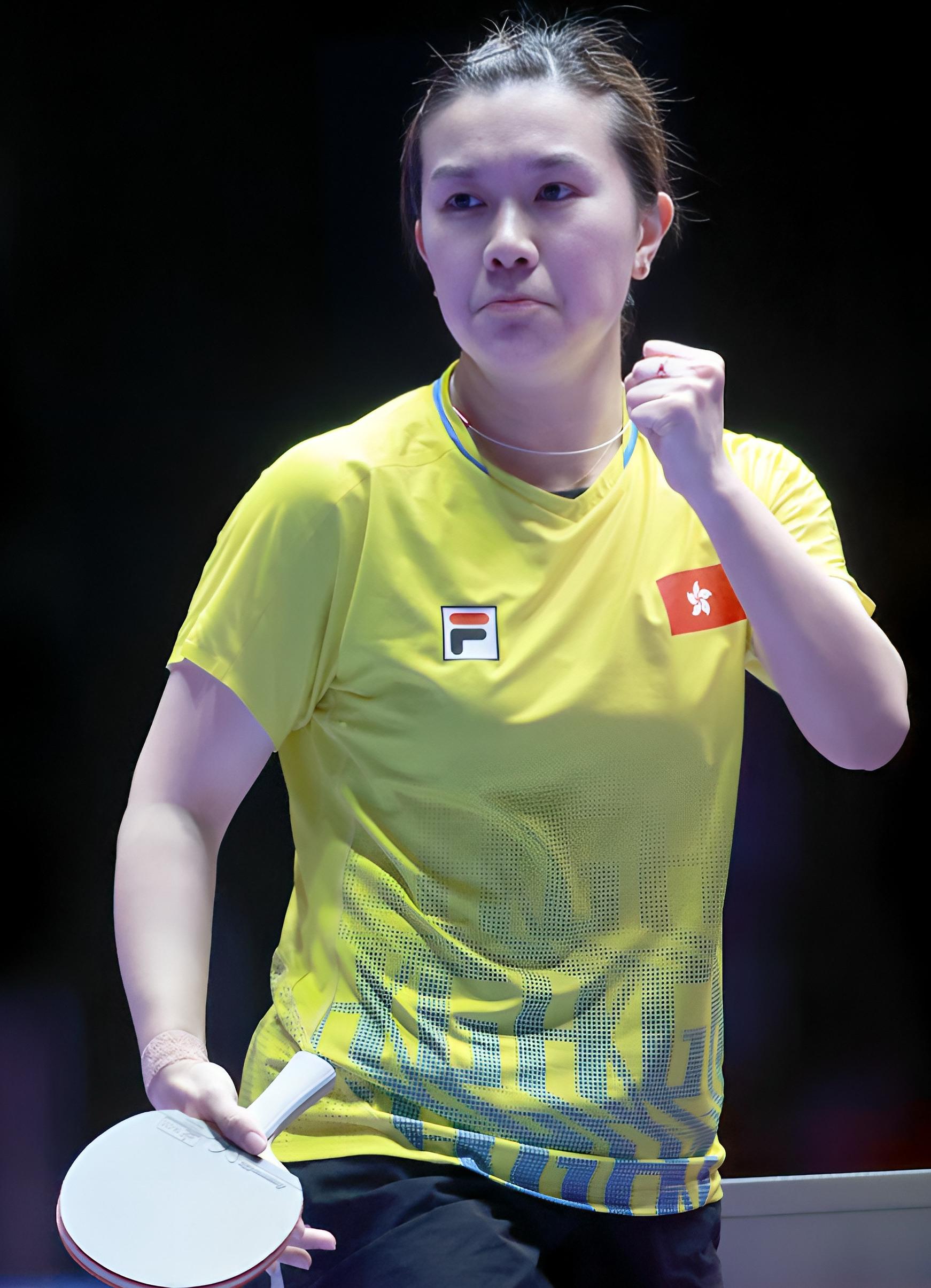
>> Articles and Results
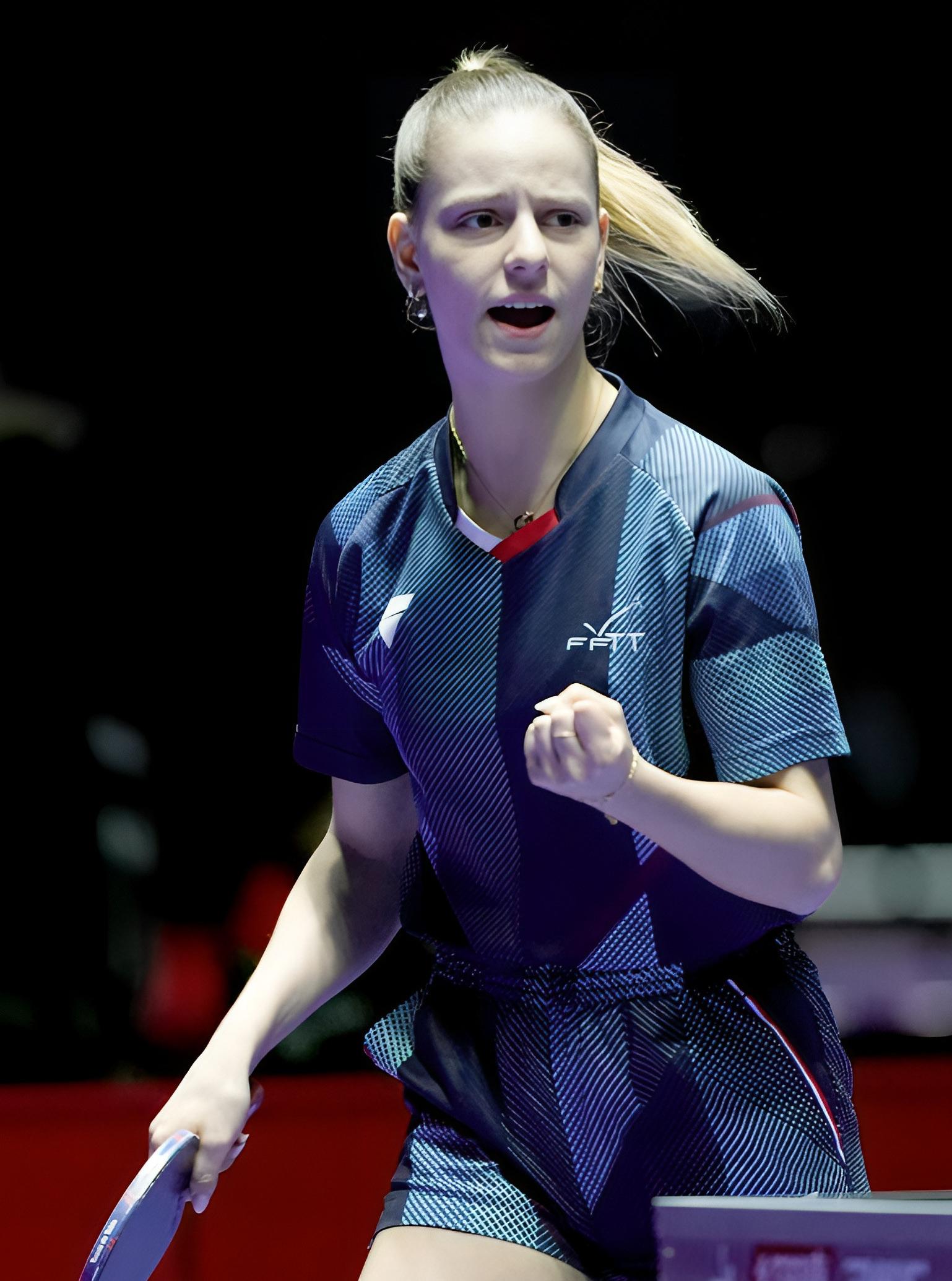
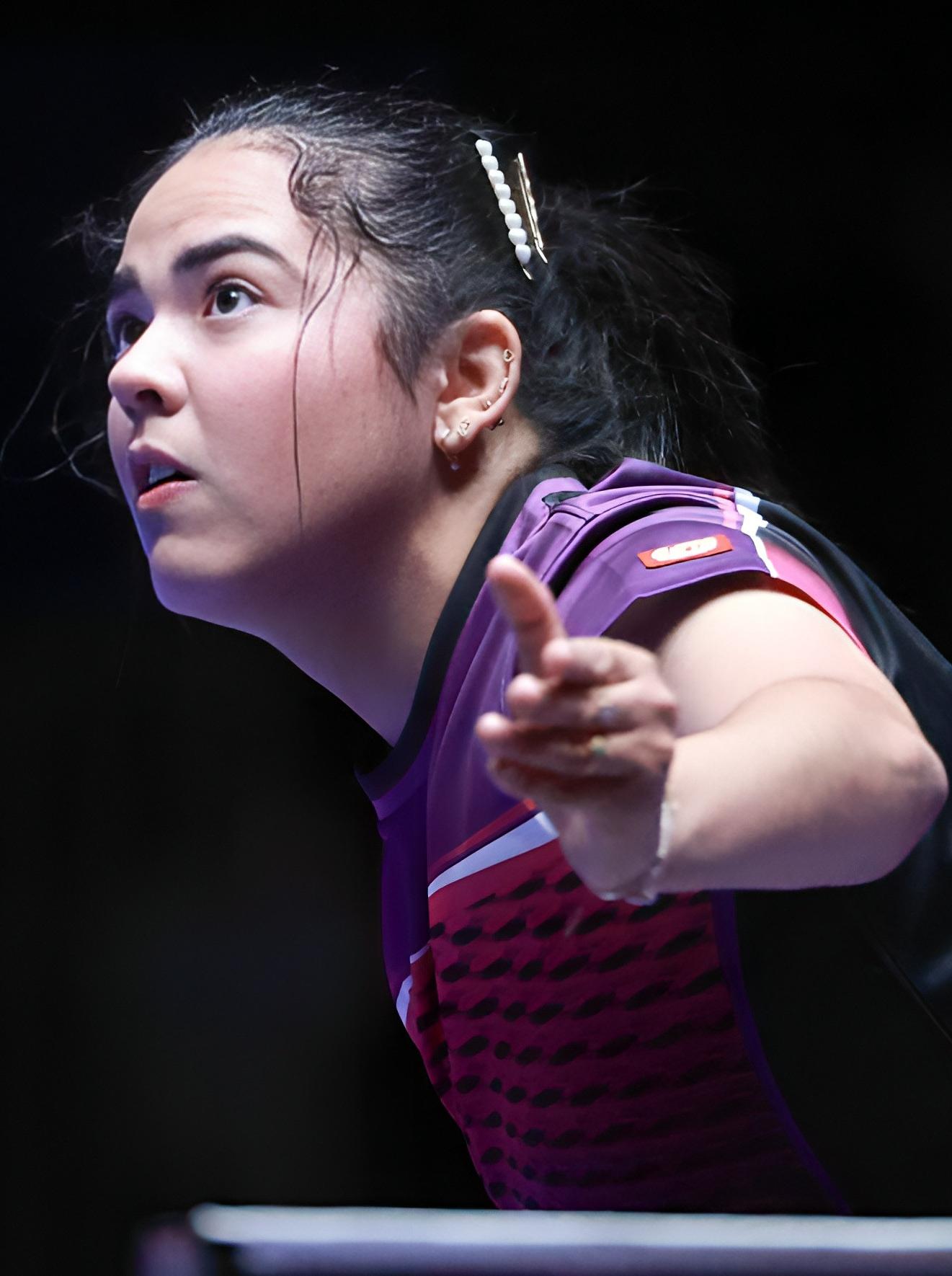
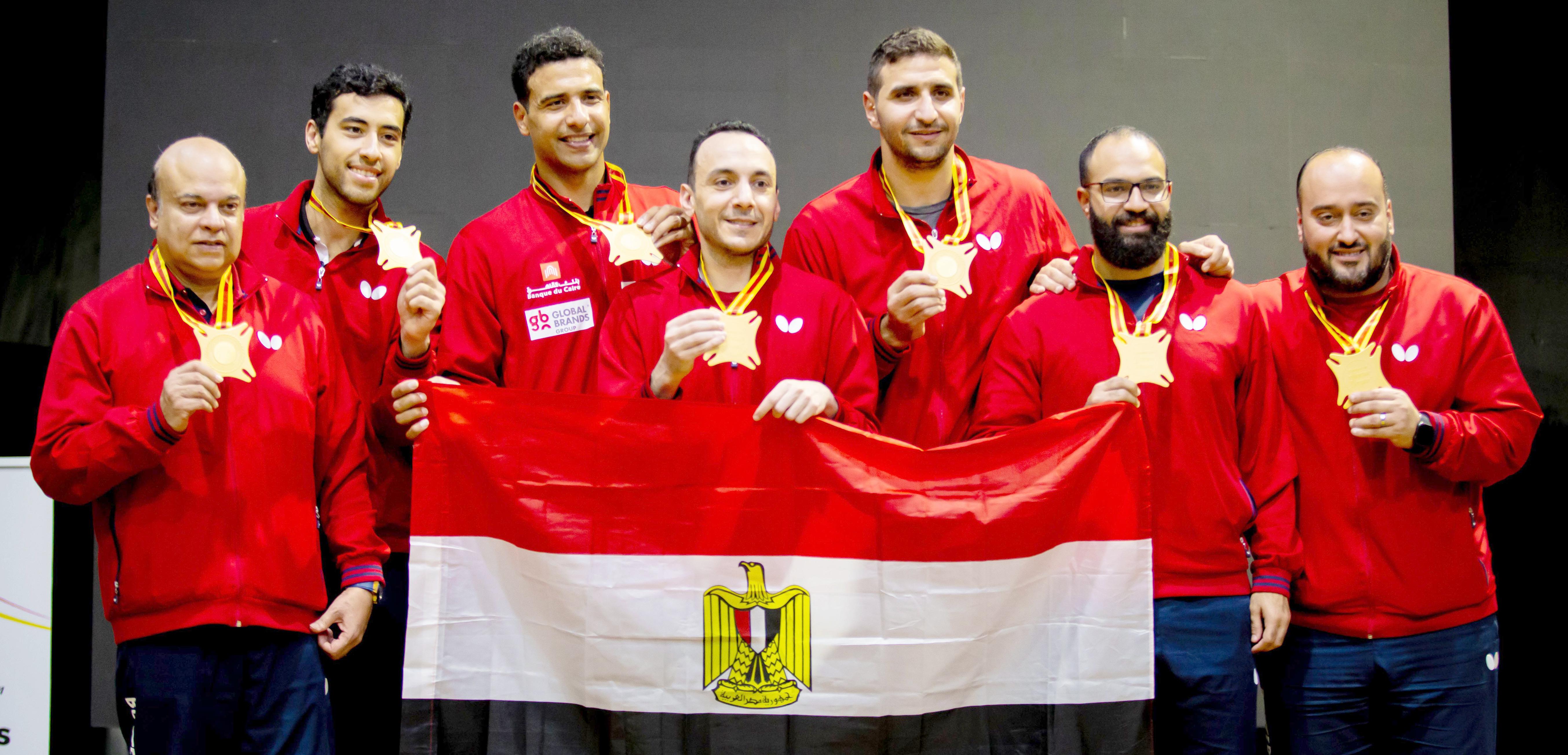
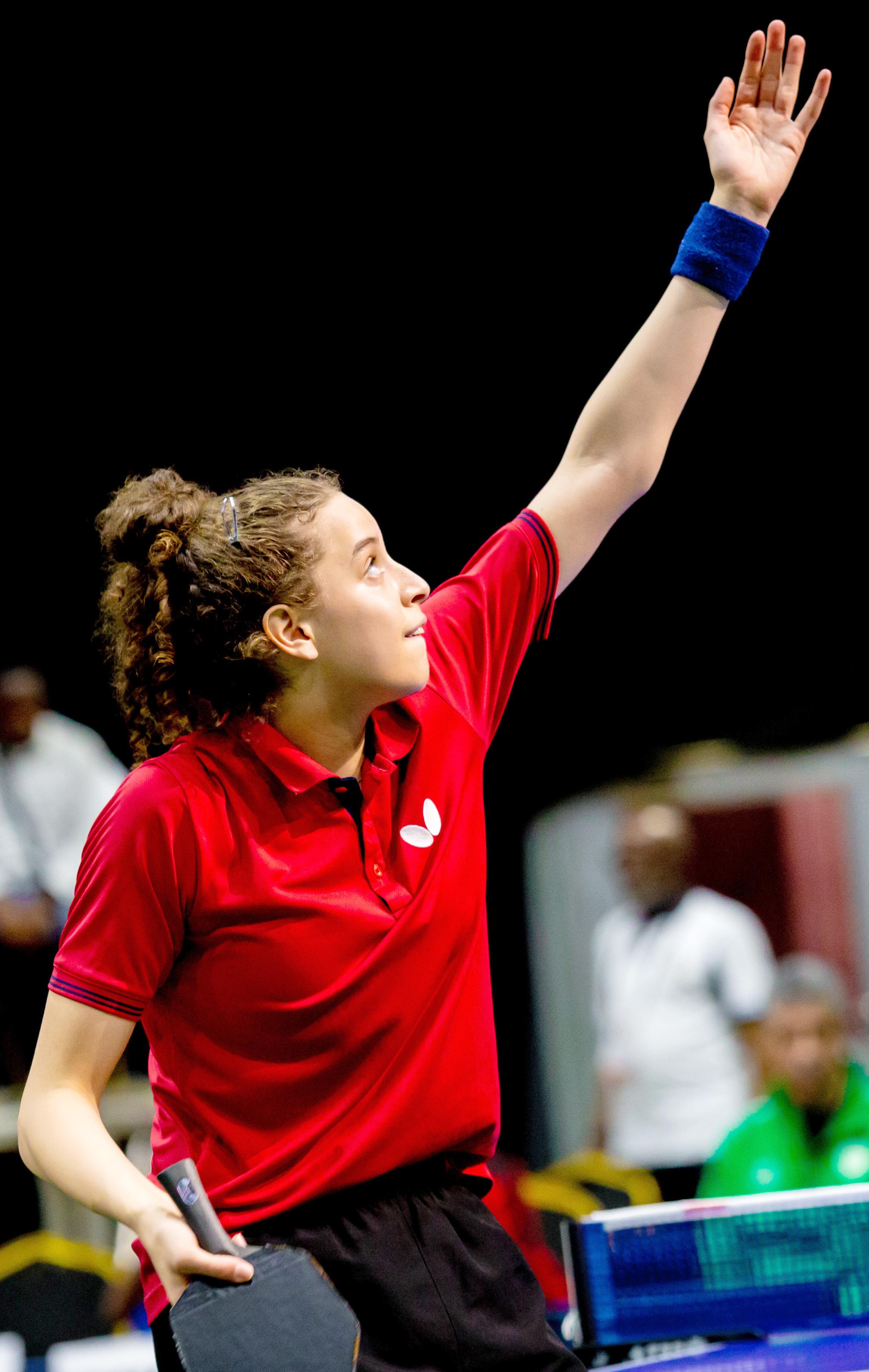
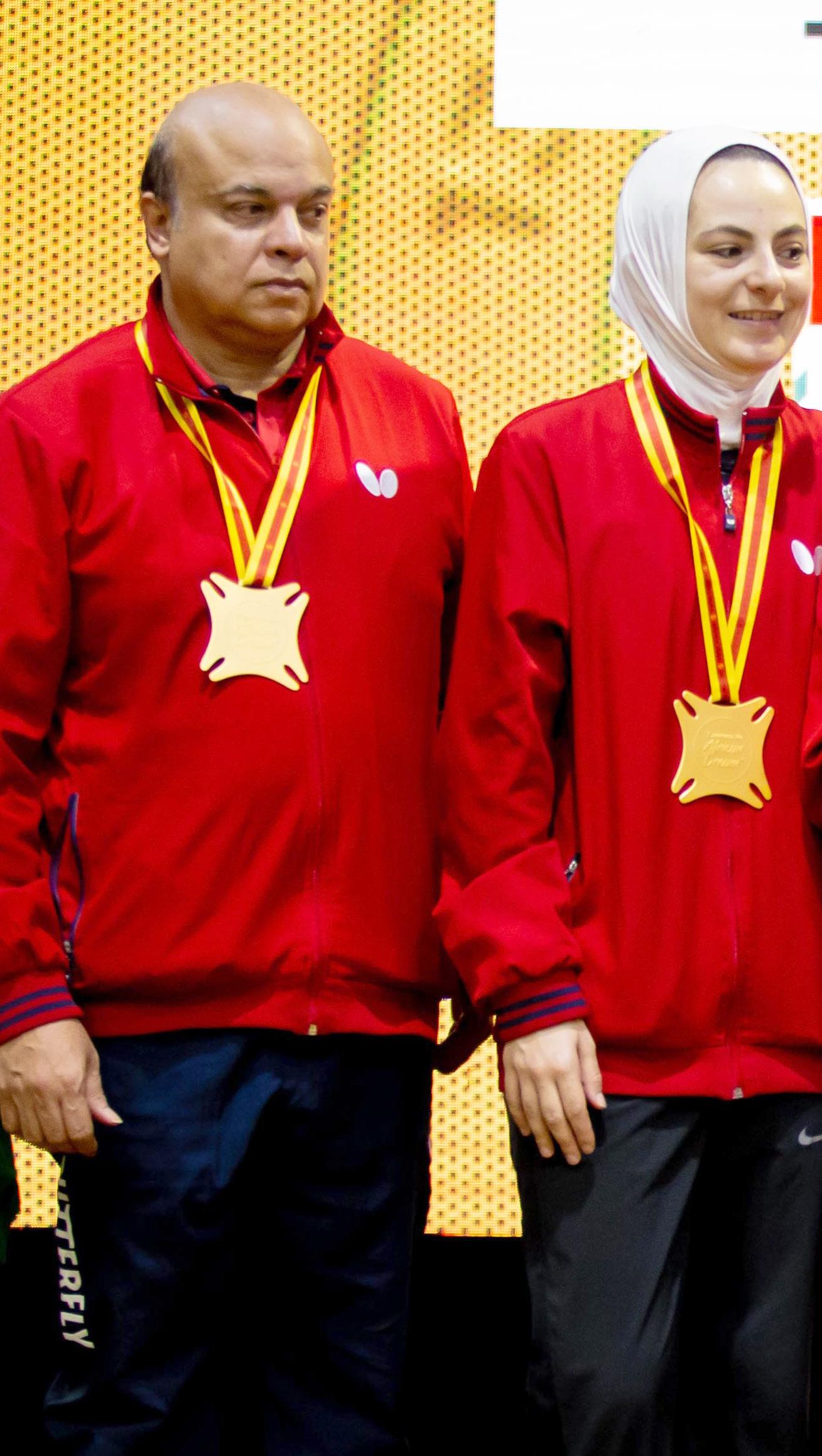
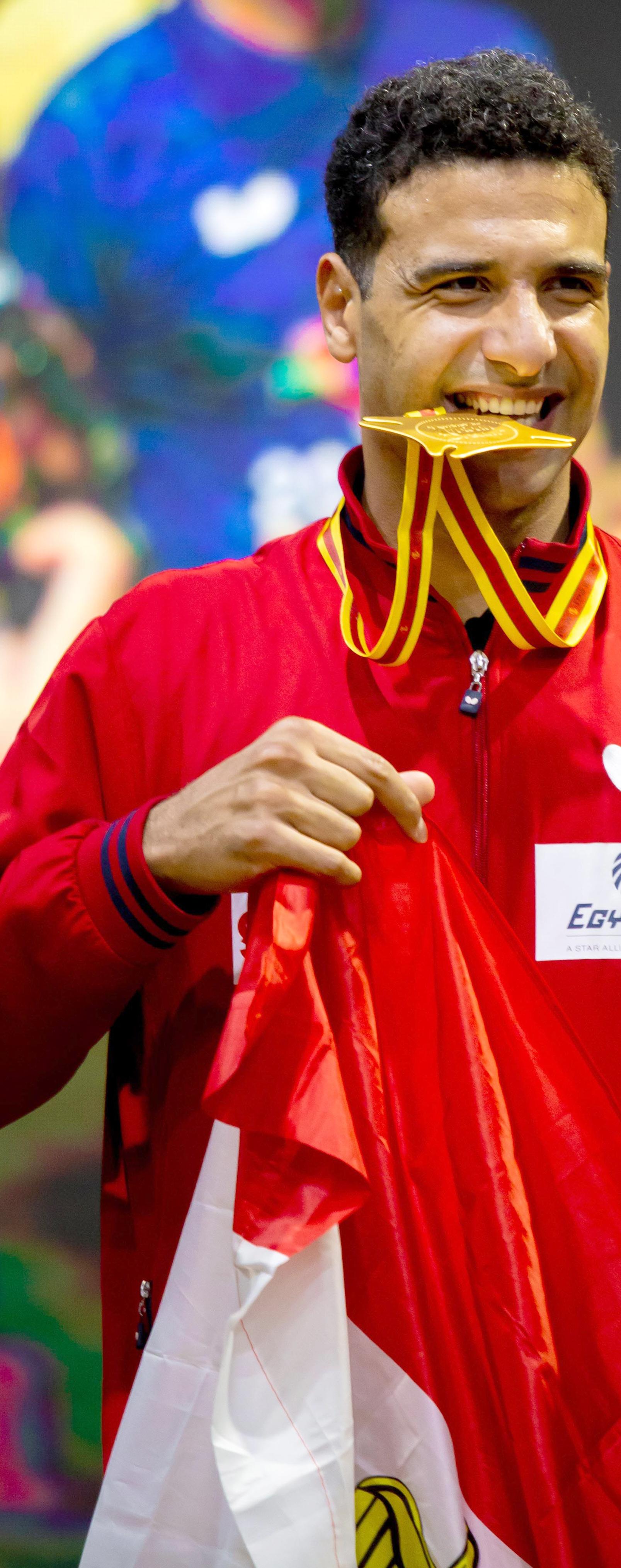
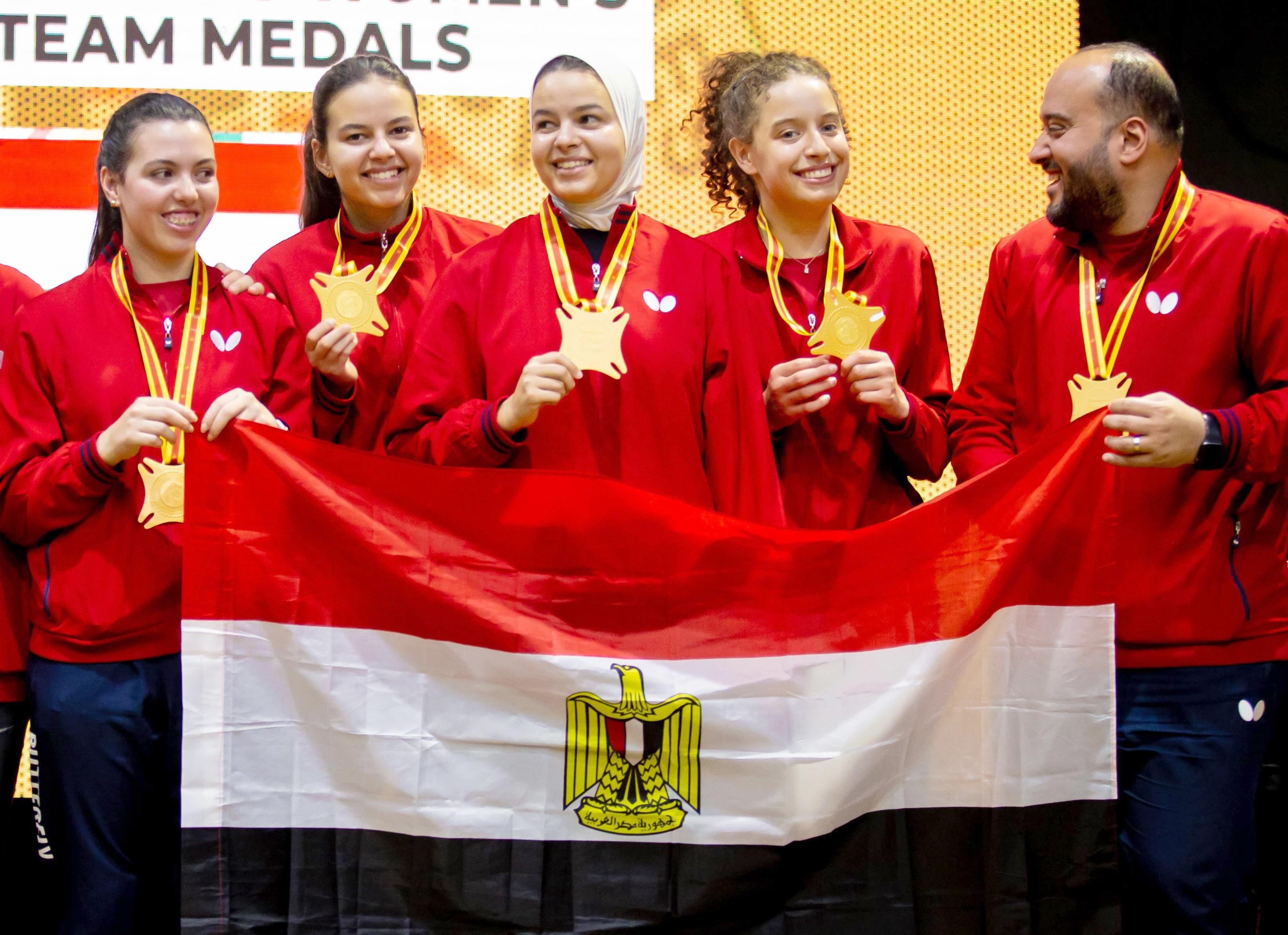
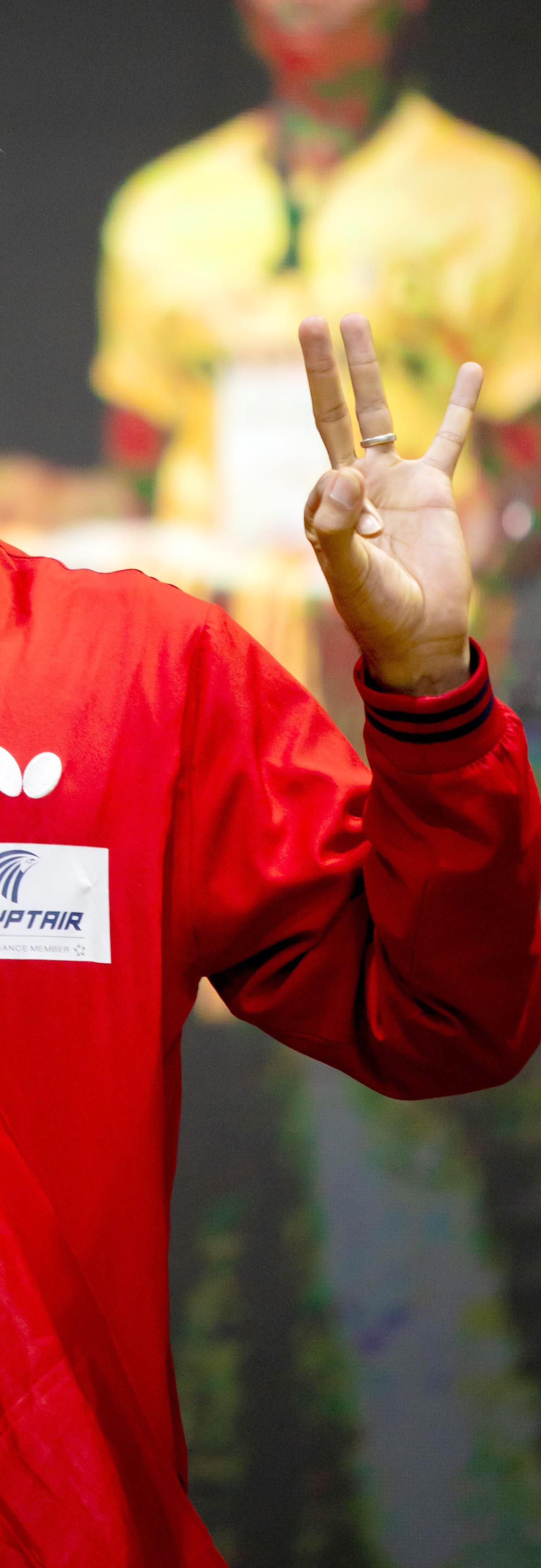
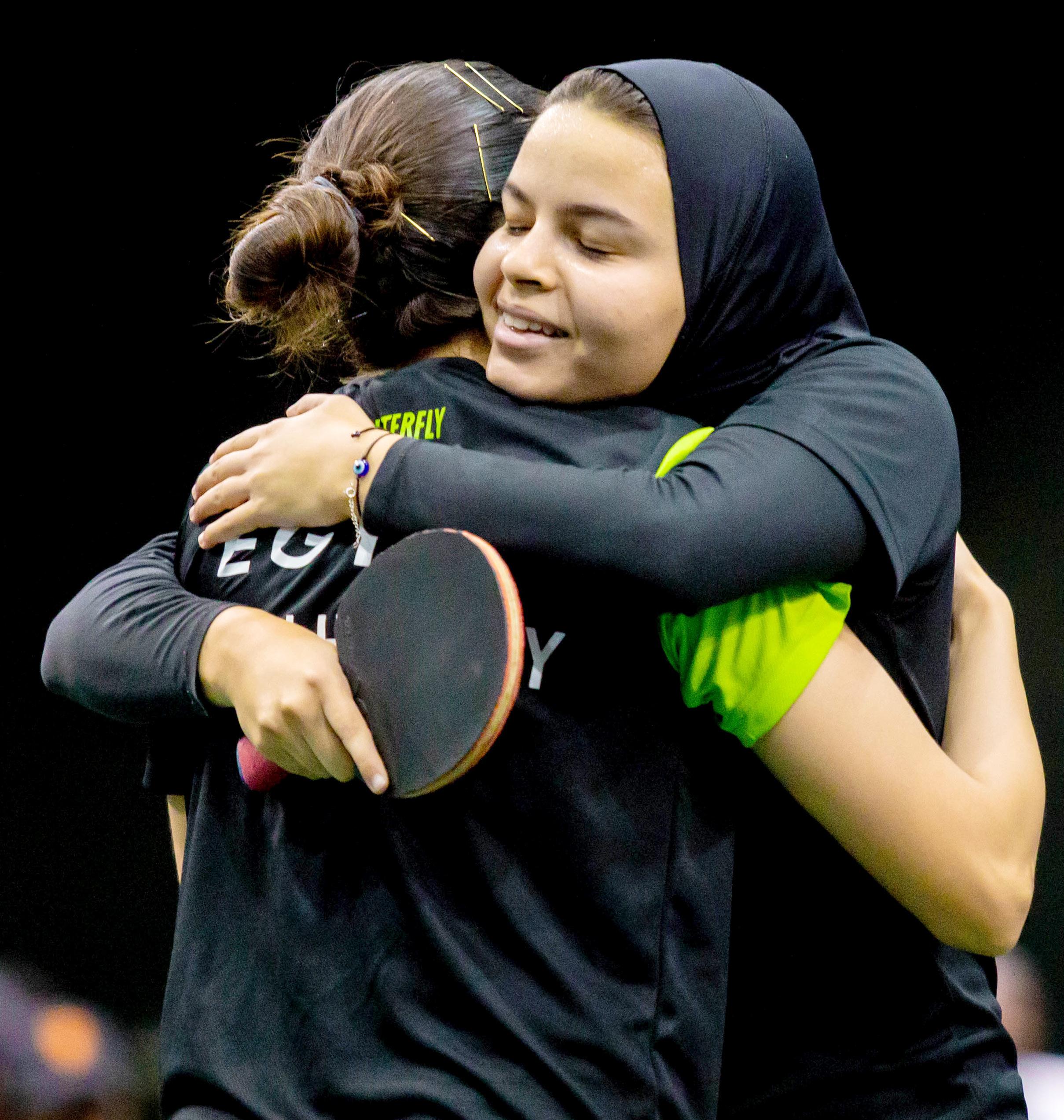
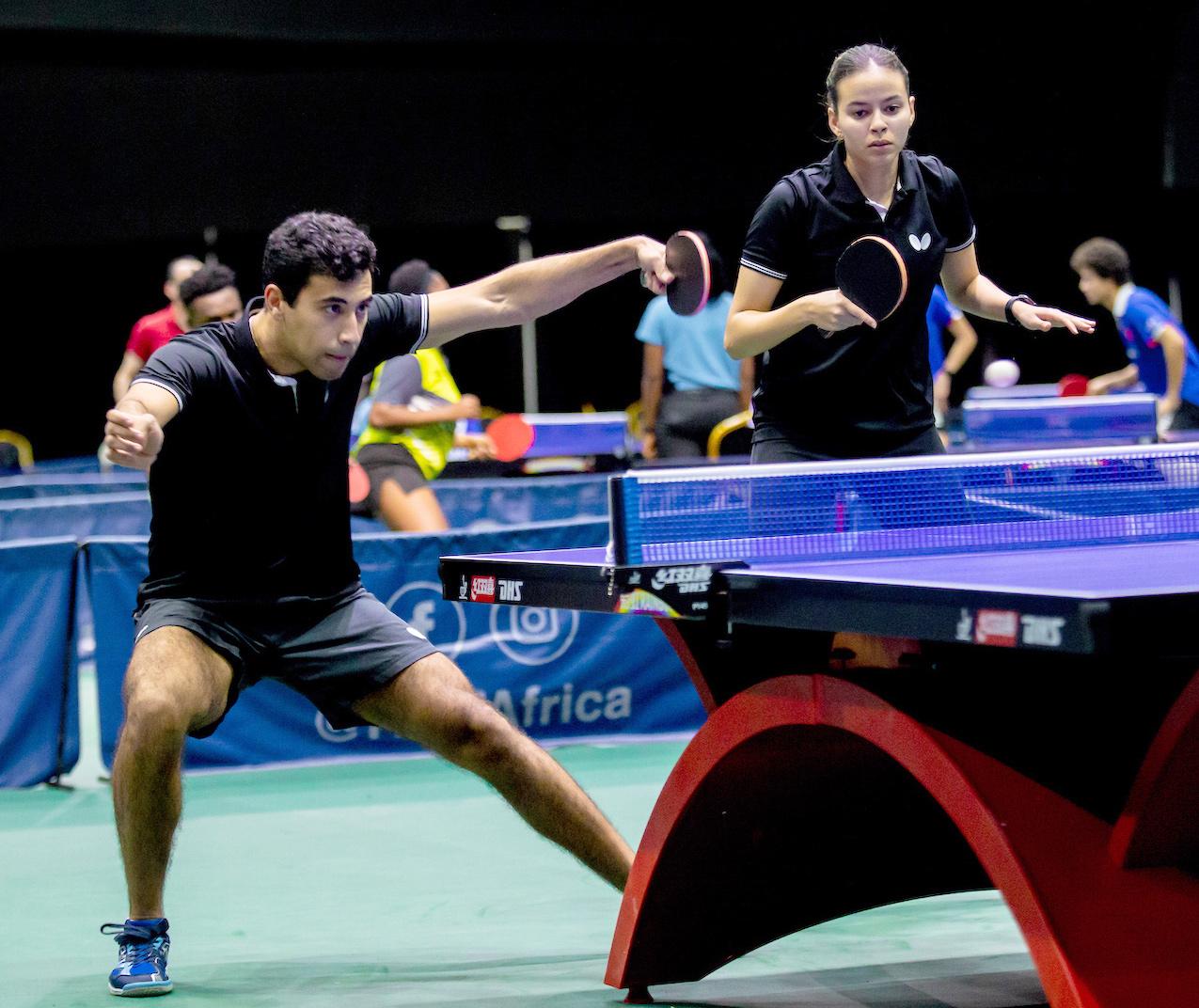
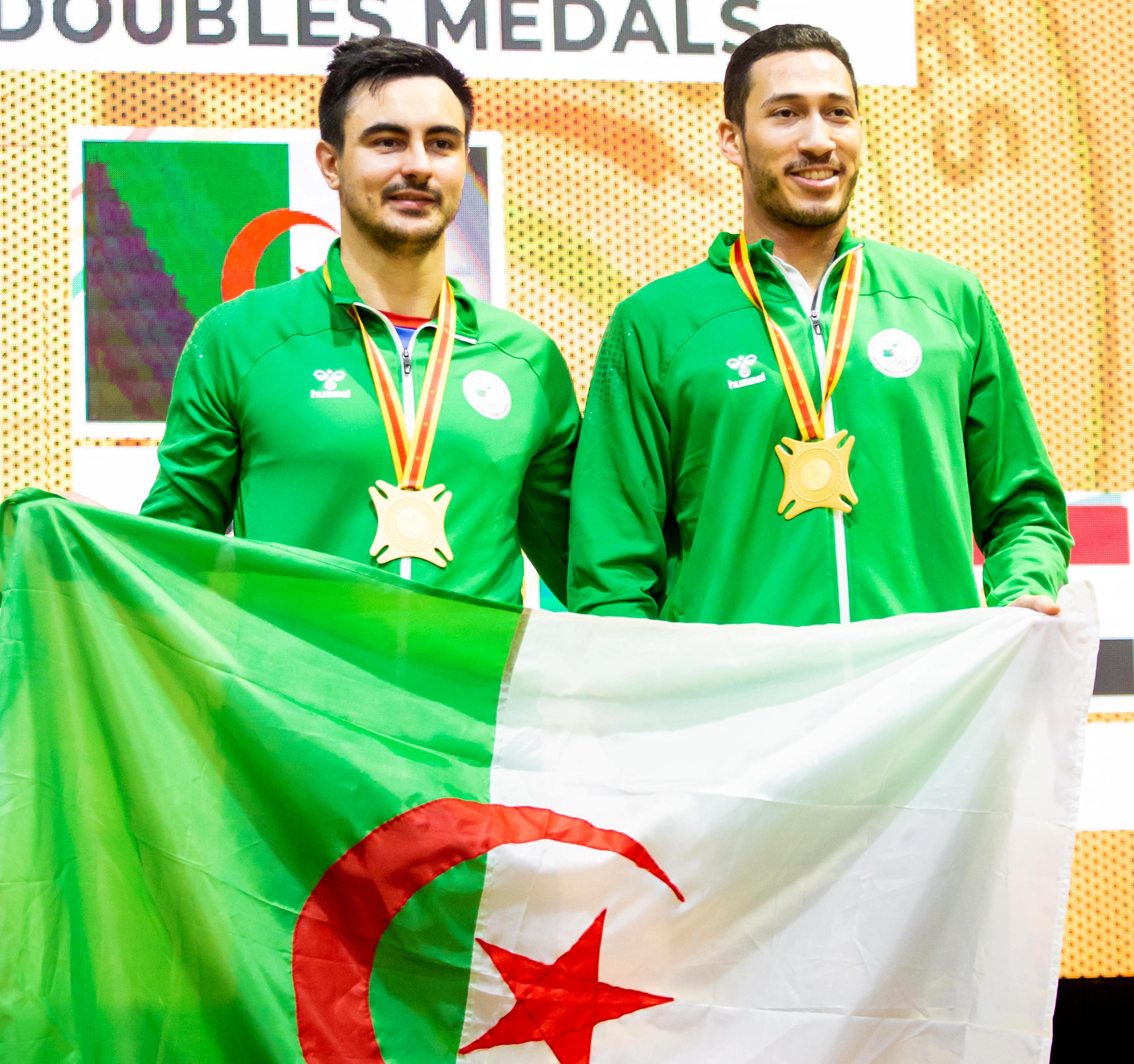
TOP LEFT
Egypt retained the men’s team title; prior to 2019 they had won in 2007 and 2011.
left to right Maged Ashour, Youssef Abdel-Aziz, Omar Assar, Mohamed ElBeiali, Khalid Assar, Mohamed Shouman, Emad Moselhy.
TOP CENTRE
Egypt won the women’s team title for the fourth consecutive time.
left to right Maged Ashour, Dina Meshref, Yousra Helmy, Mariam Alhodaby, Marwa Alhodaby, Hana Goda, Emad Moselhy.
TOP RIGHT
Mariam and Marwa Alhodaby won the women’s doubles on debut.
BOTTOM LEFT
Hana Goda emerged the women’s singles winner at the first attempt.
BOTTOM CENTRE
Omar Assar won the men’s singles for the third time, previously he had won in 2011 and 2015.
BOTTOM RIGHT
Stéphane Ouaiche and Mehdi Bouloussa emerged men’s doubles winners, thus they emulated Algerian colleagues Mohamed Boudjadja and Sami Kherouf who had succeeded in 2019.
>> Articles and Results
S I NGA P ORE SMAS
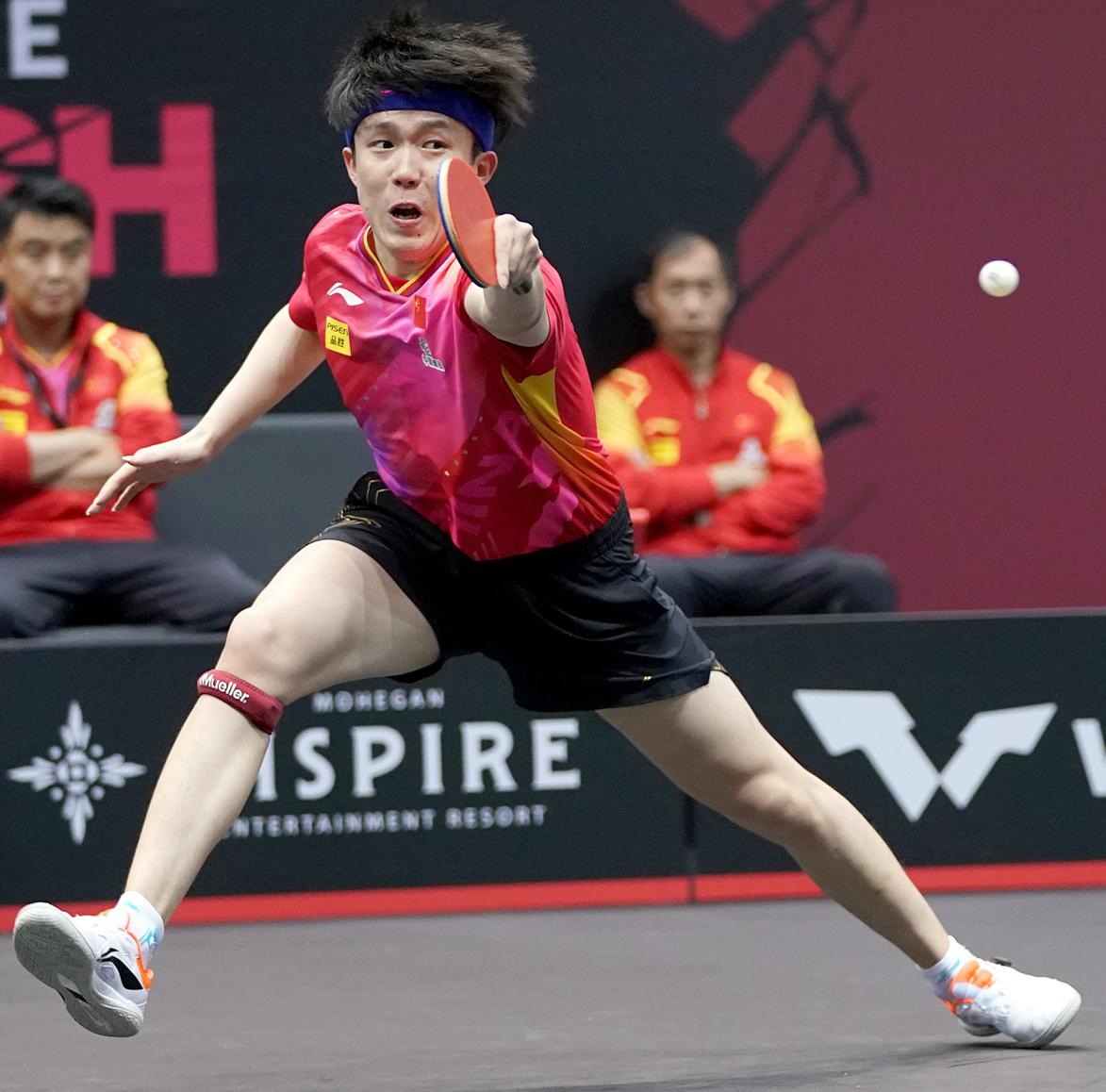
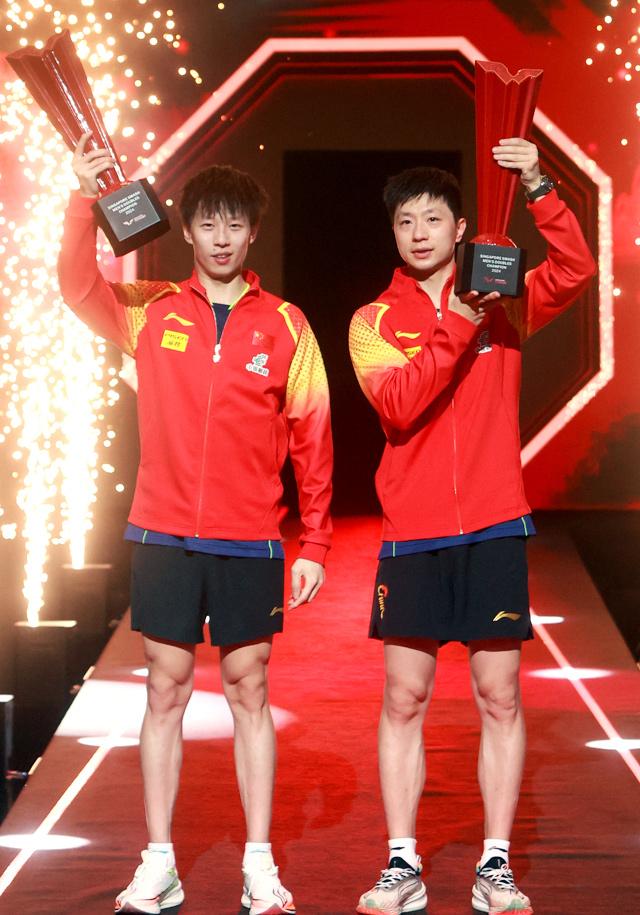
LEFT
Wang Chuqin, the men’s singles winner.
RIGHT
Wang Manyu, women’s singles gold.
FAR
Patrick Franziska reached the quarterfinals, in round two he beat Ma Long.
BELOW LEFT TO RIGHT
Lin Gaoyuan left and right Ma Long, men’s doubles winners.
Wang Manyu left and right Chen Meng, women’s doubles champions.
The mixed doubles podium front left Lim Jonghoon and right Shin Yubin, the runners up; back left and Chuqin and right Sun Yingsha, the winners.
Chen Xingtong reached the women’s singles semi-final; in the last eight she beat for Sun Yingsha.
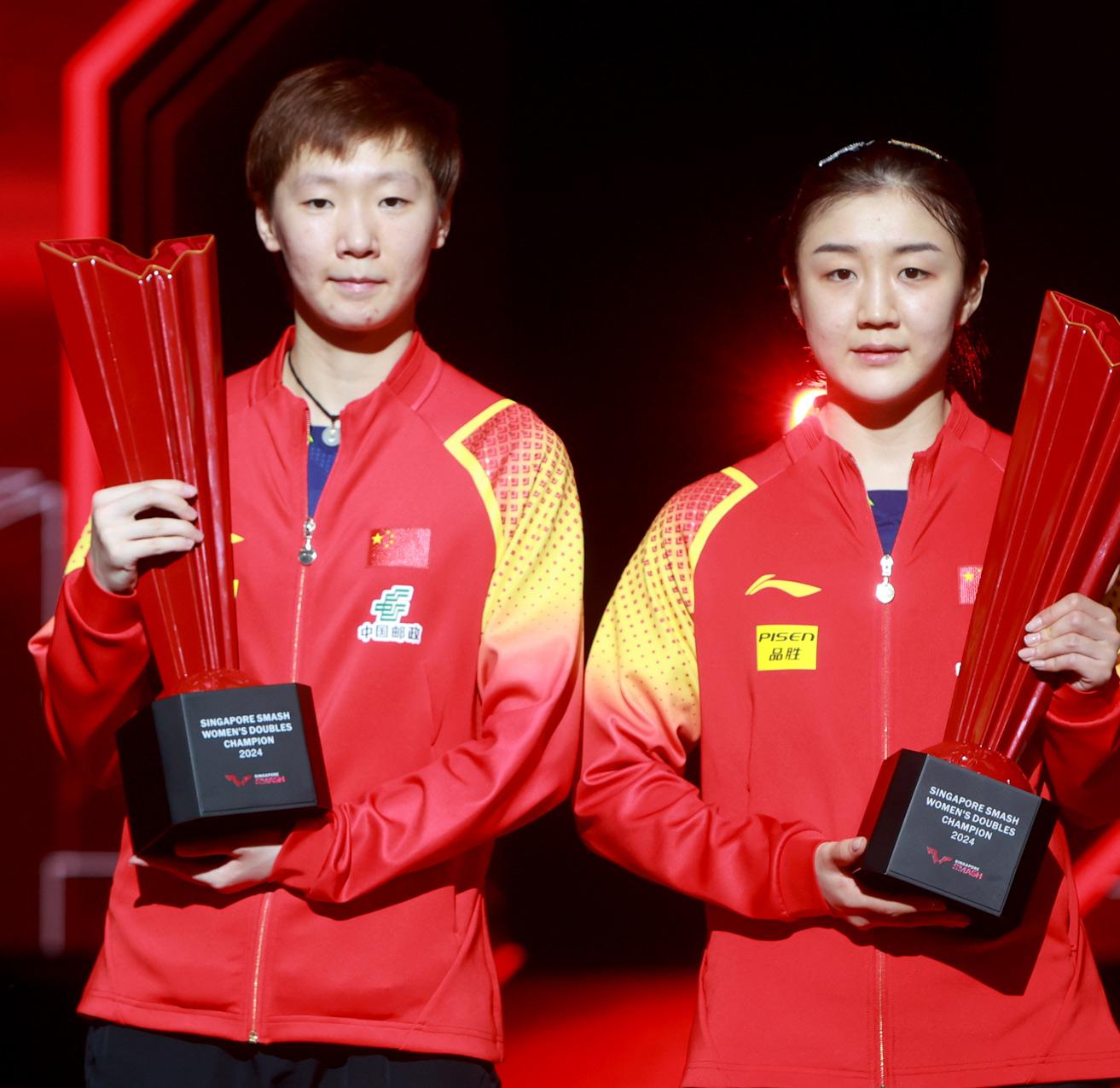
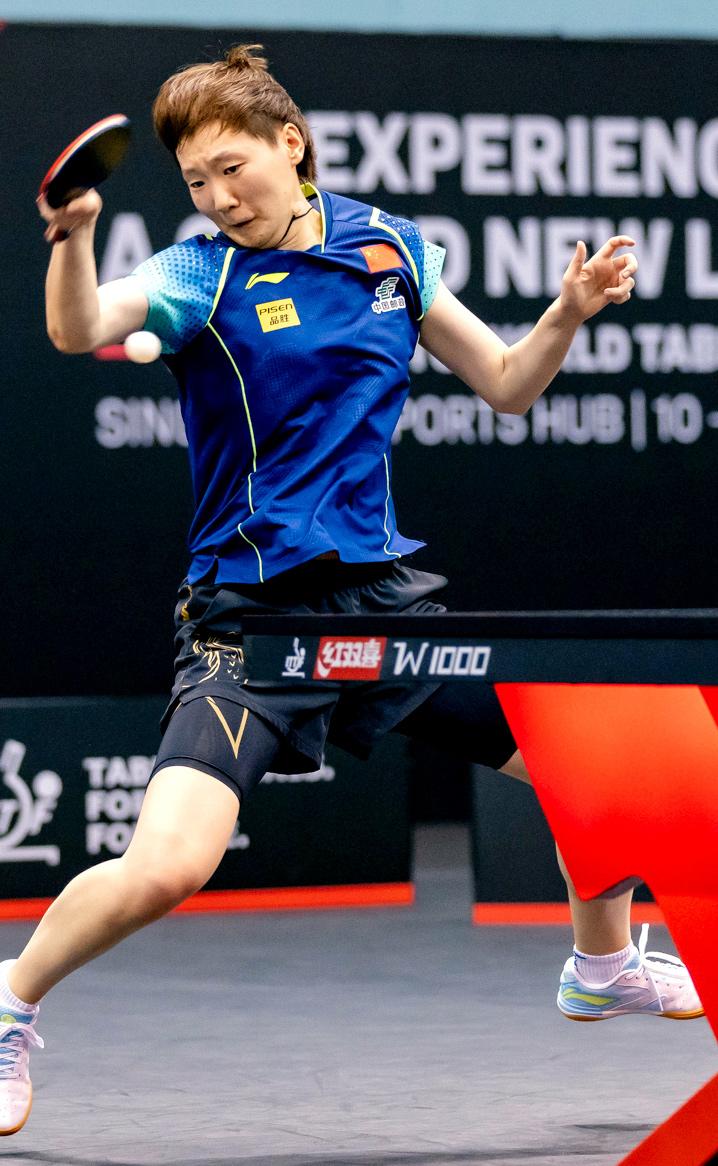
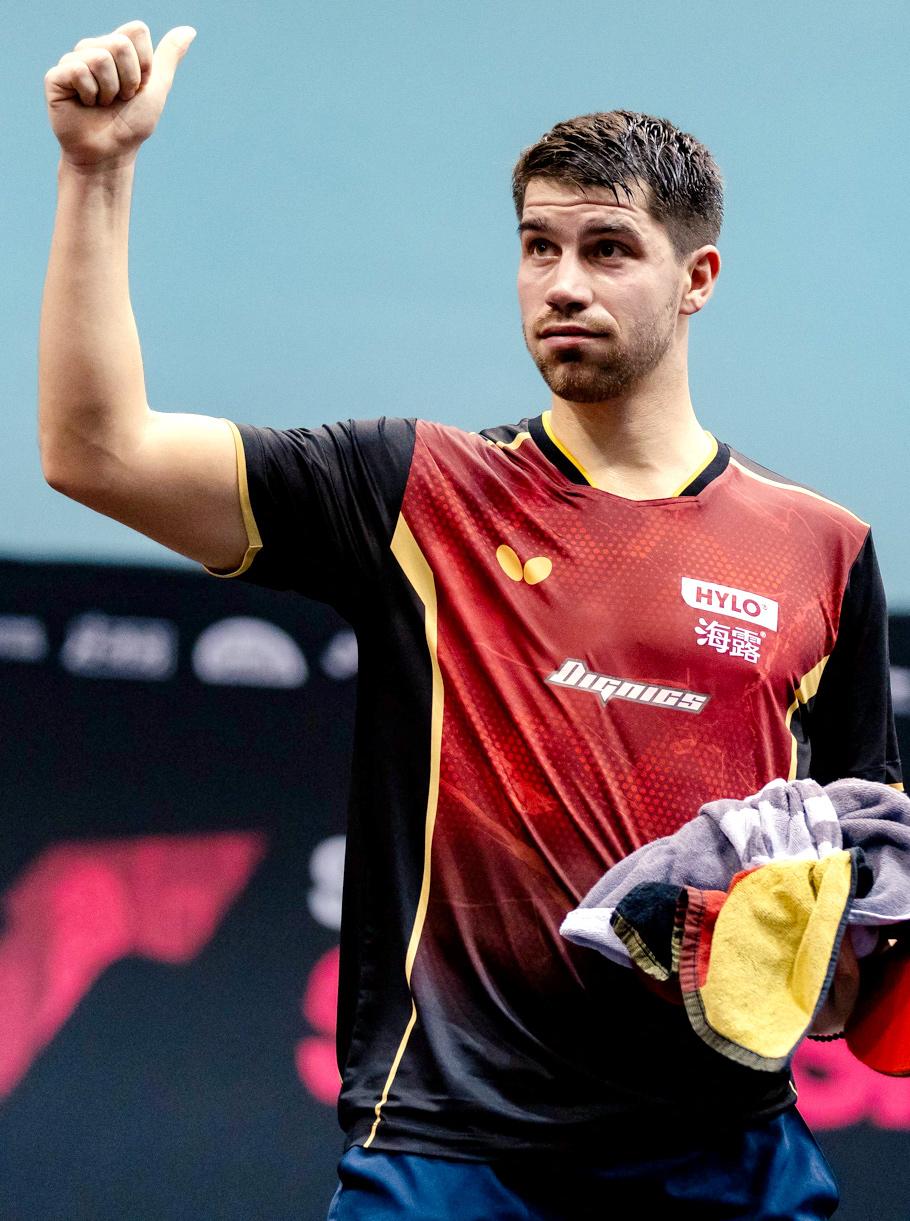
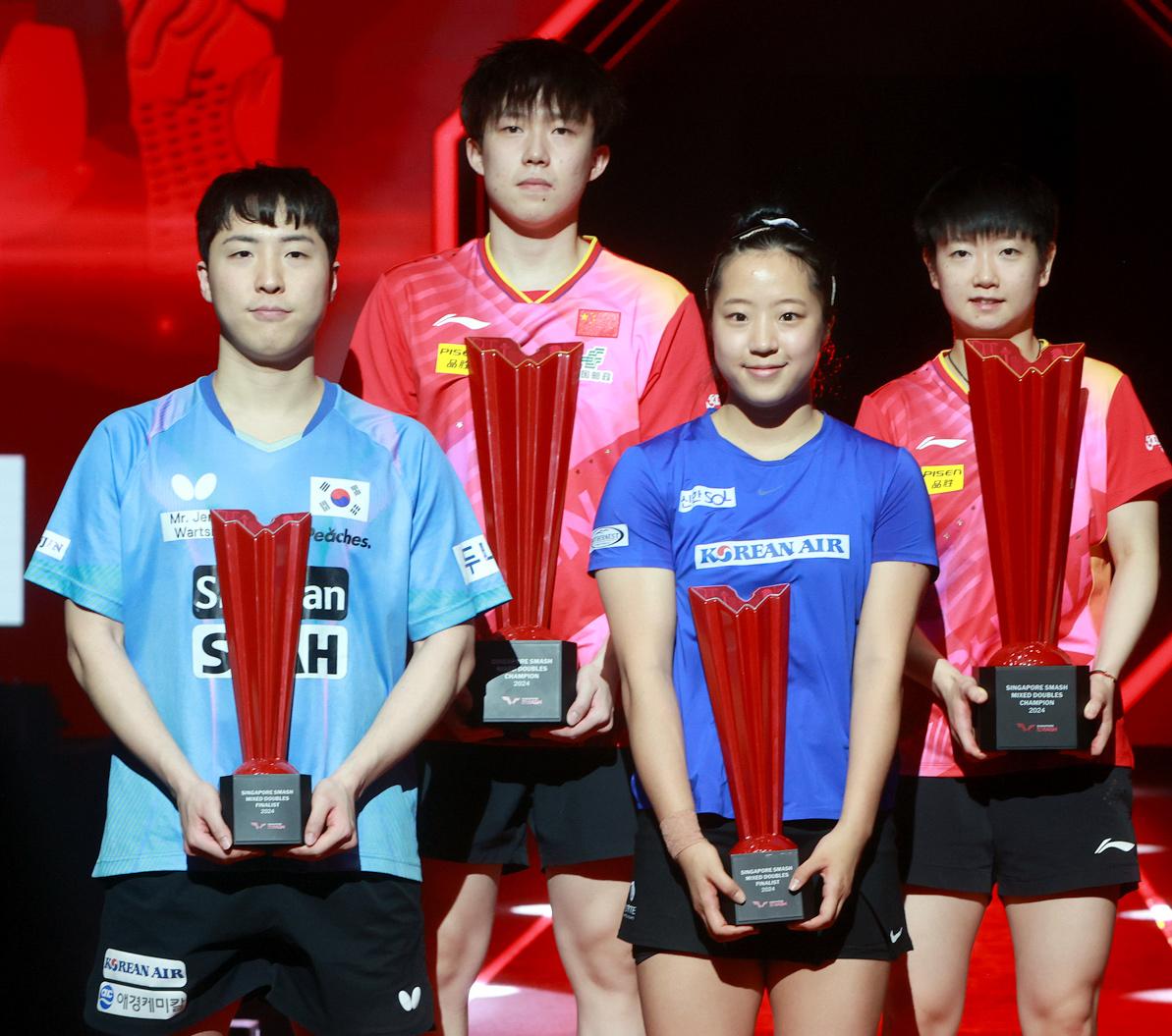
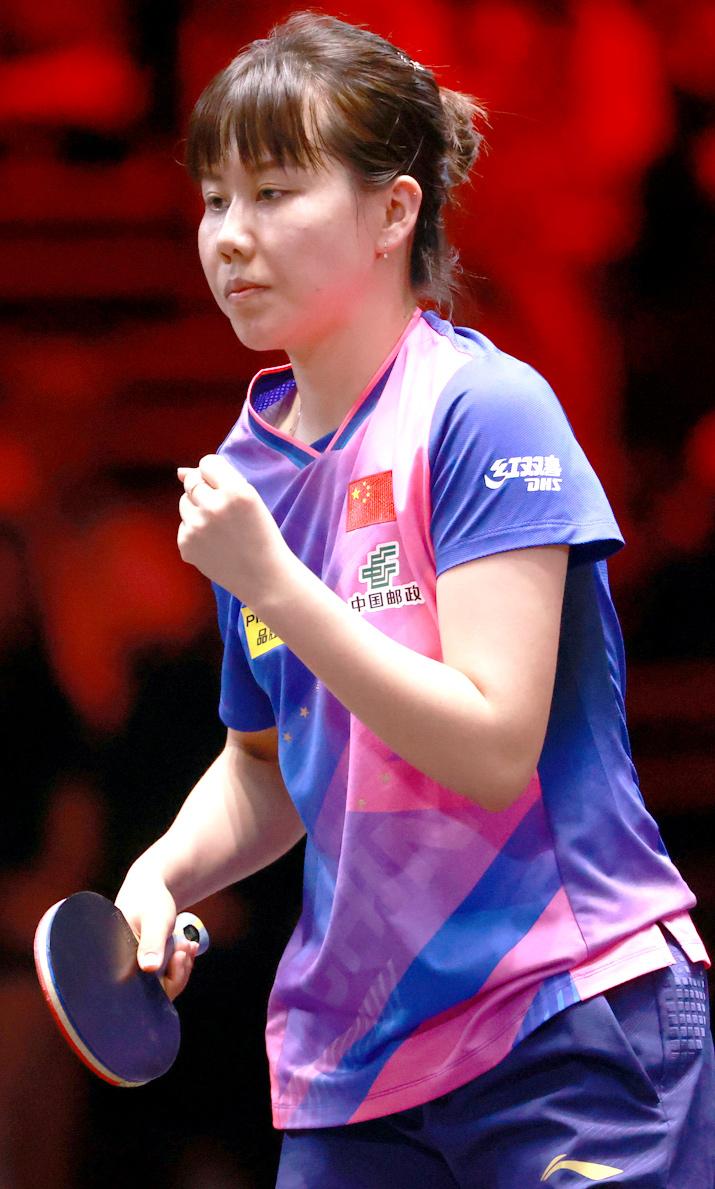
SWAYTHLING CLUB NEWS
Björne Mellström (1933-2024)
Born on Friday 10th March 1933, Björne Mellström passed away on Sunday 4th February, just a few days short of his 91st birthday.
At the Swedish Championships, he won 16 titles; five men’s team, five men’s singles, two men’s doubles and four mixed doubles.
He competed in six consecutive World Championships (1954-1961); in 1967 in Stockholm, returning to action, he partnered the Soviet Union’s Laima Balaishite, the duo reached the last 16, they lost to Ebby and Diane Schöler.
Meanwhile, at the European Championships, Mellström won men’s team silver (1960, 1962), bronze (1958); men’s singles bronze (1962).
Additionally at the Nordic Championships he claimed six titles; twice men’s team and men’s doubles, once each
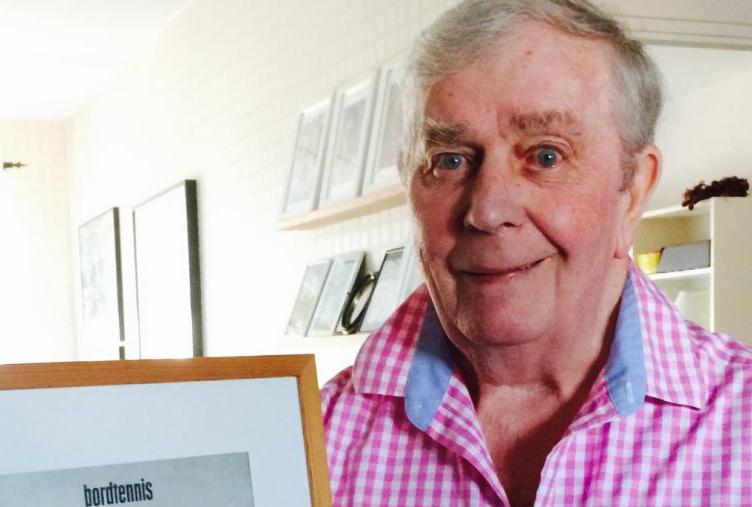
men’s singles and mixed doubles. In 1957 he won all four titles: men’s team, men’s singles, men’s doubles, mixed doubles.
He represented Sweden 89 times in men’s team matches.
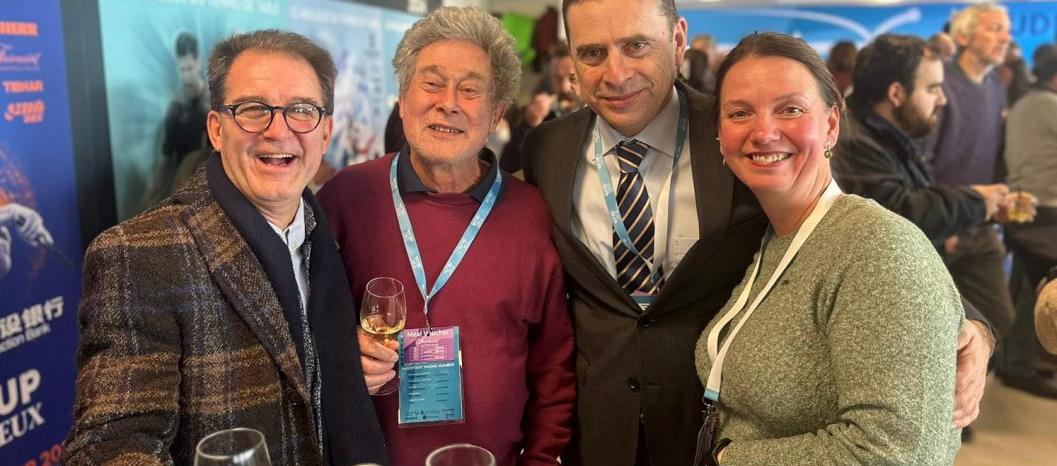
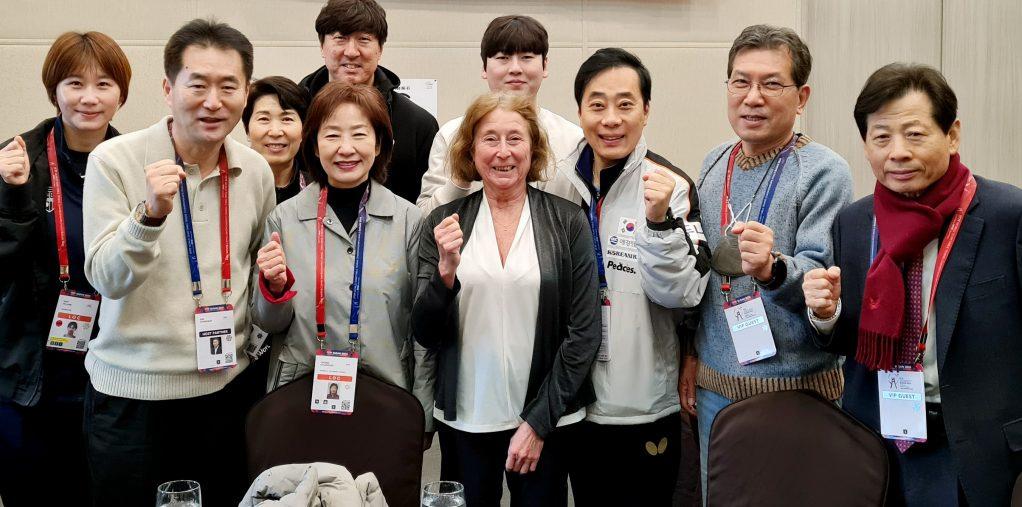
EUROPE TO 16
Swaythling Club members at the Europe Top 16 tournament staged in January in Montreux.
left to right Reto Bazzi, Michael Theis, Pedro Moura and Ina Jozepsone.
ITTF WORLD TEAM CHAMPIONSHIPS
All smiles from Claude Bergeret and members of the Korean Table Tennis Association at the Swaythling Club reception held in February at the ITTF World Team Championships in Busan.
